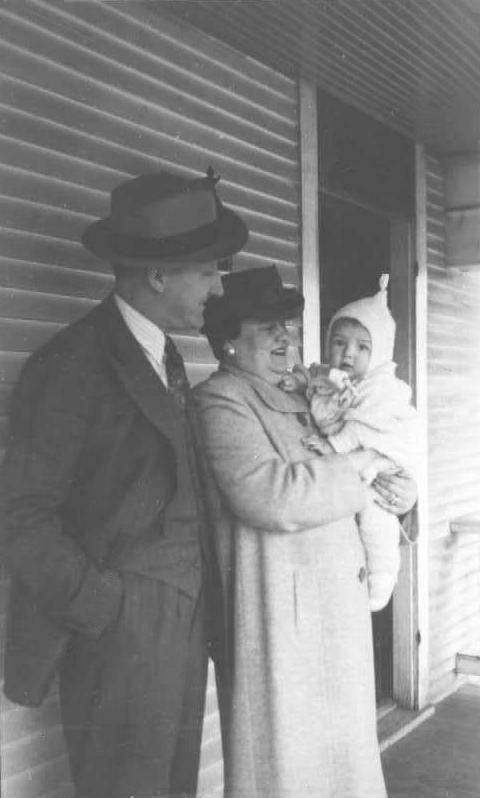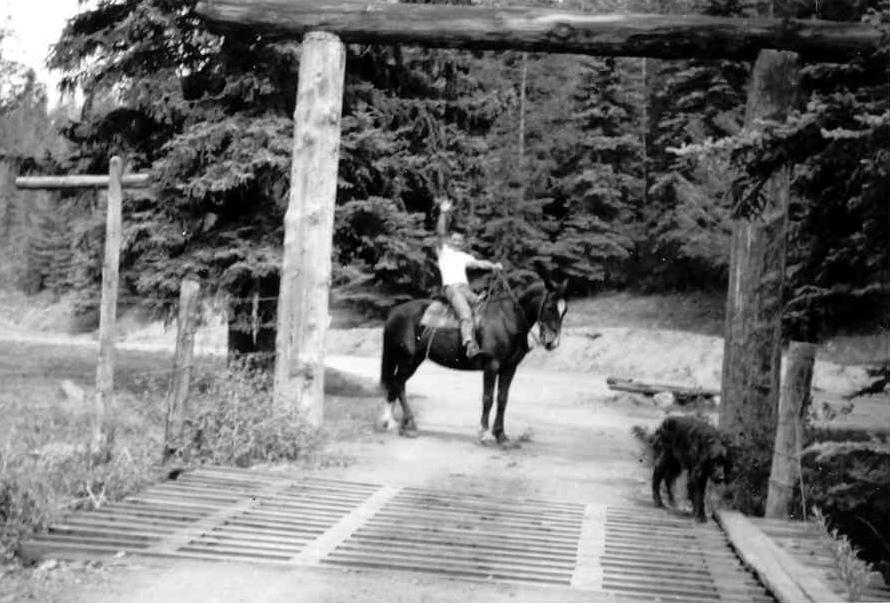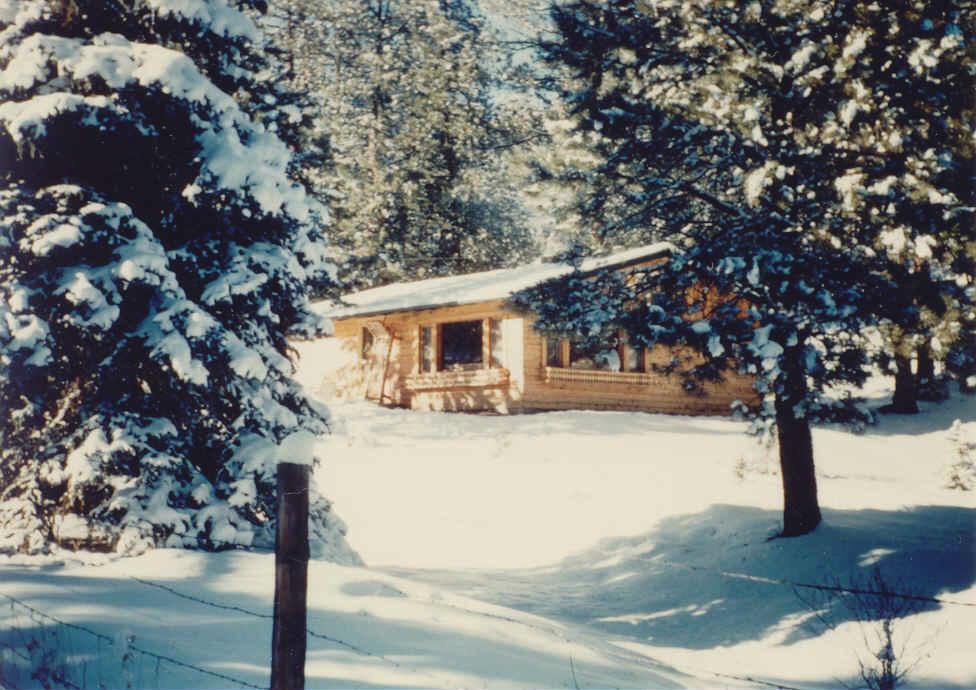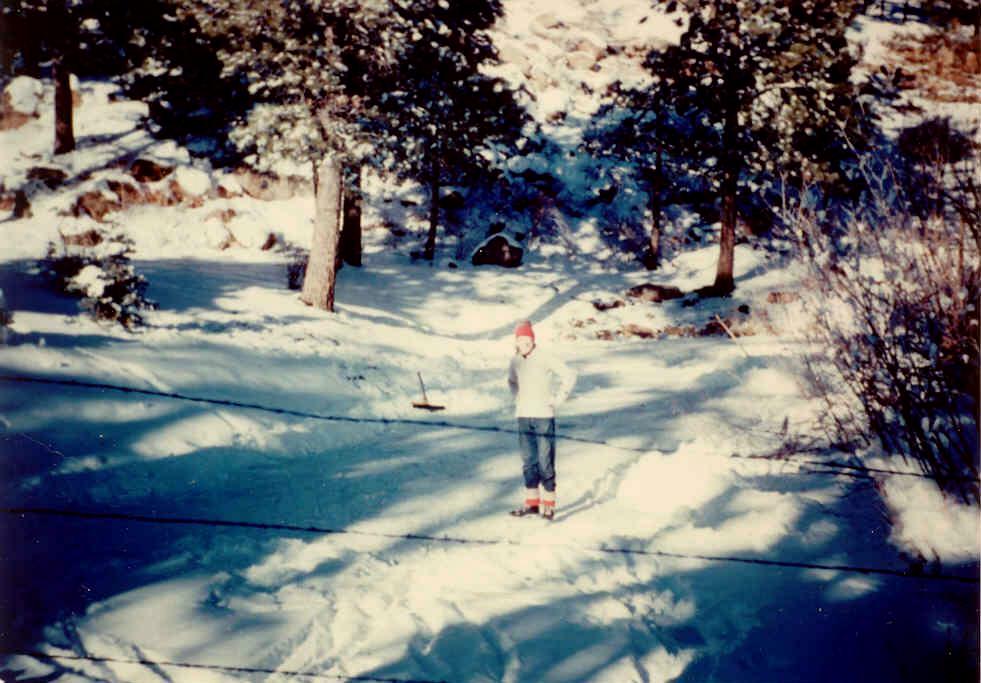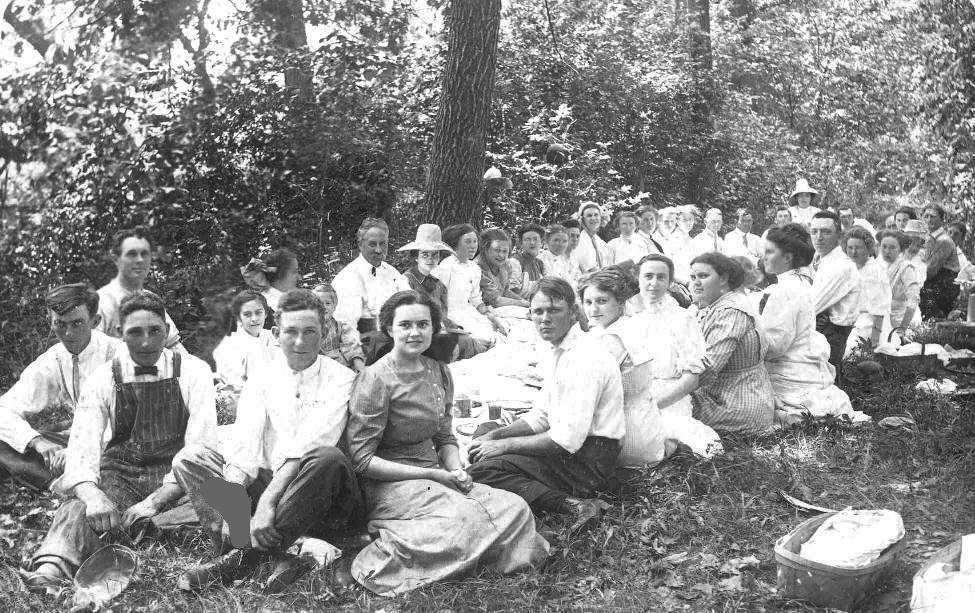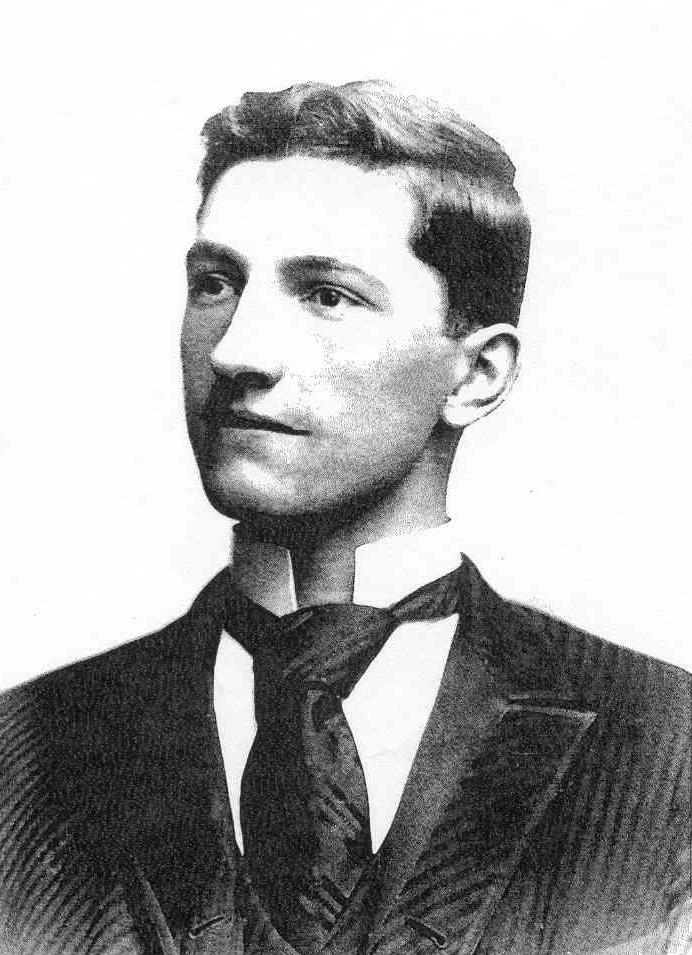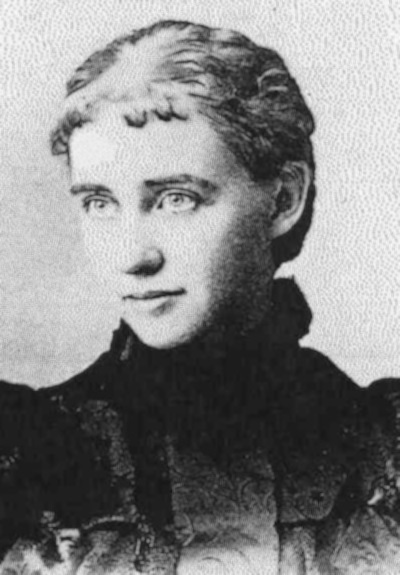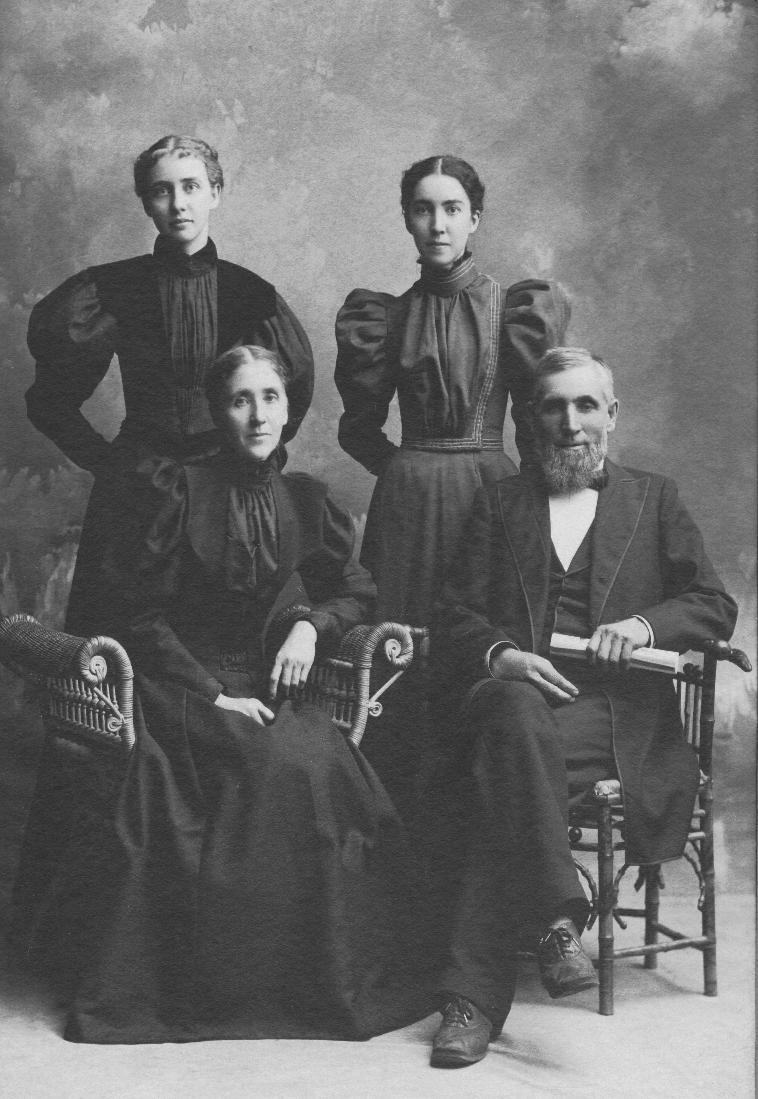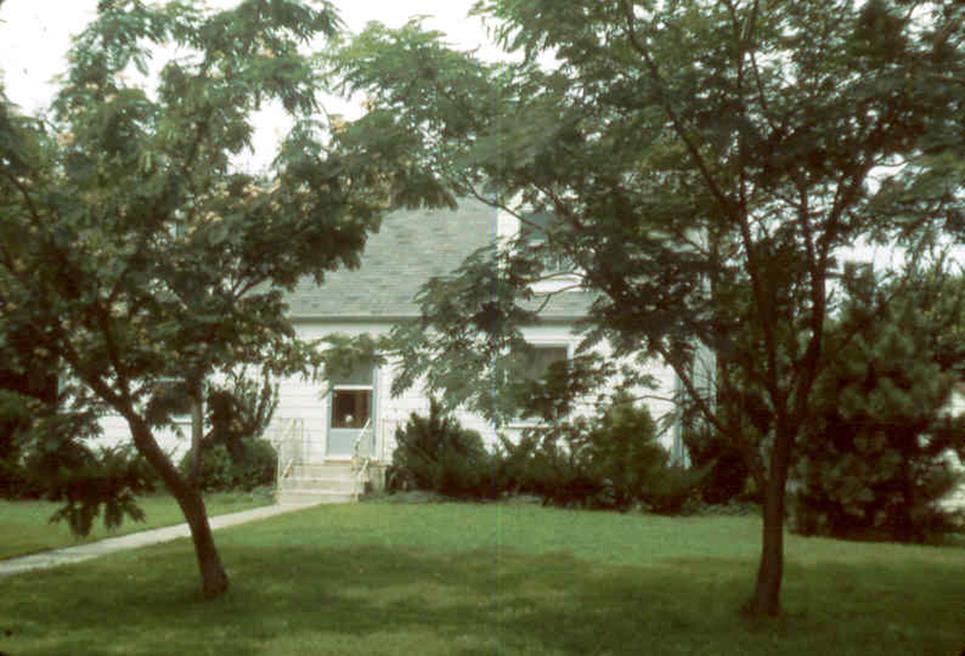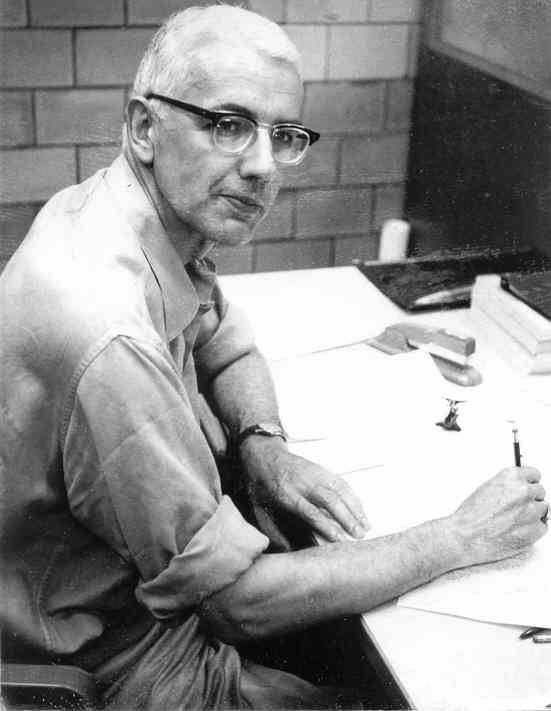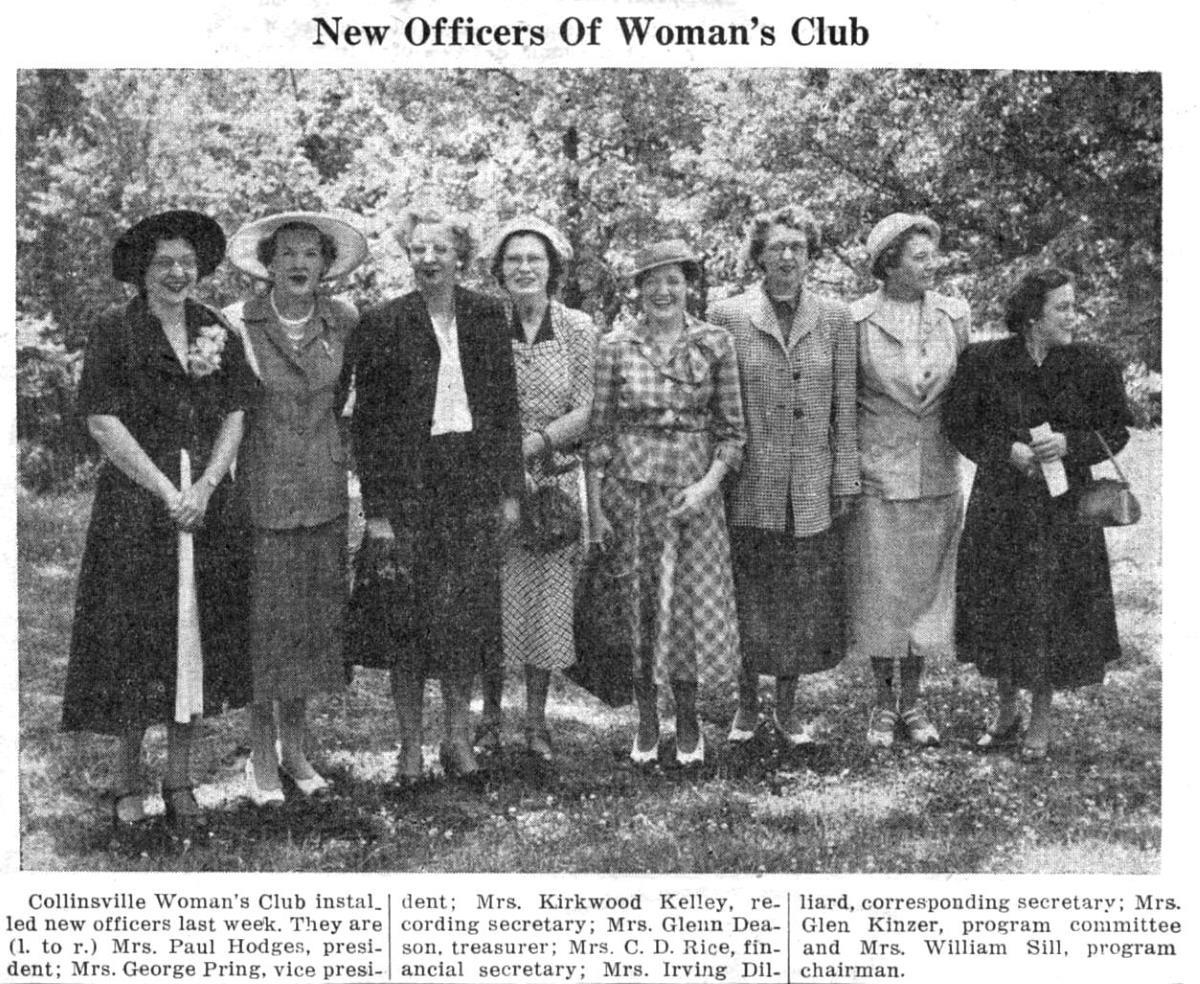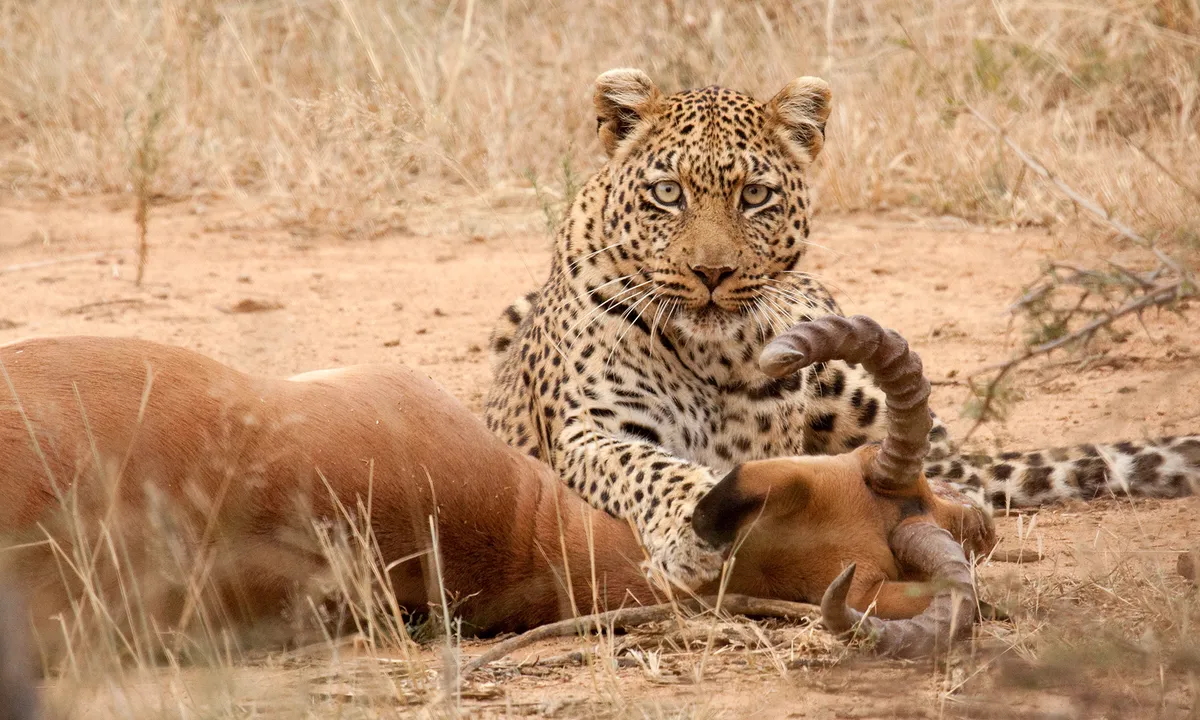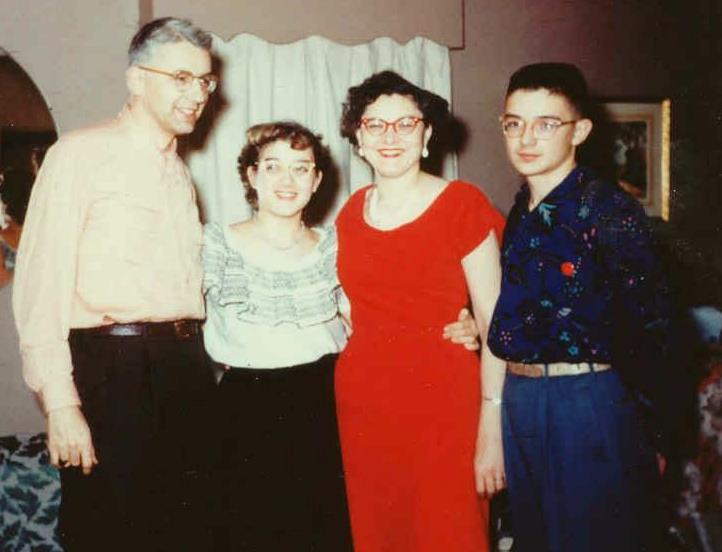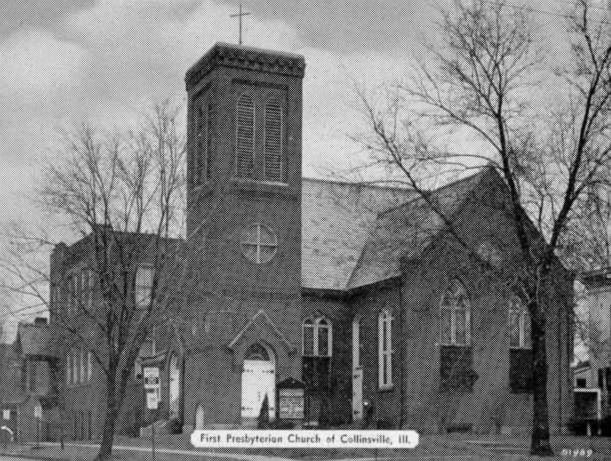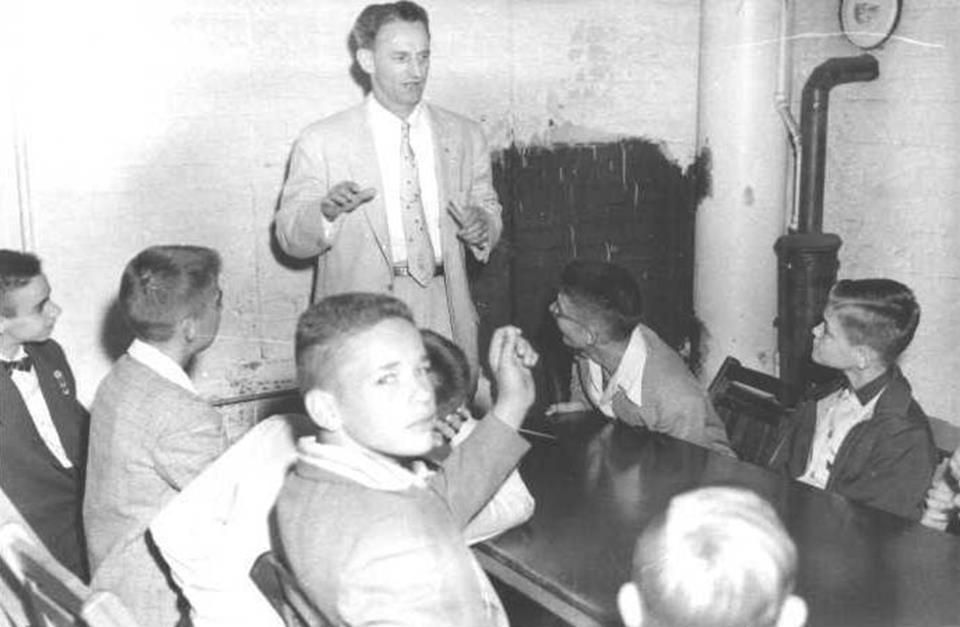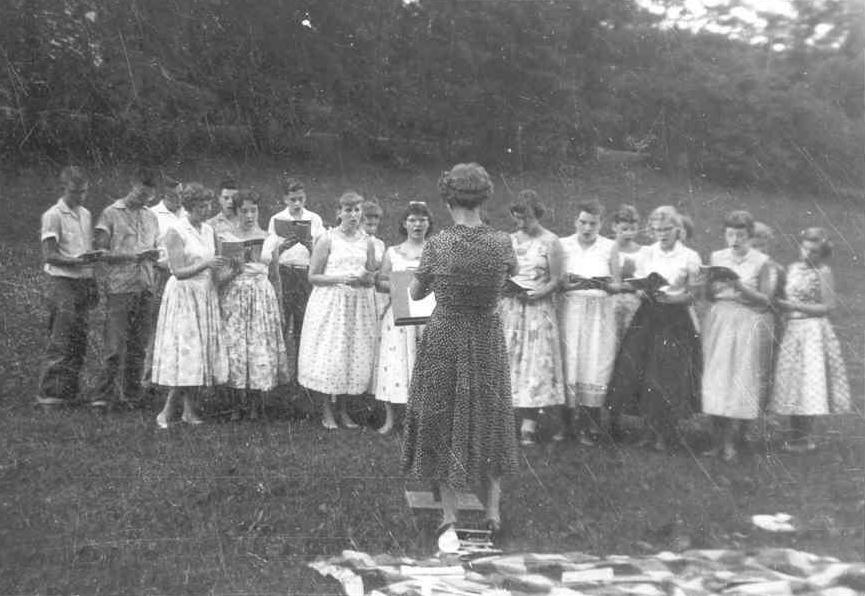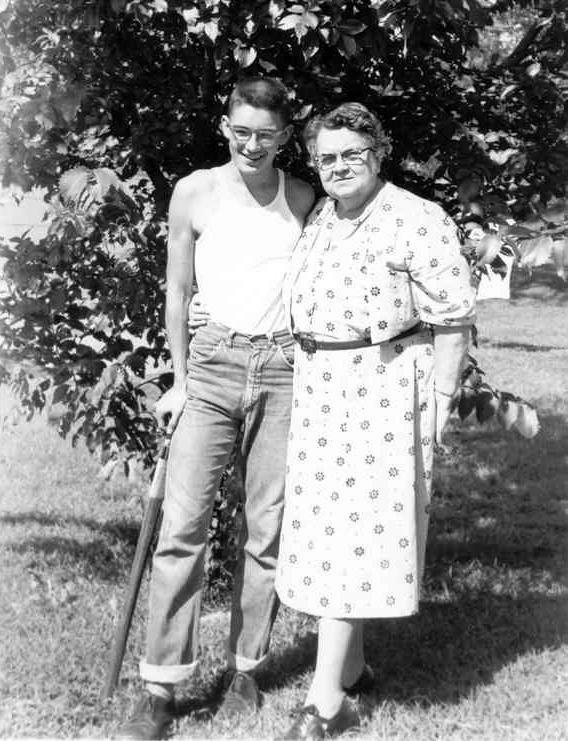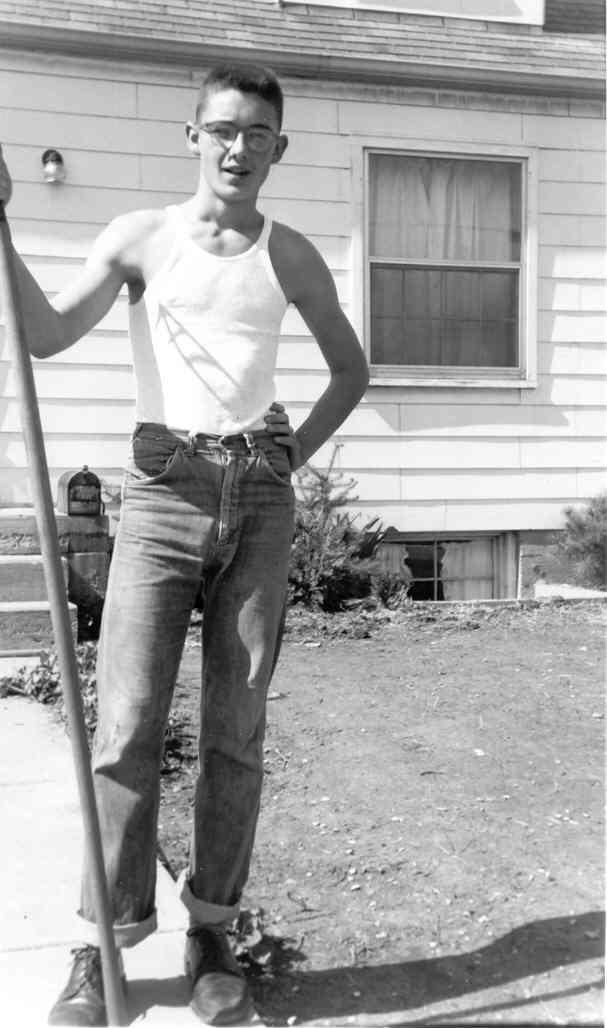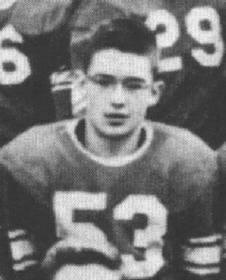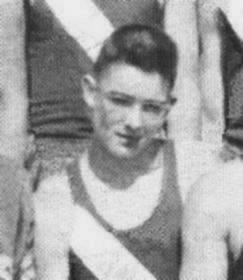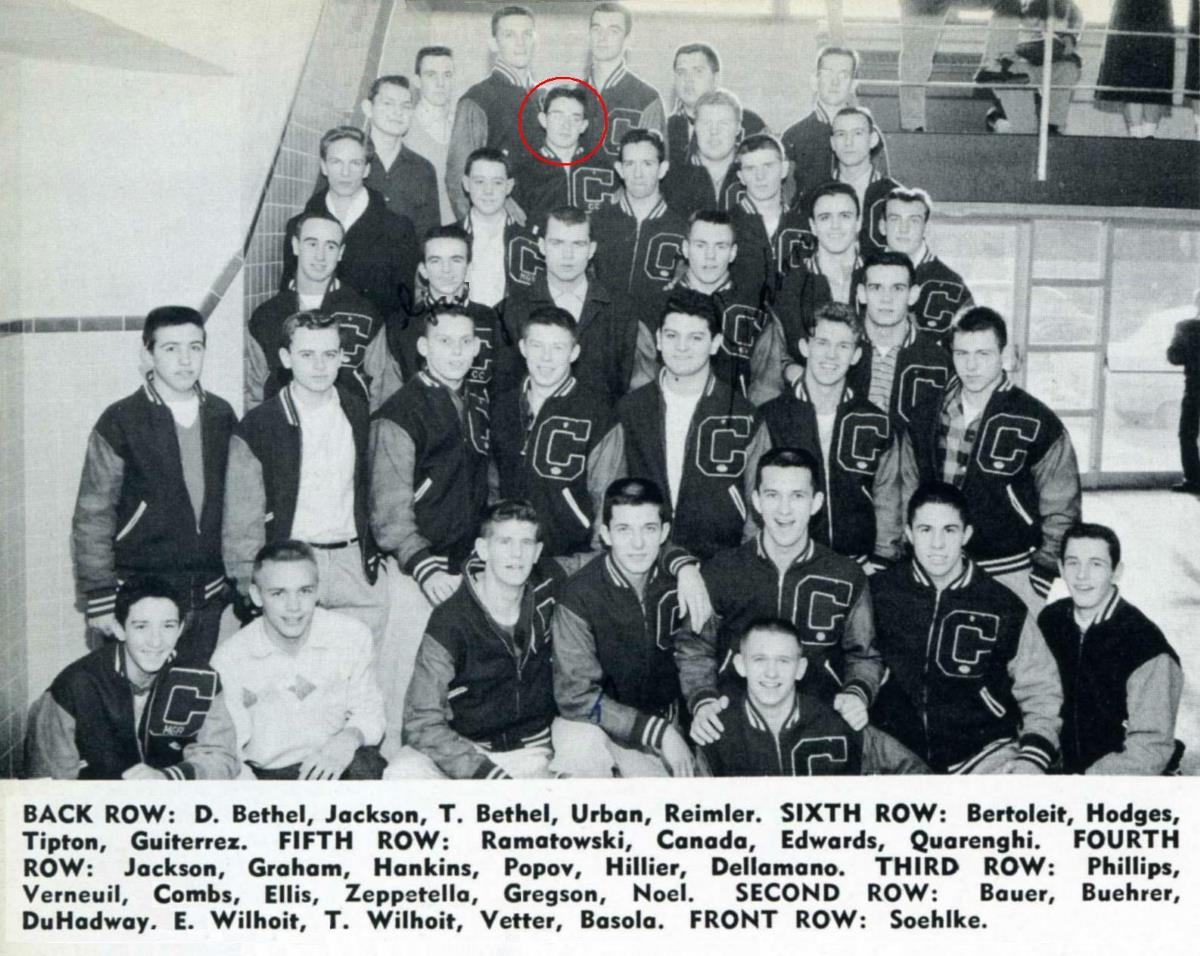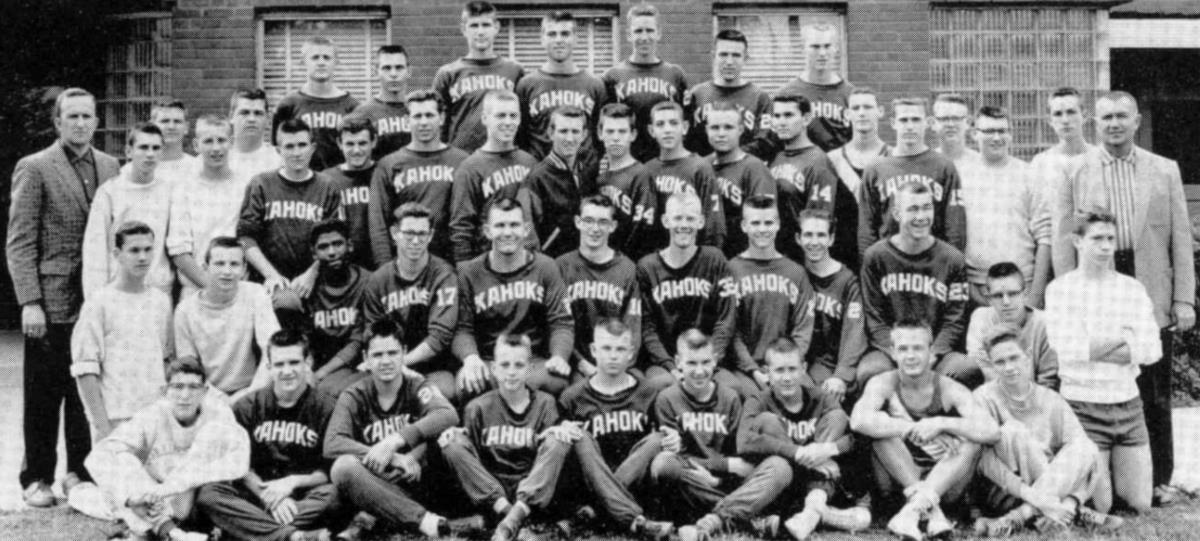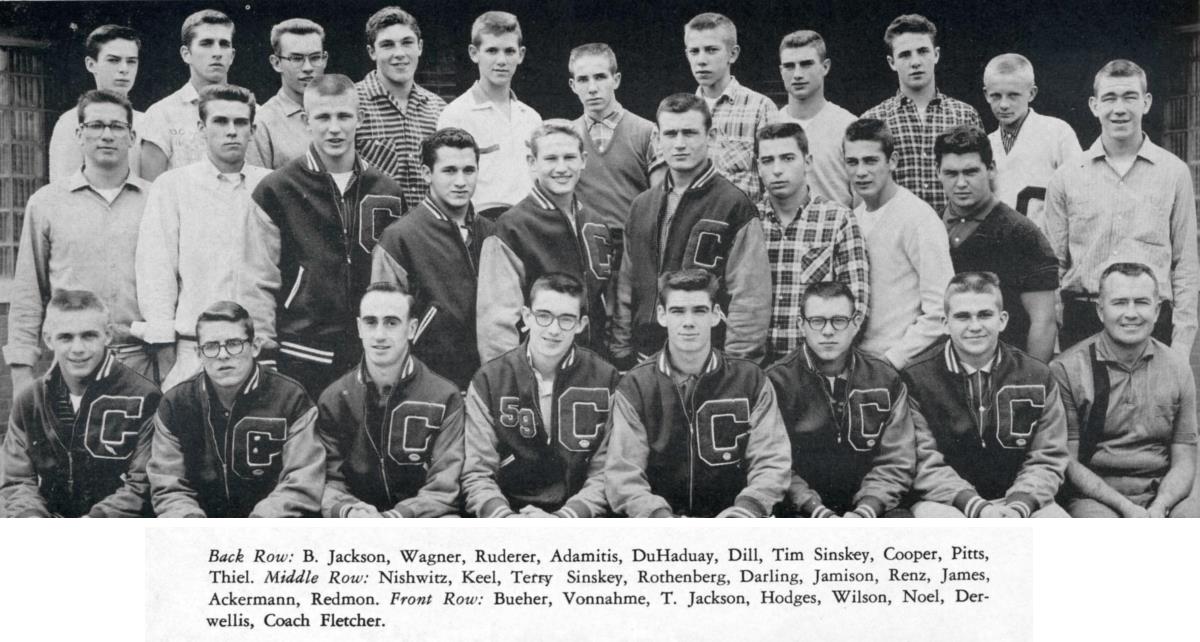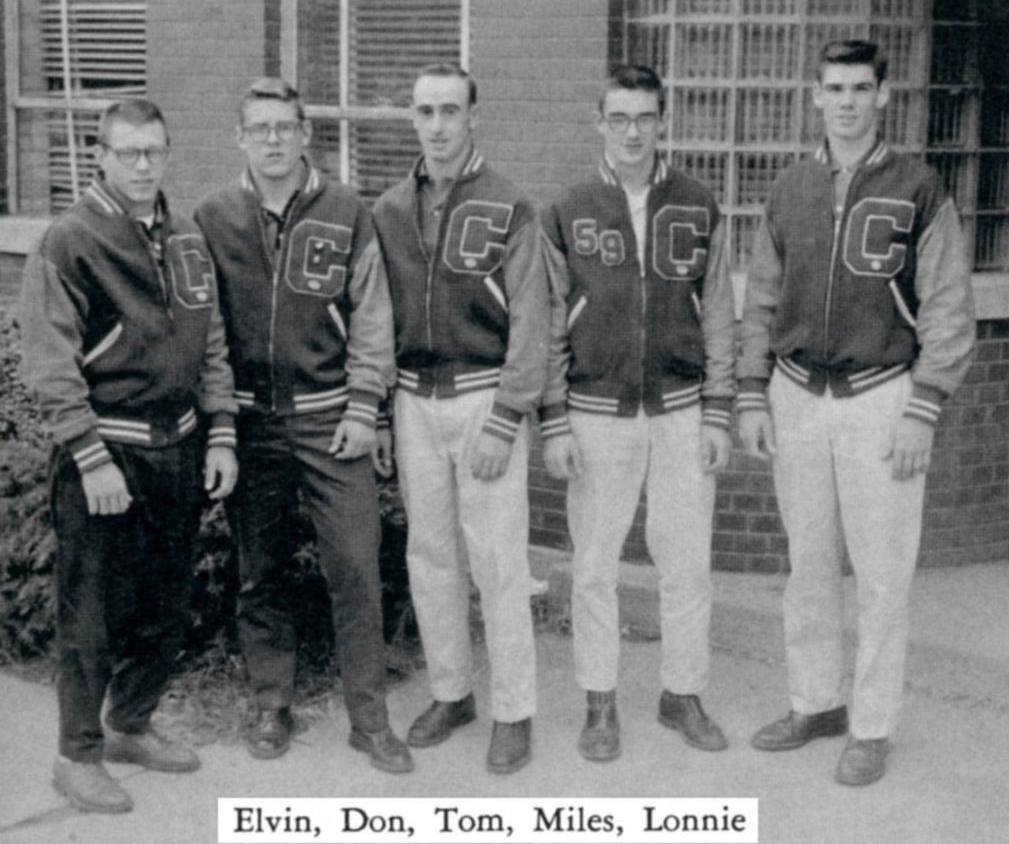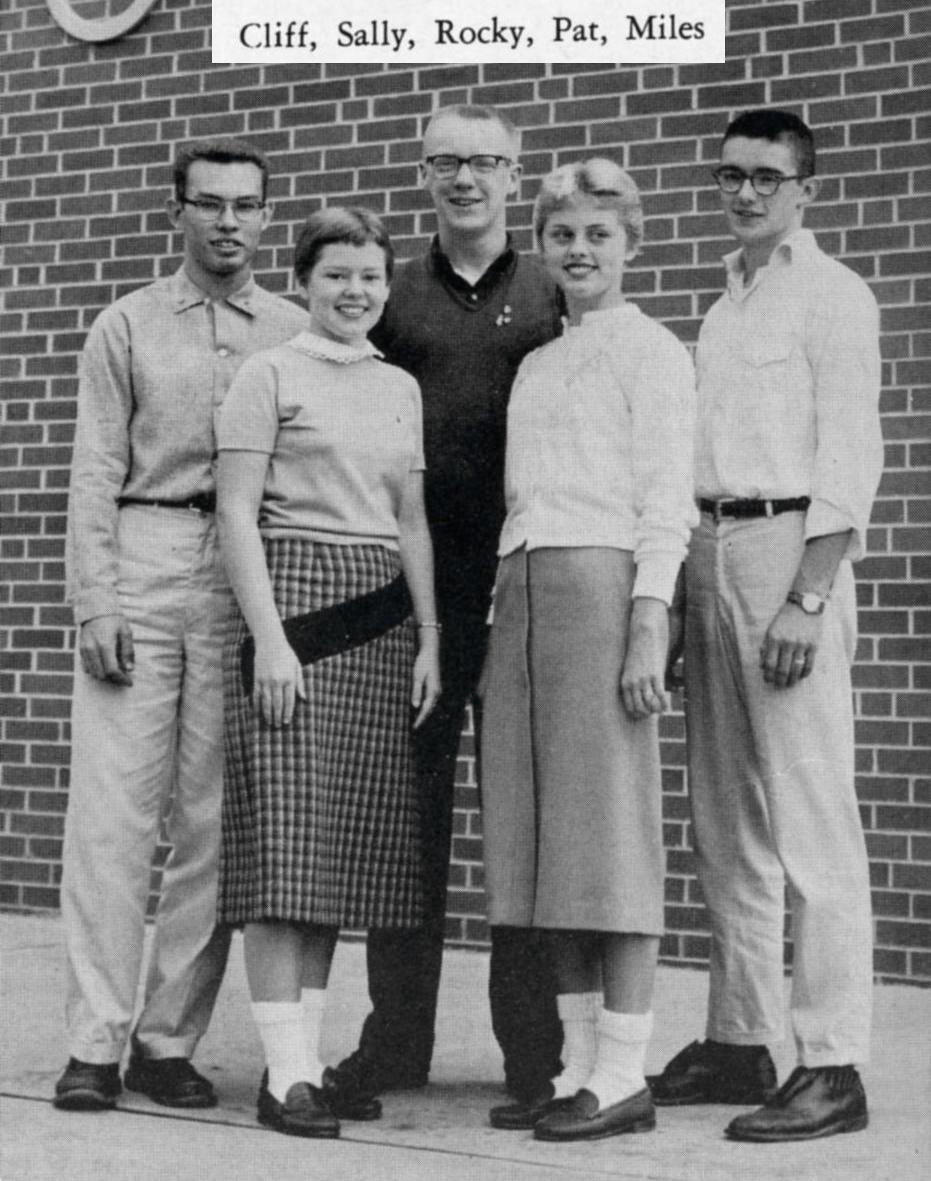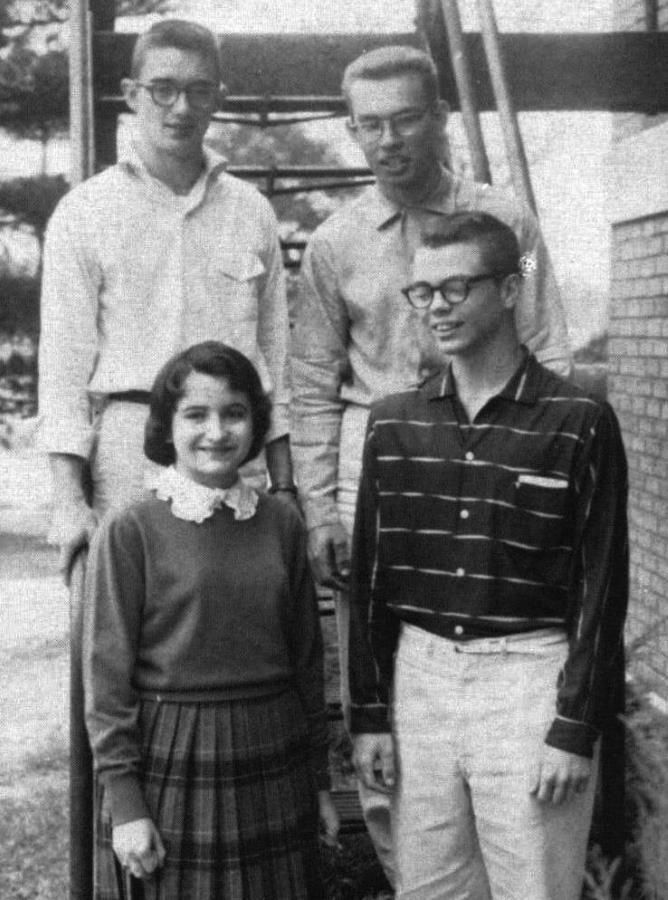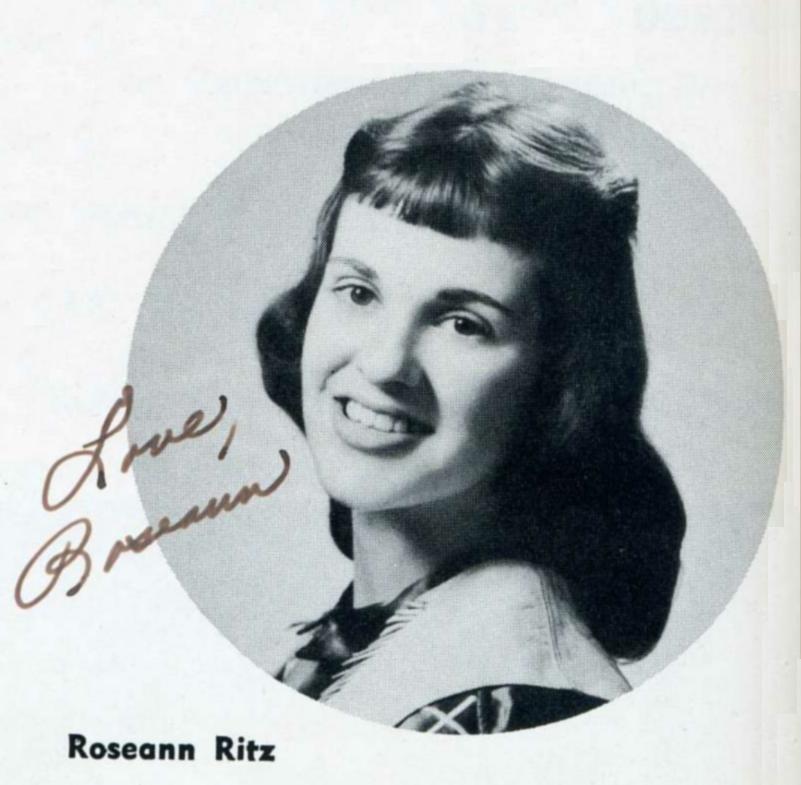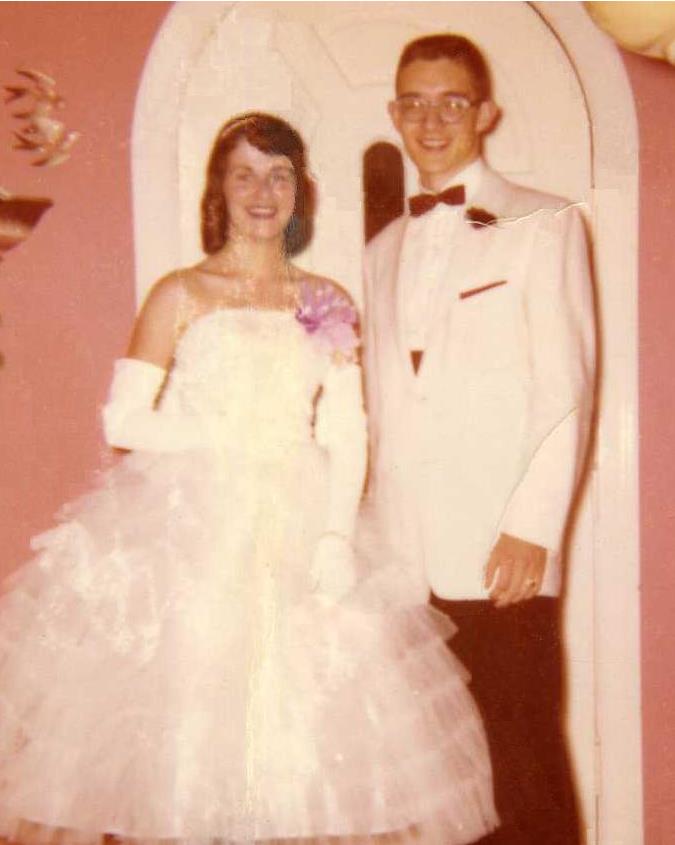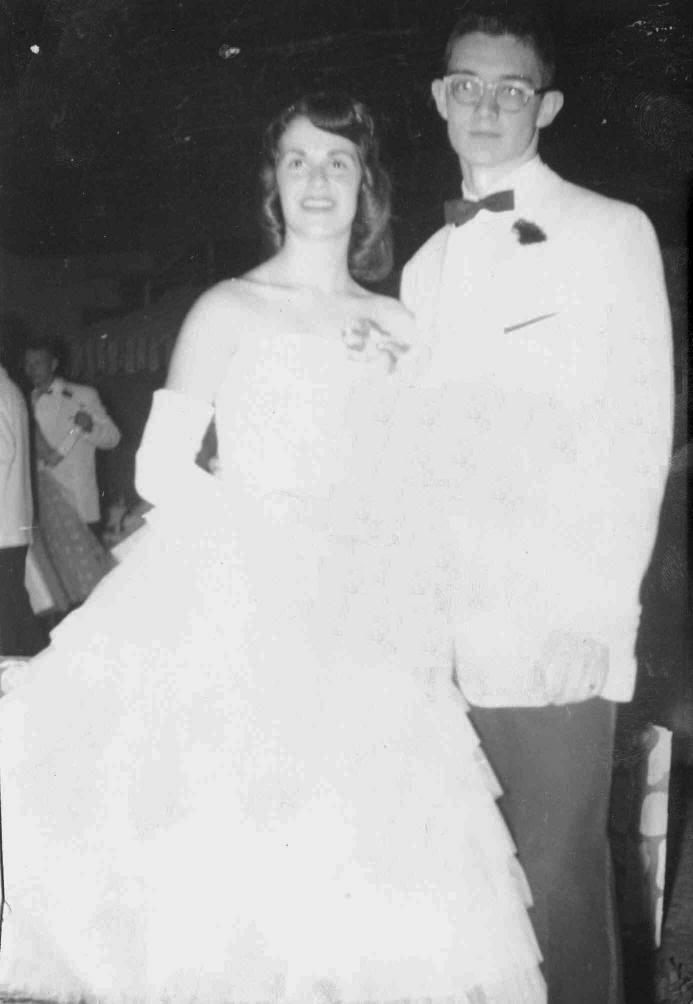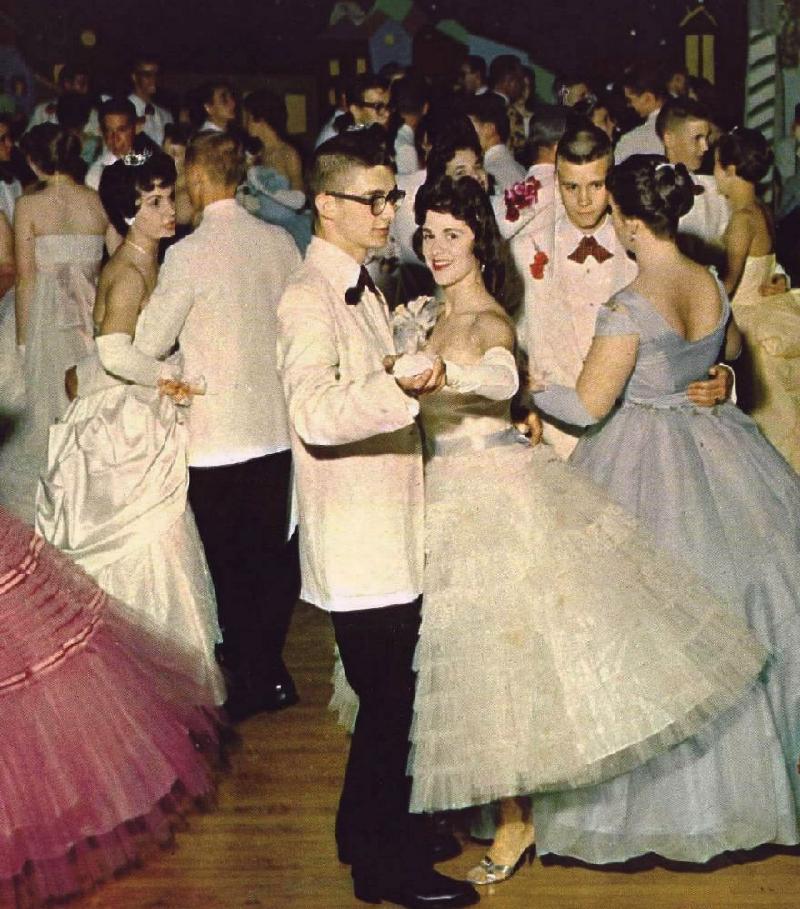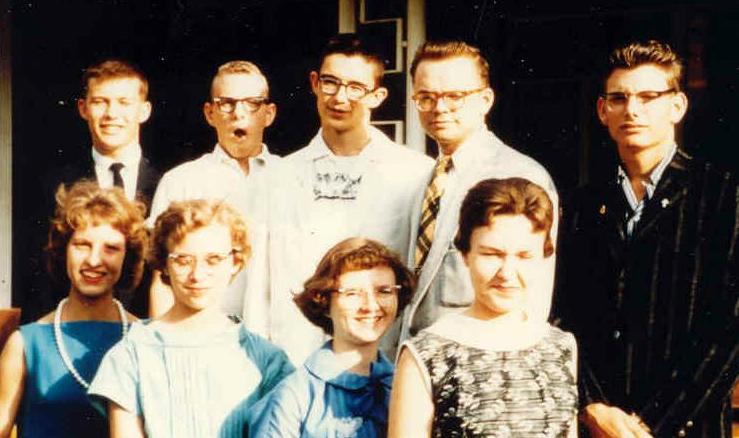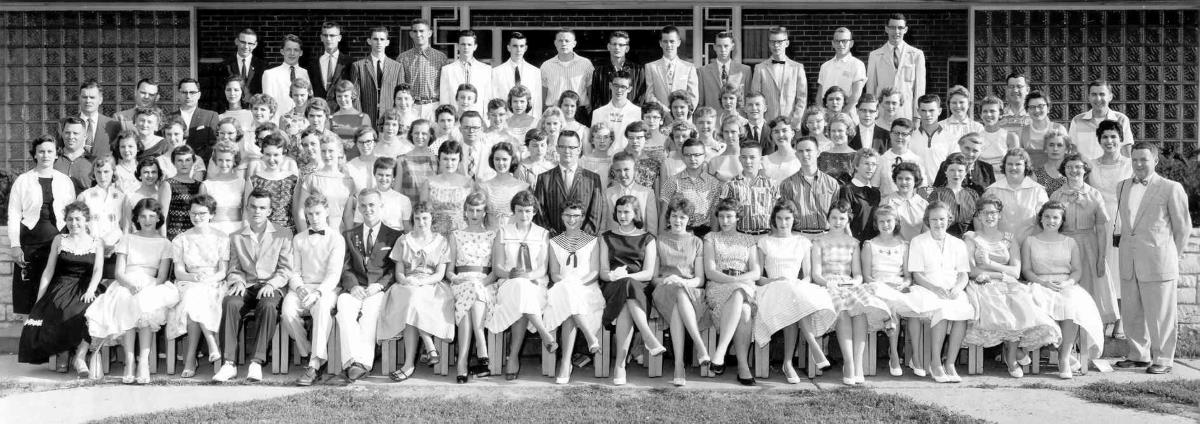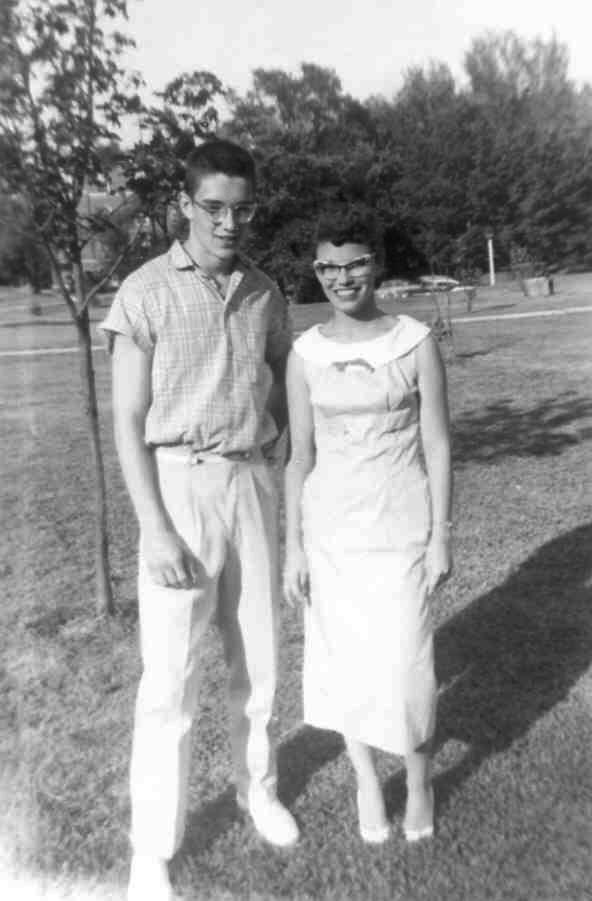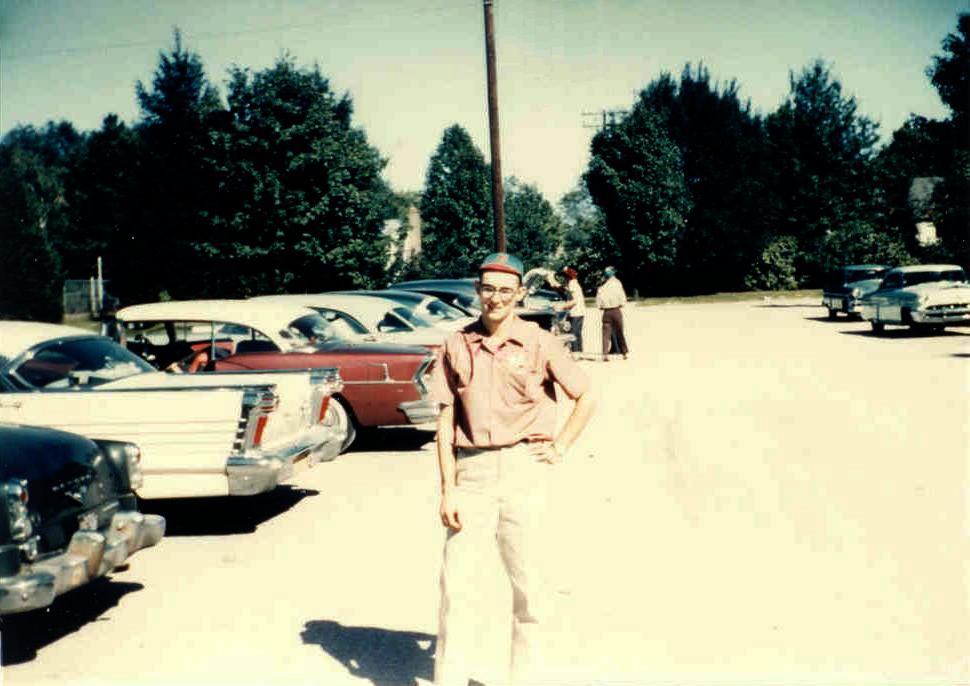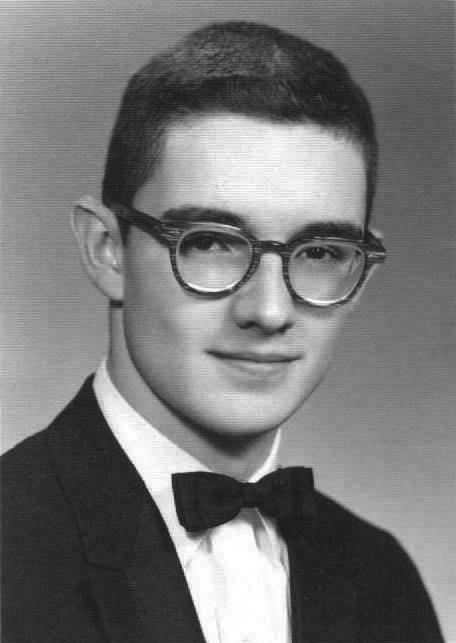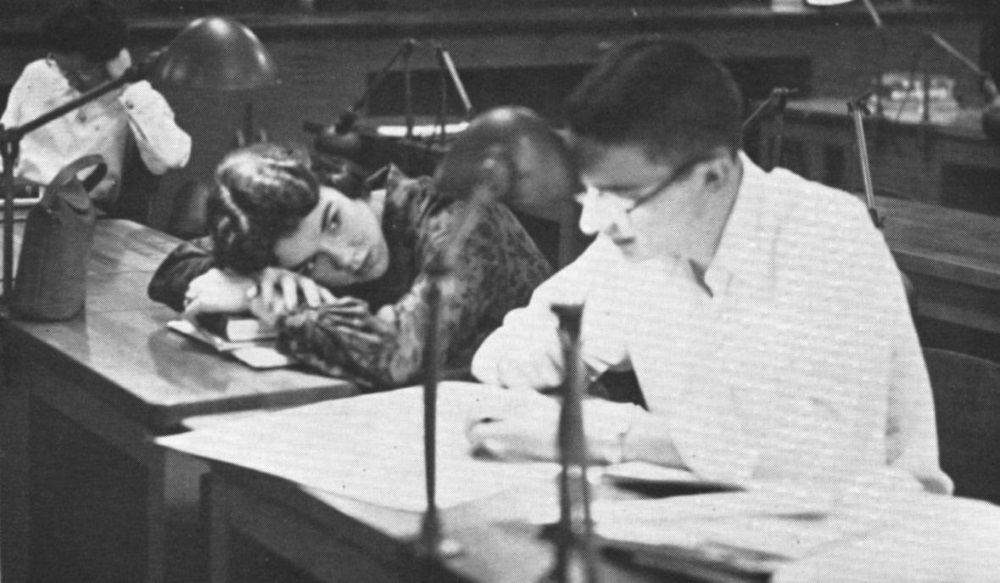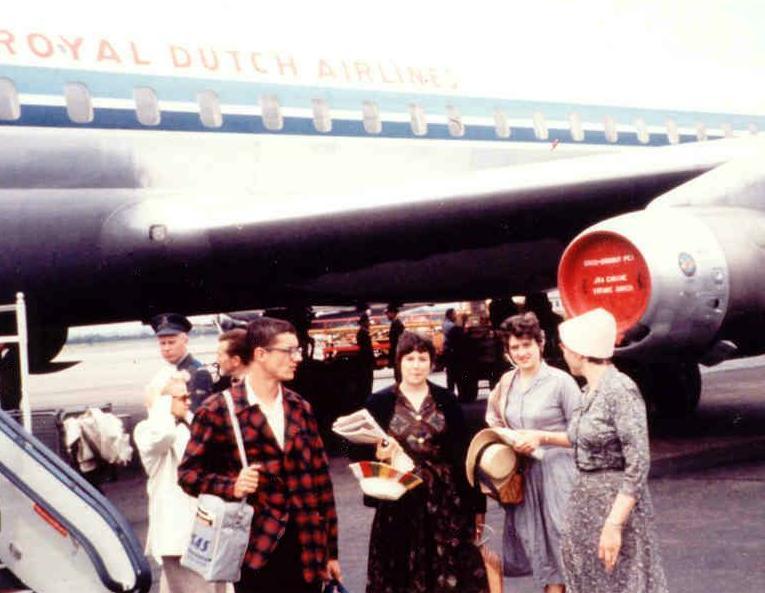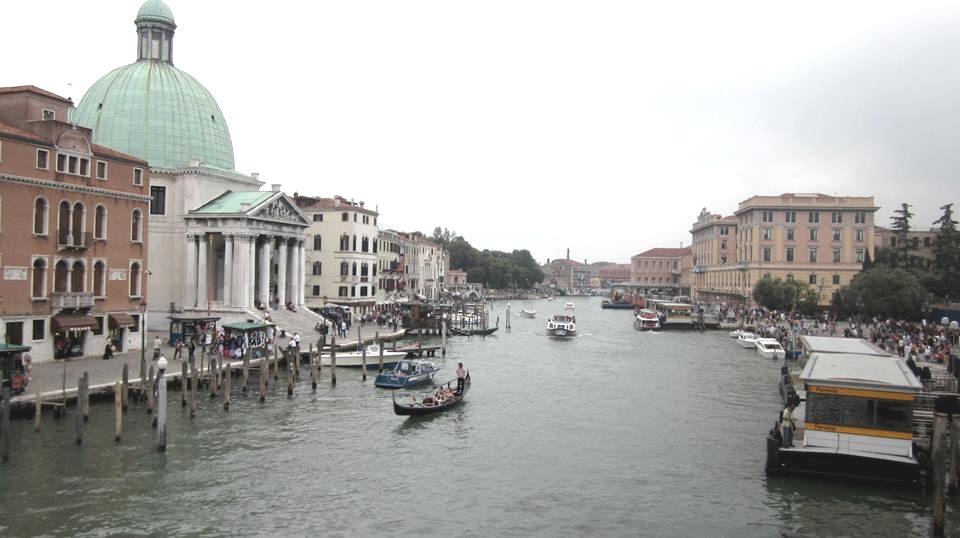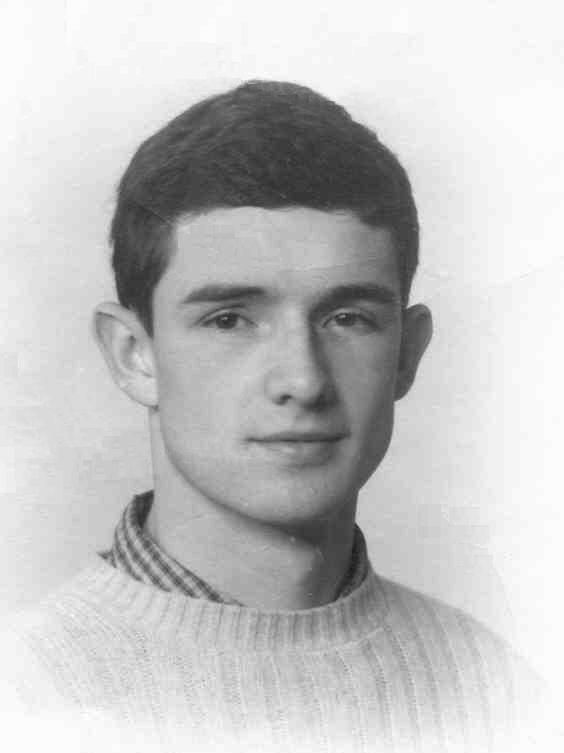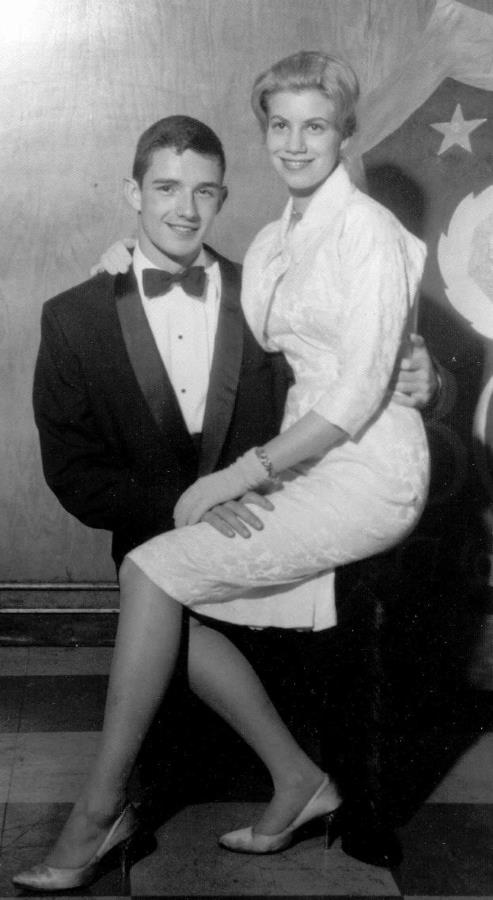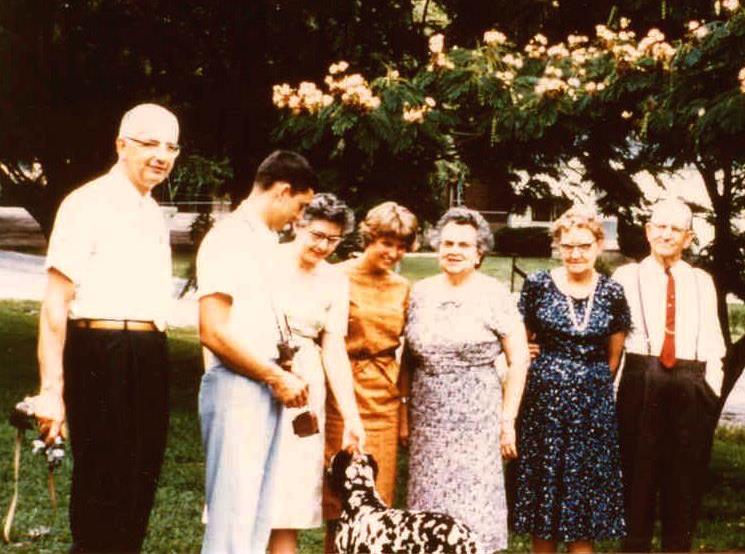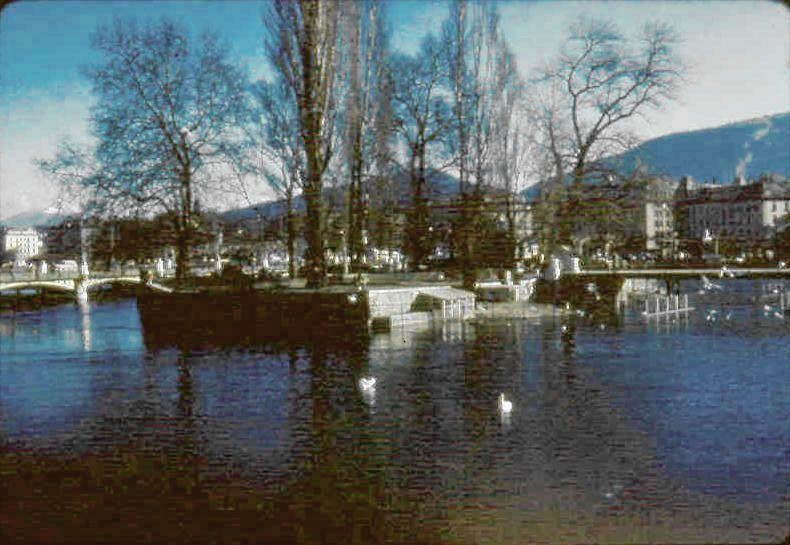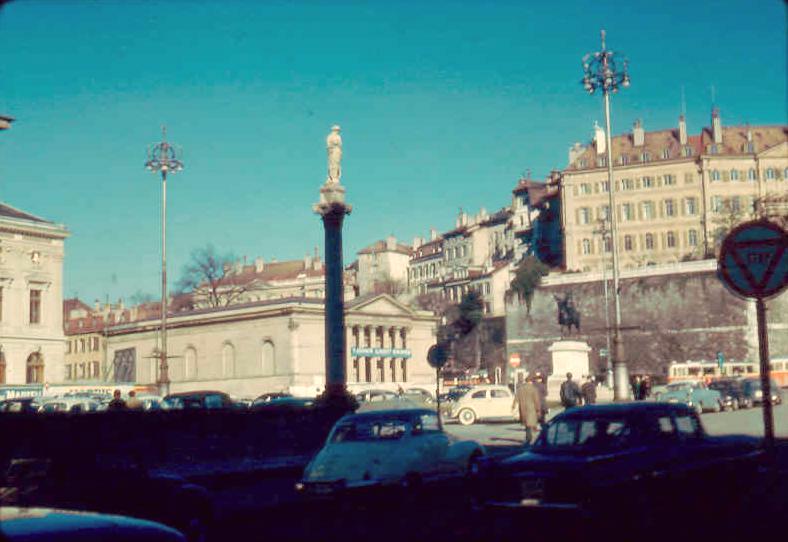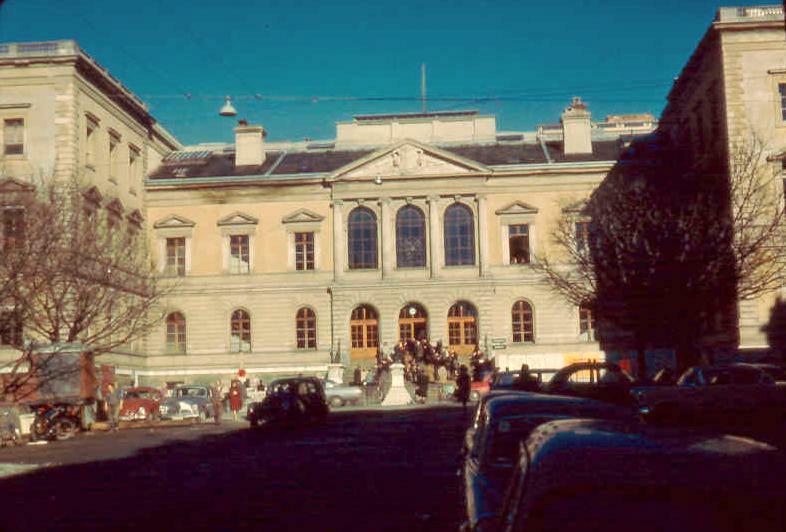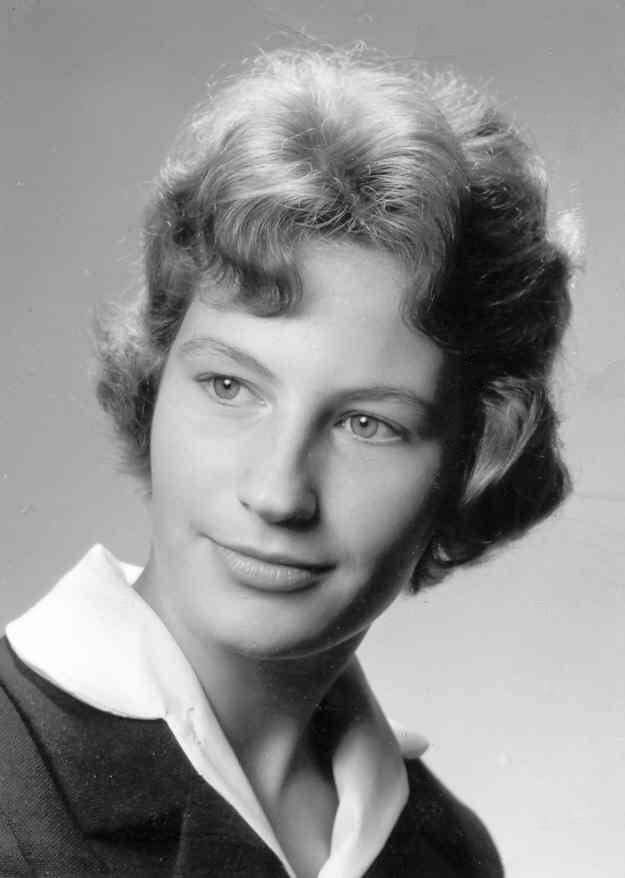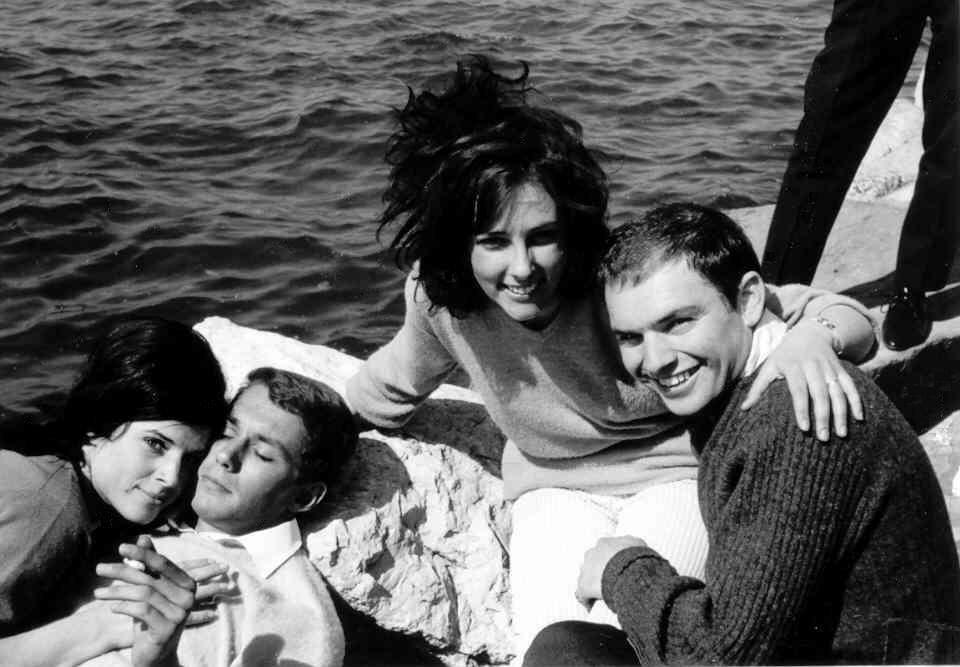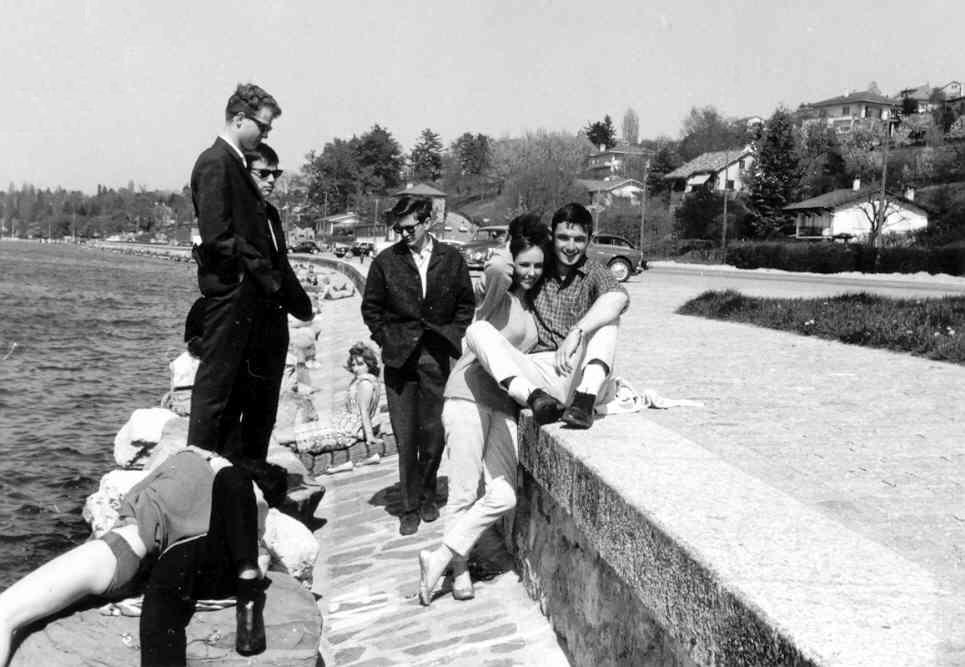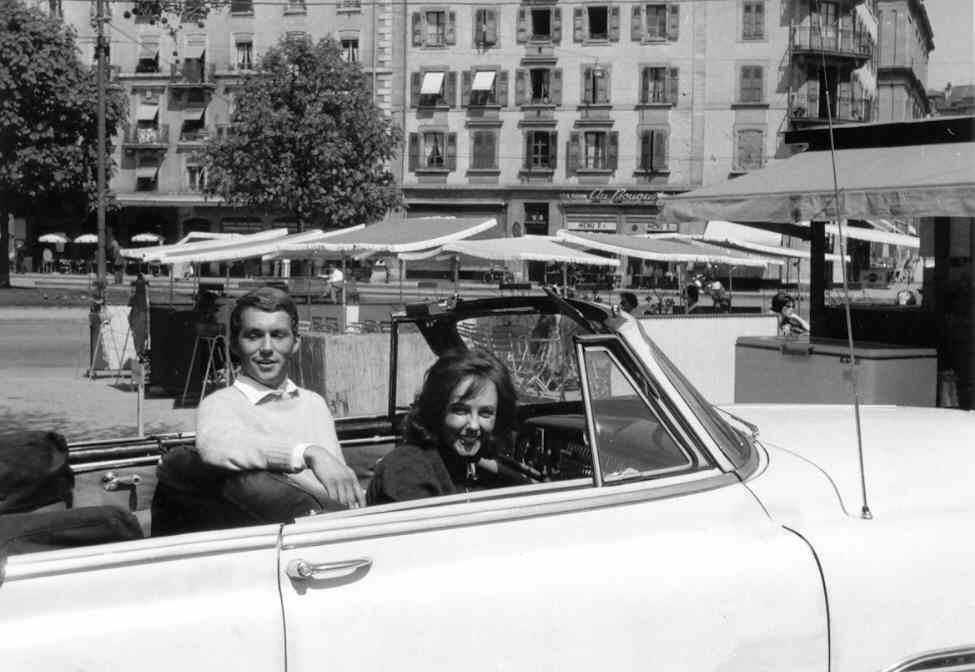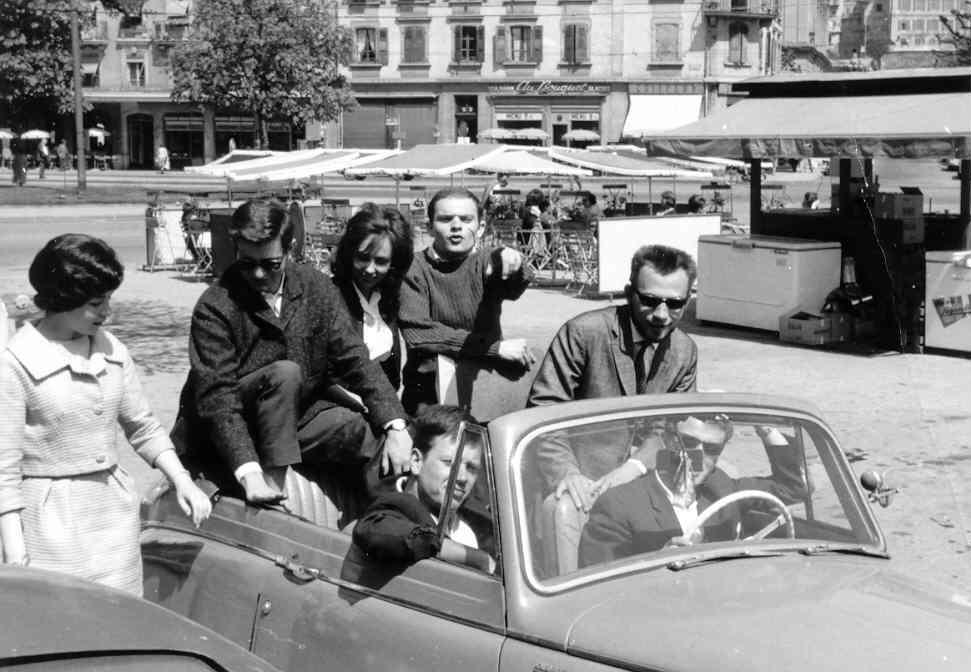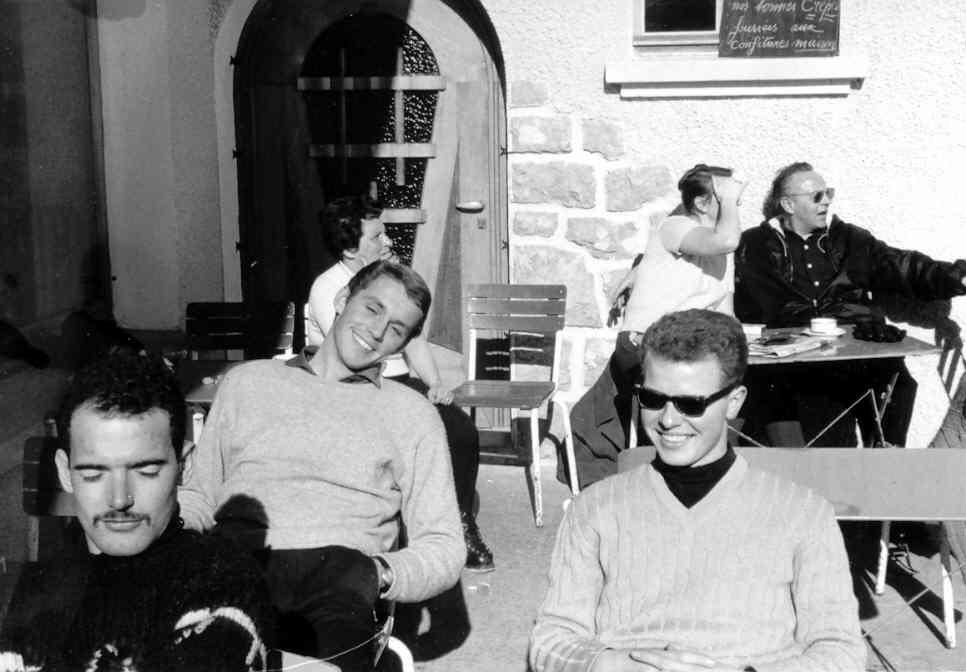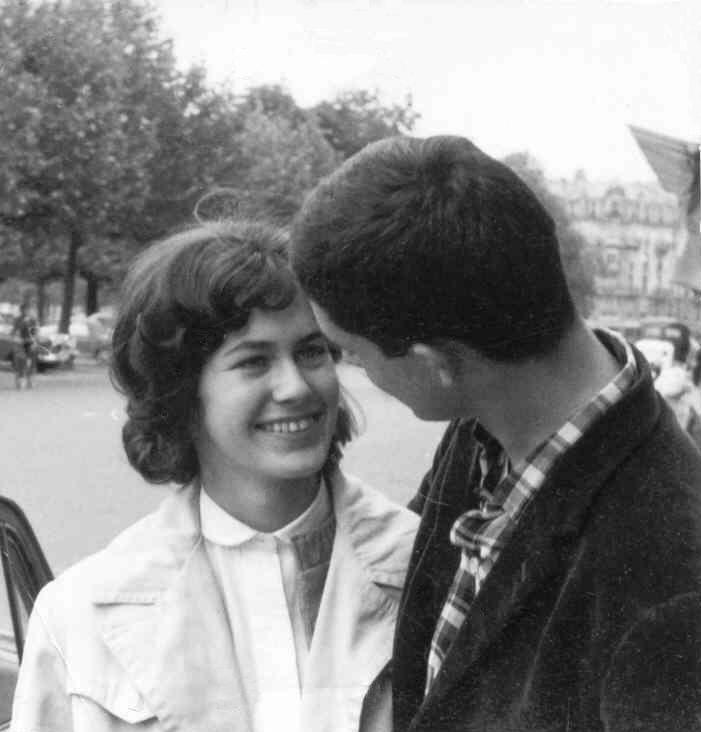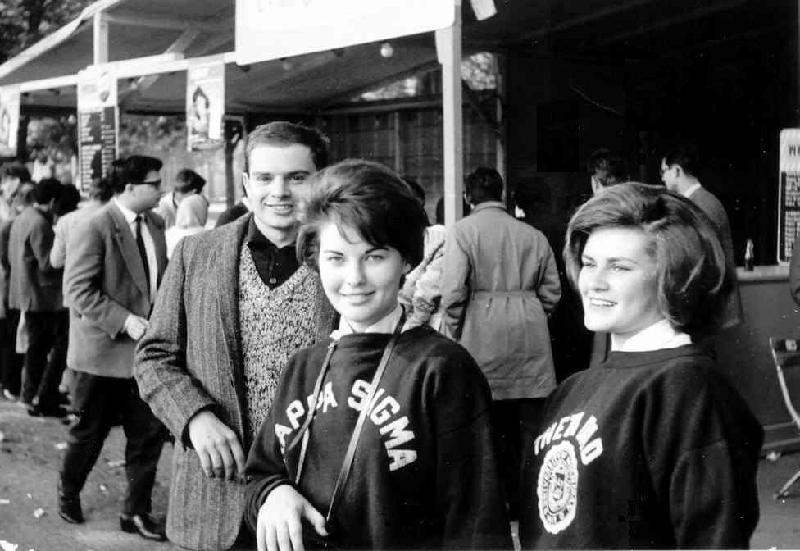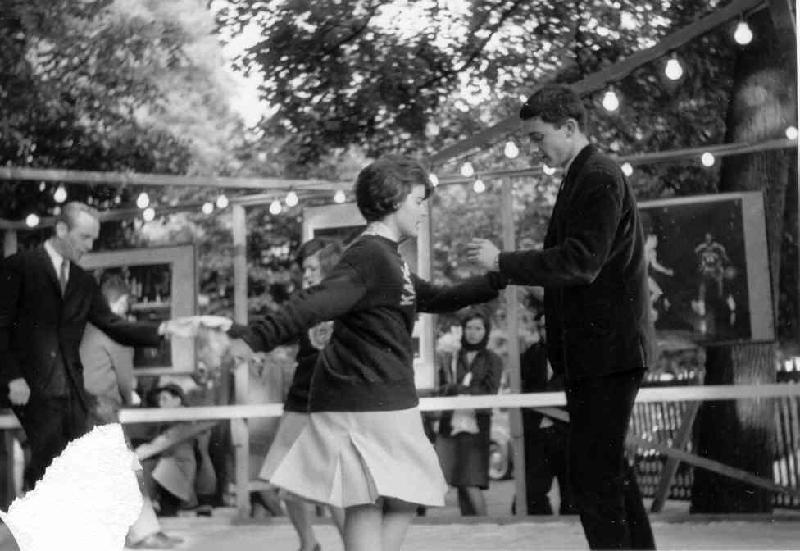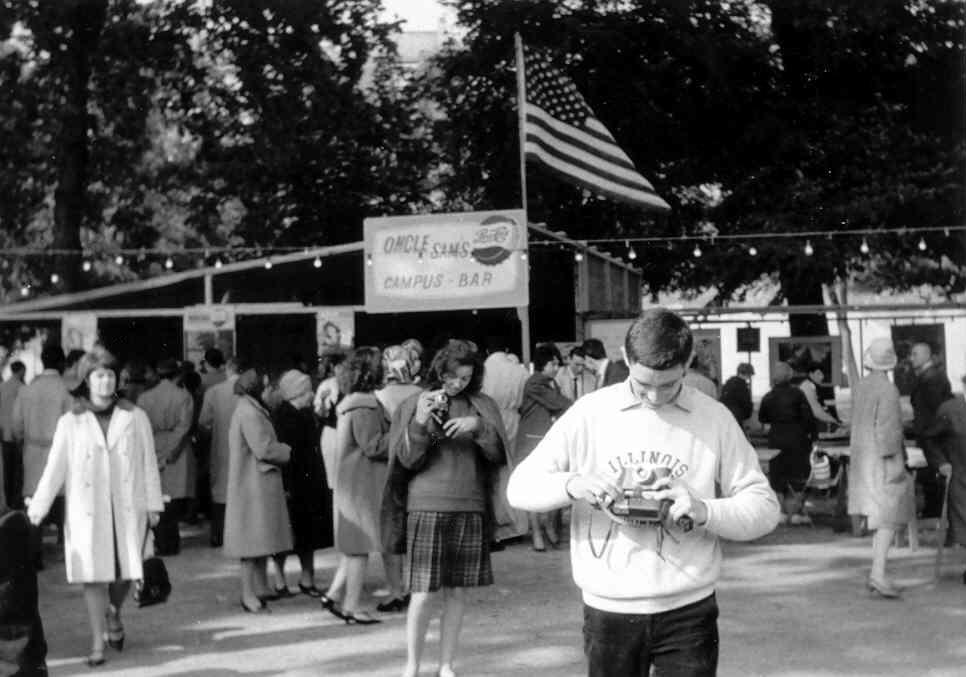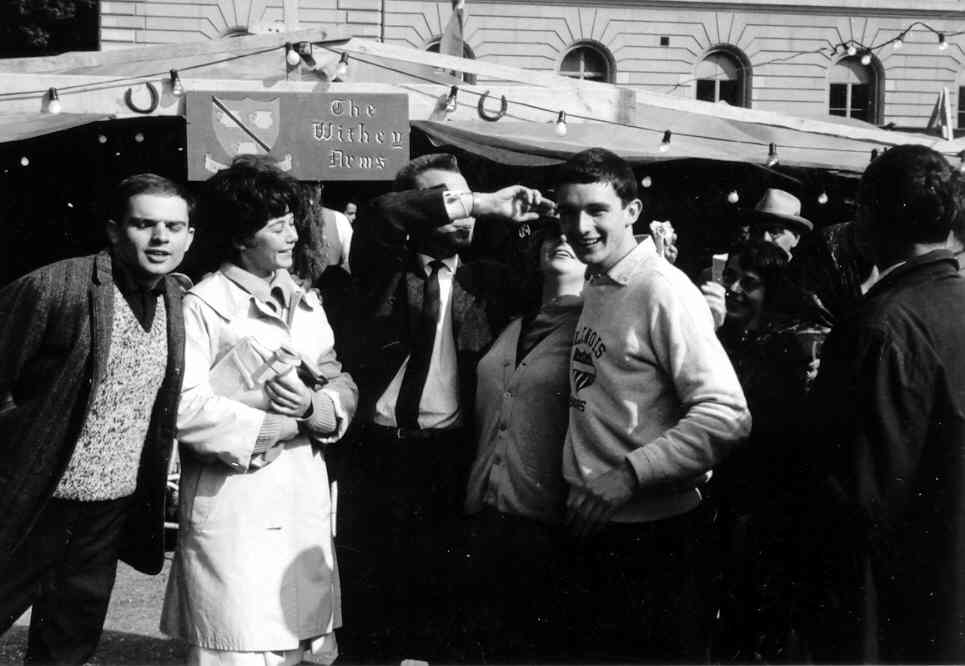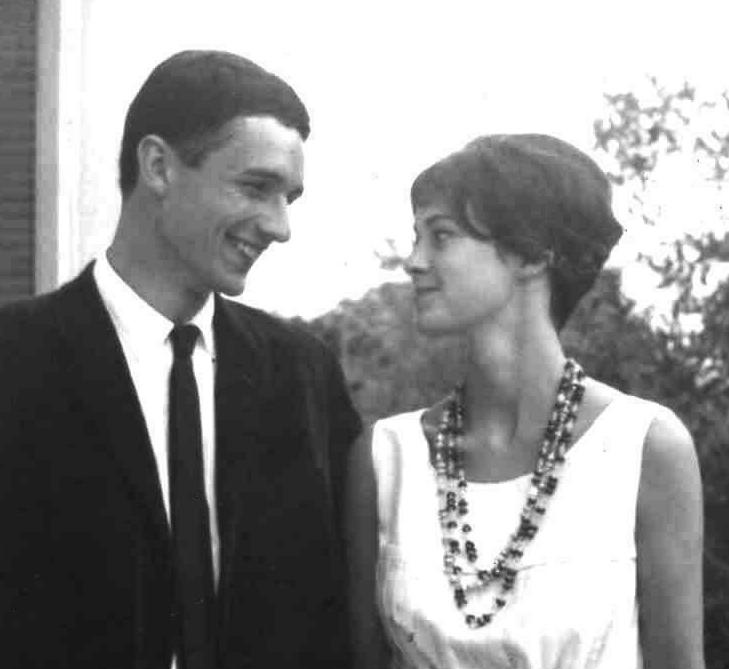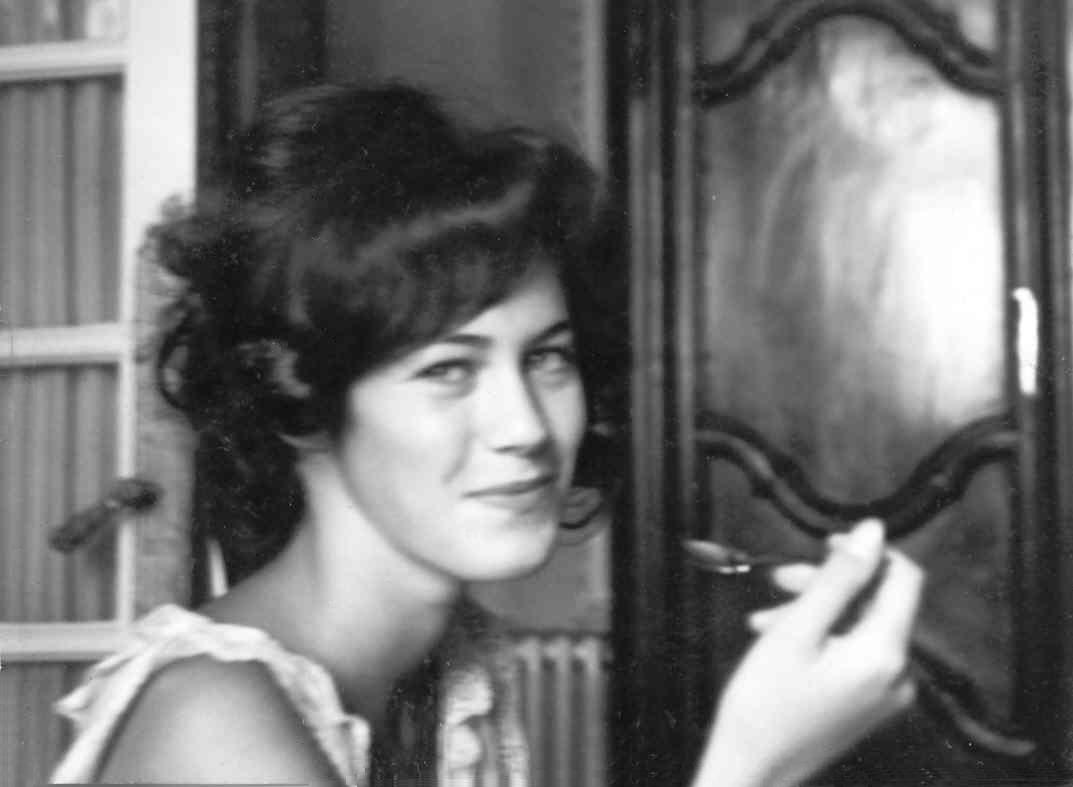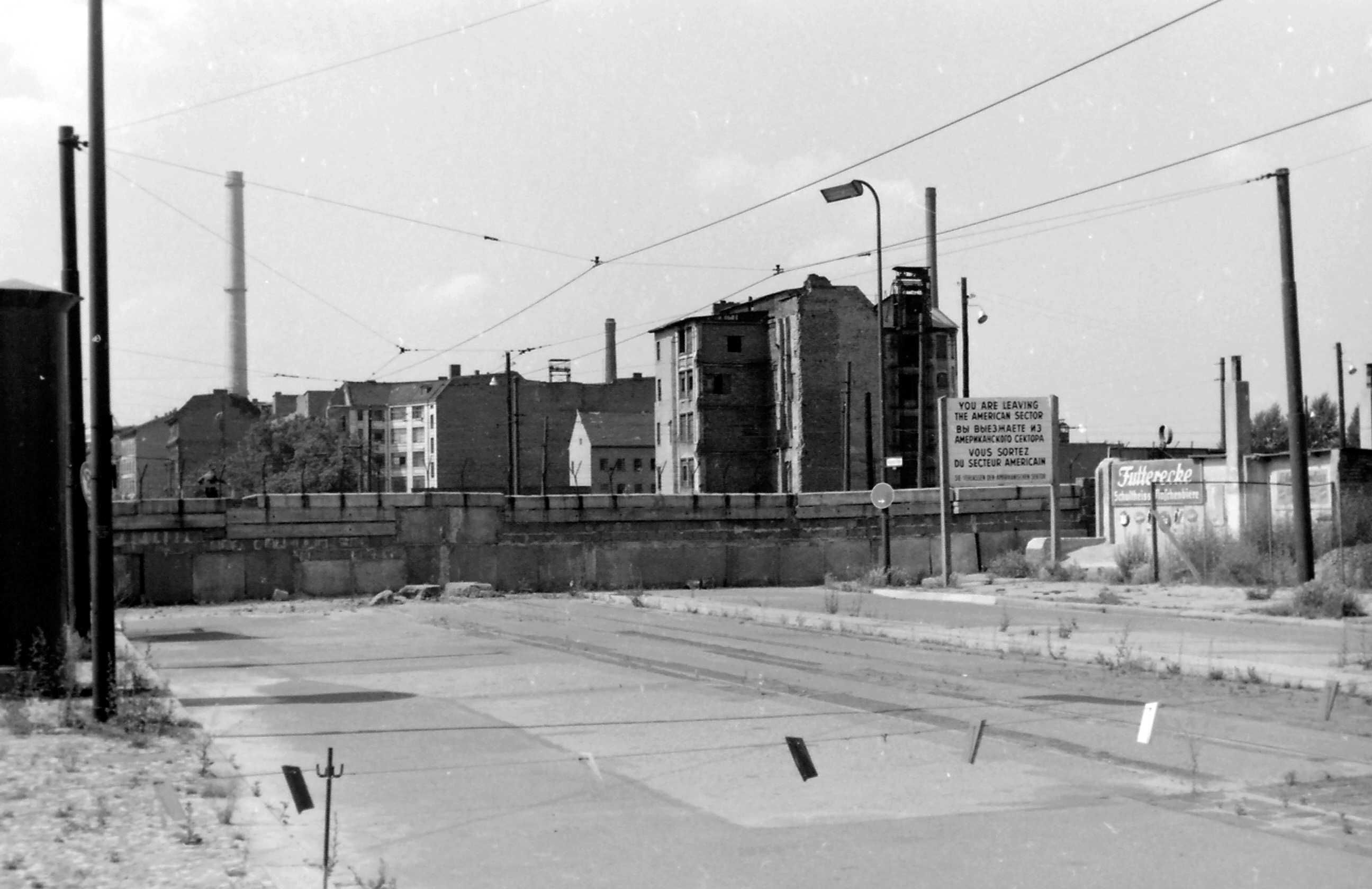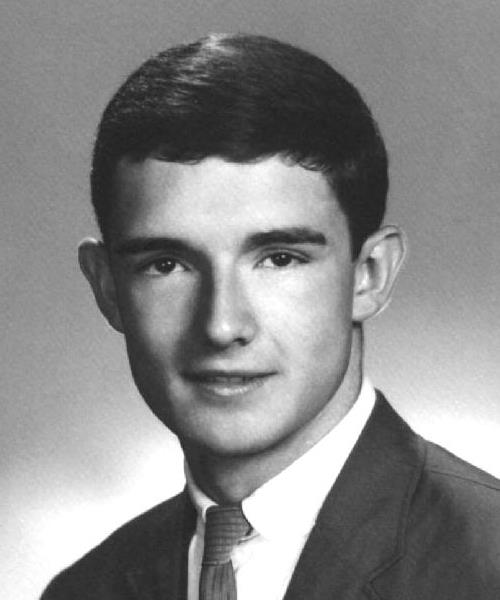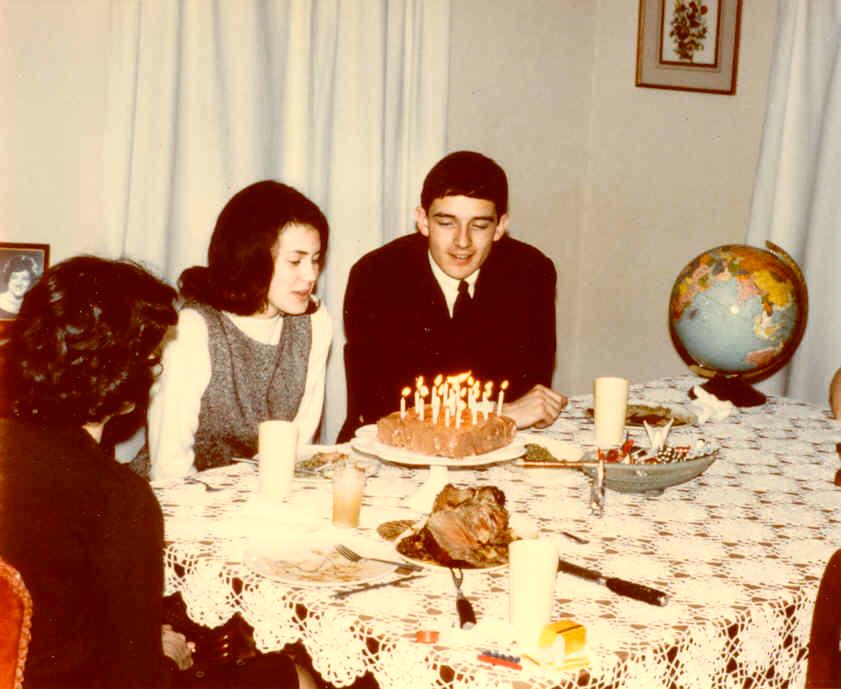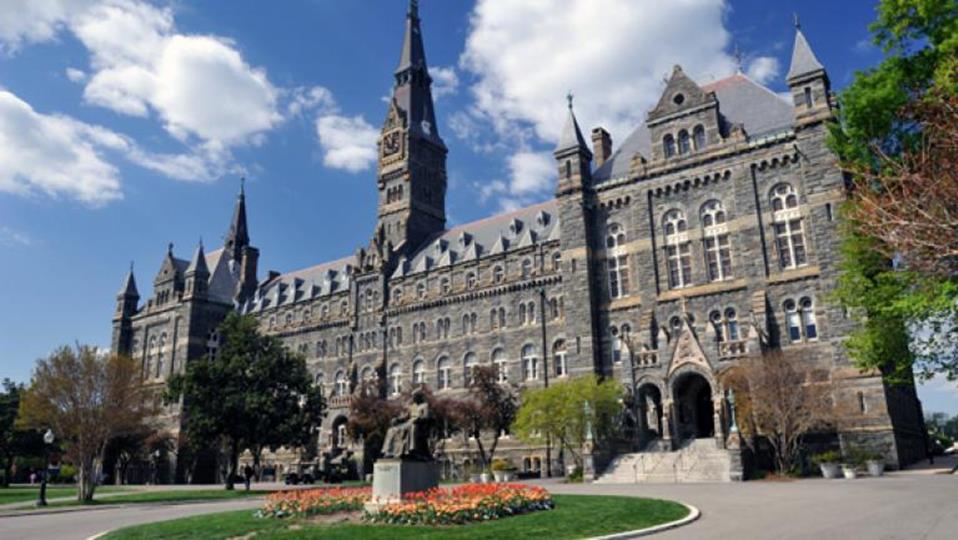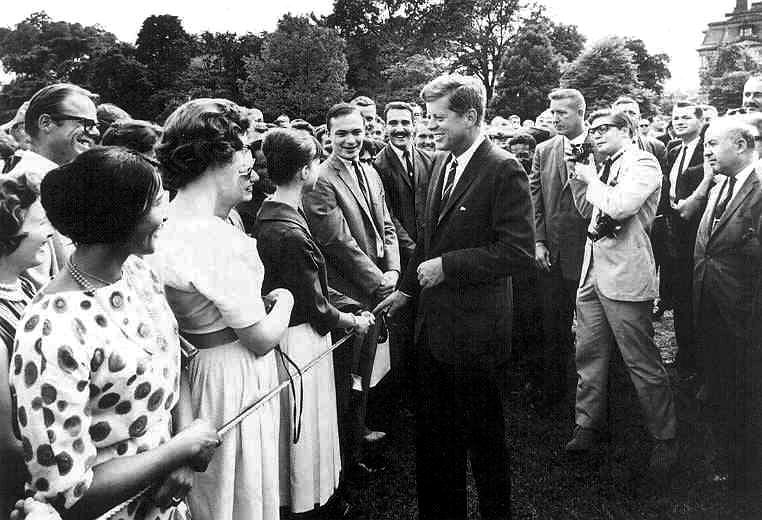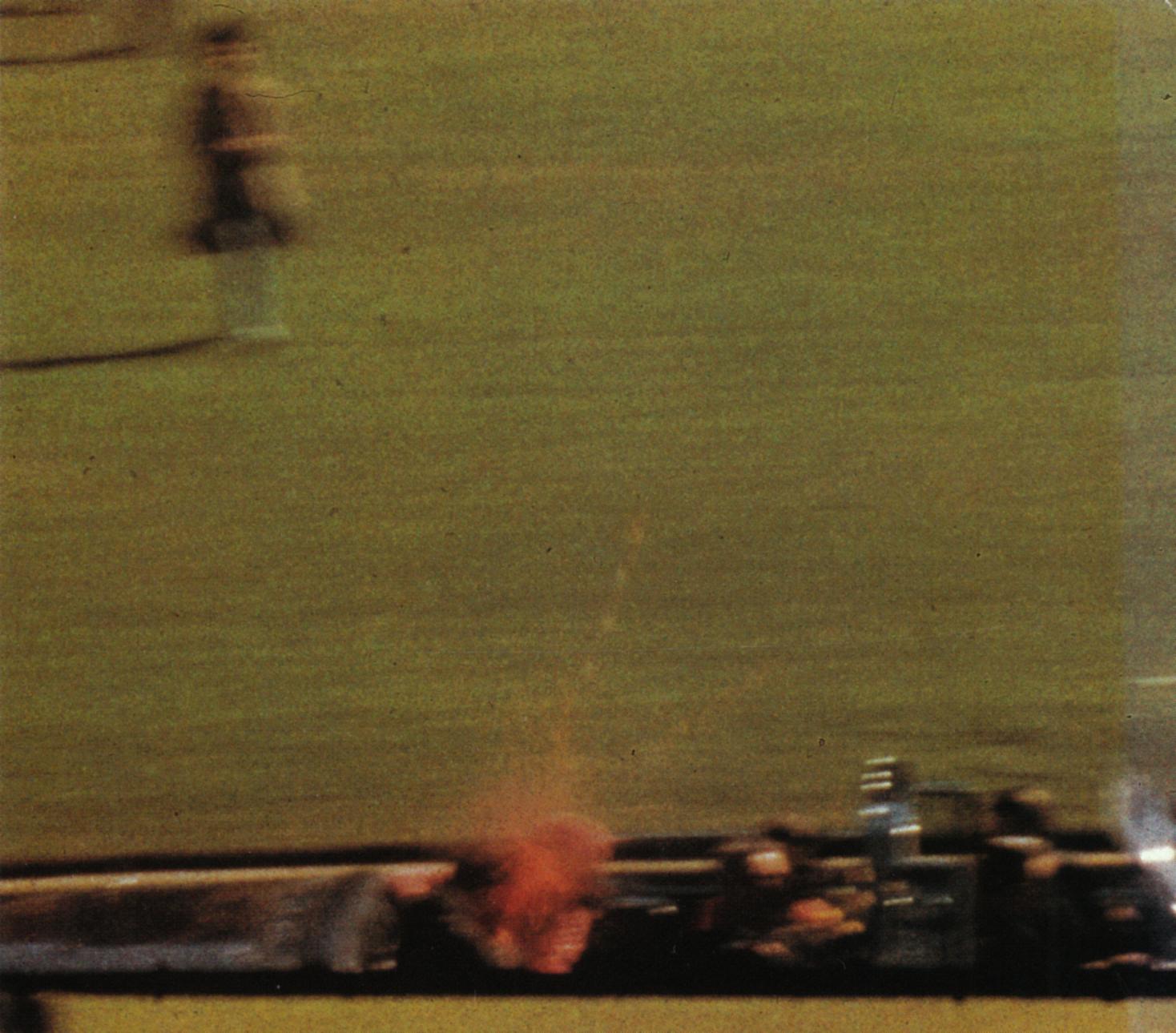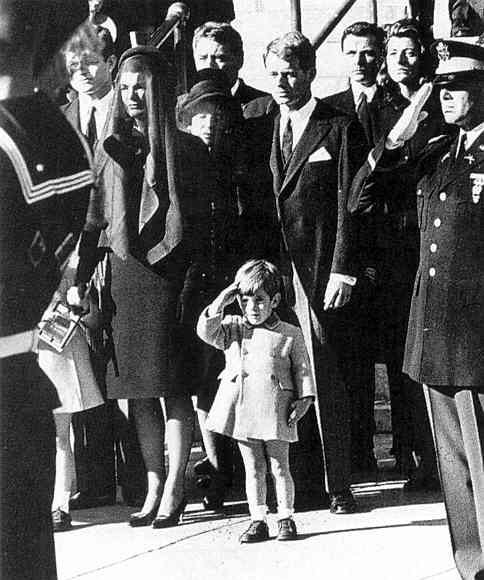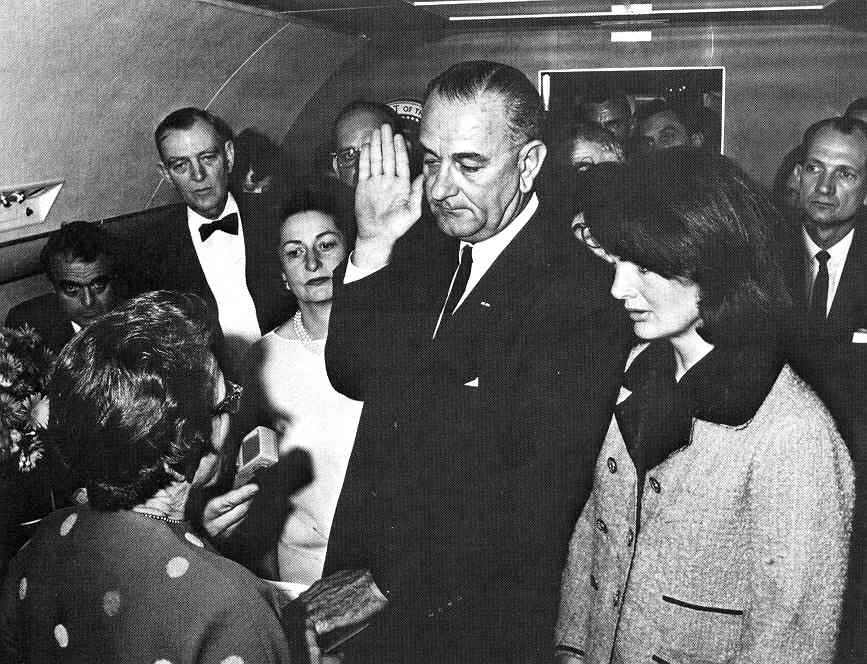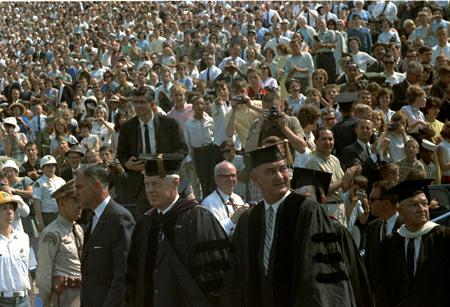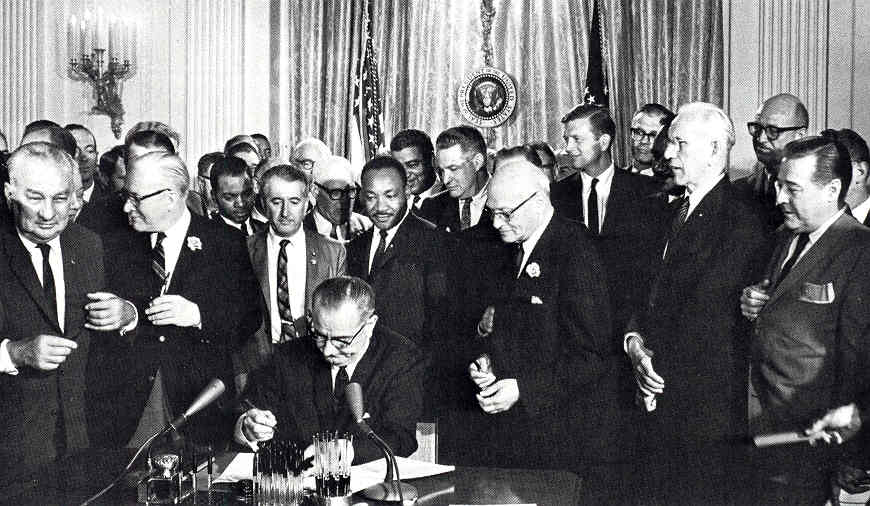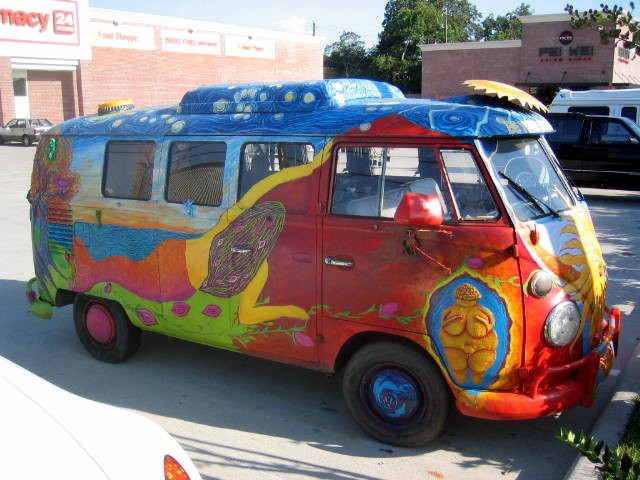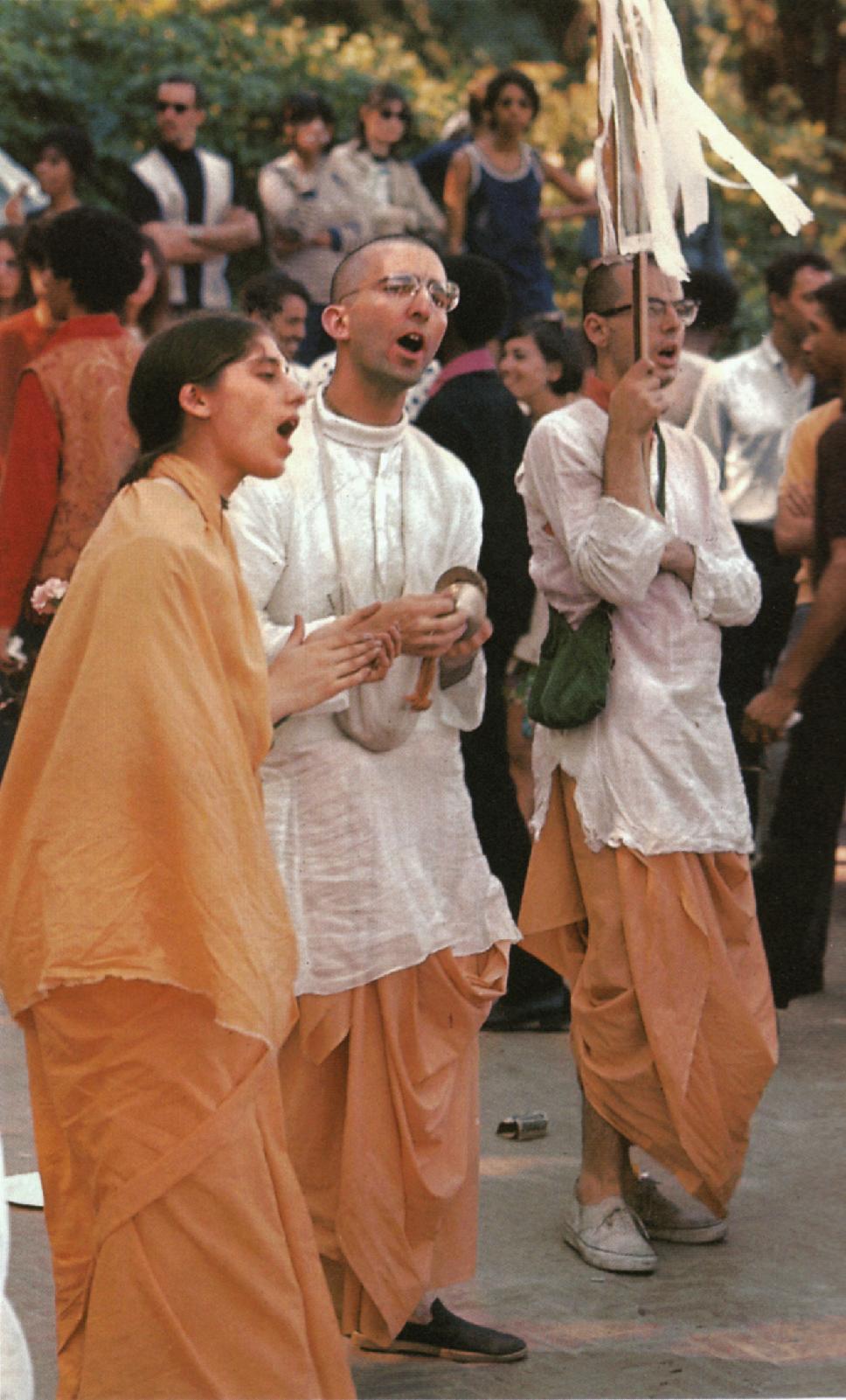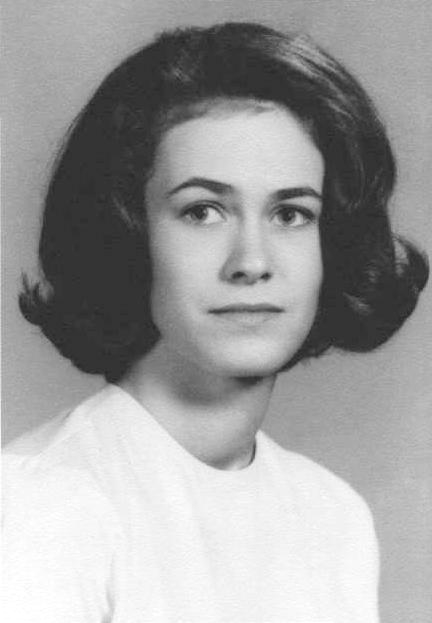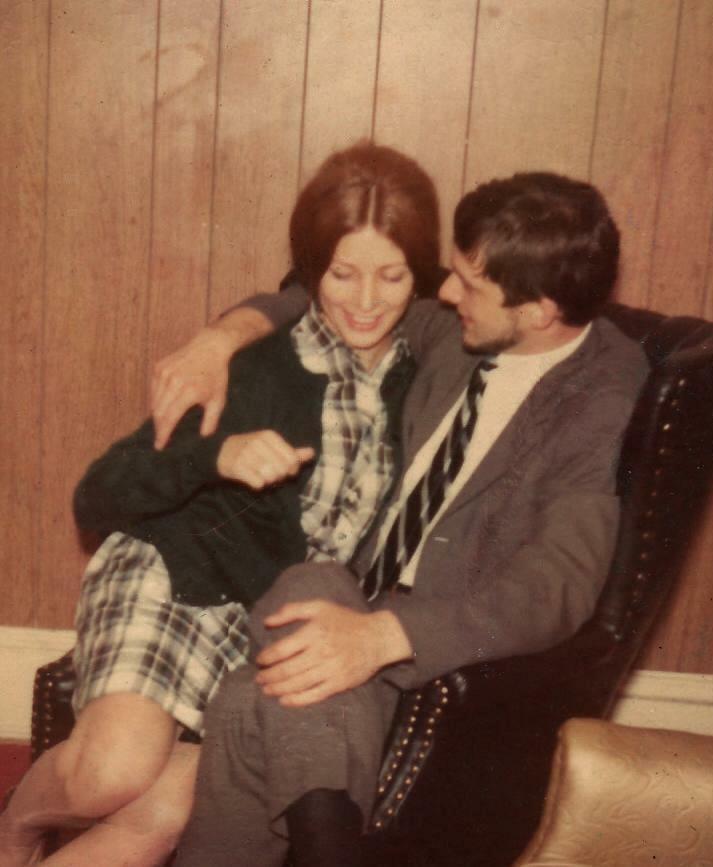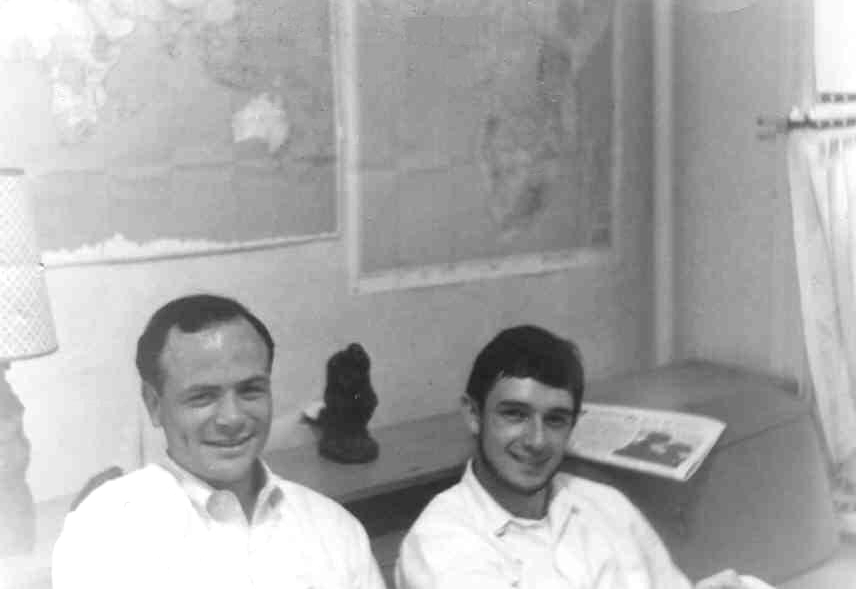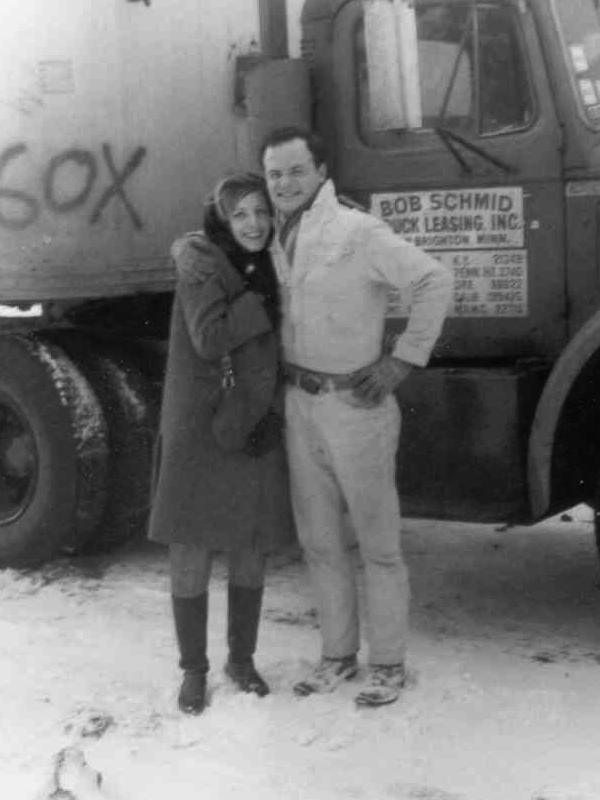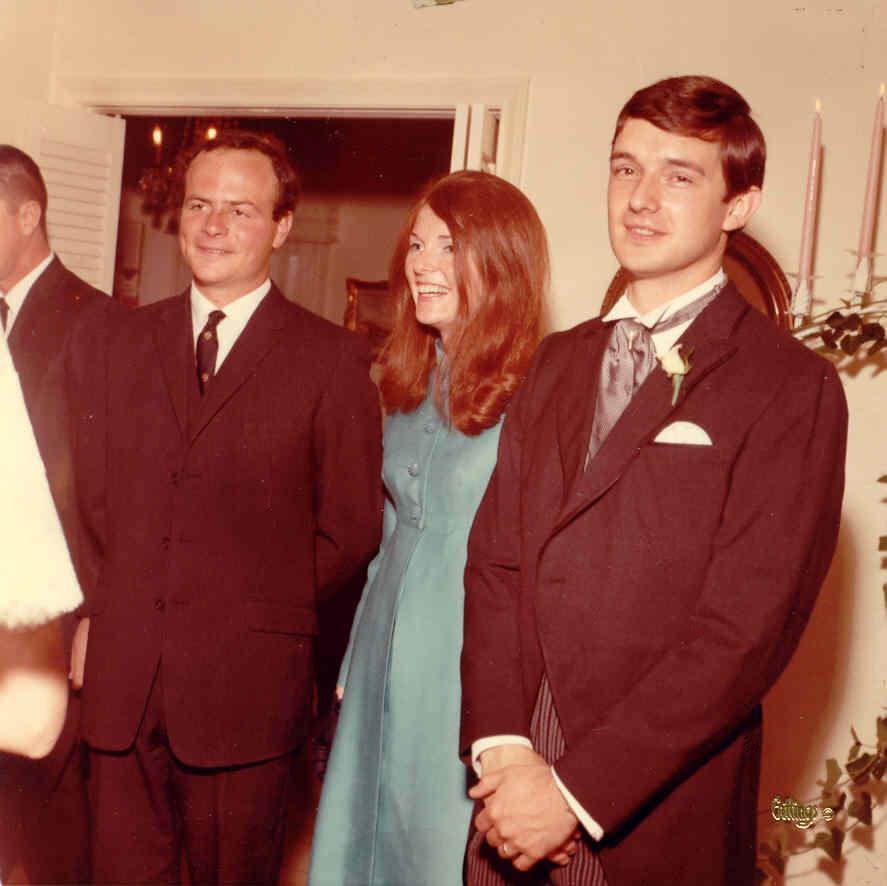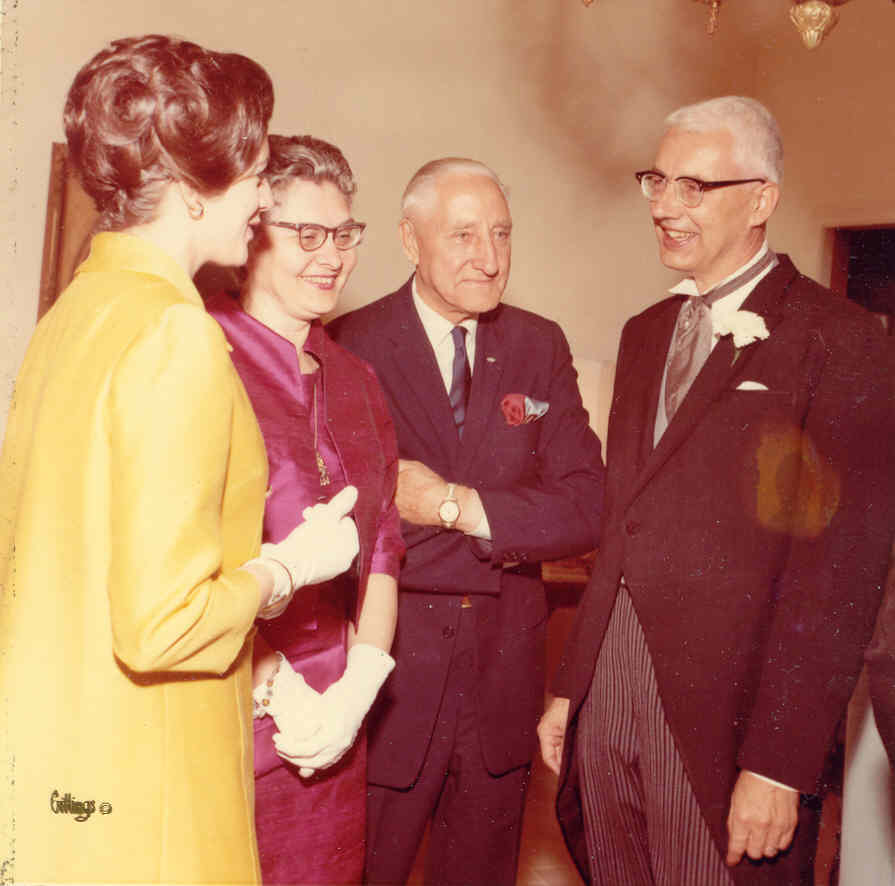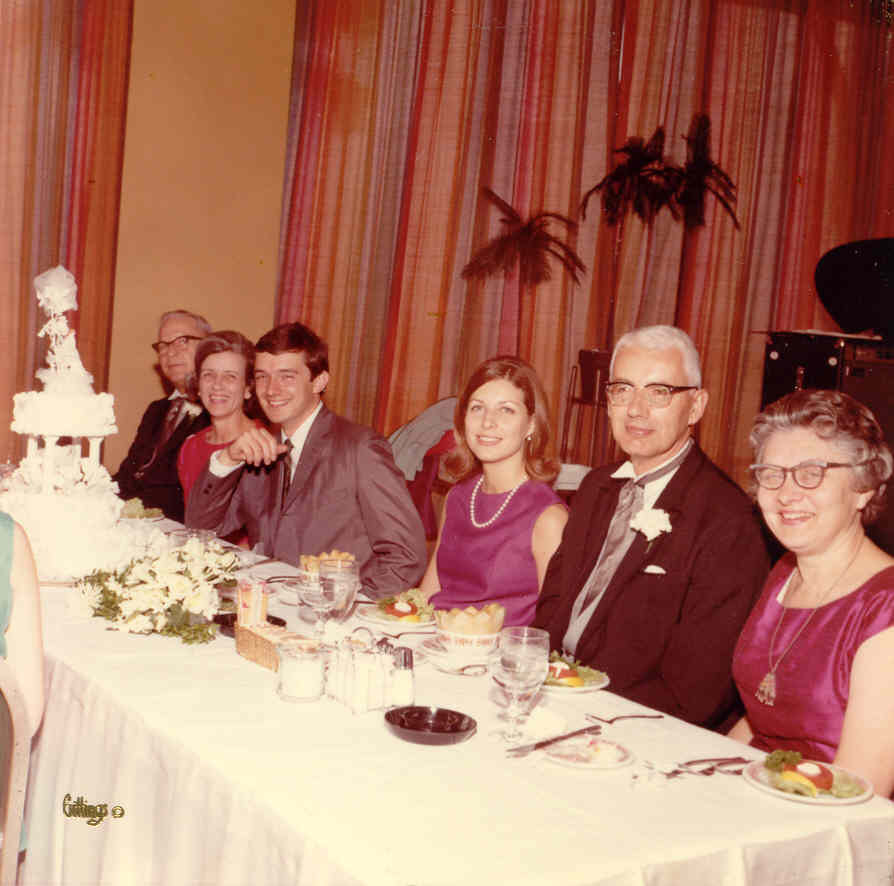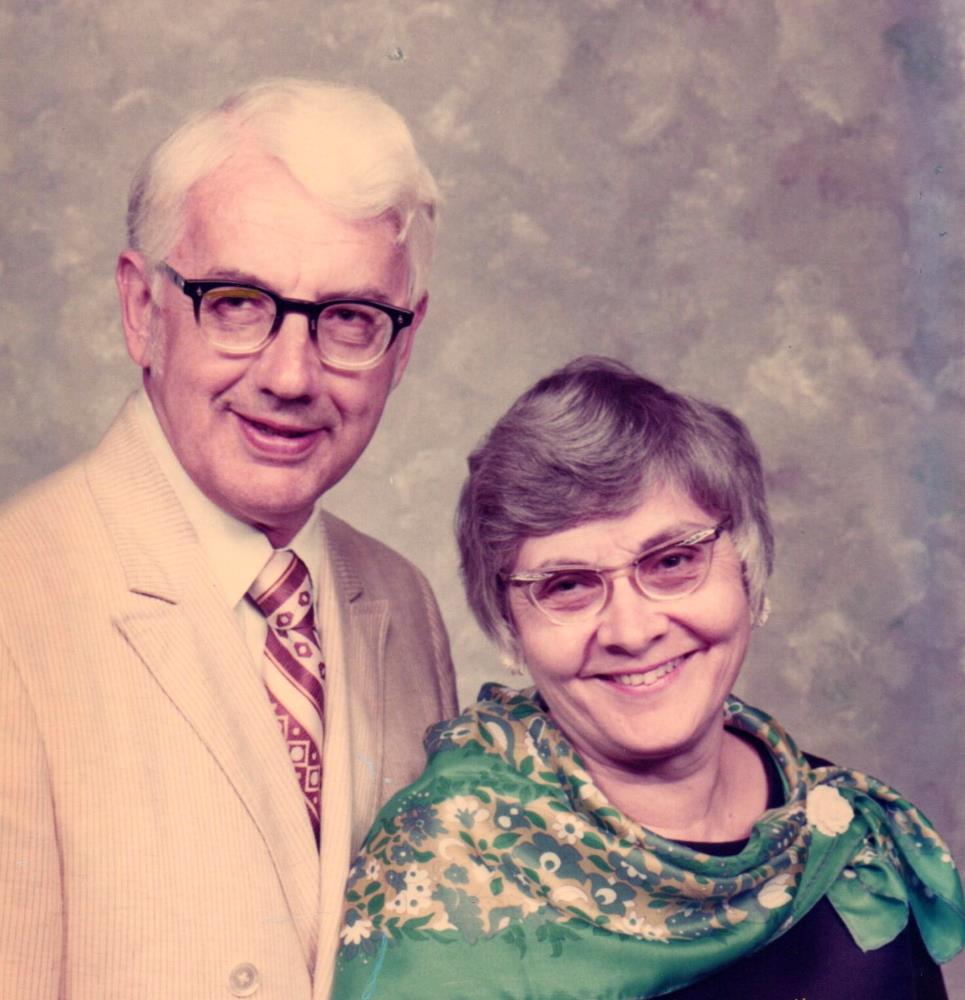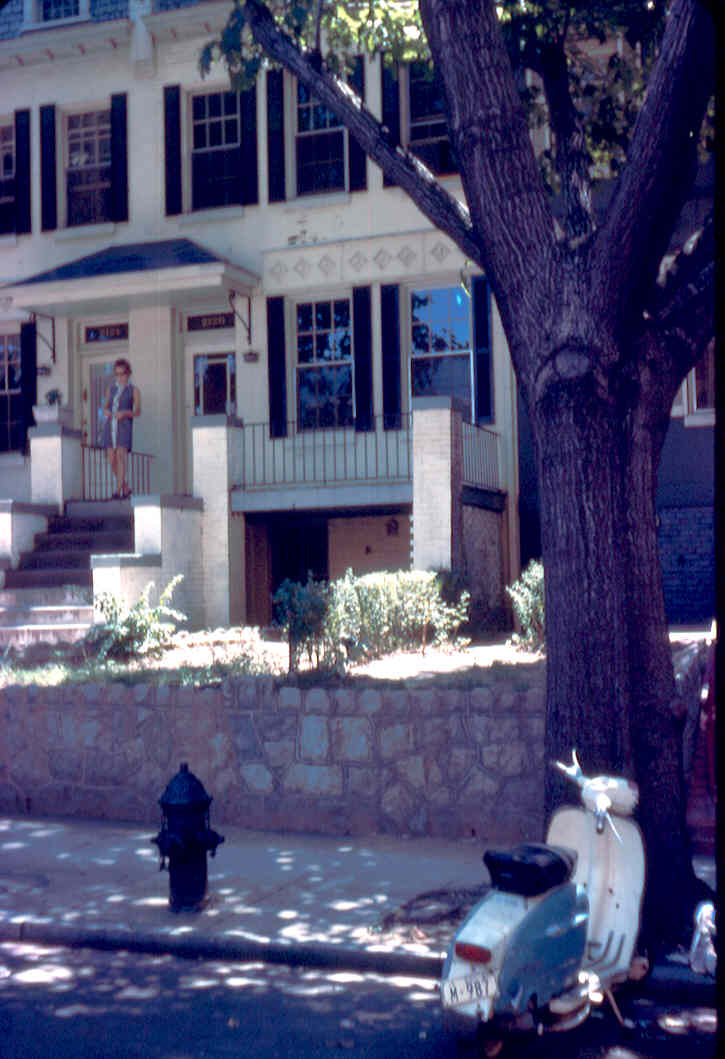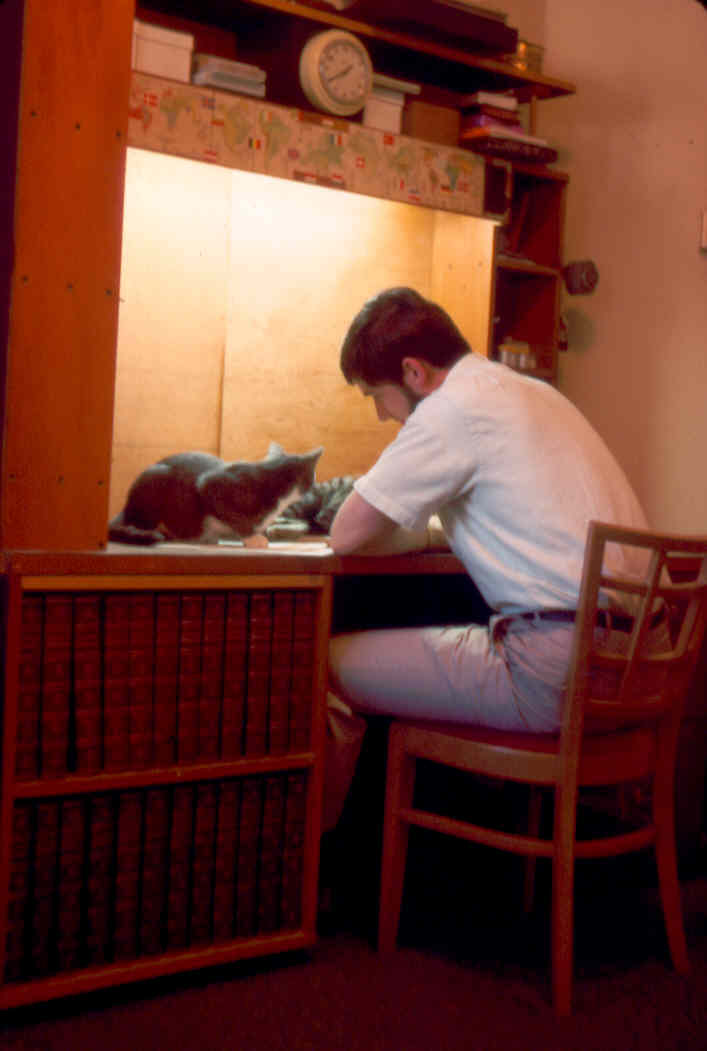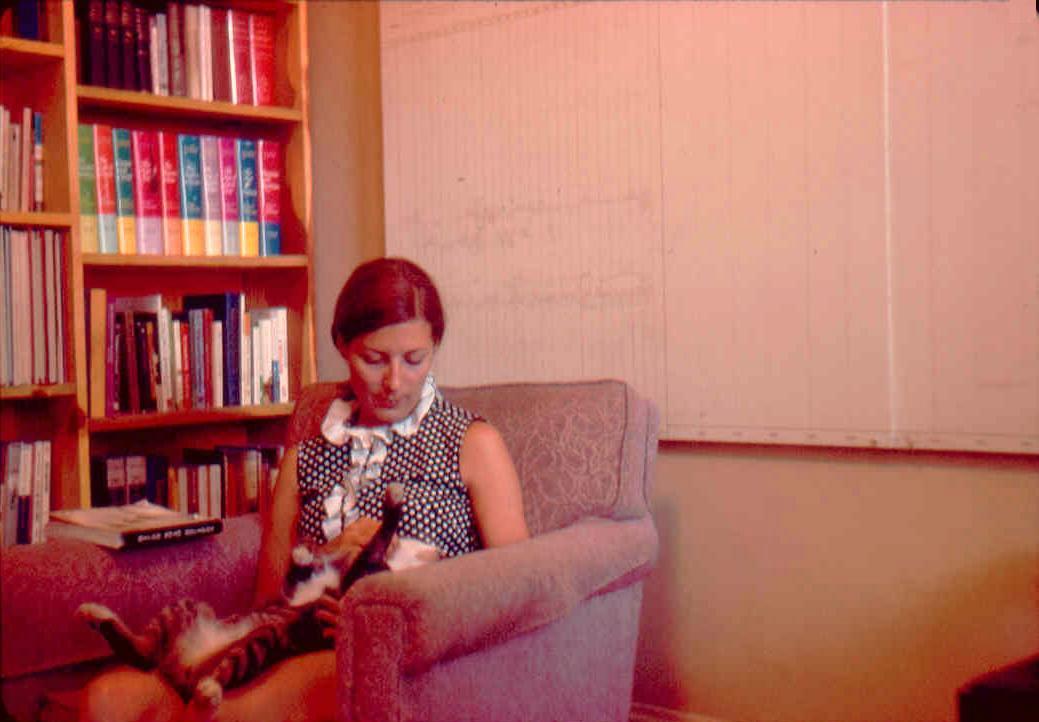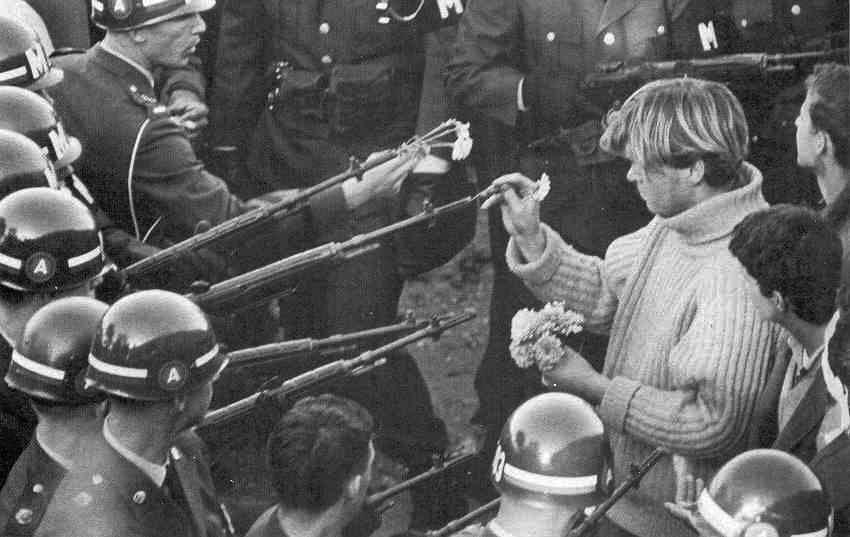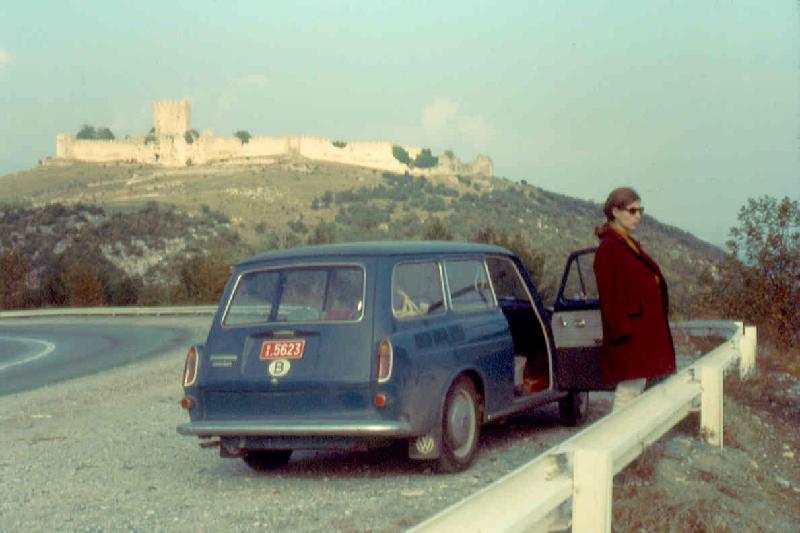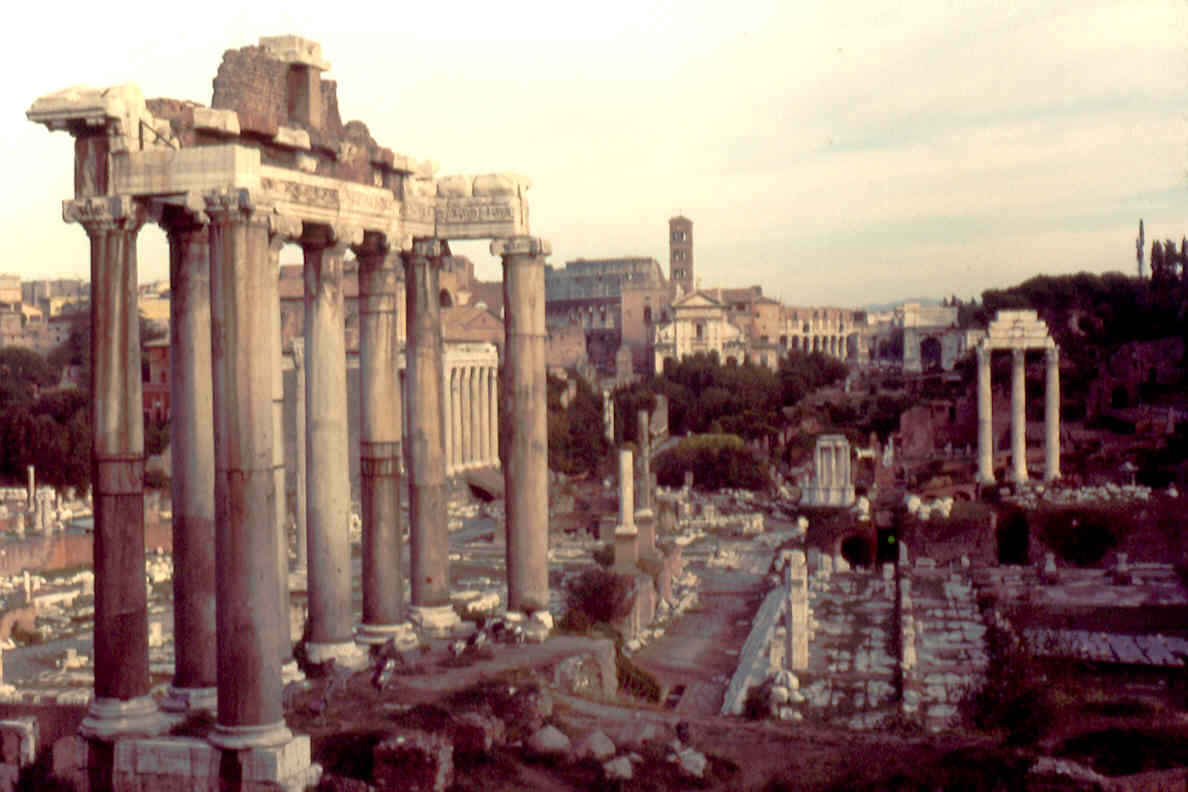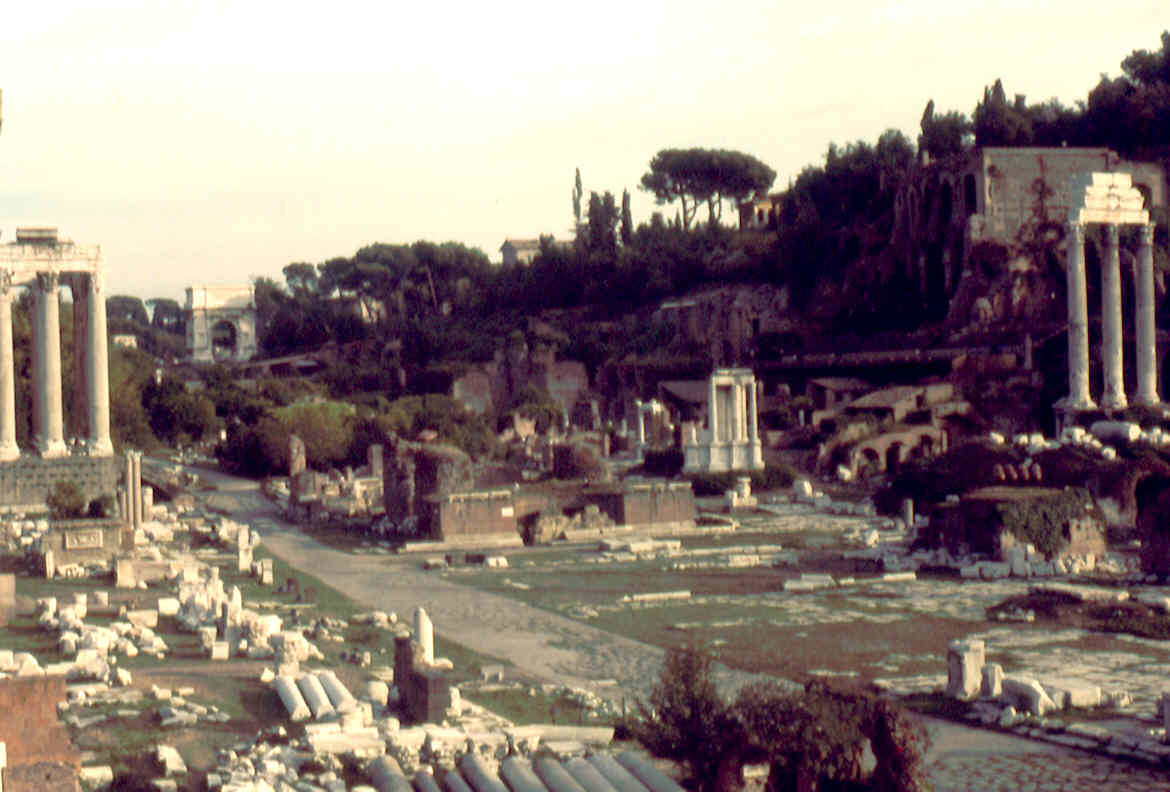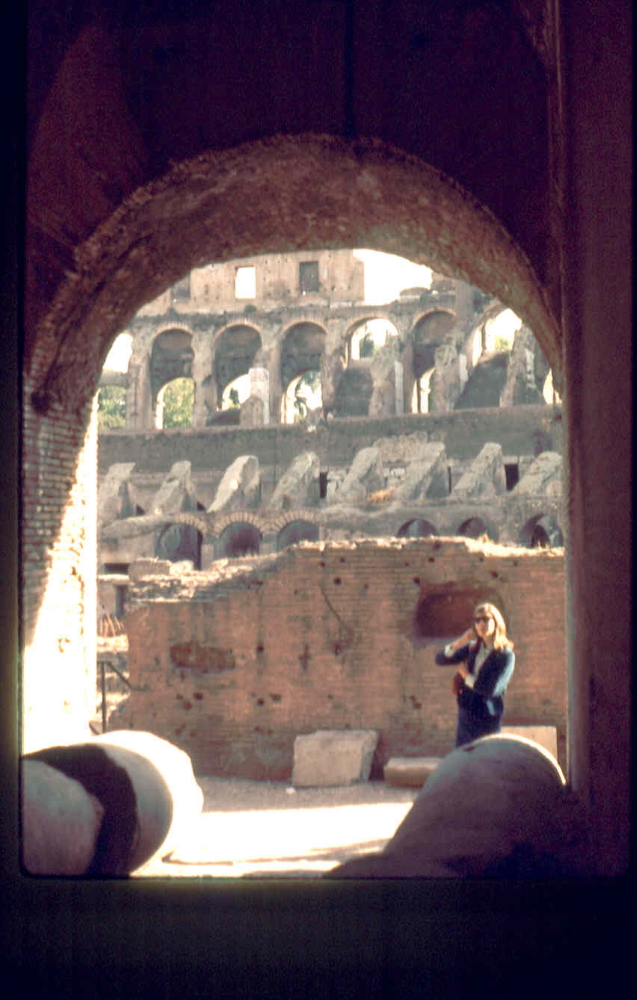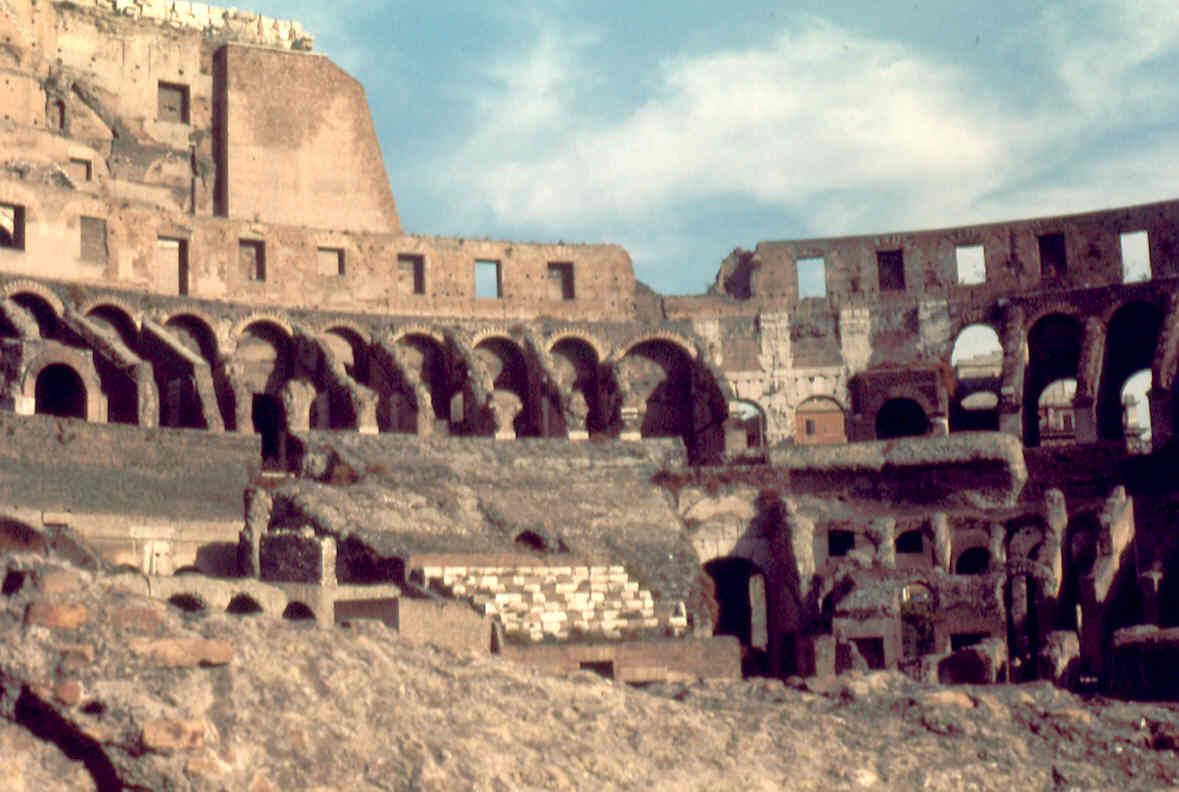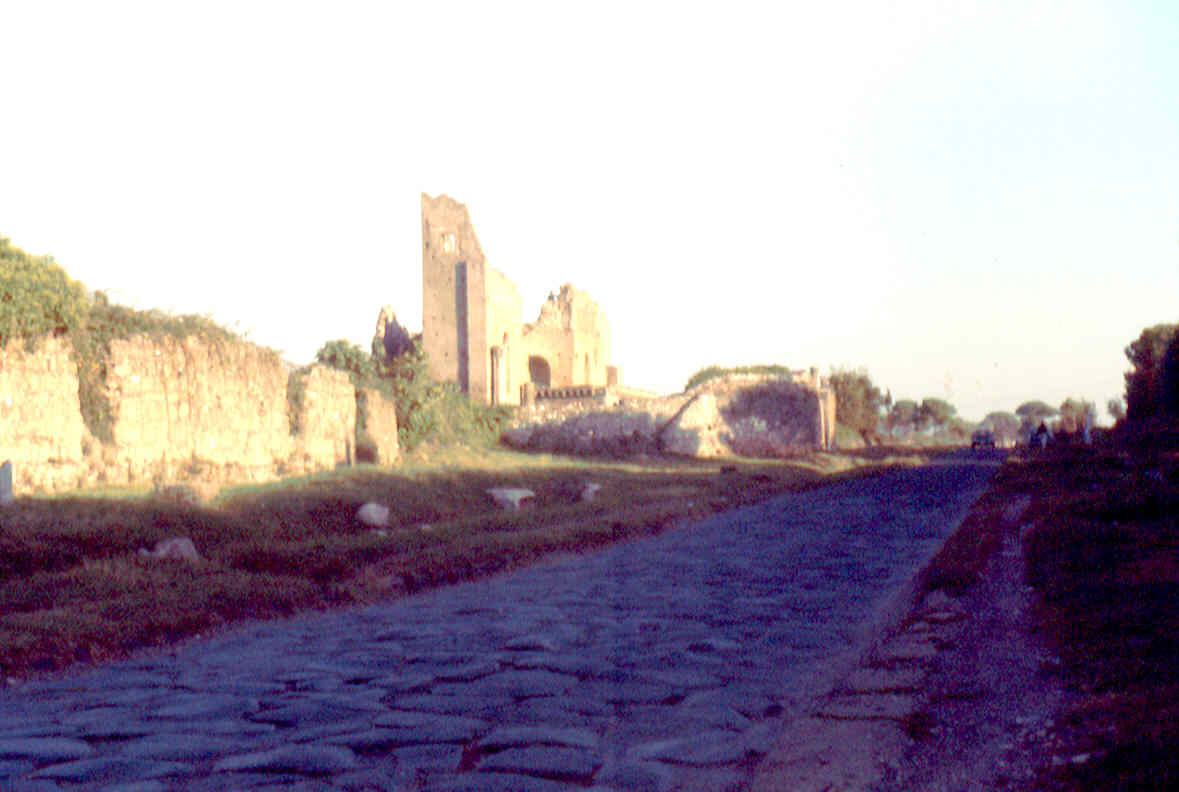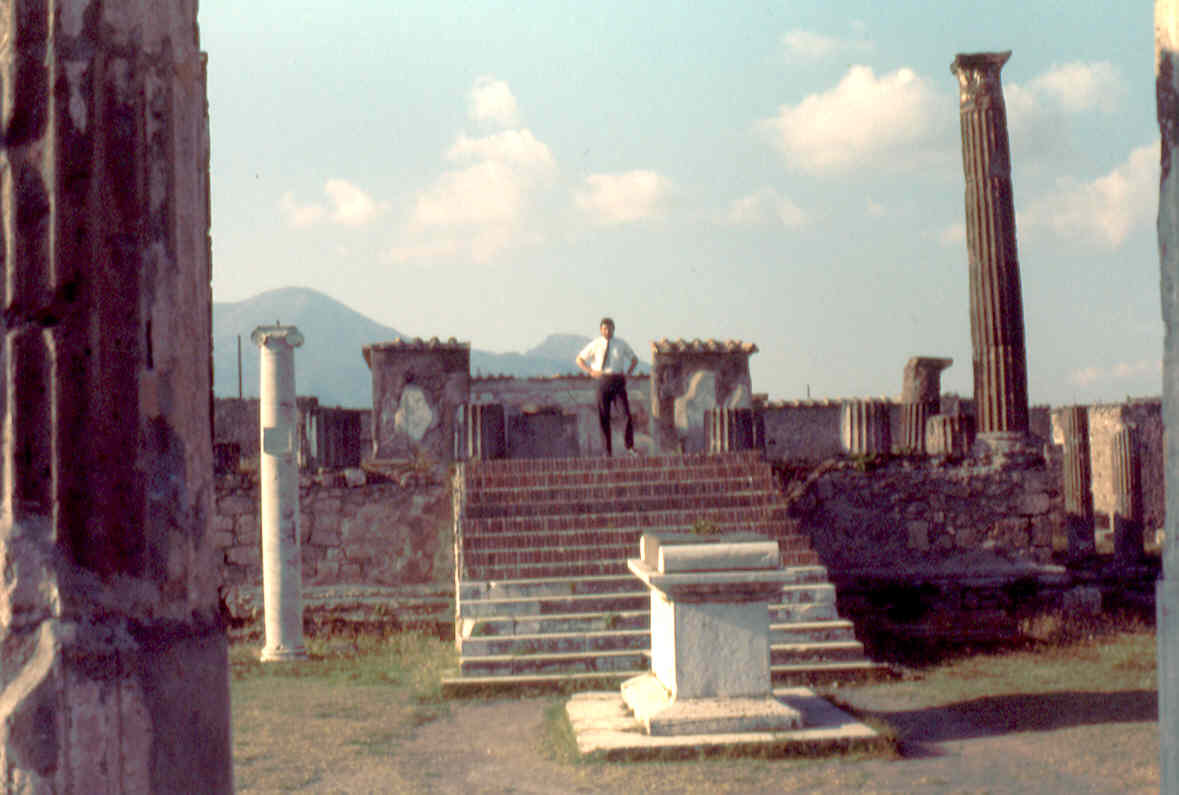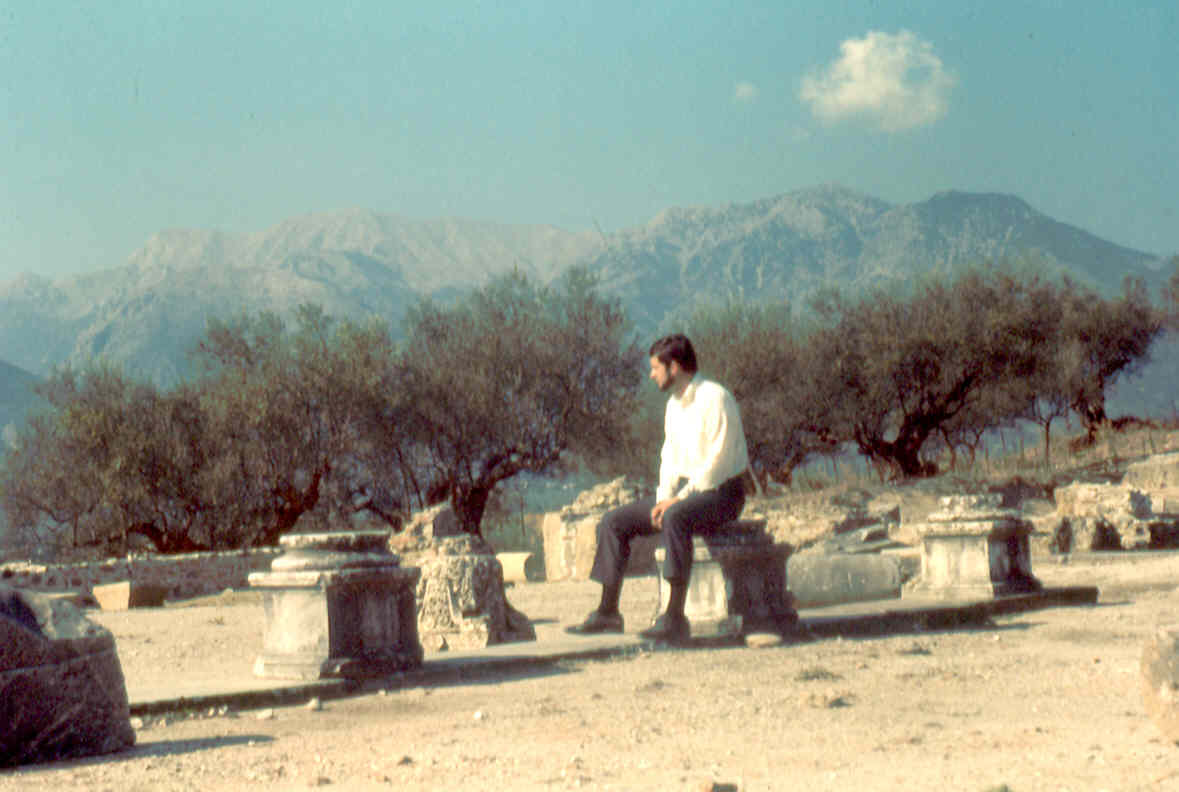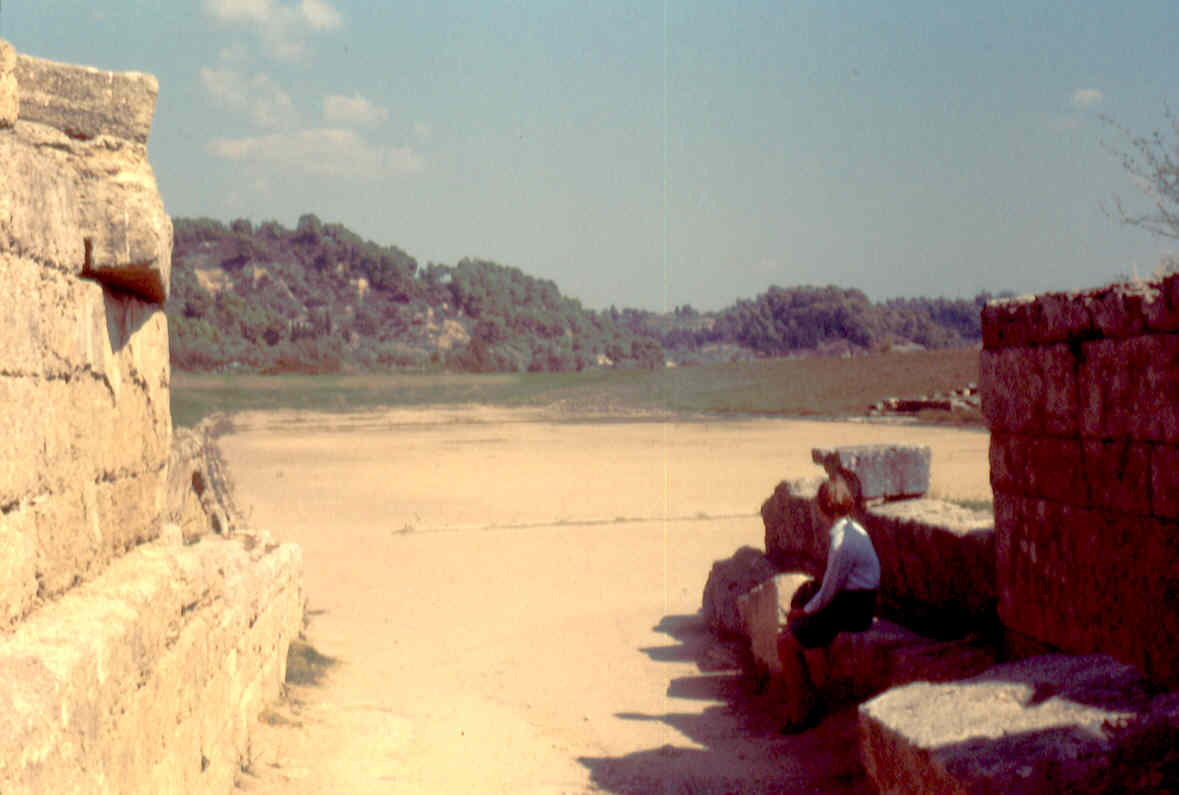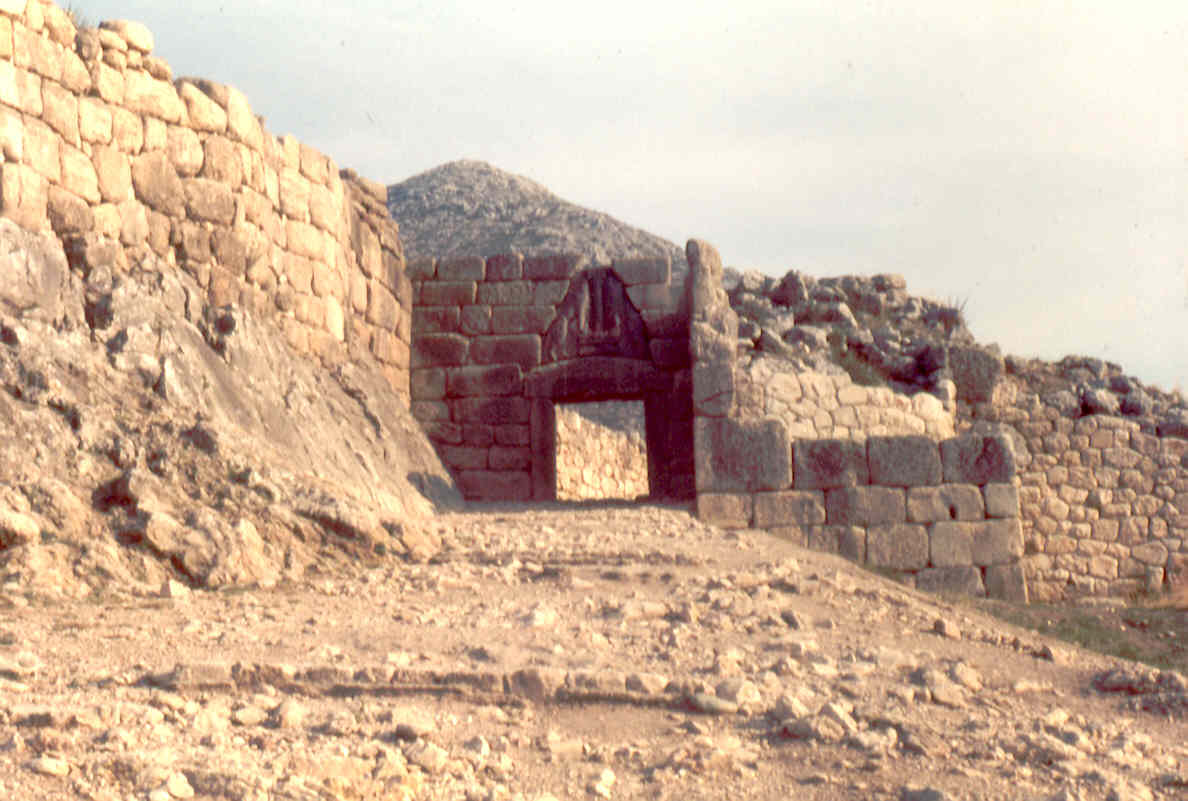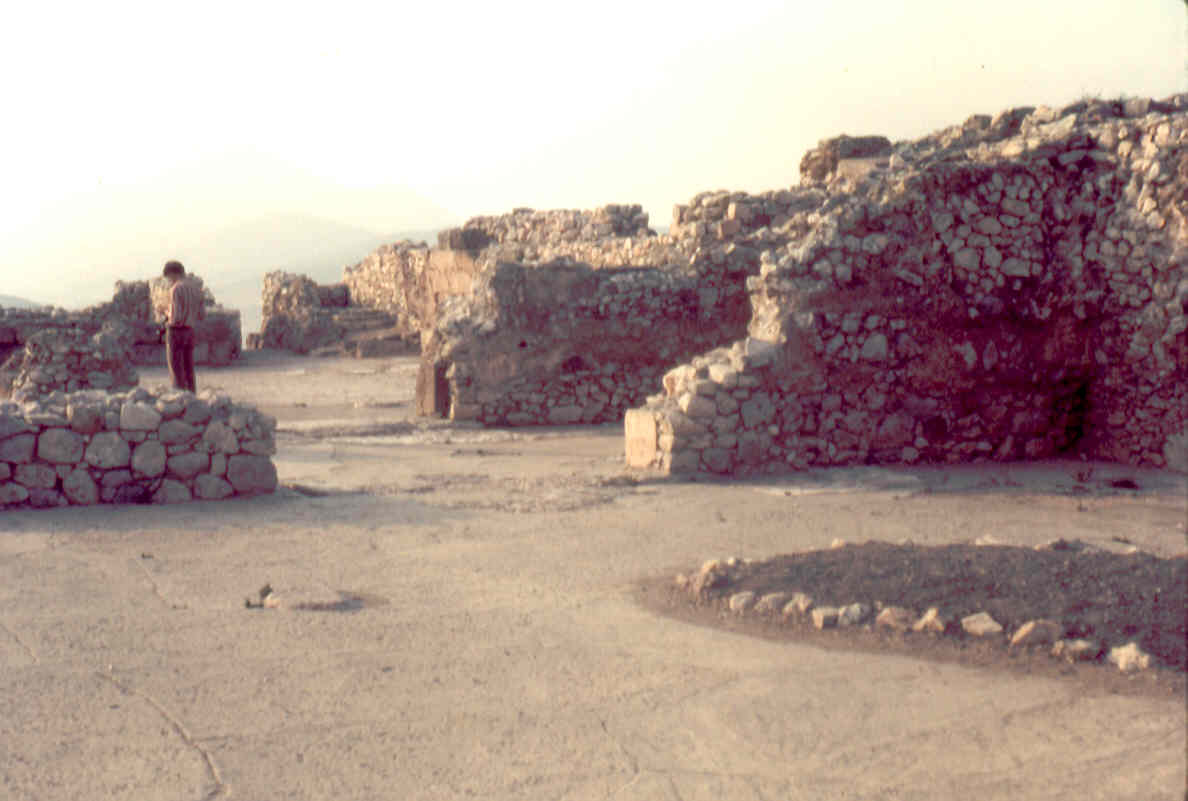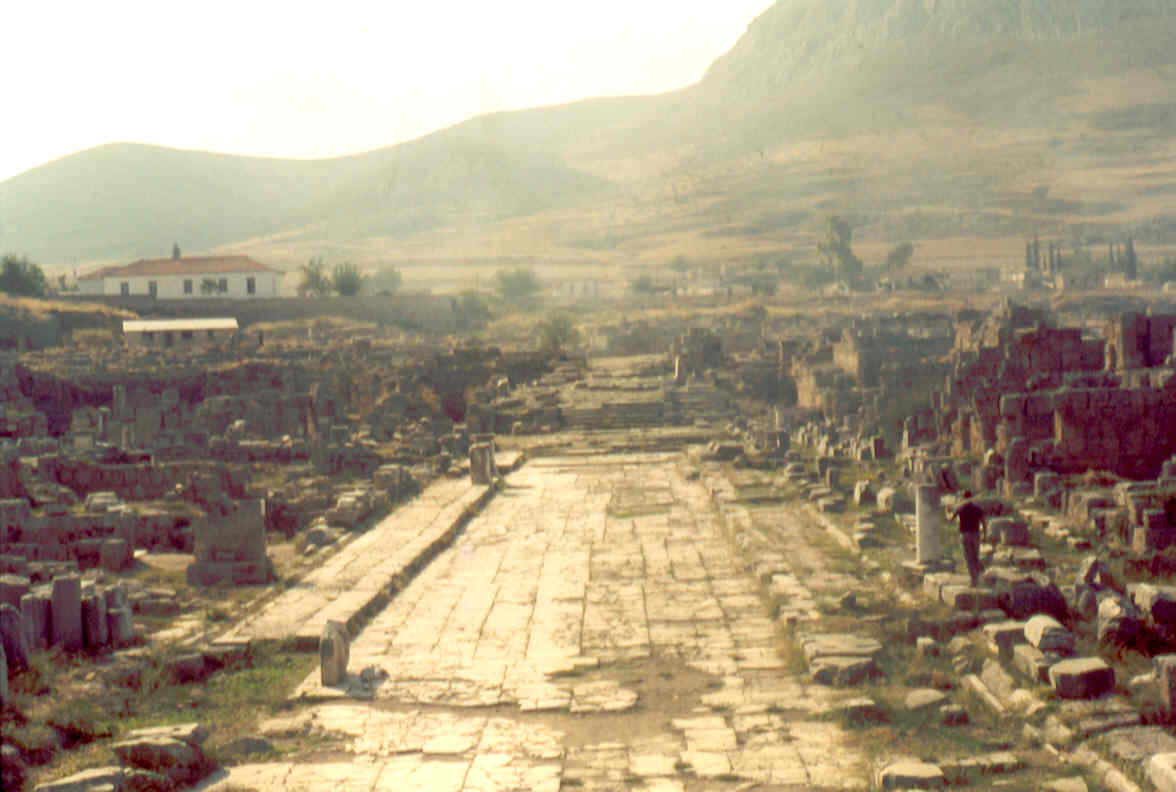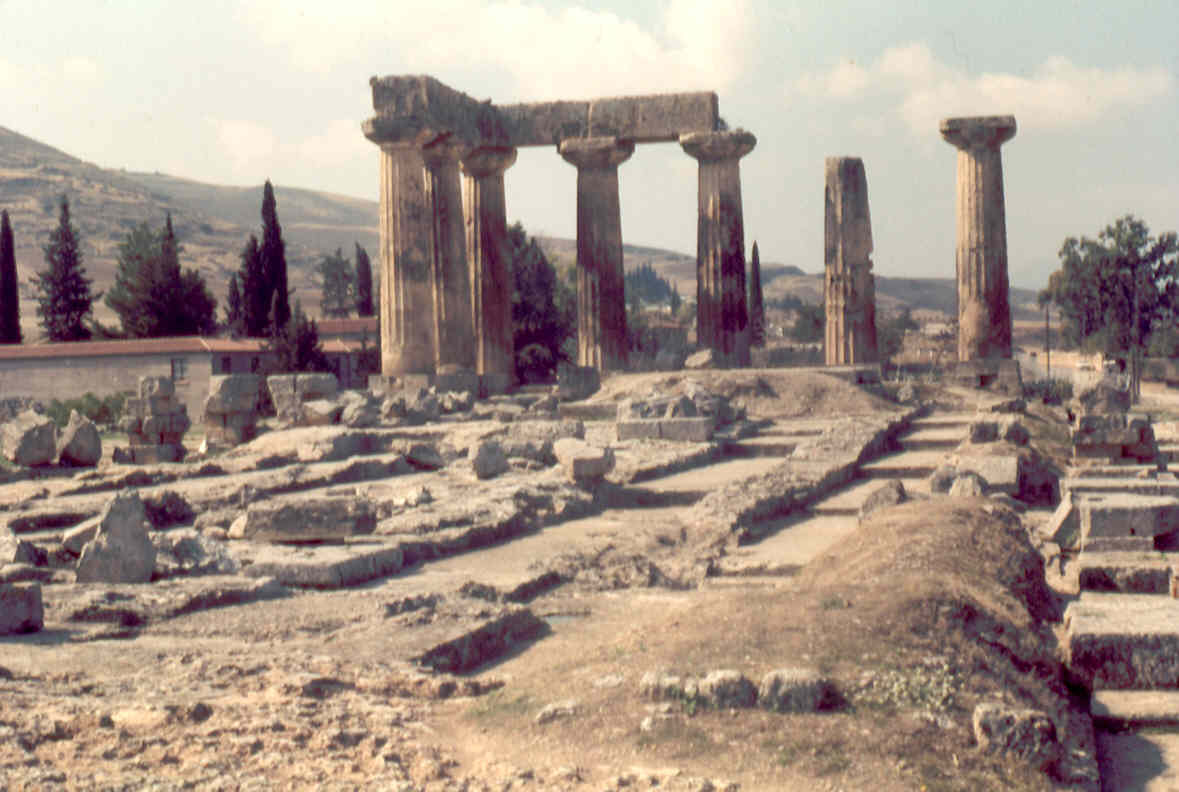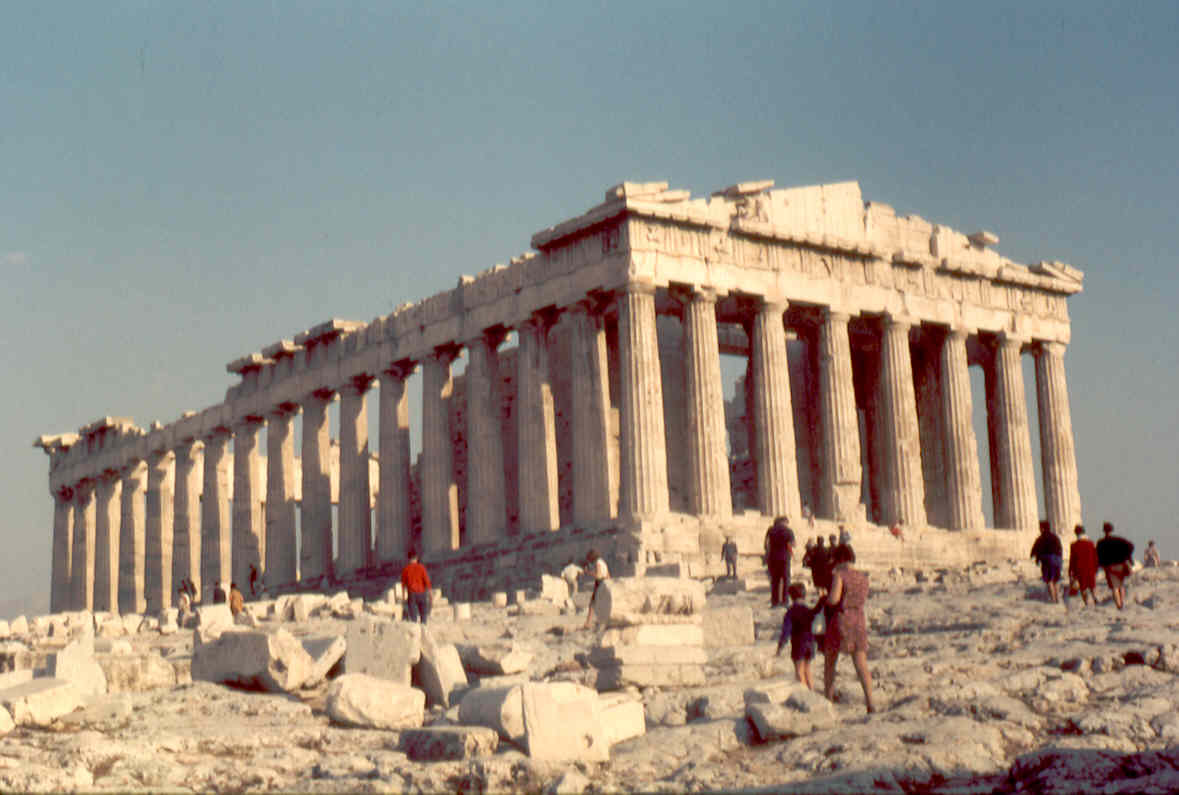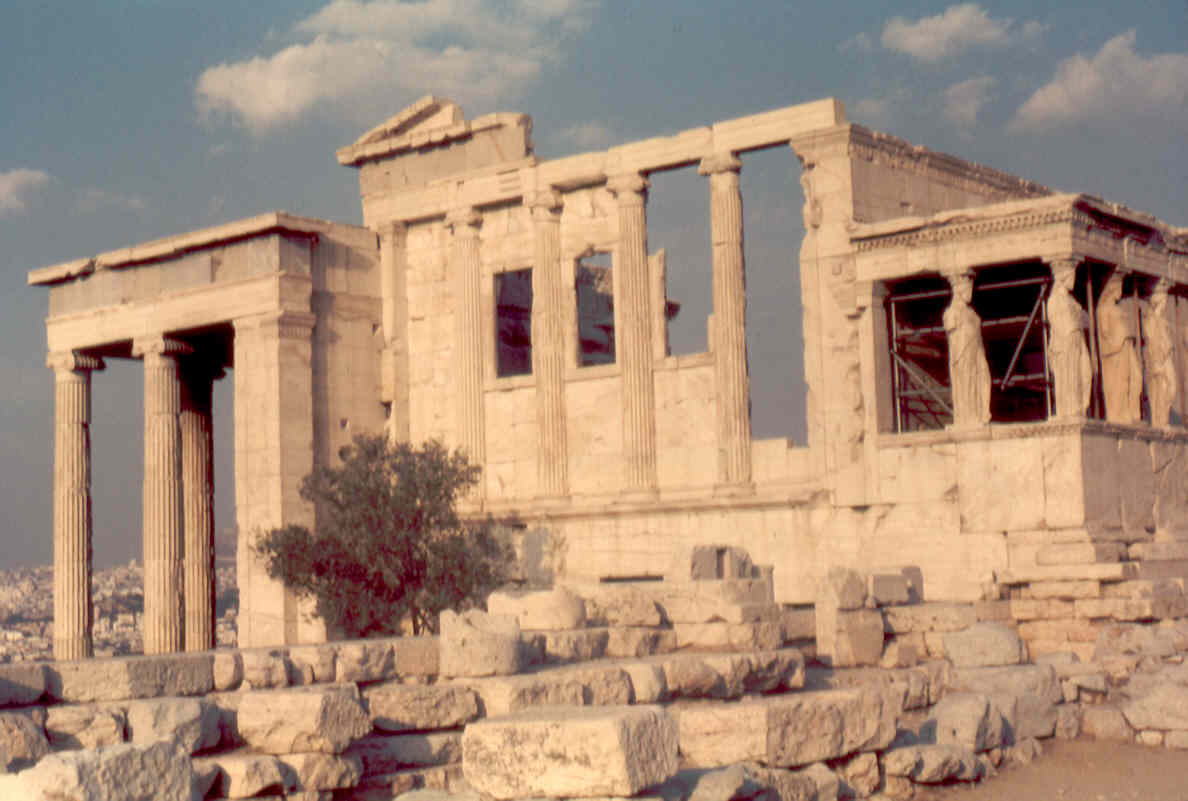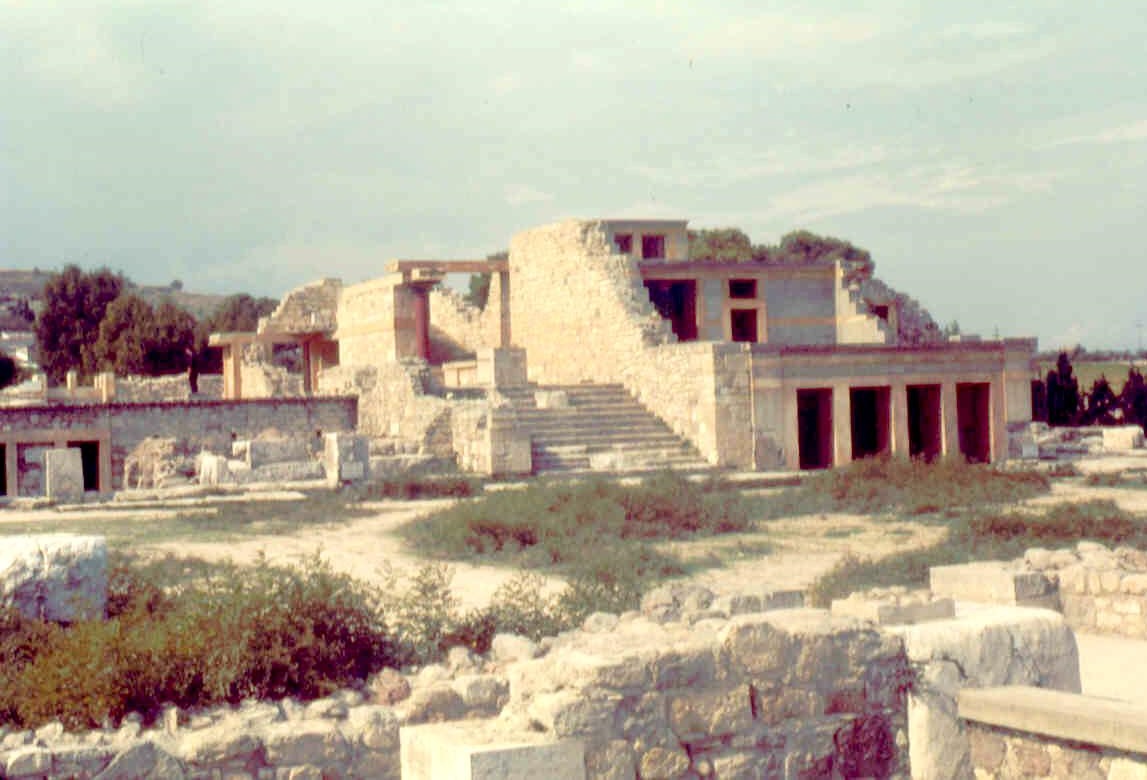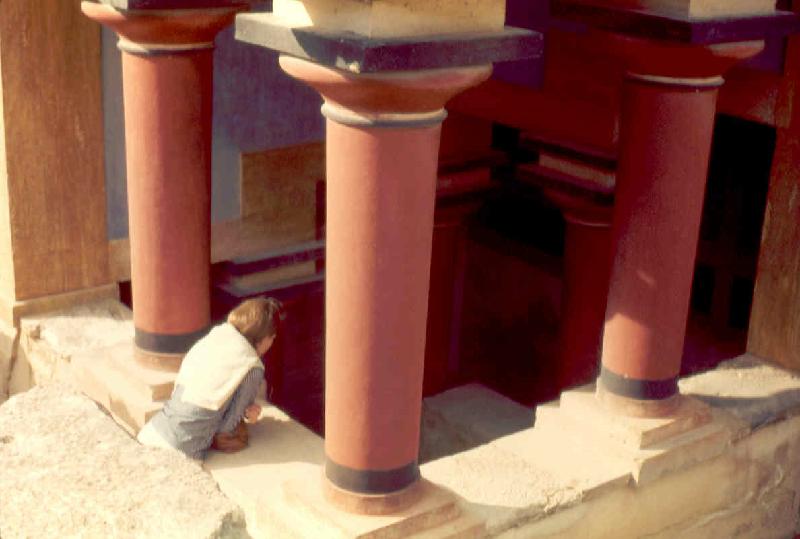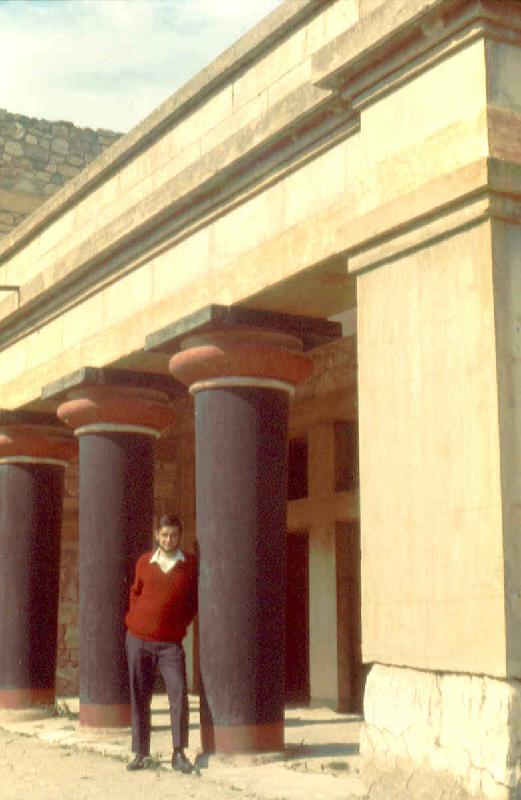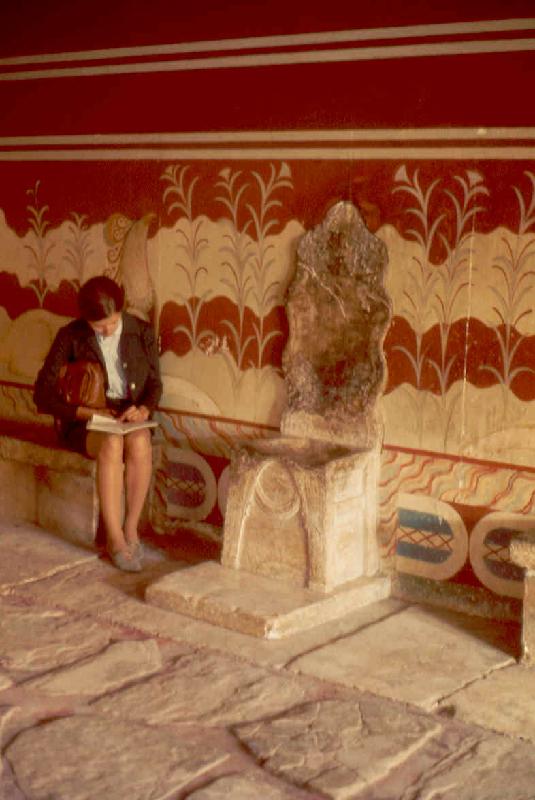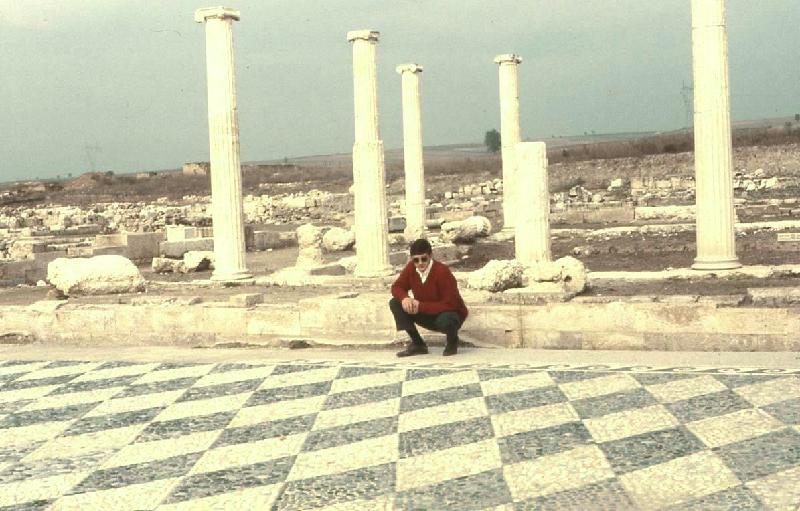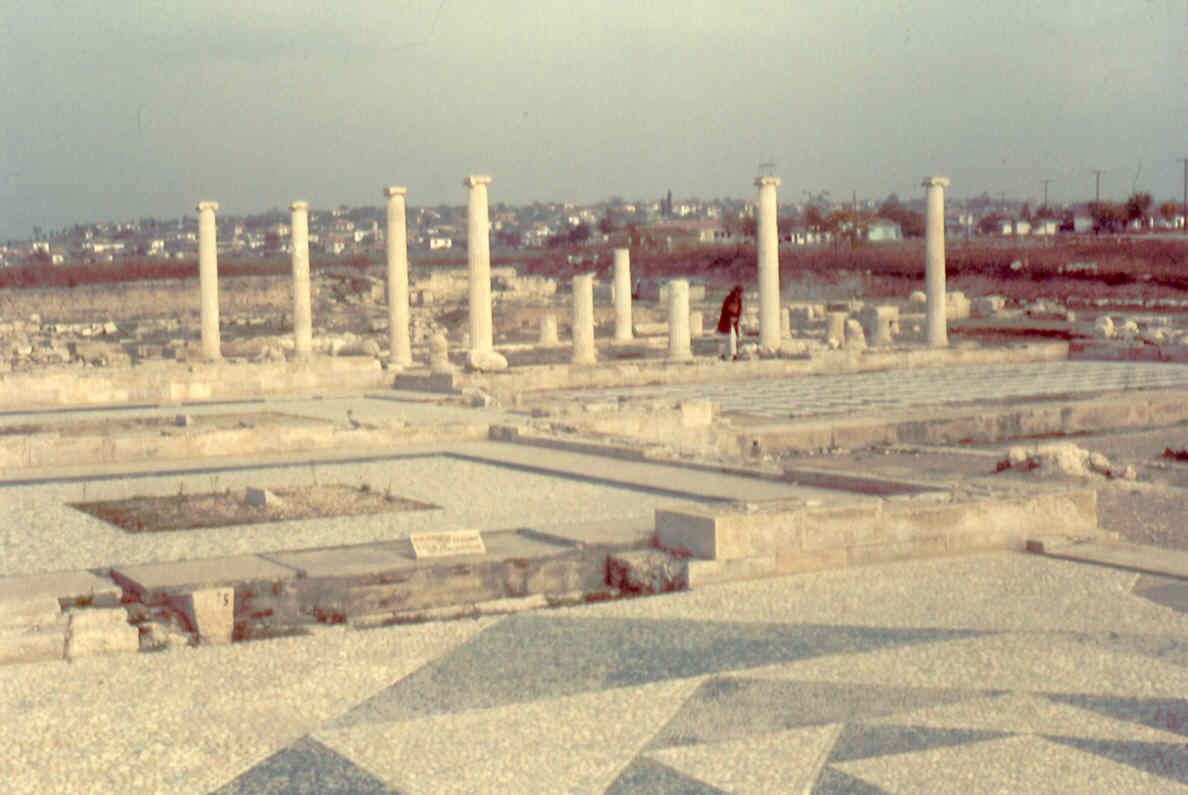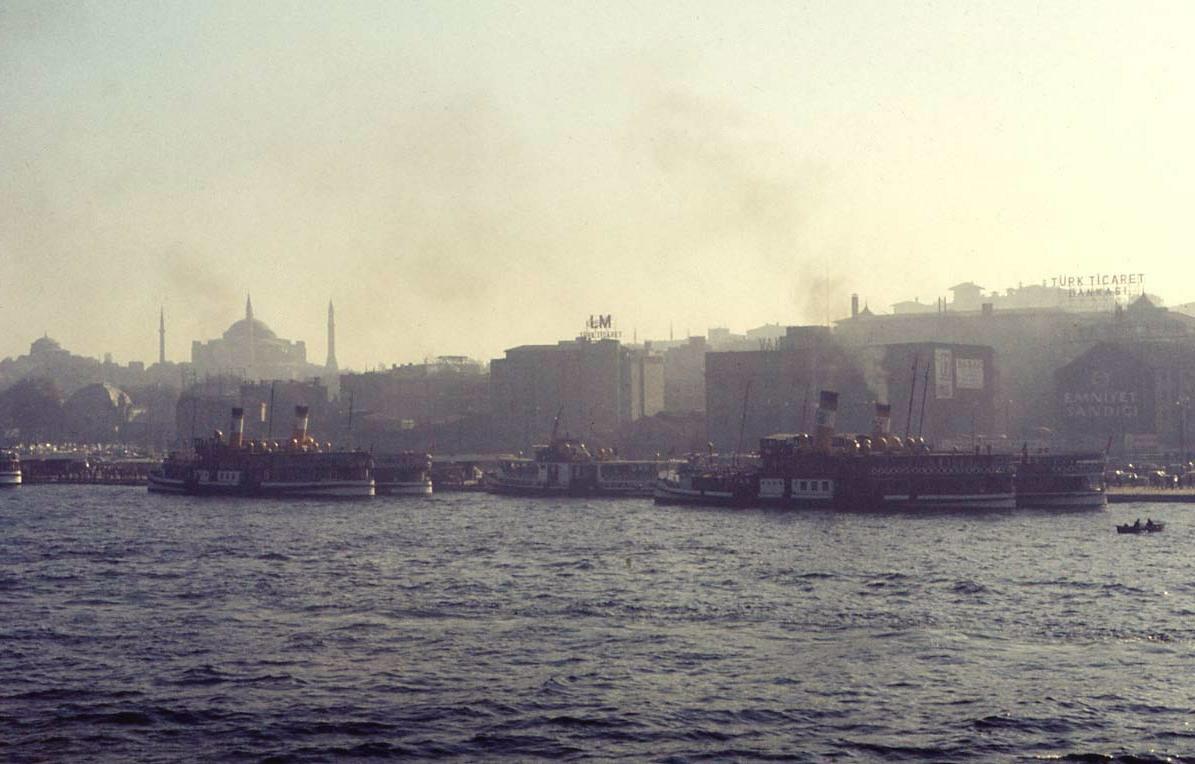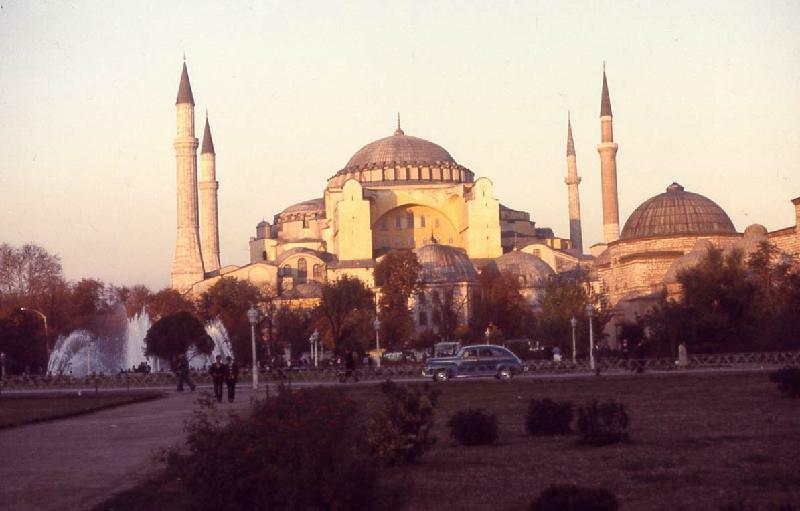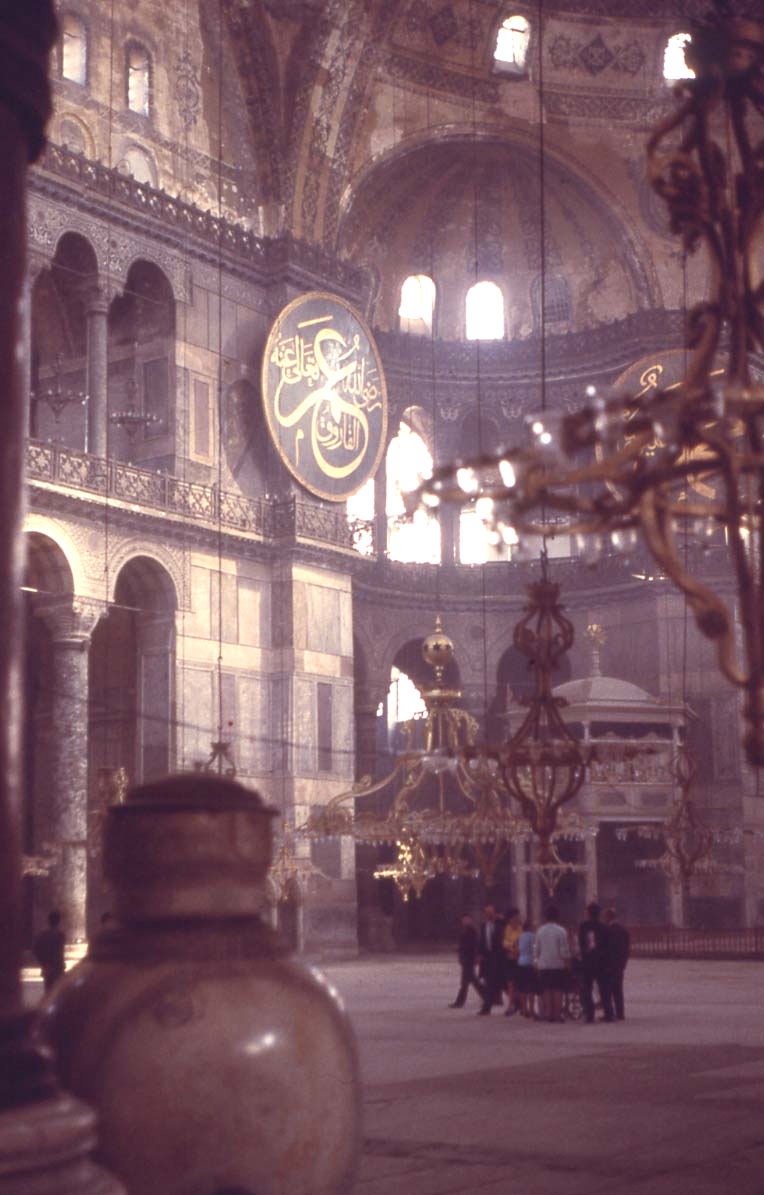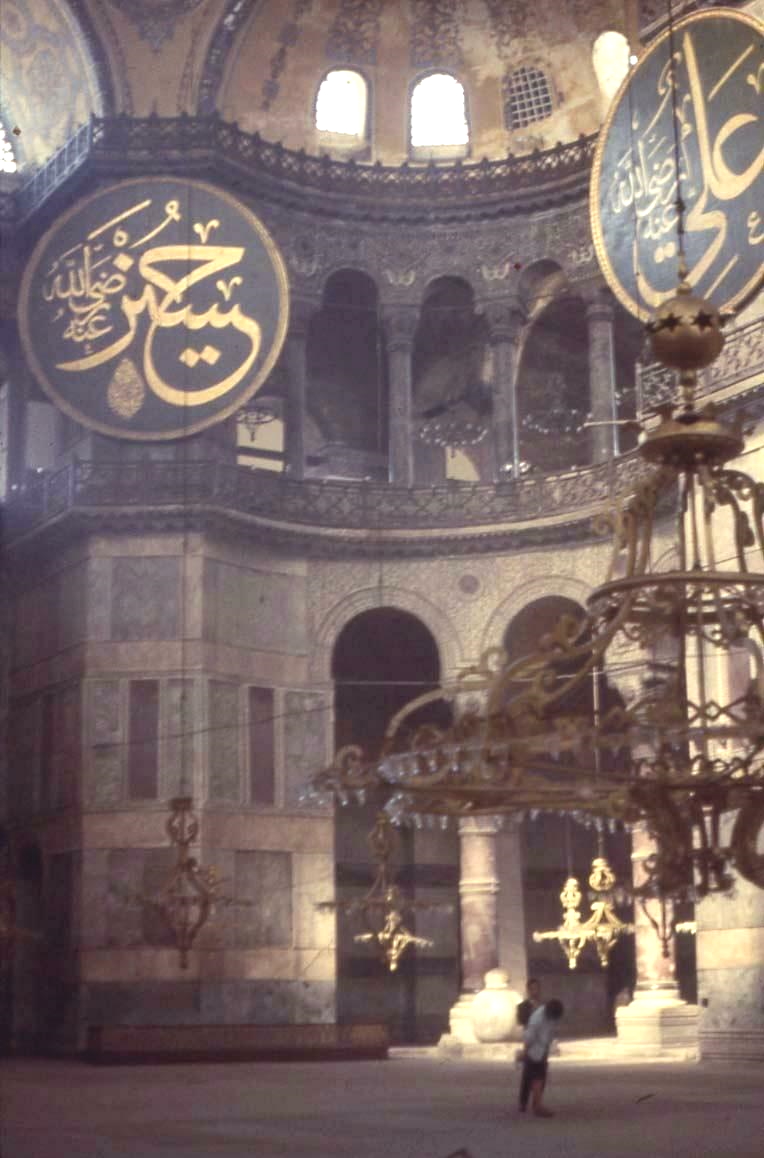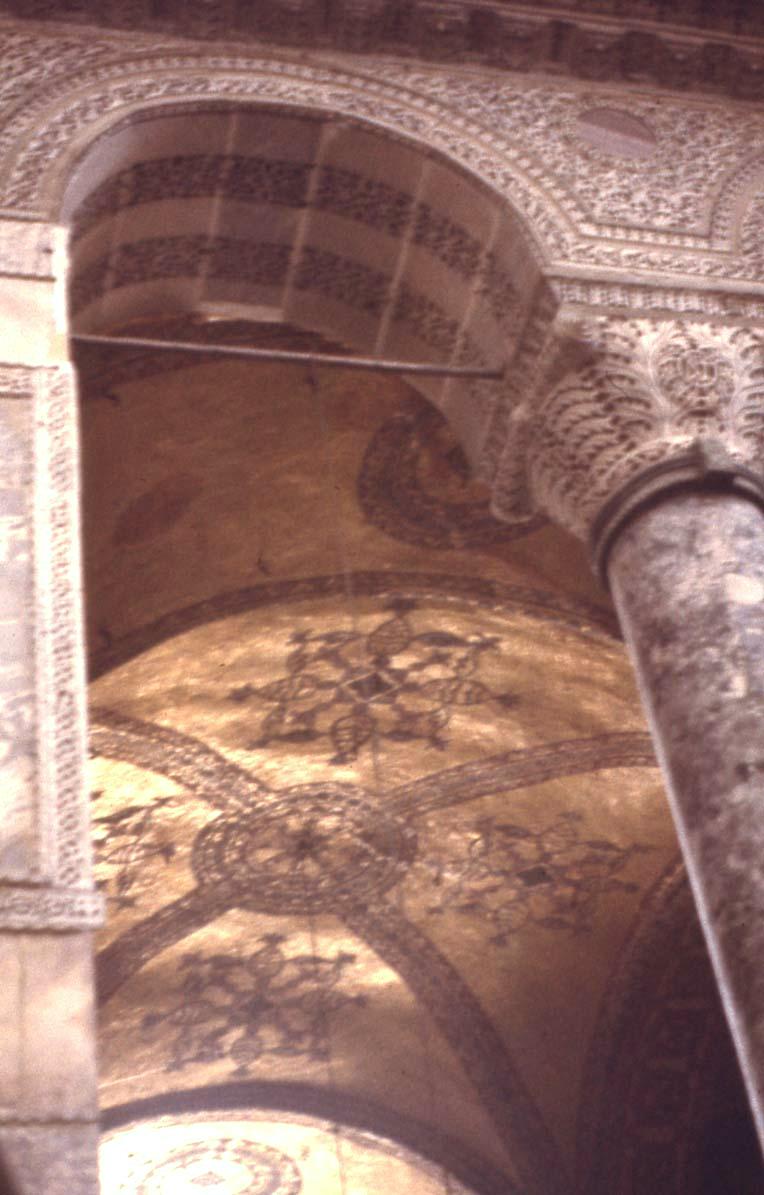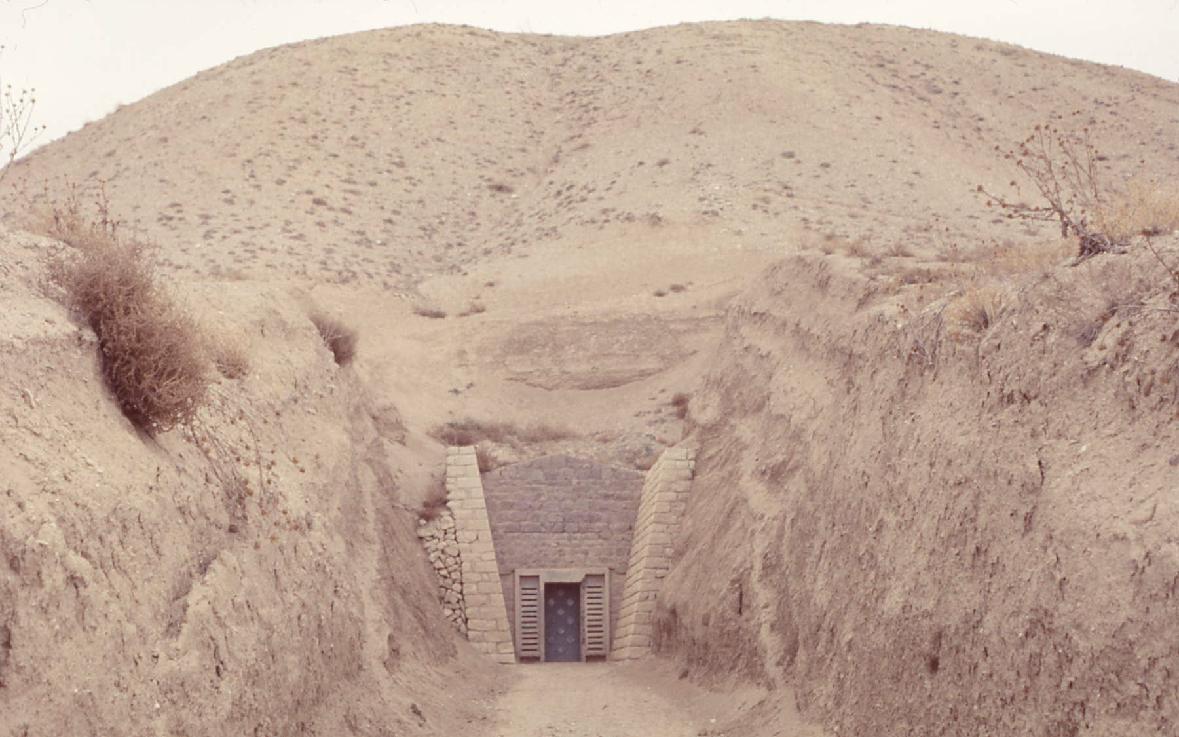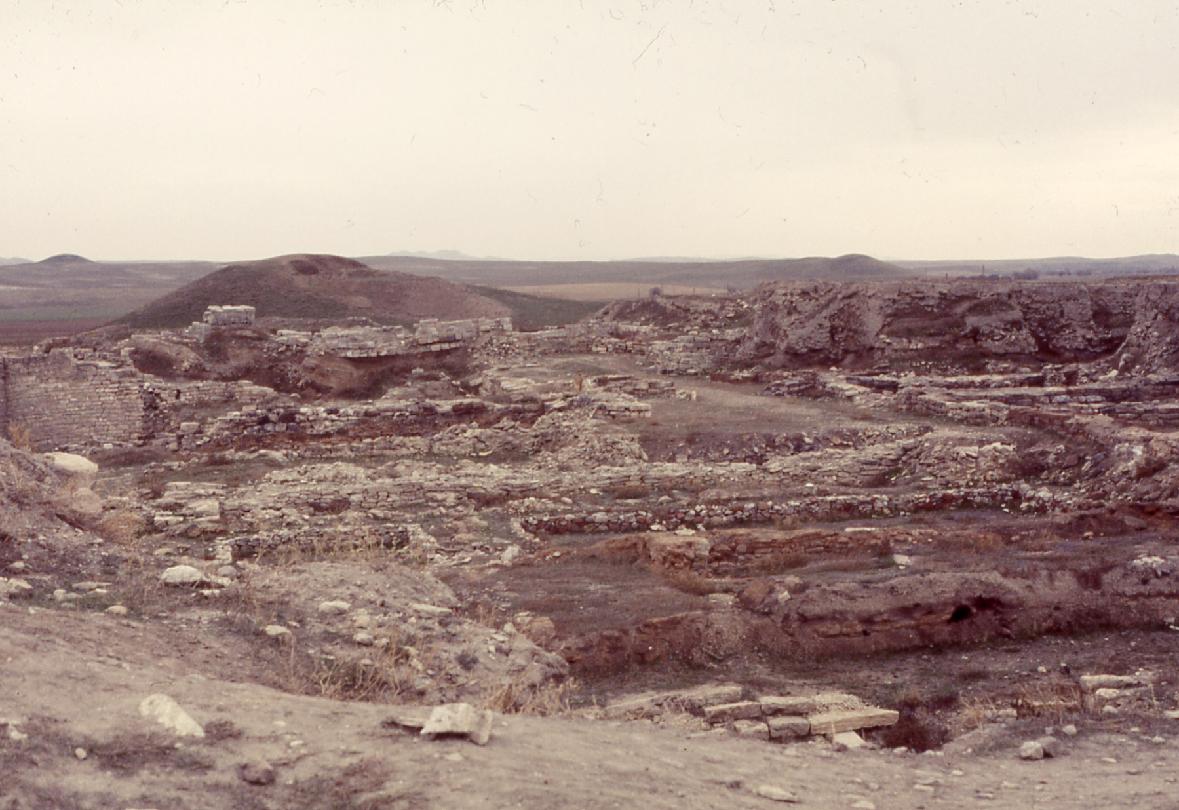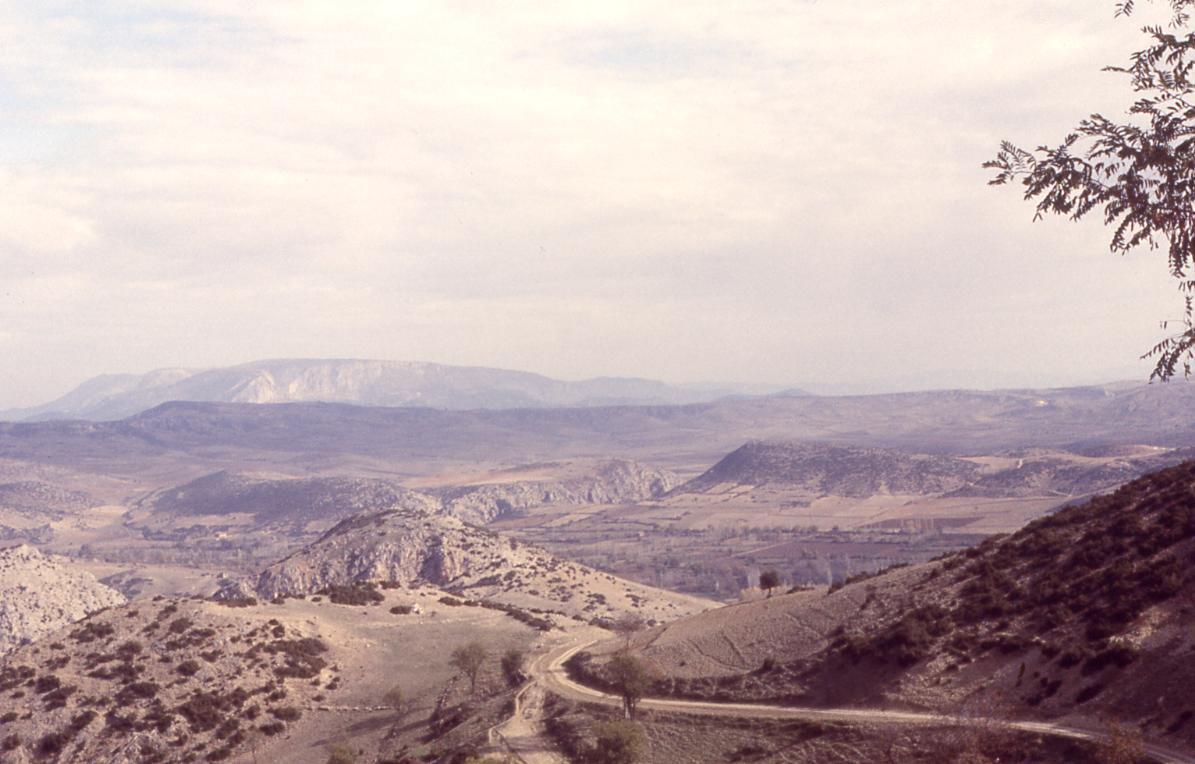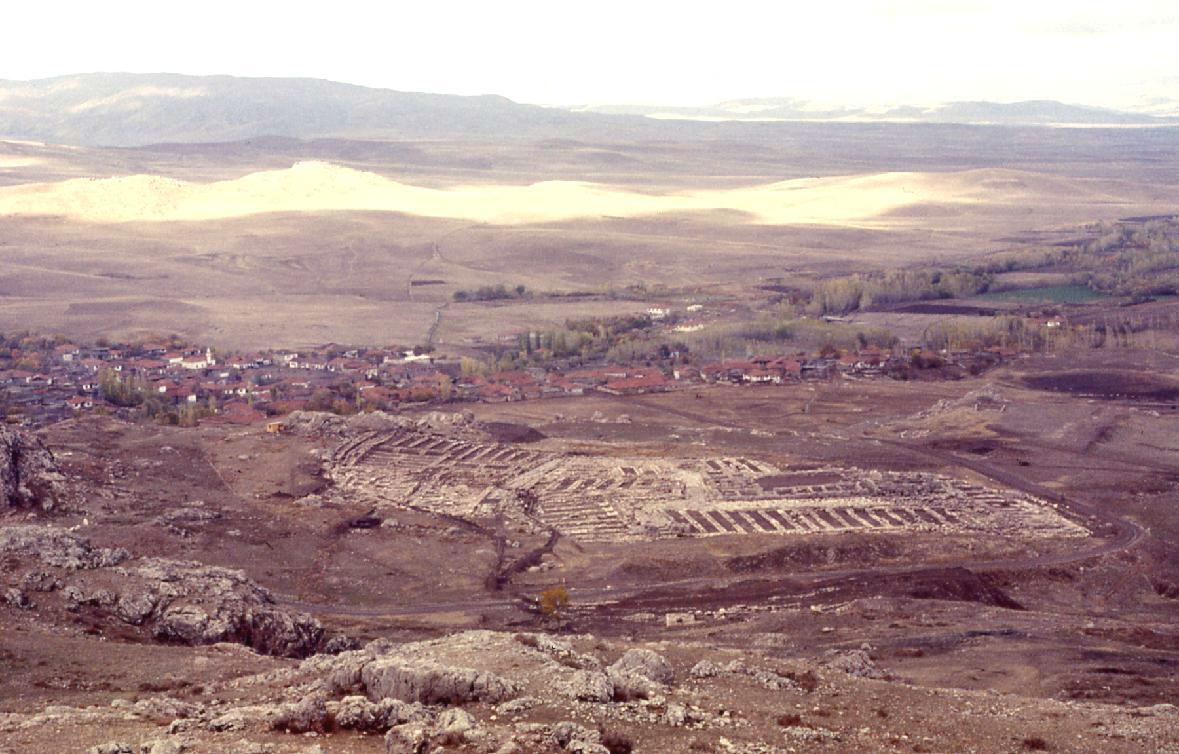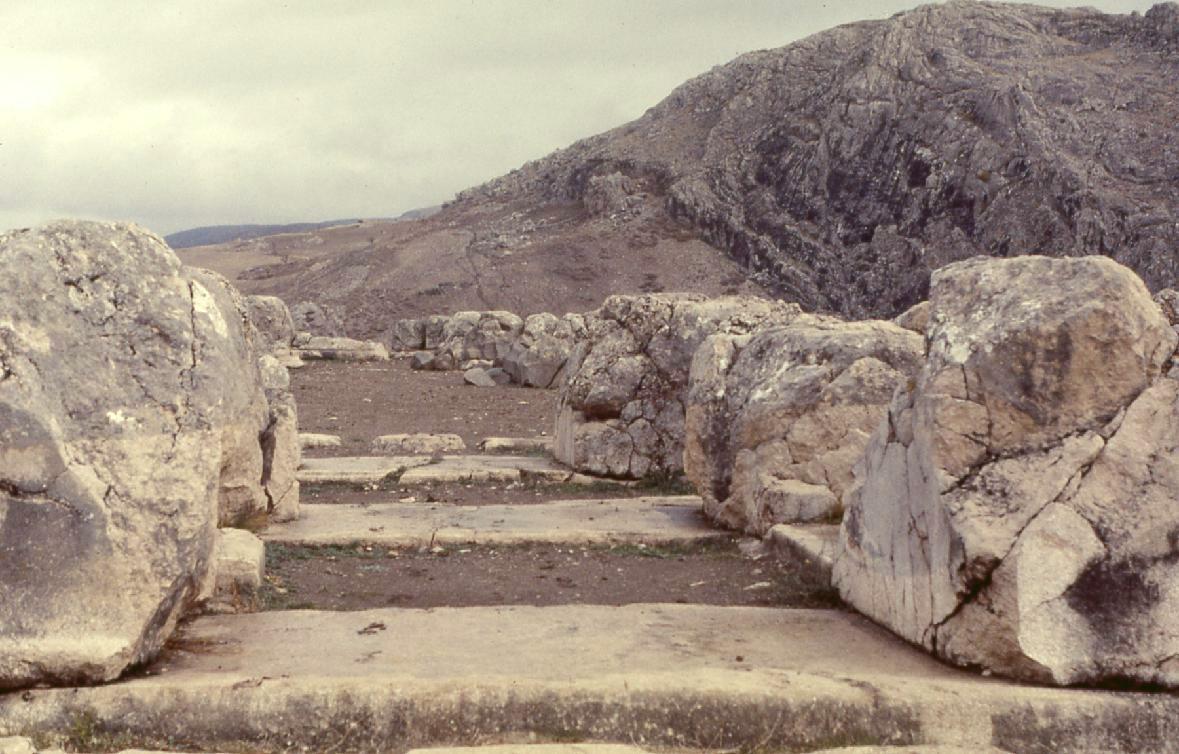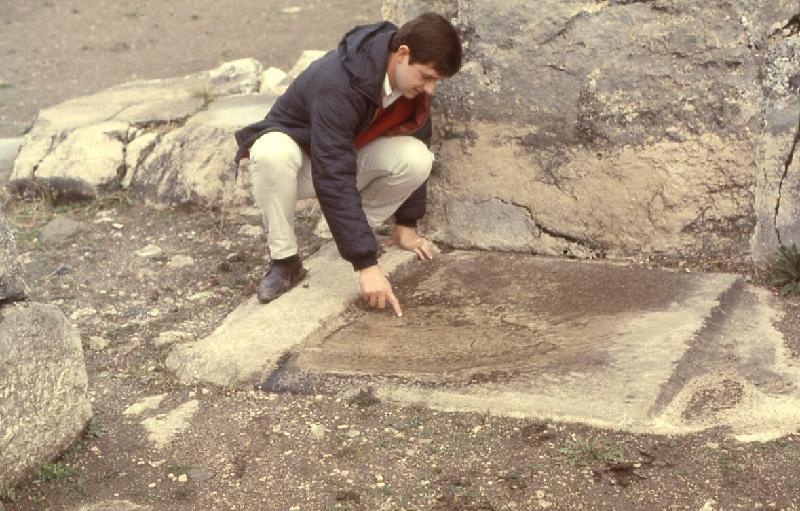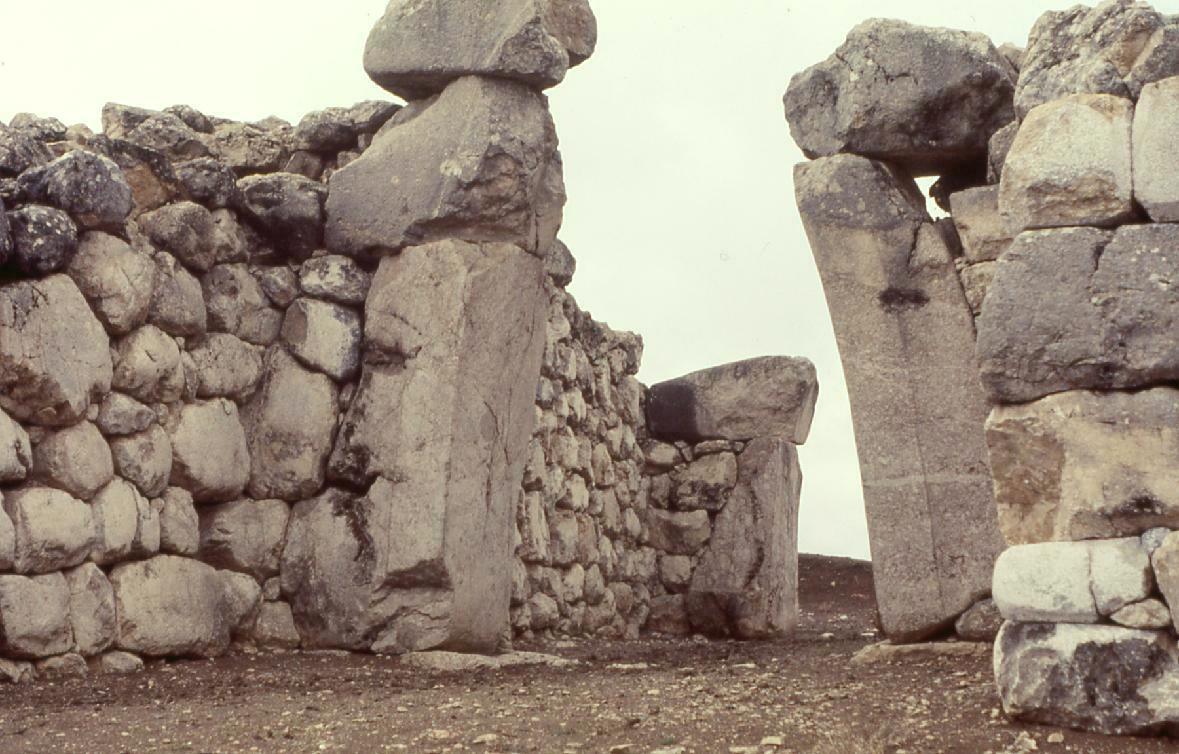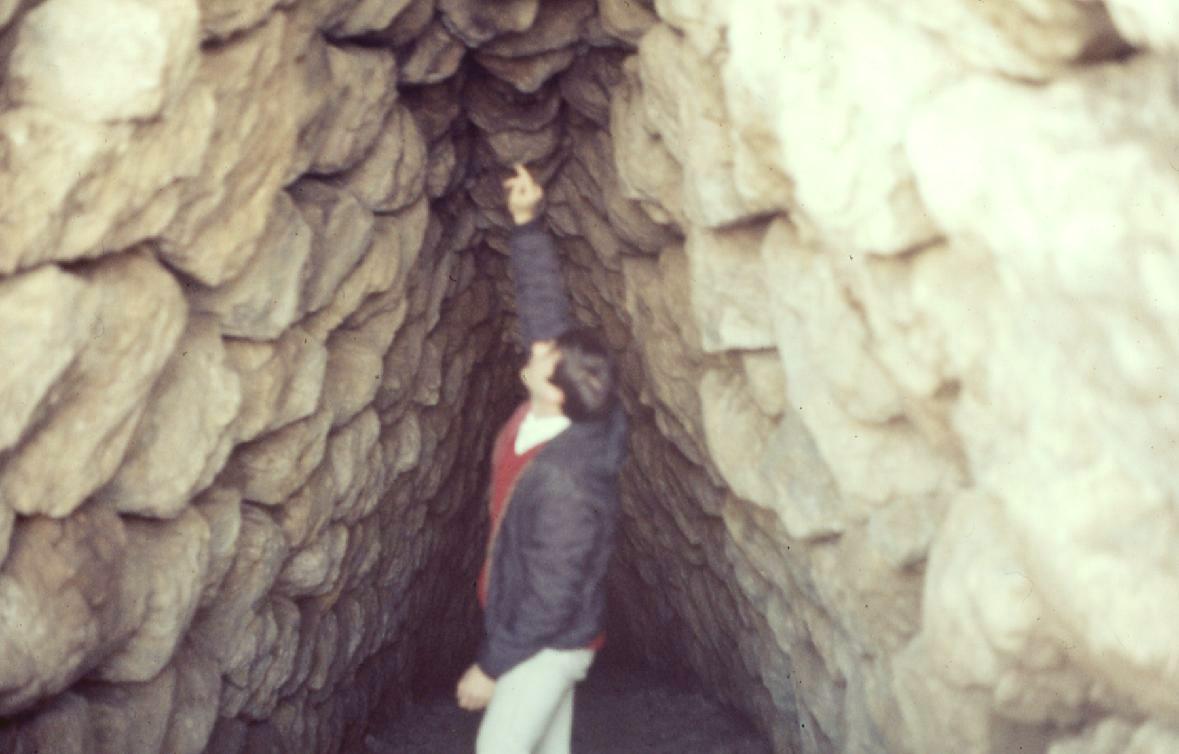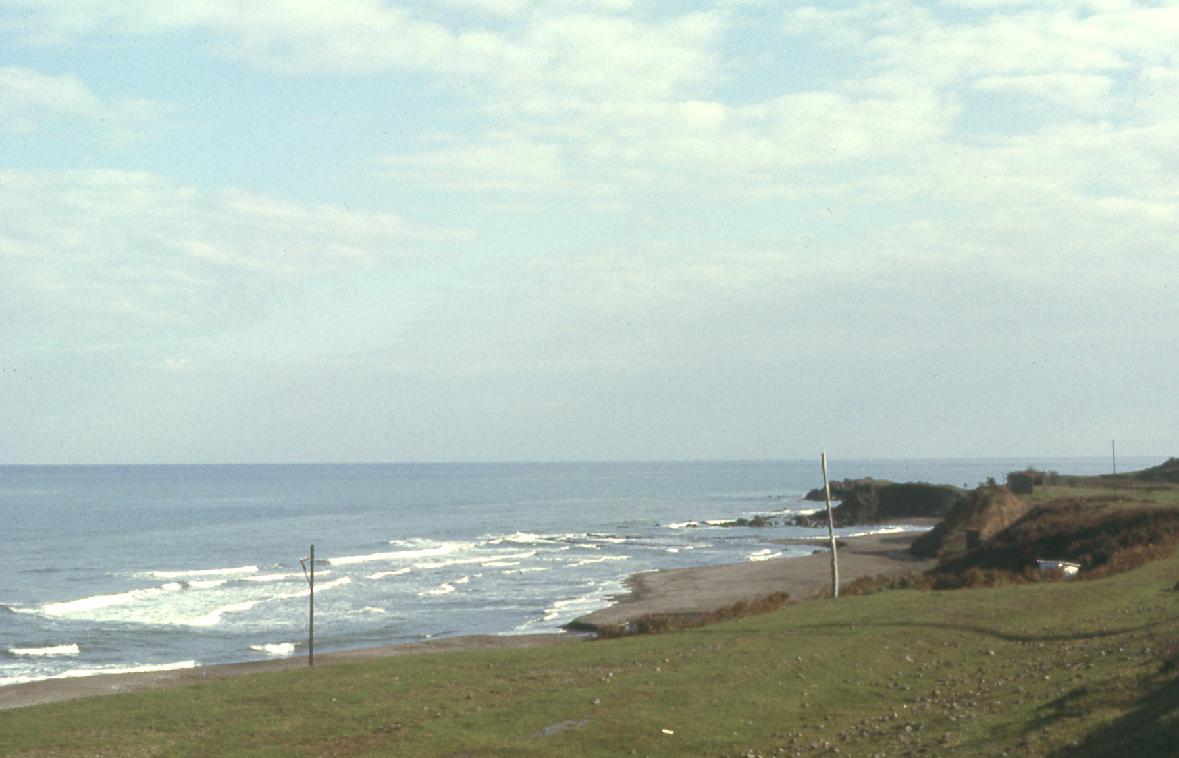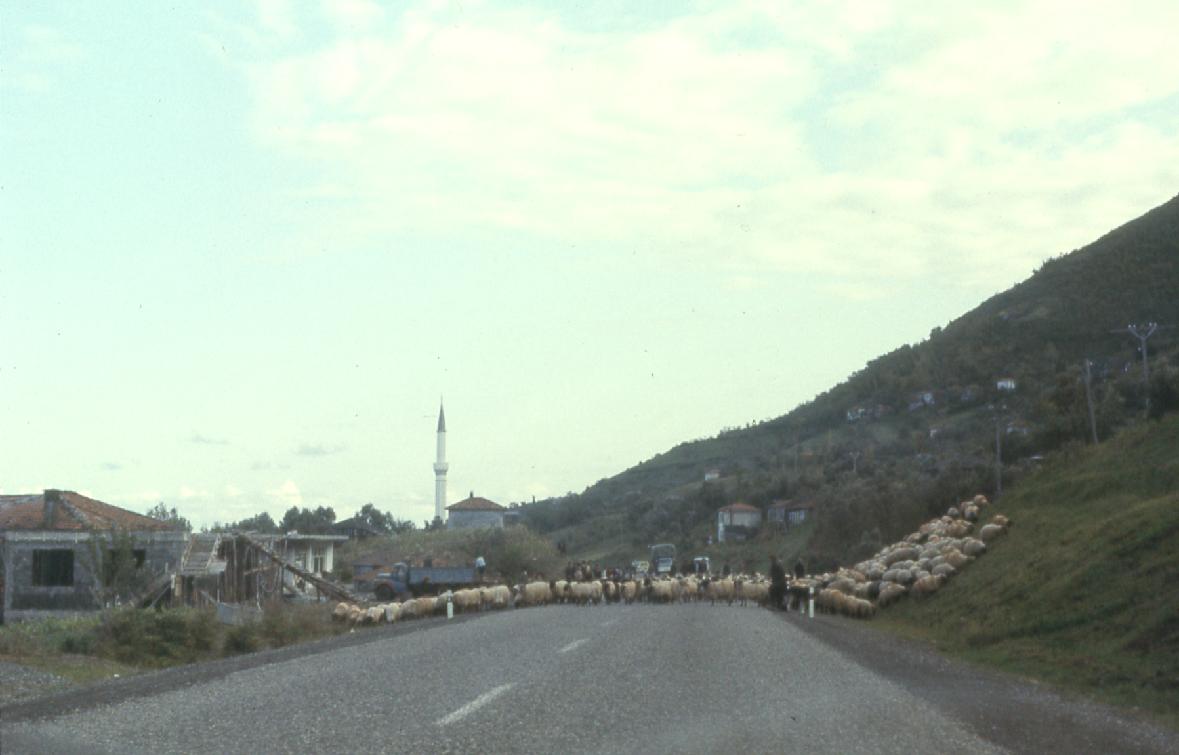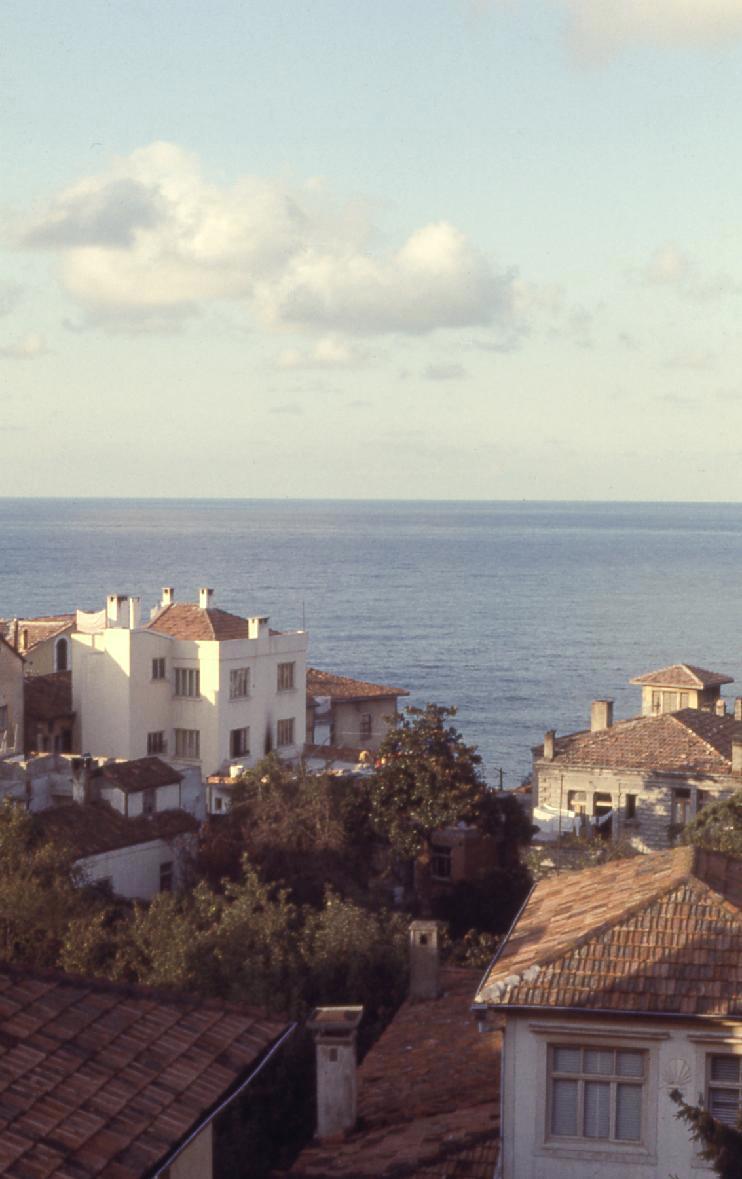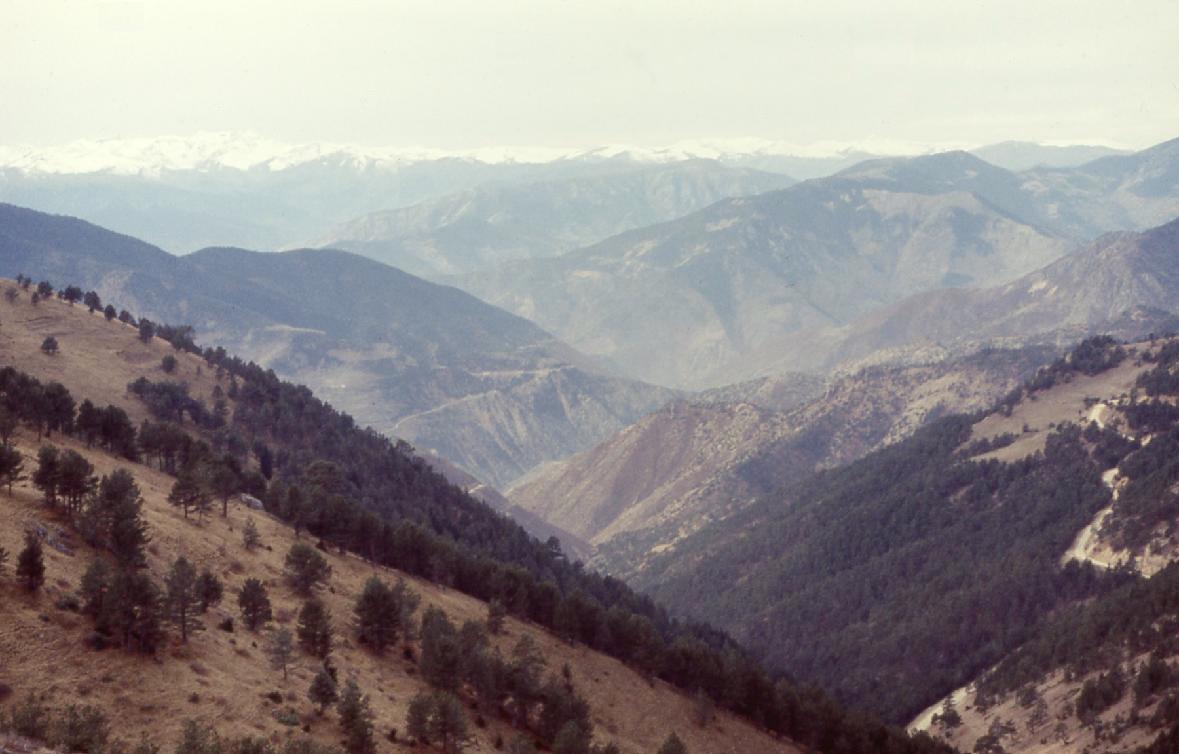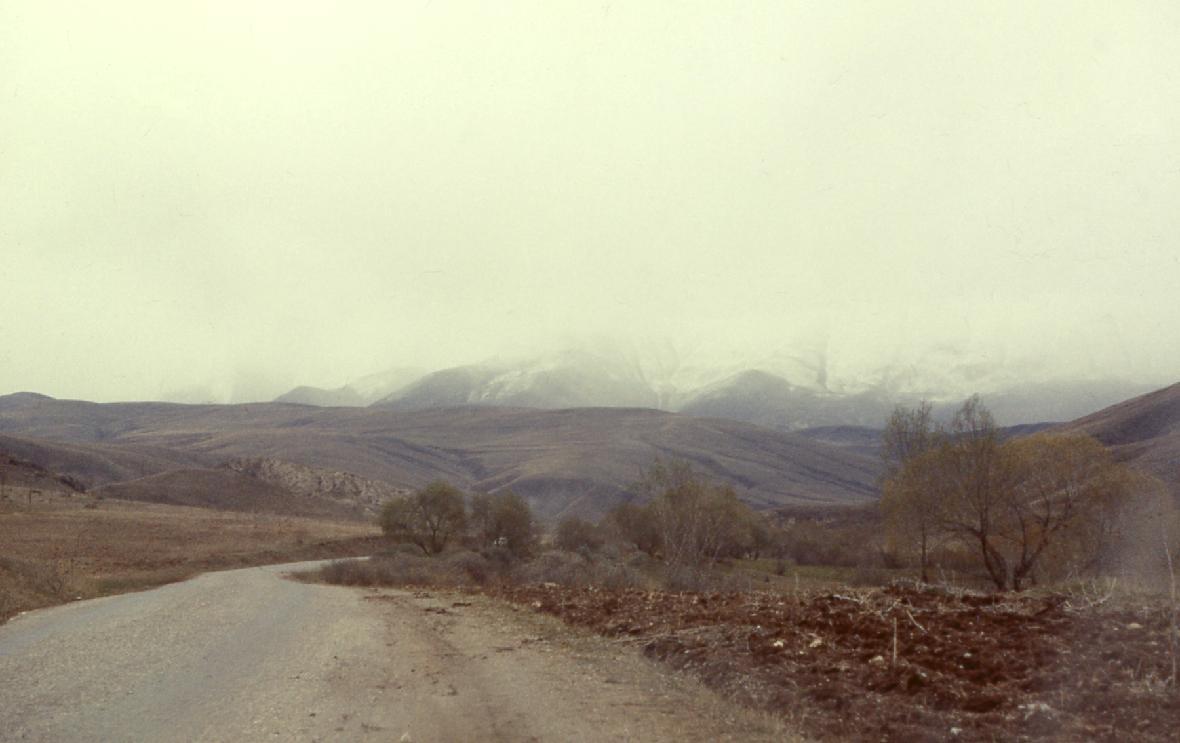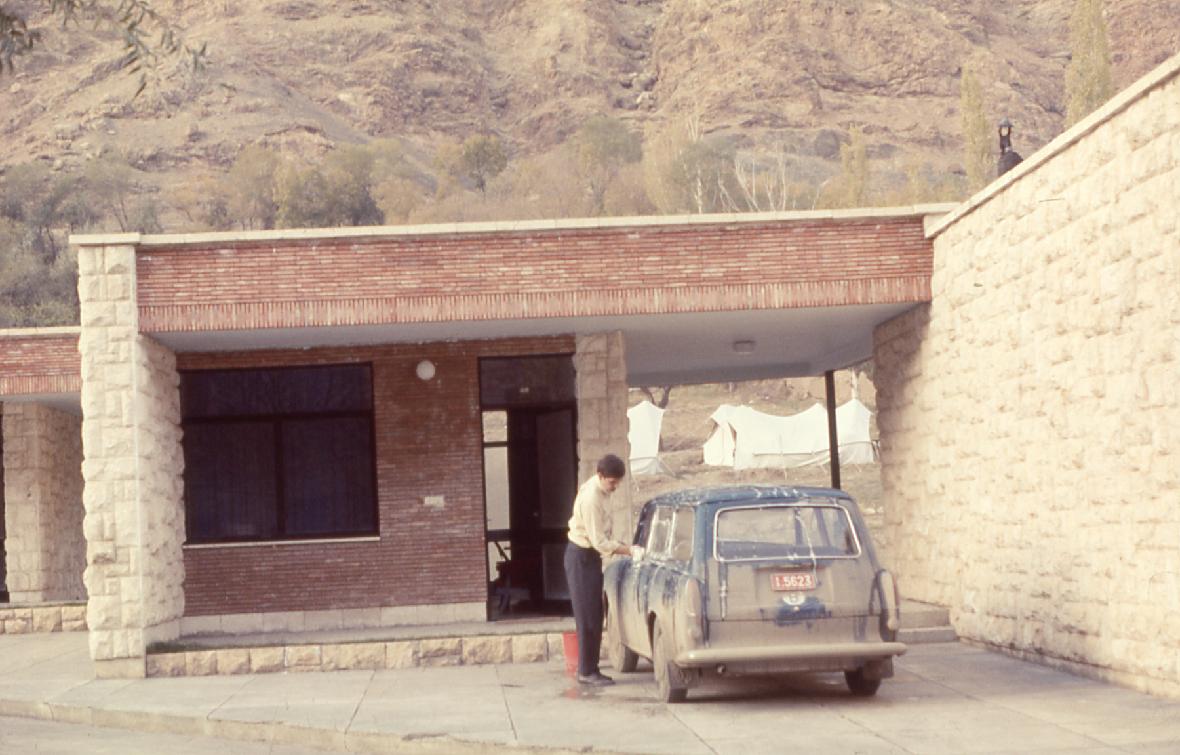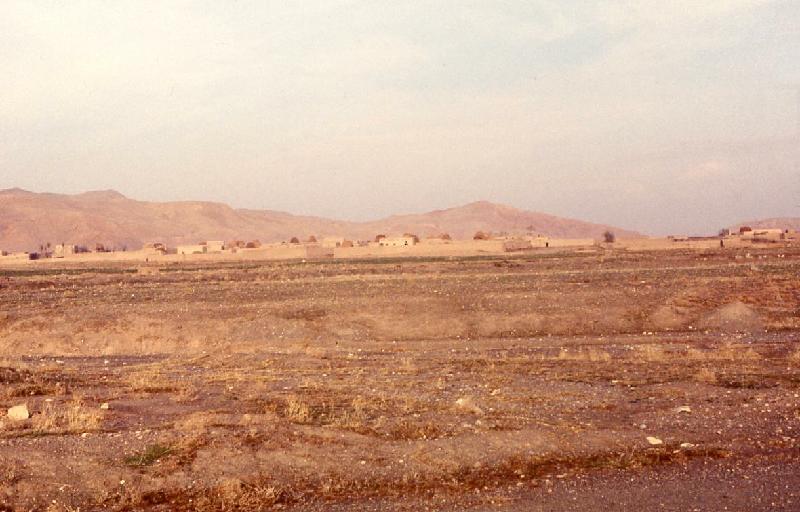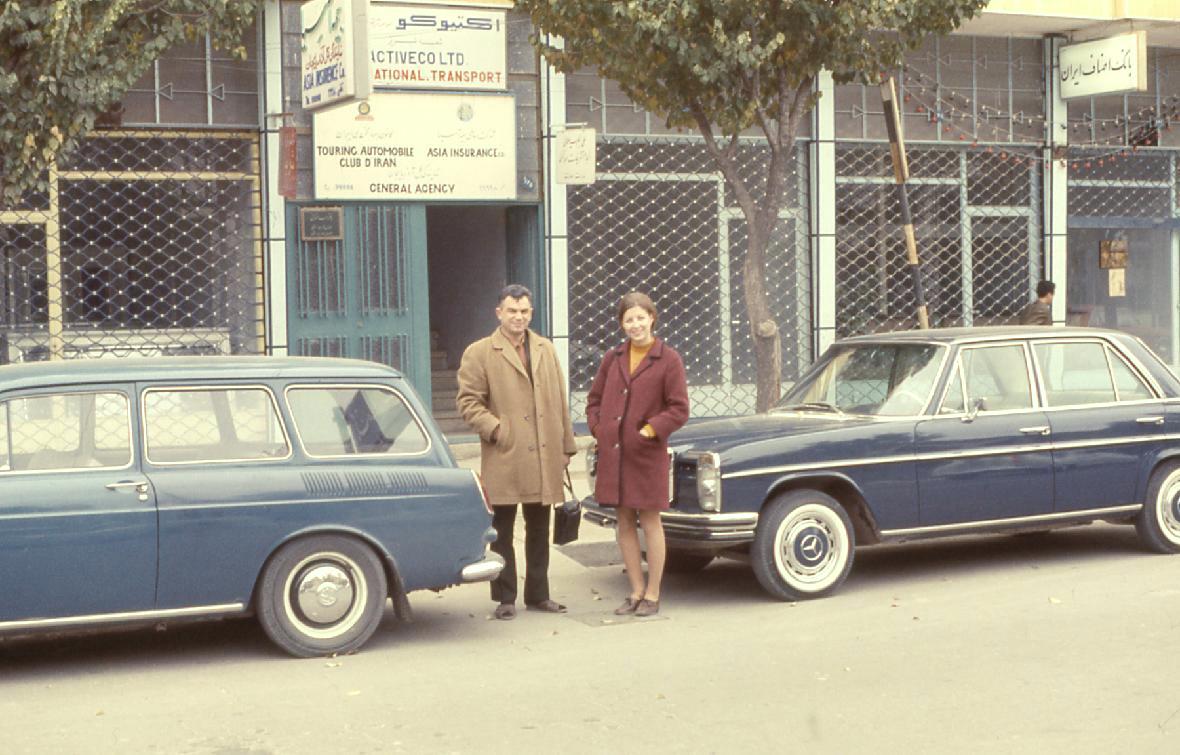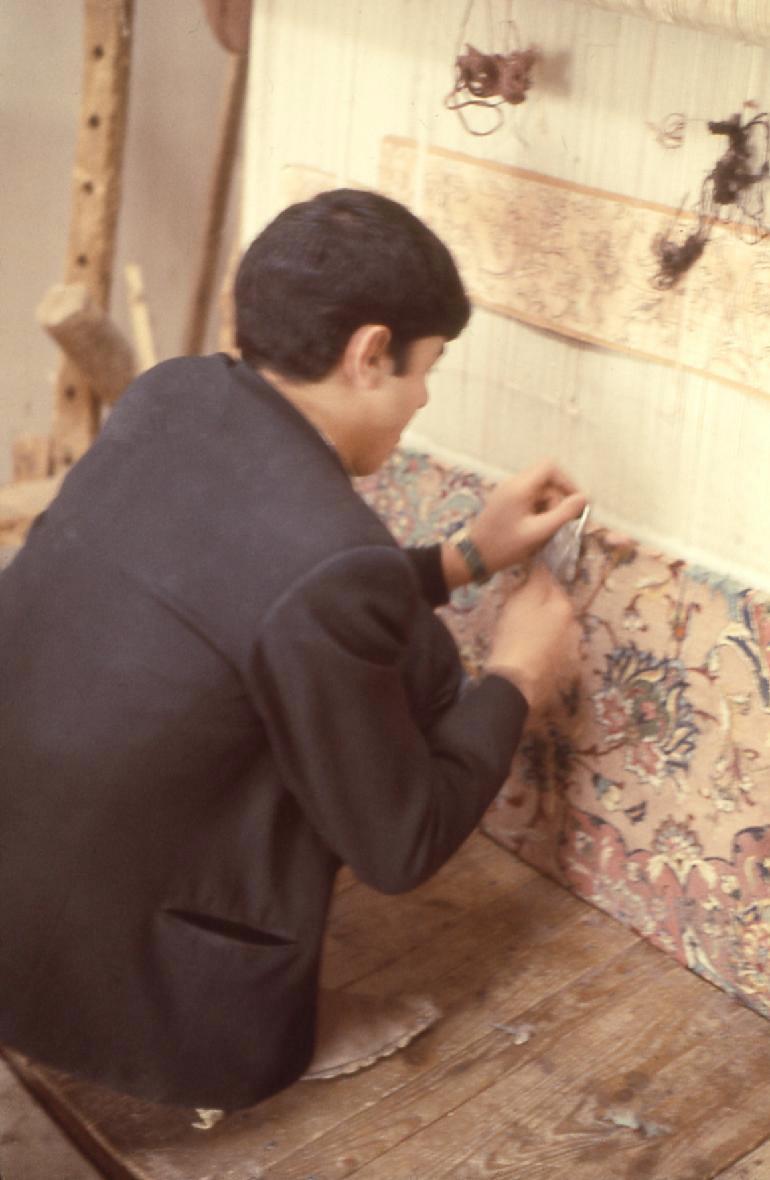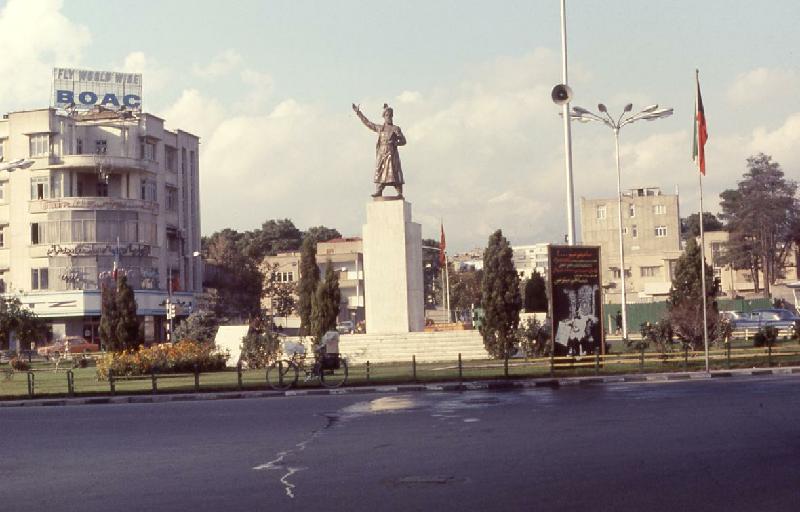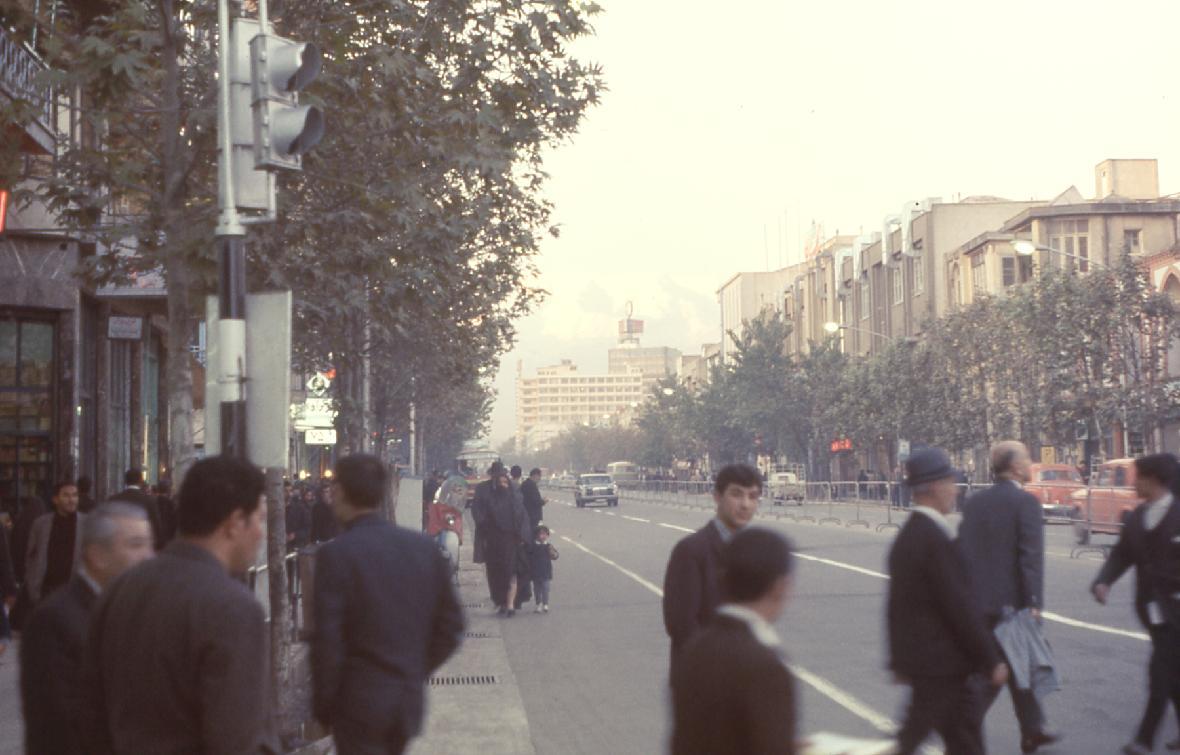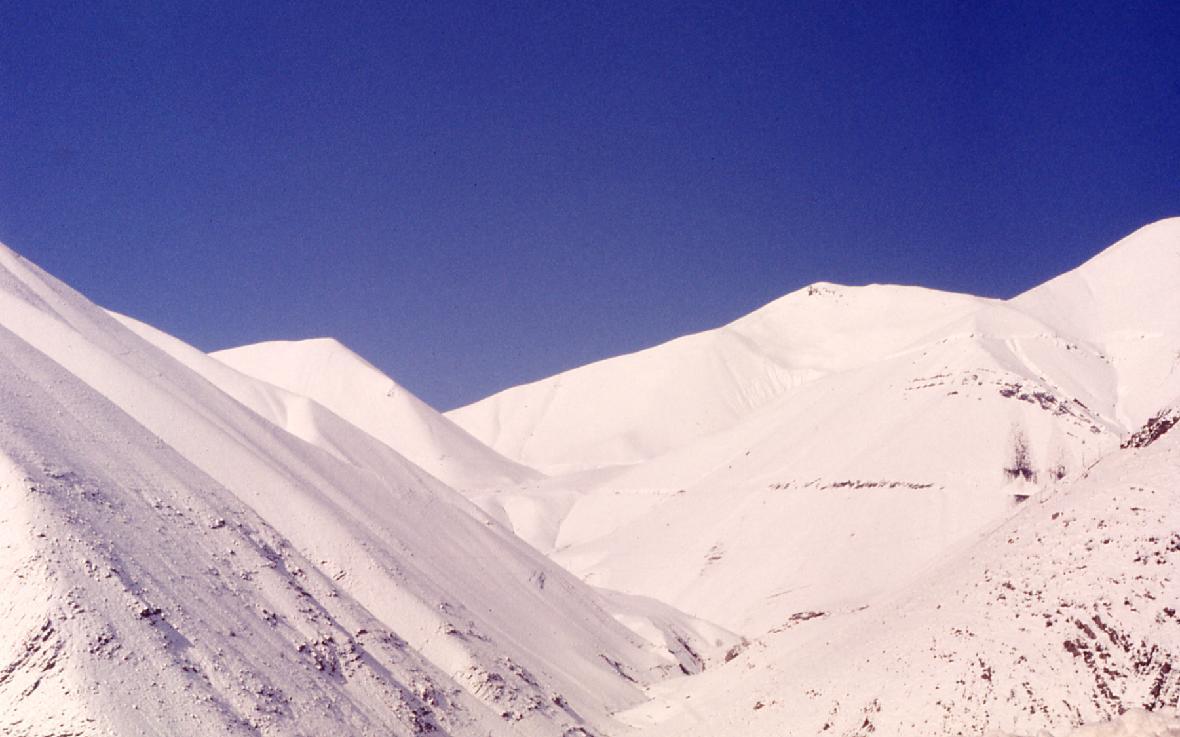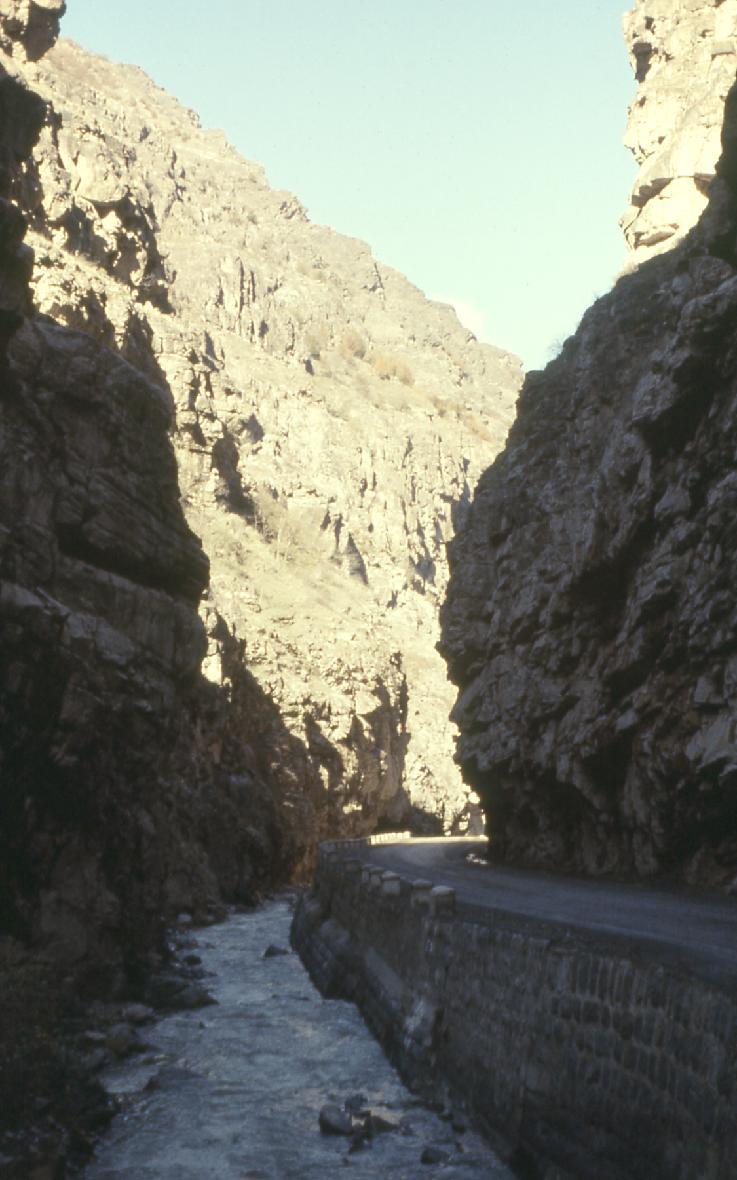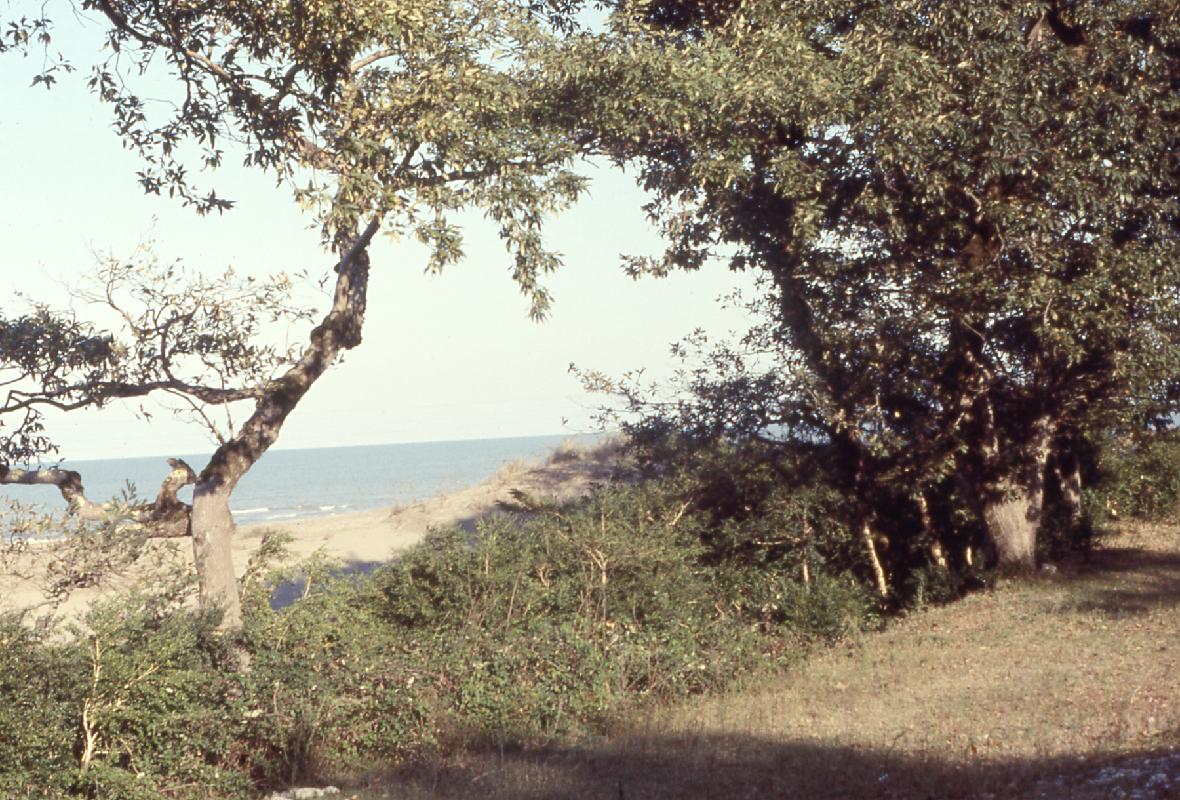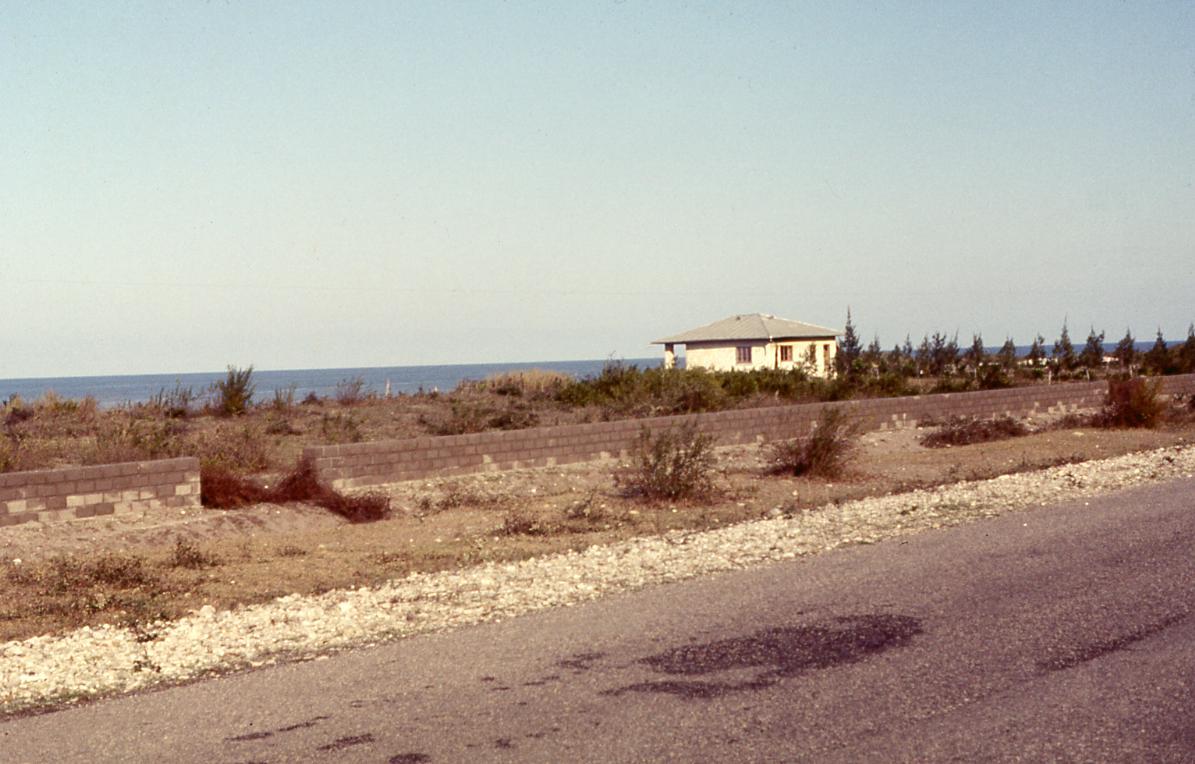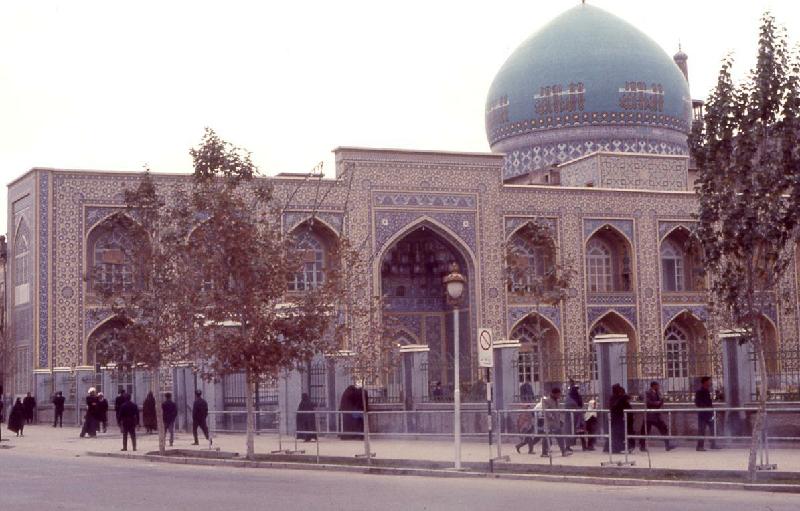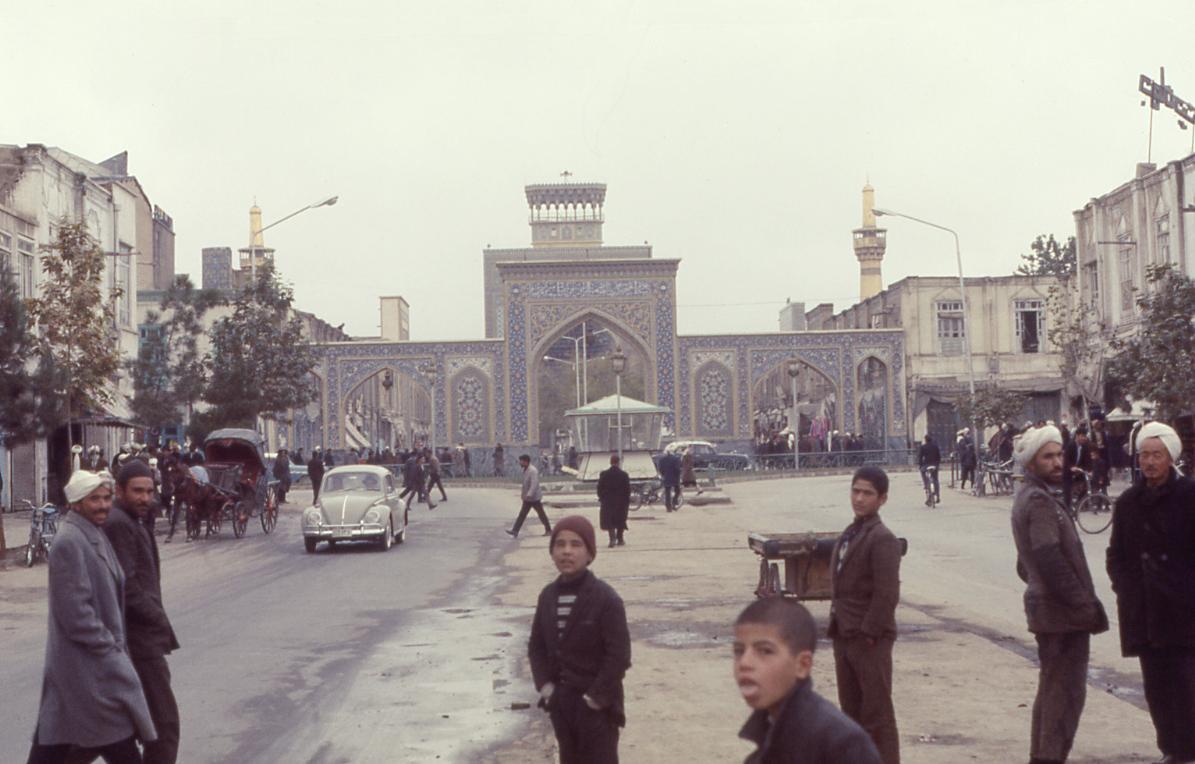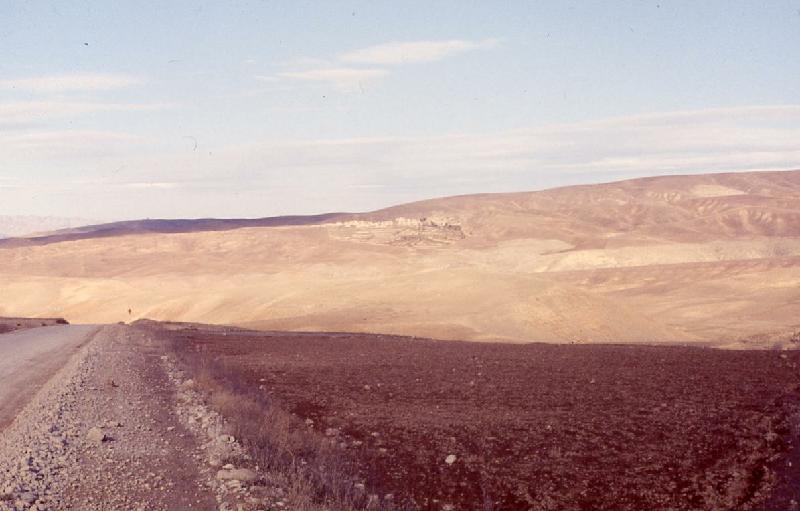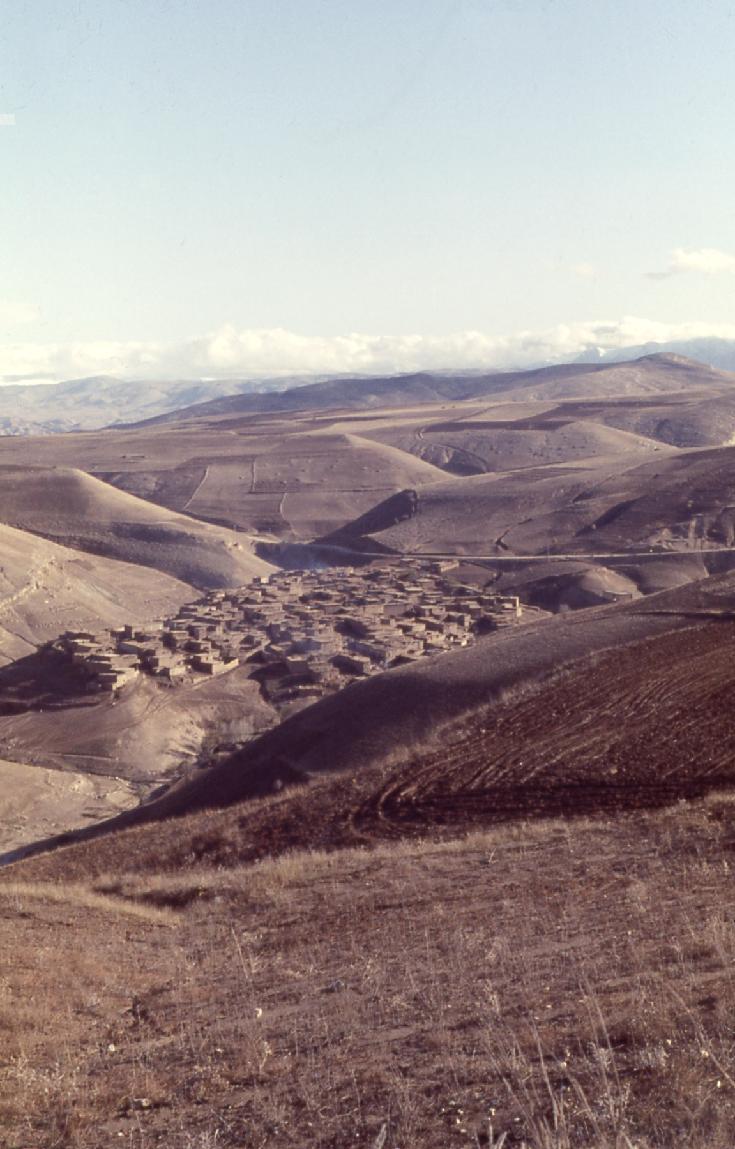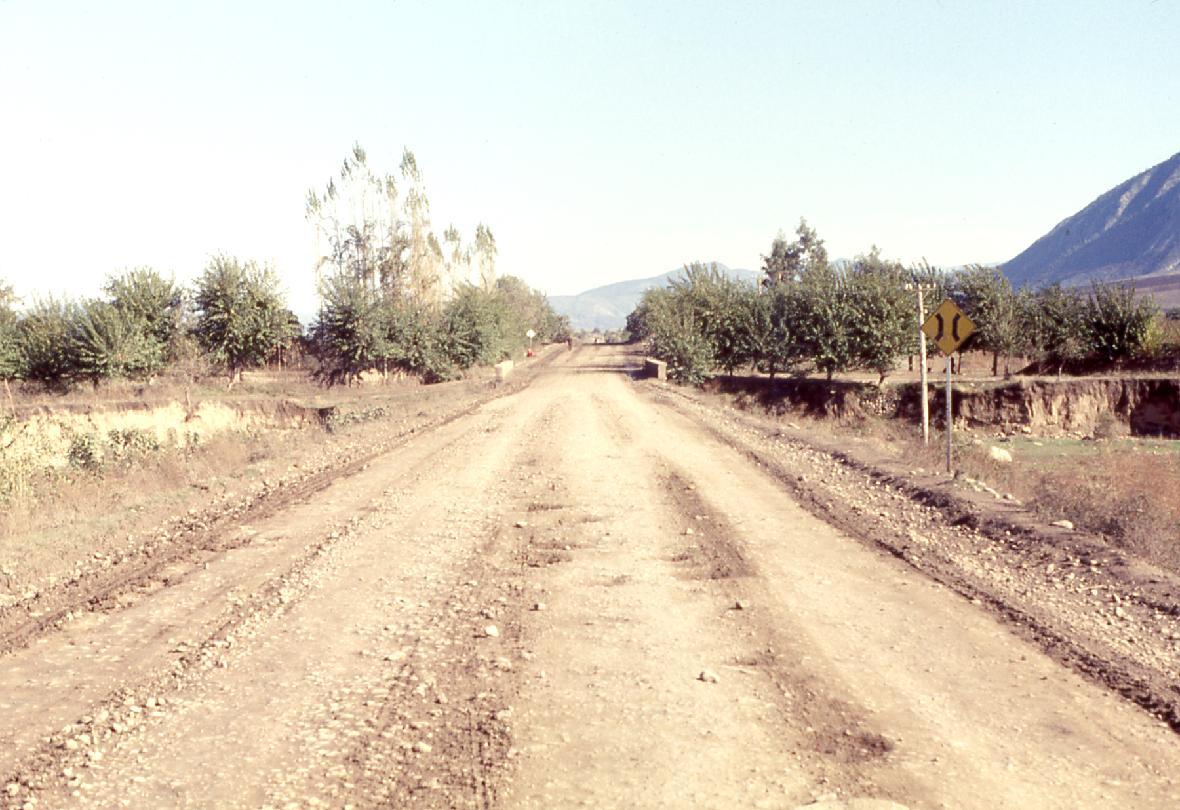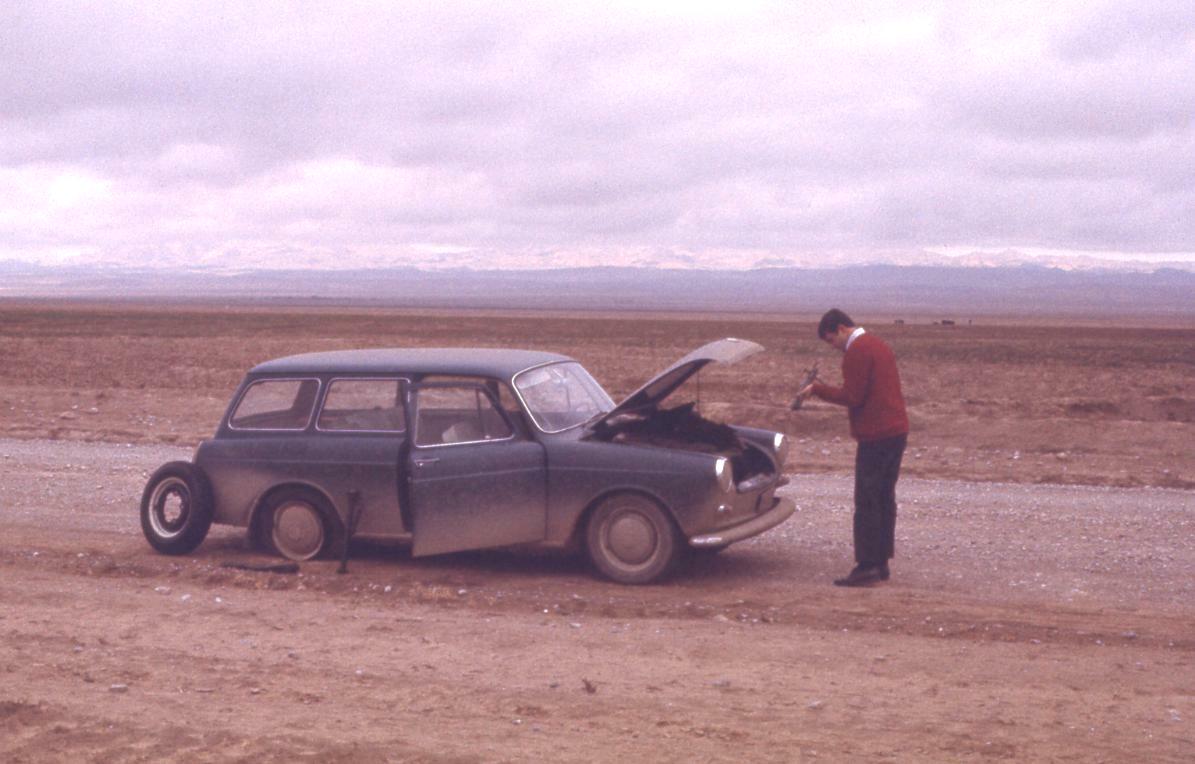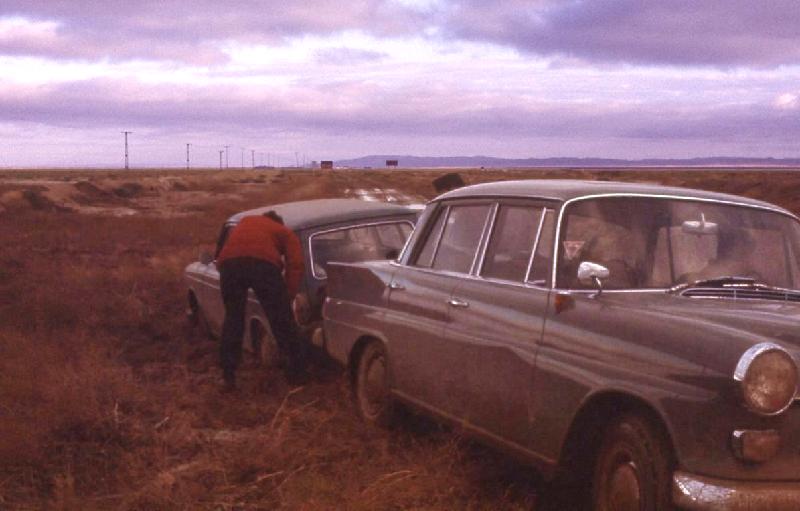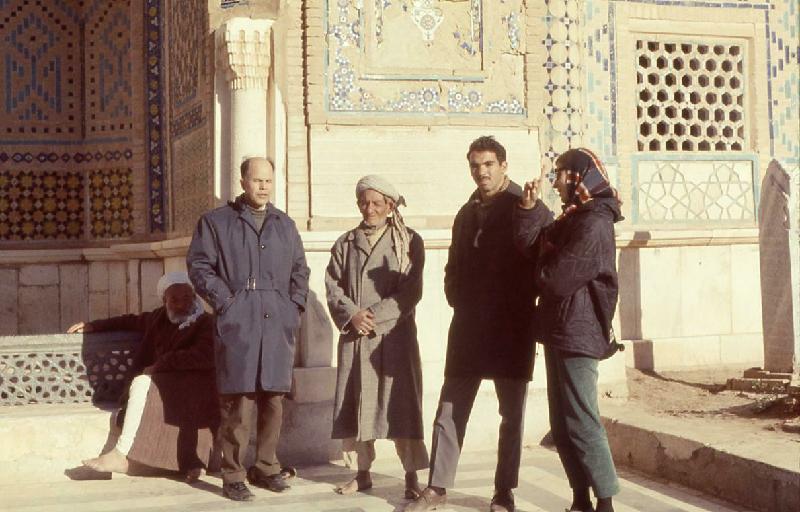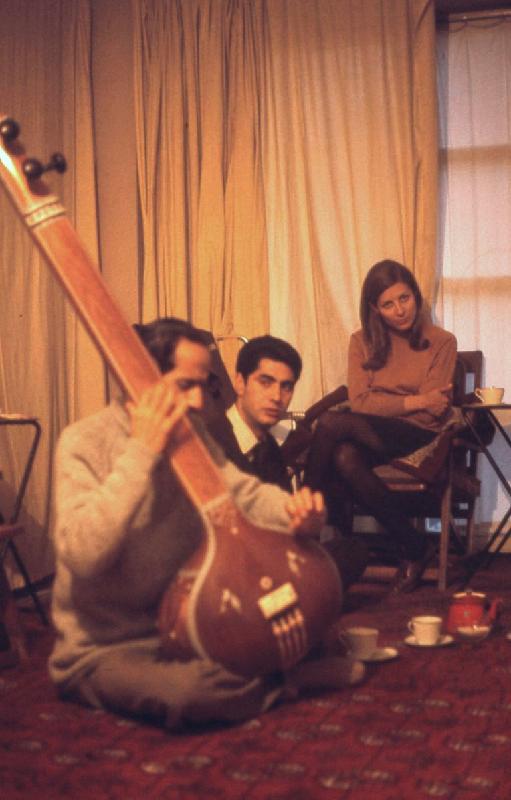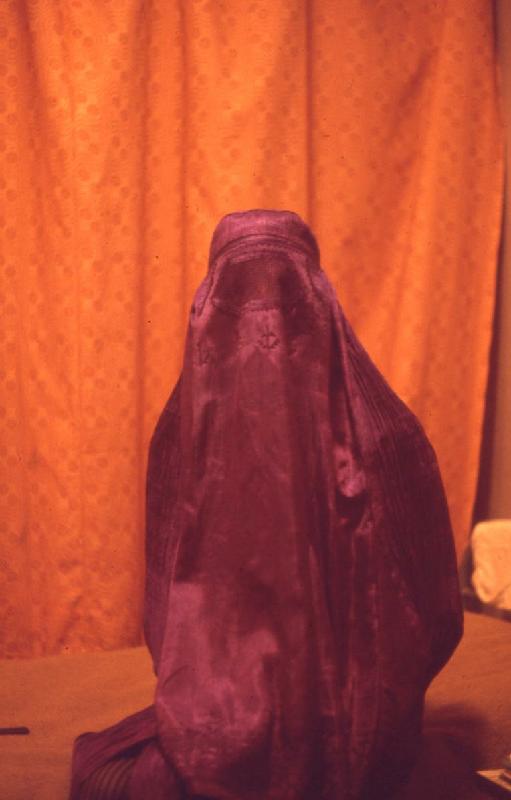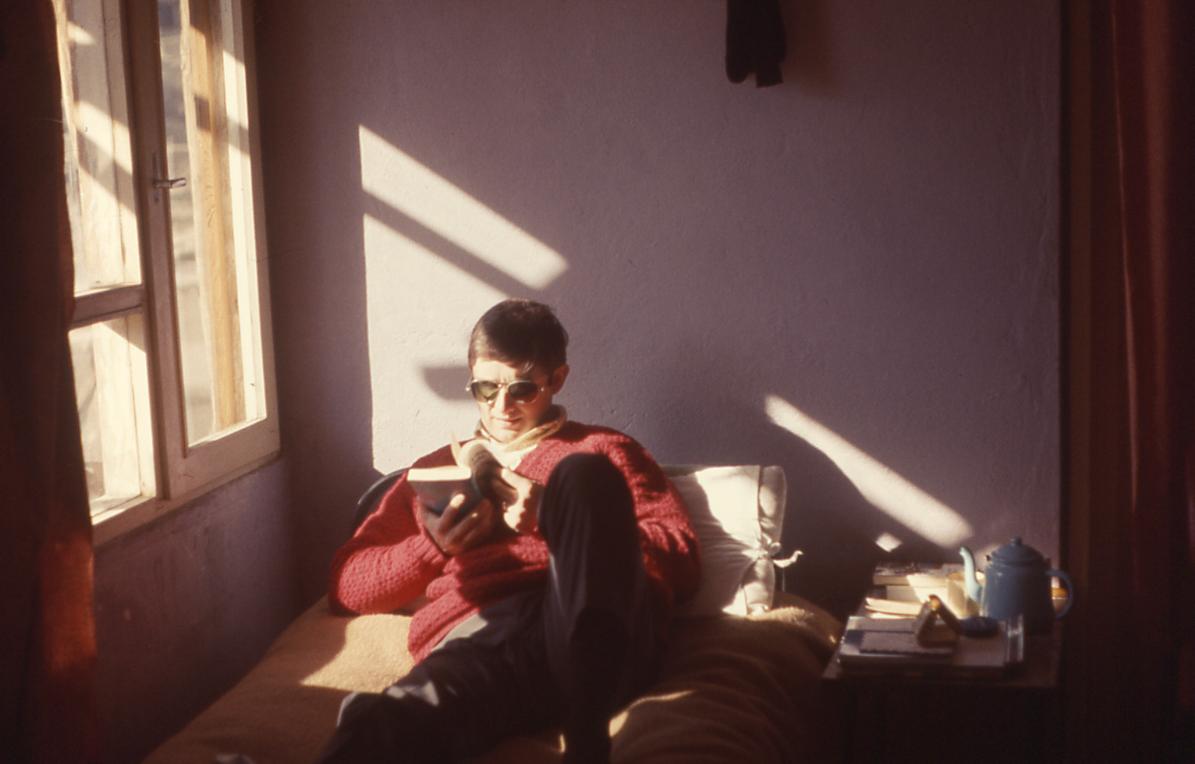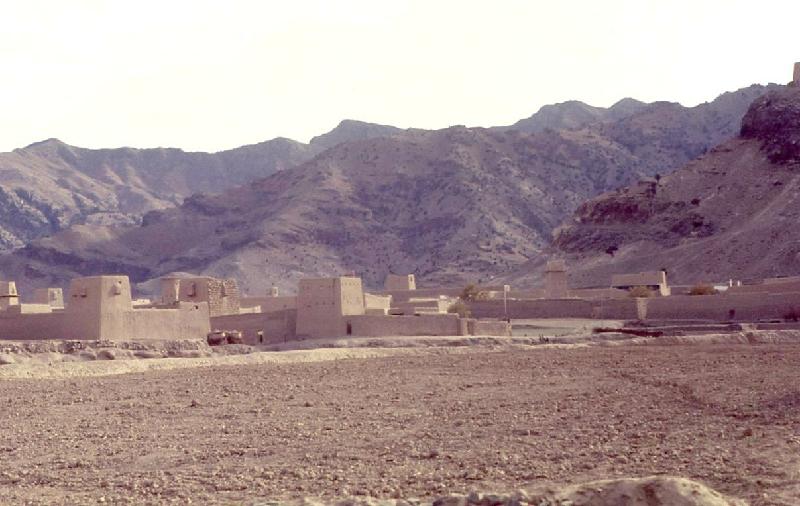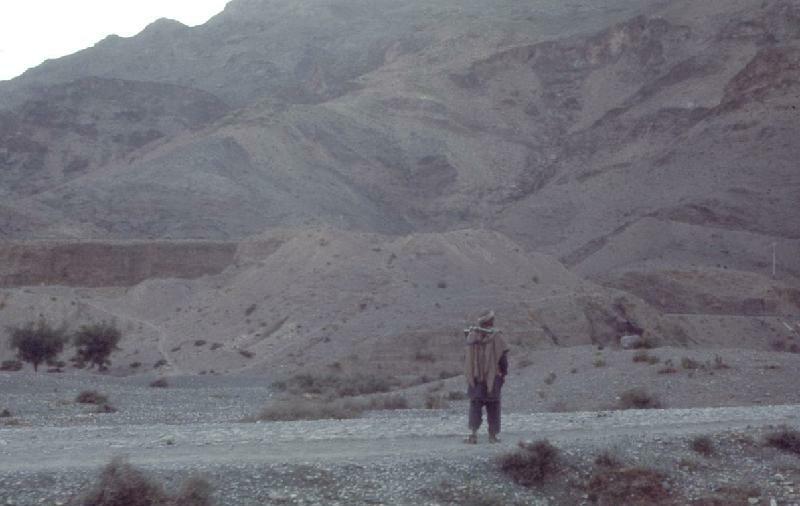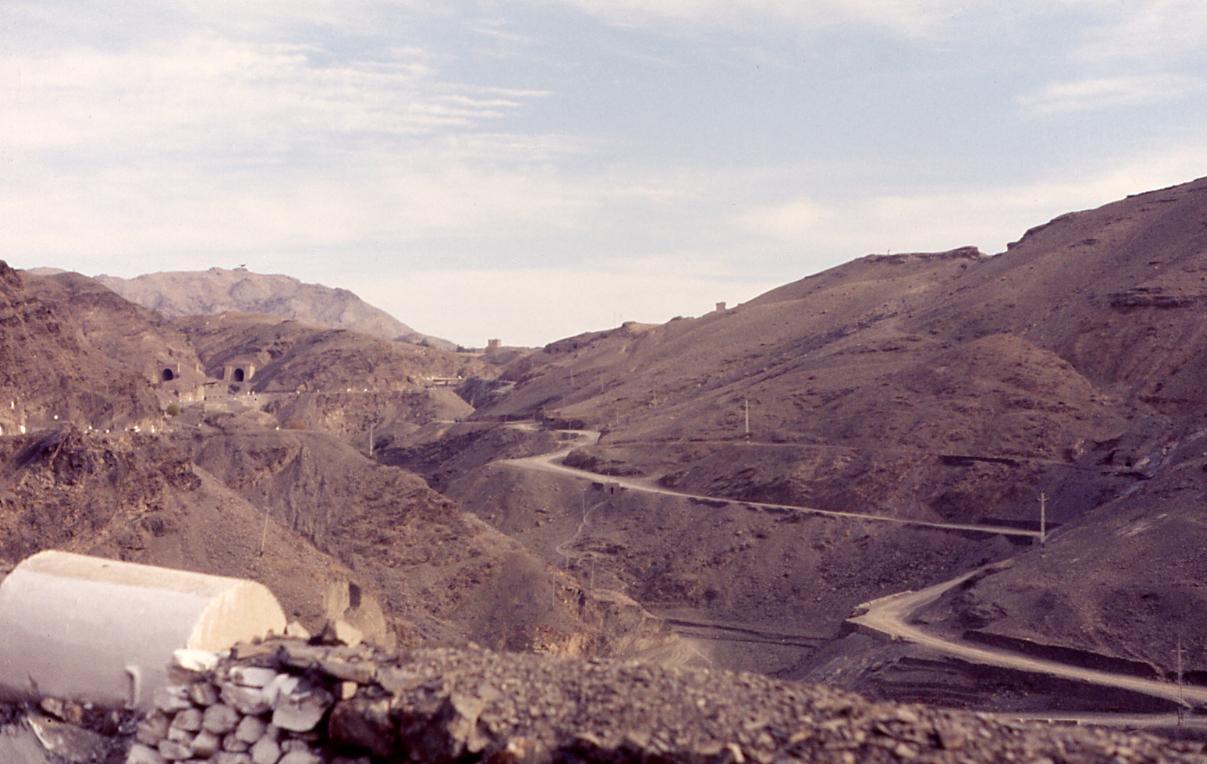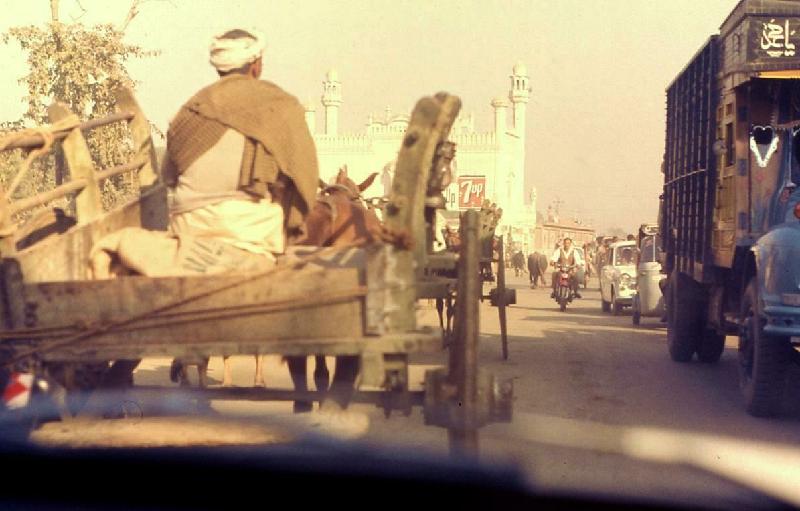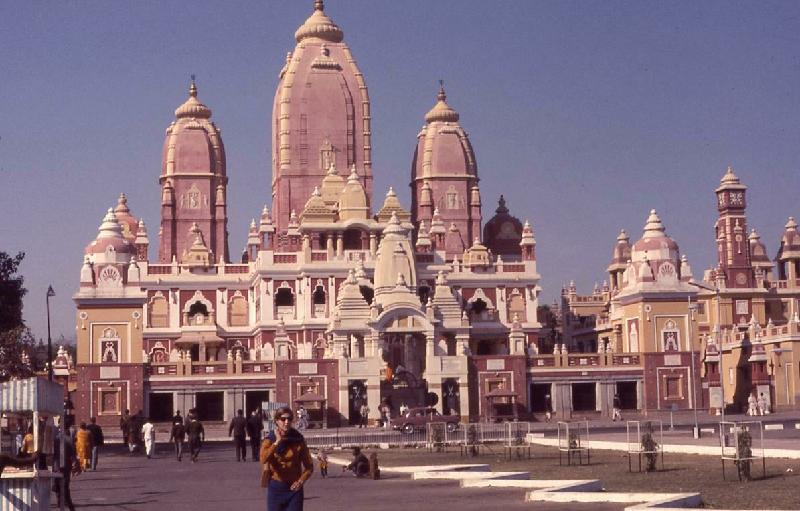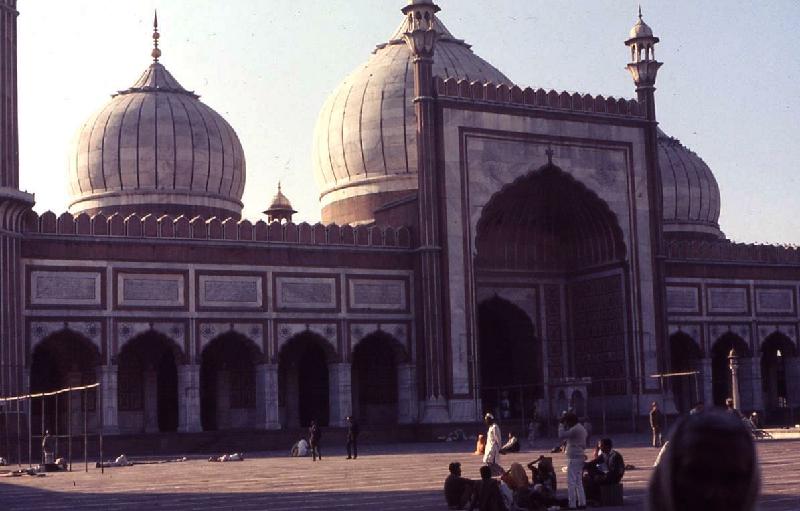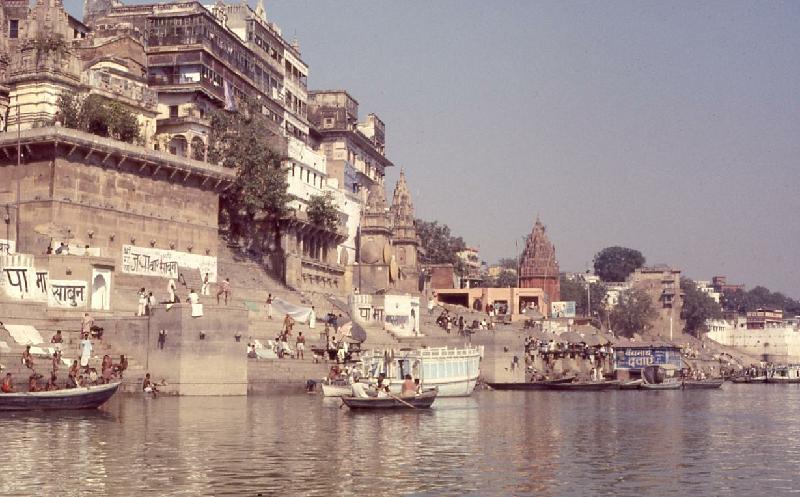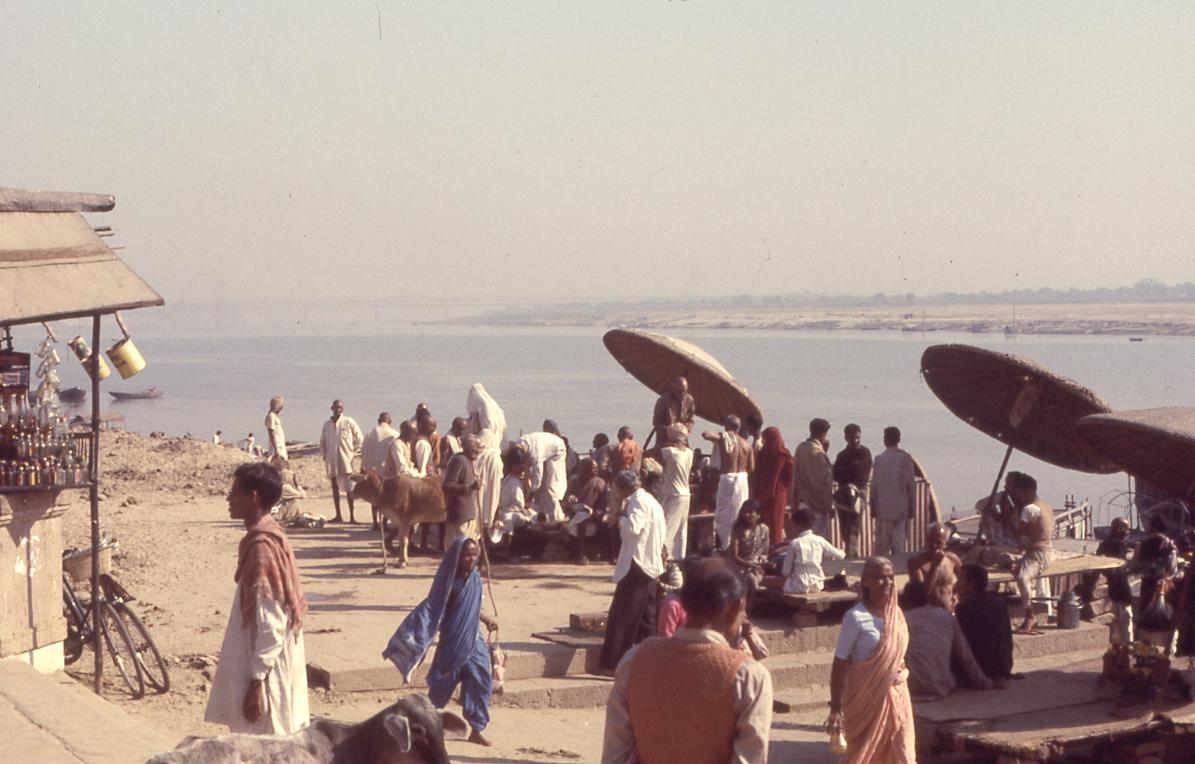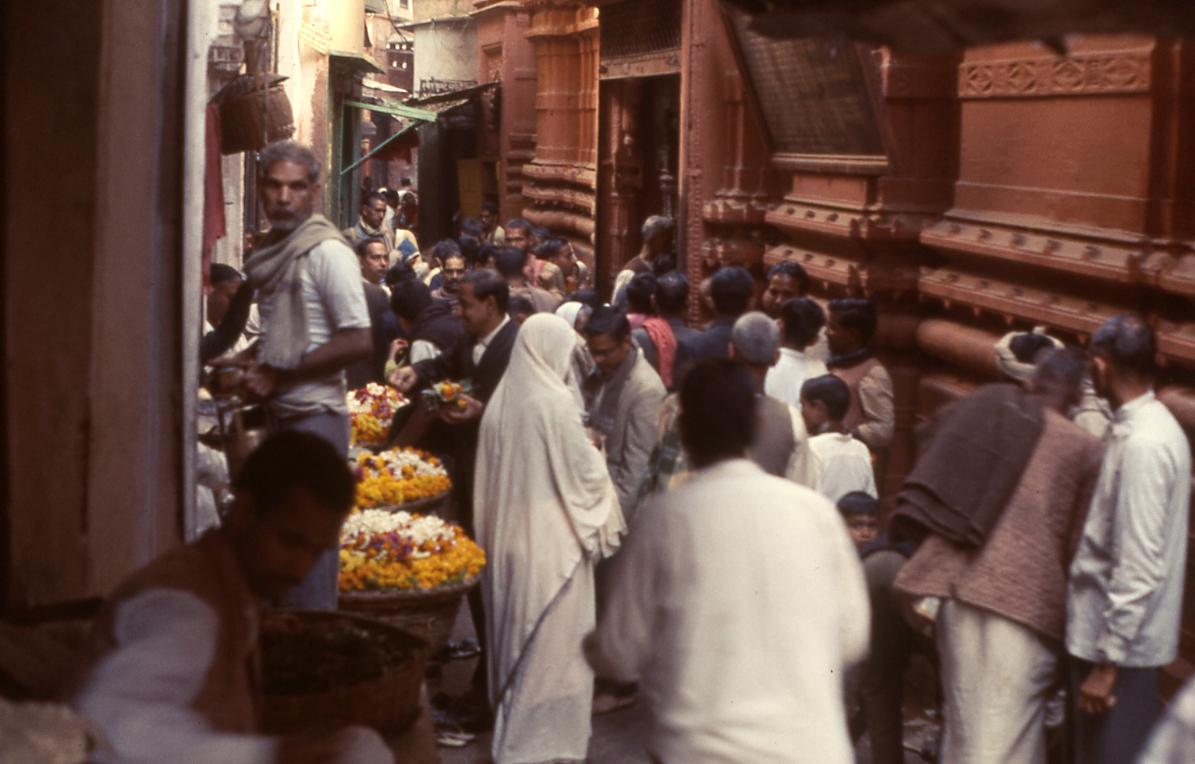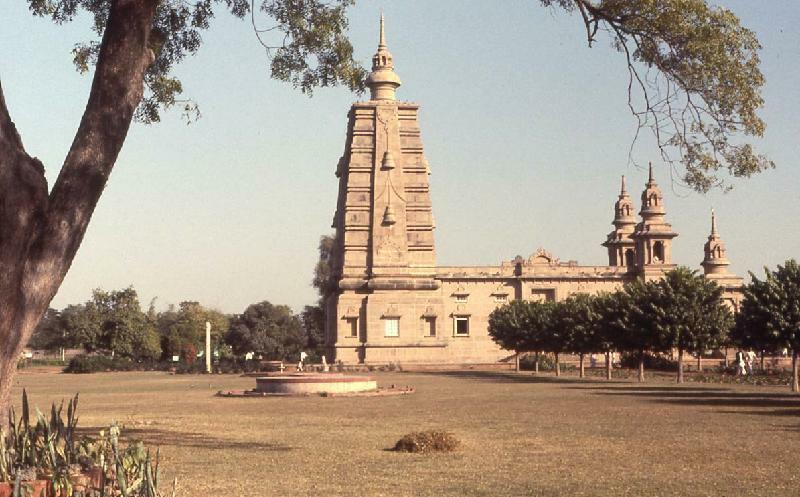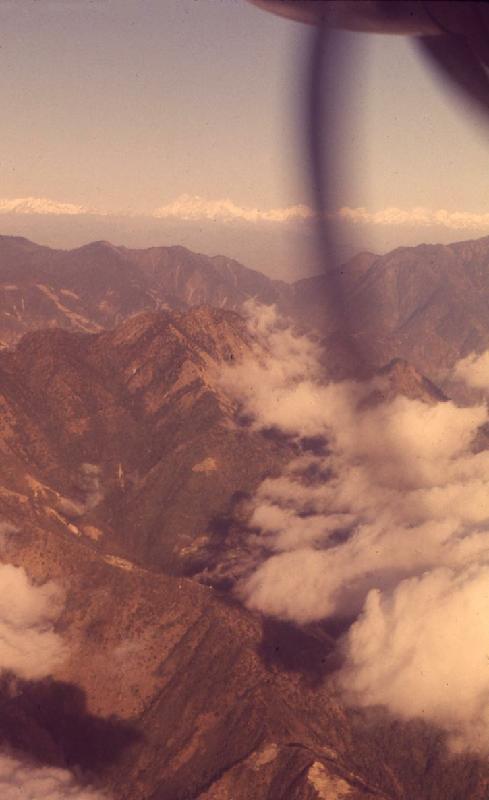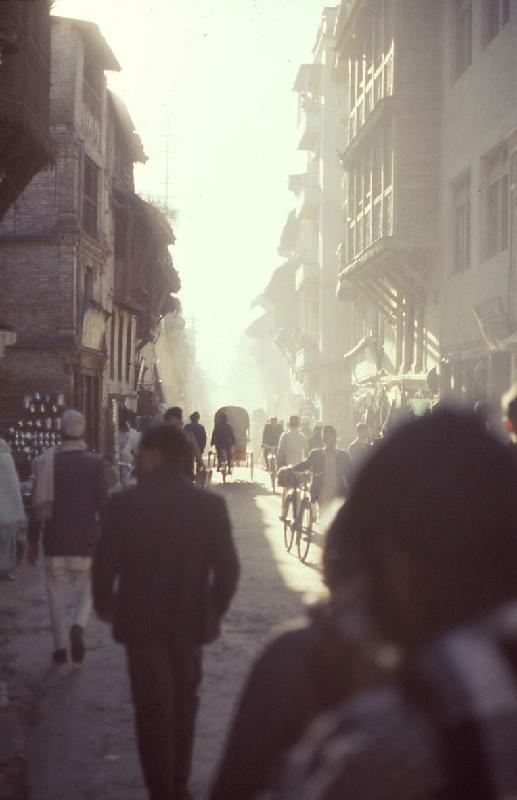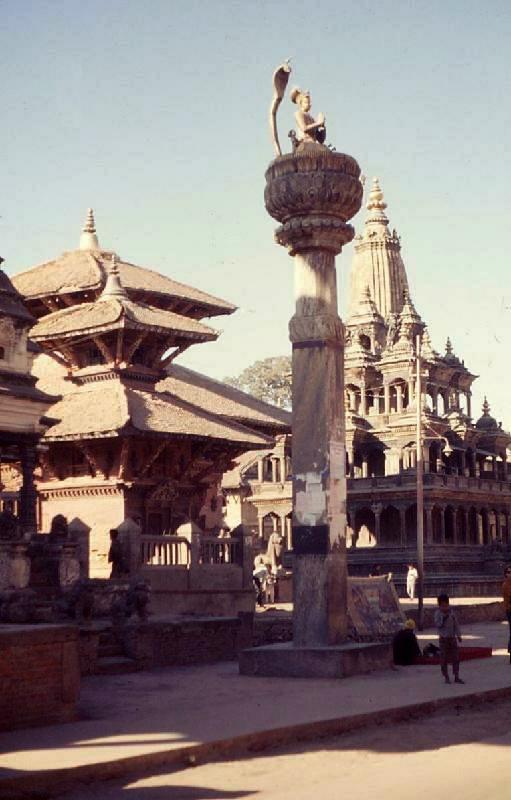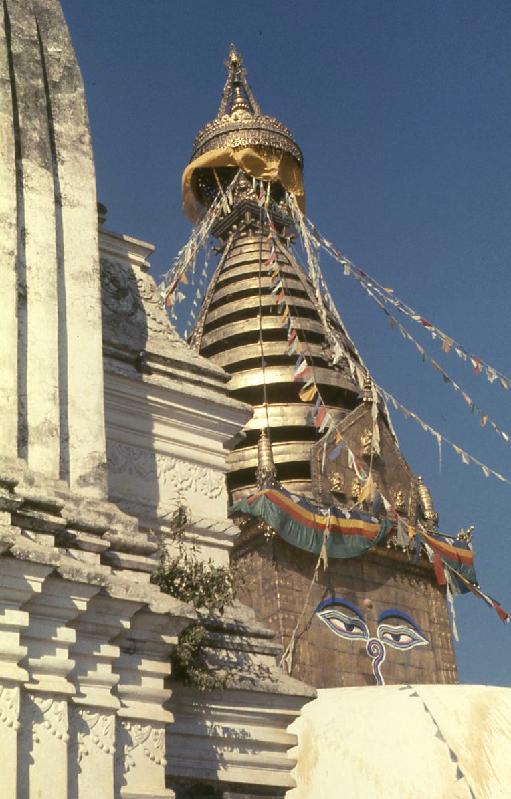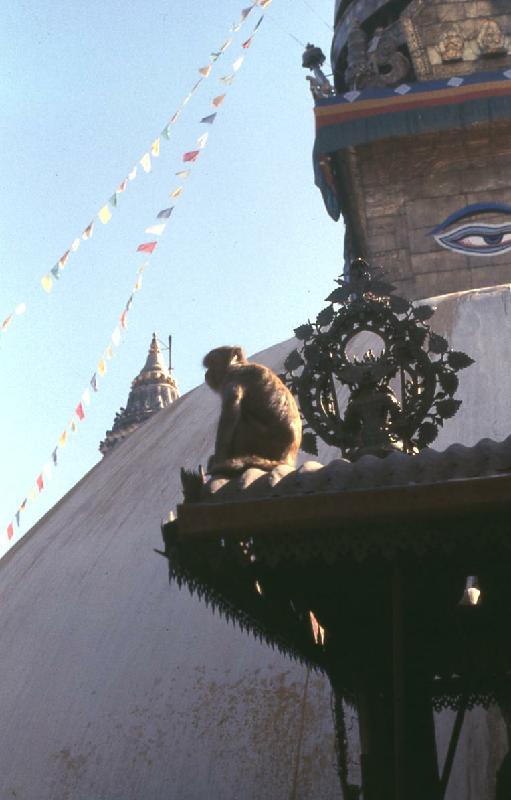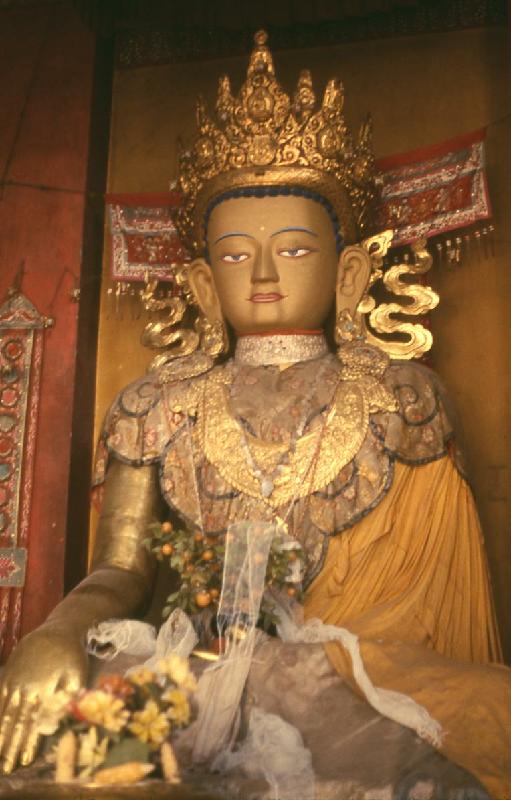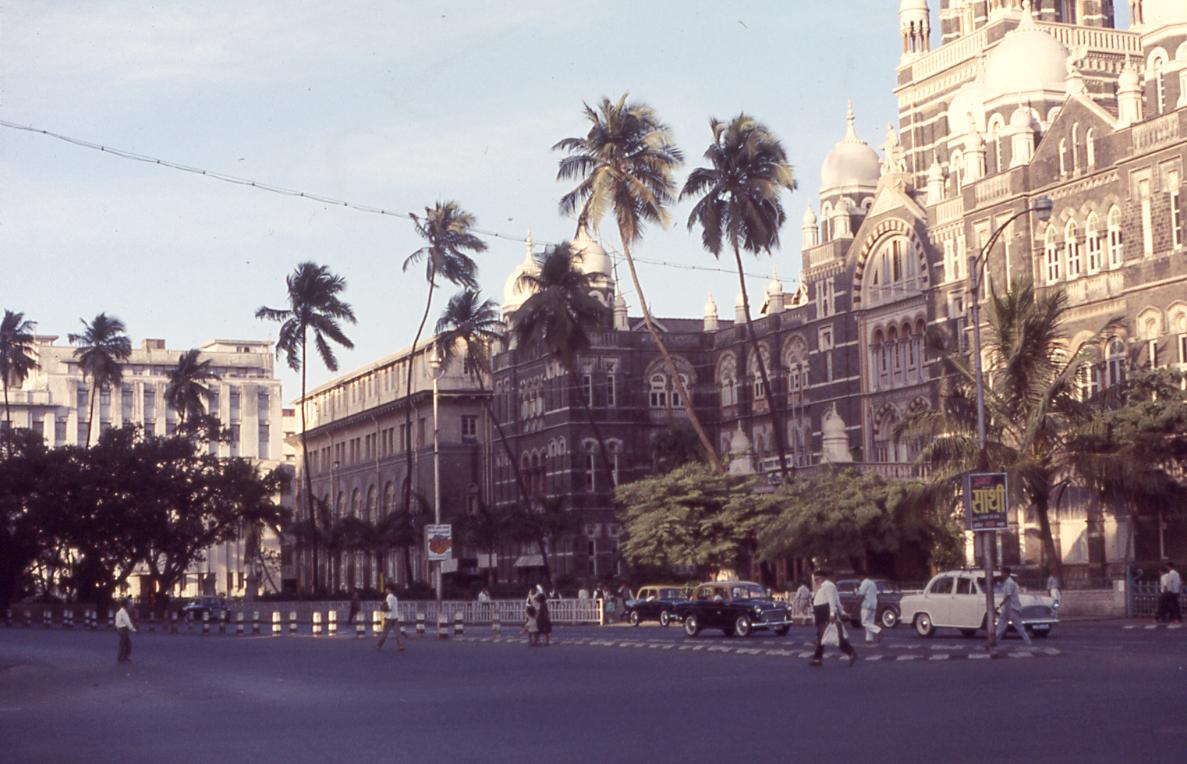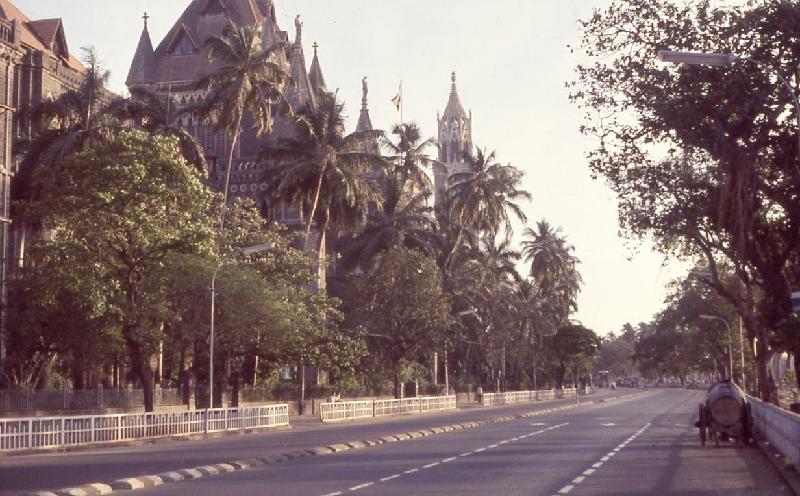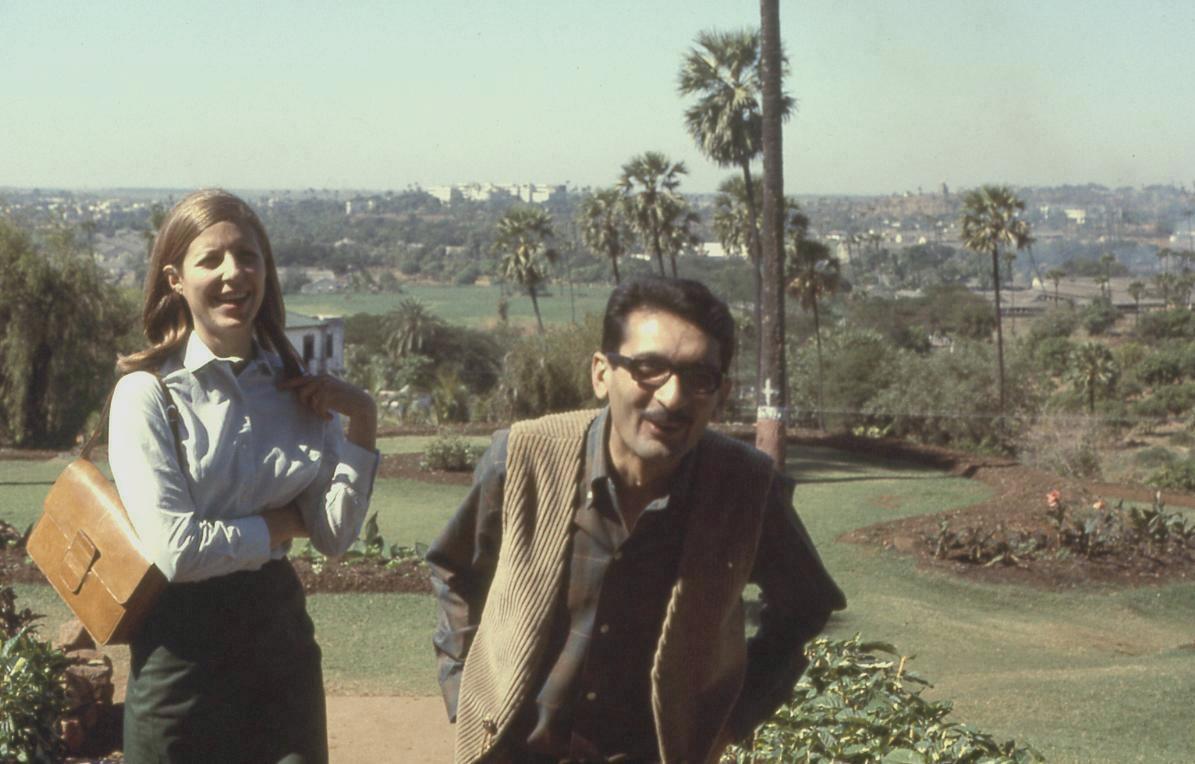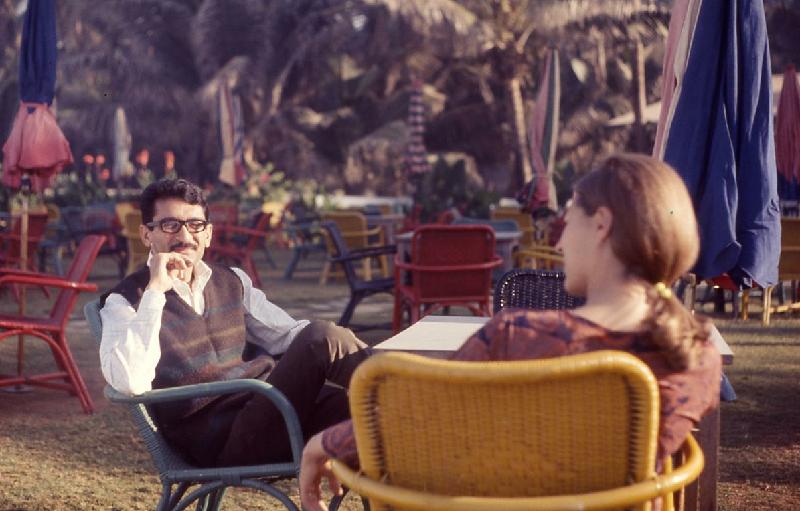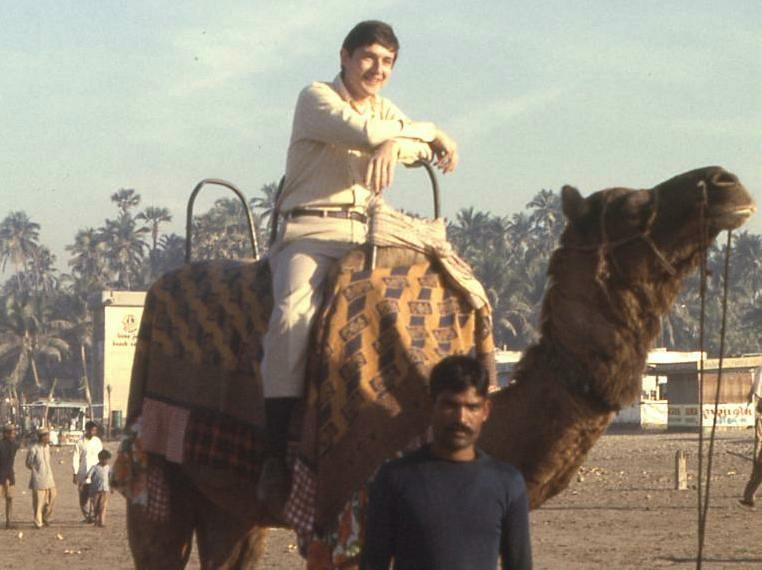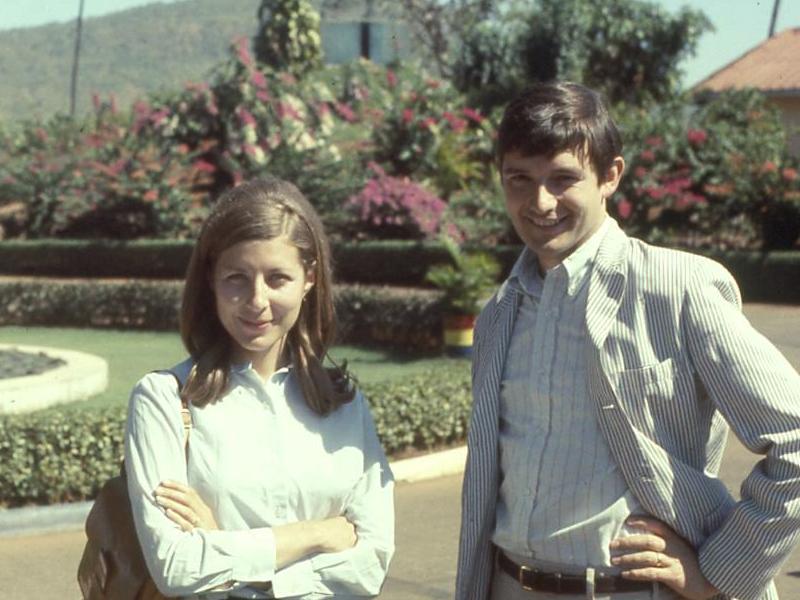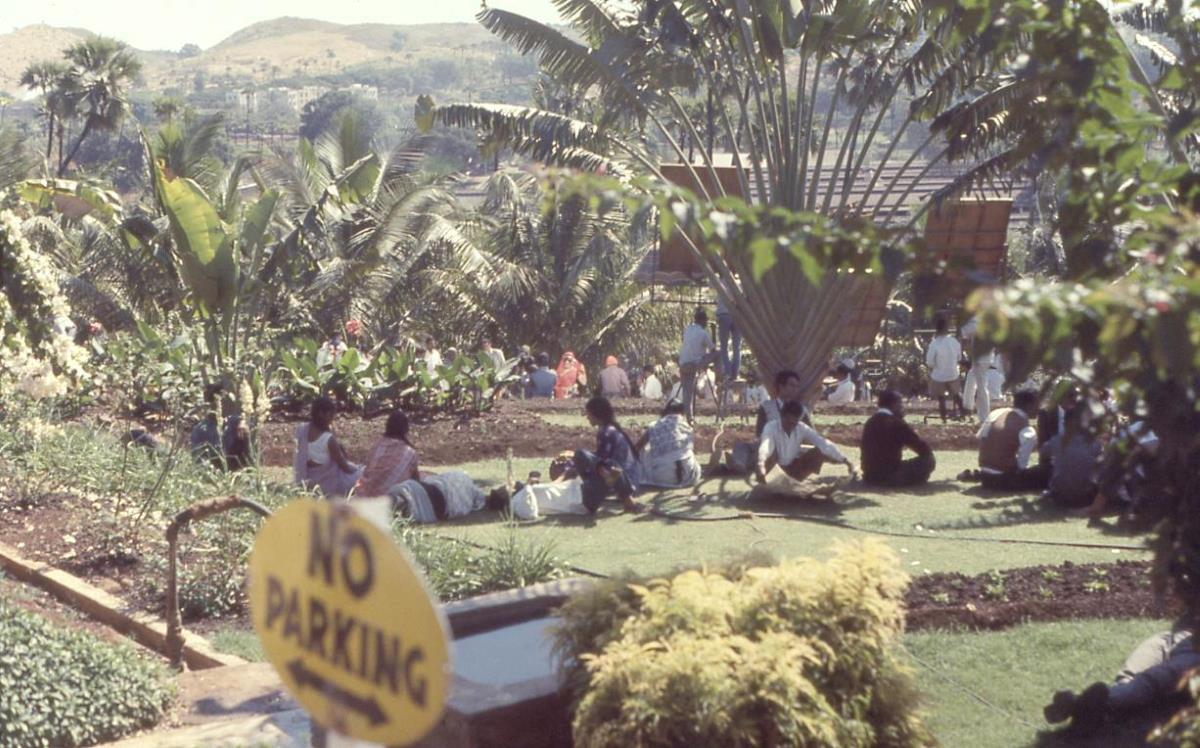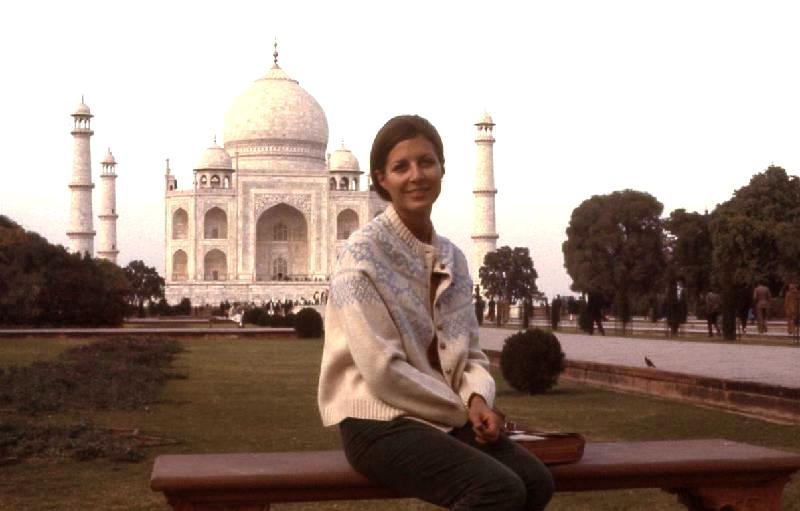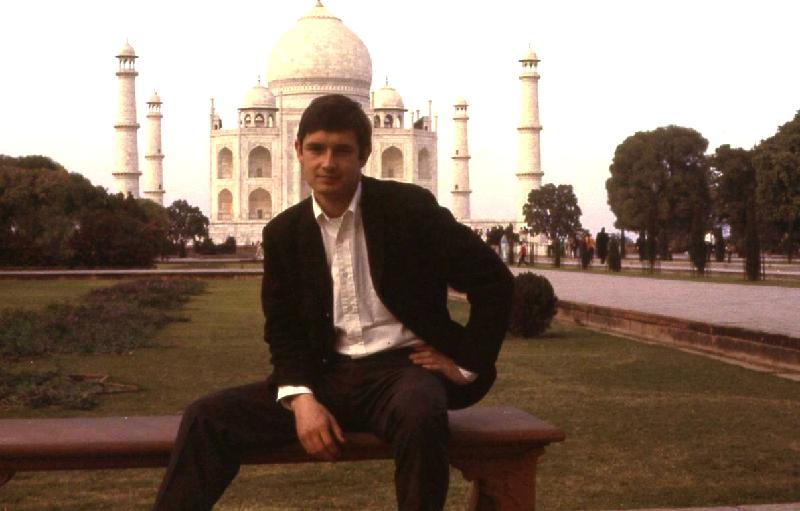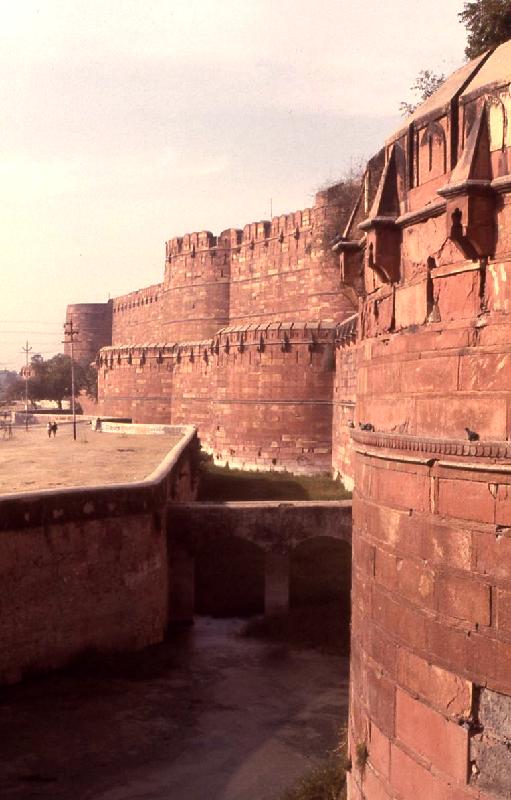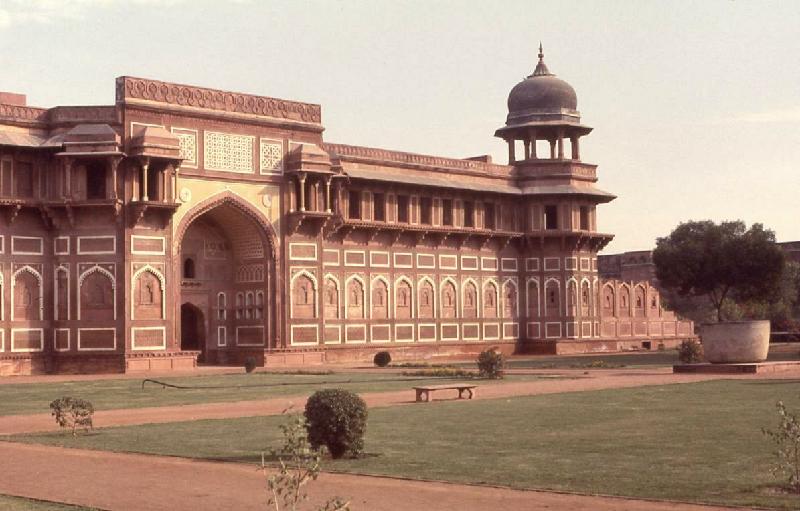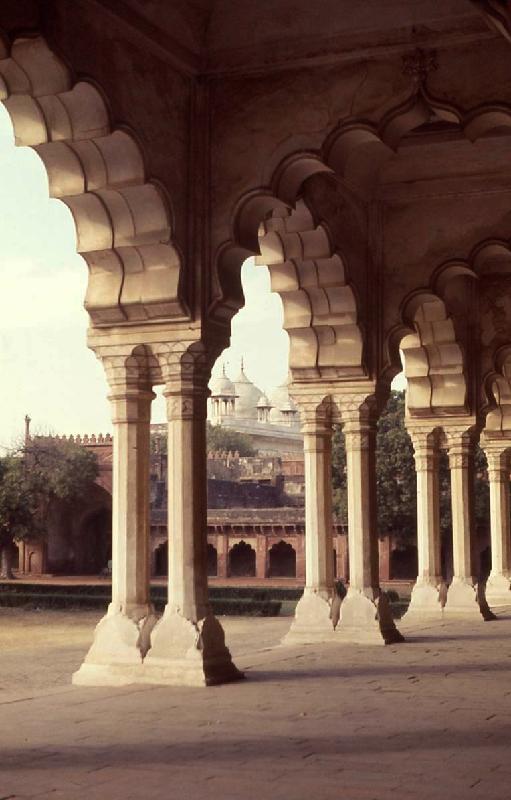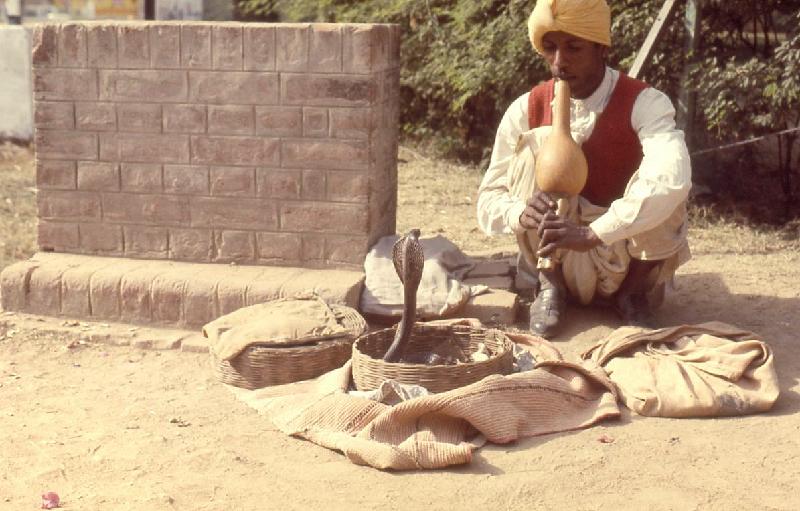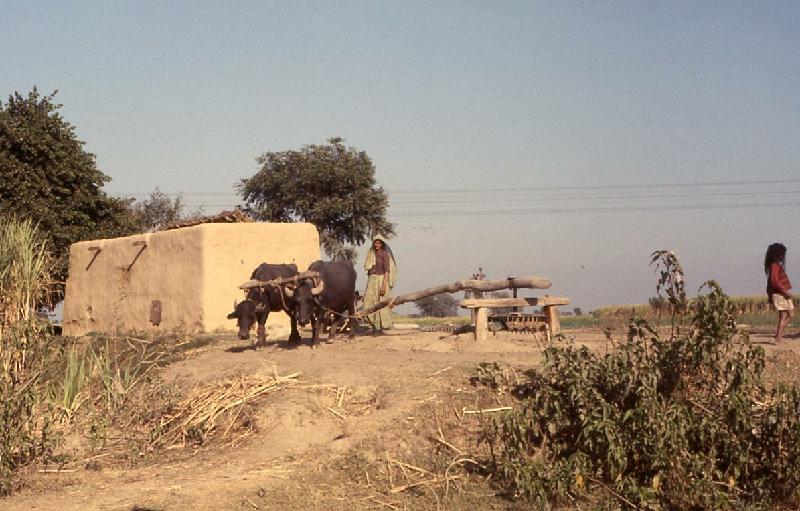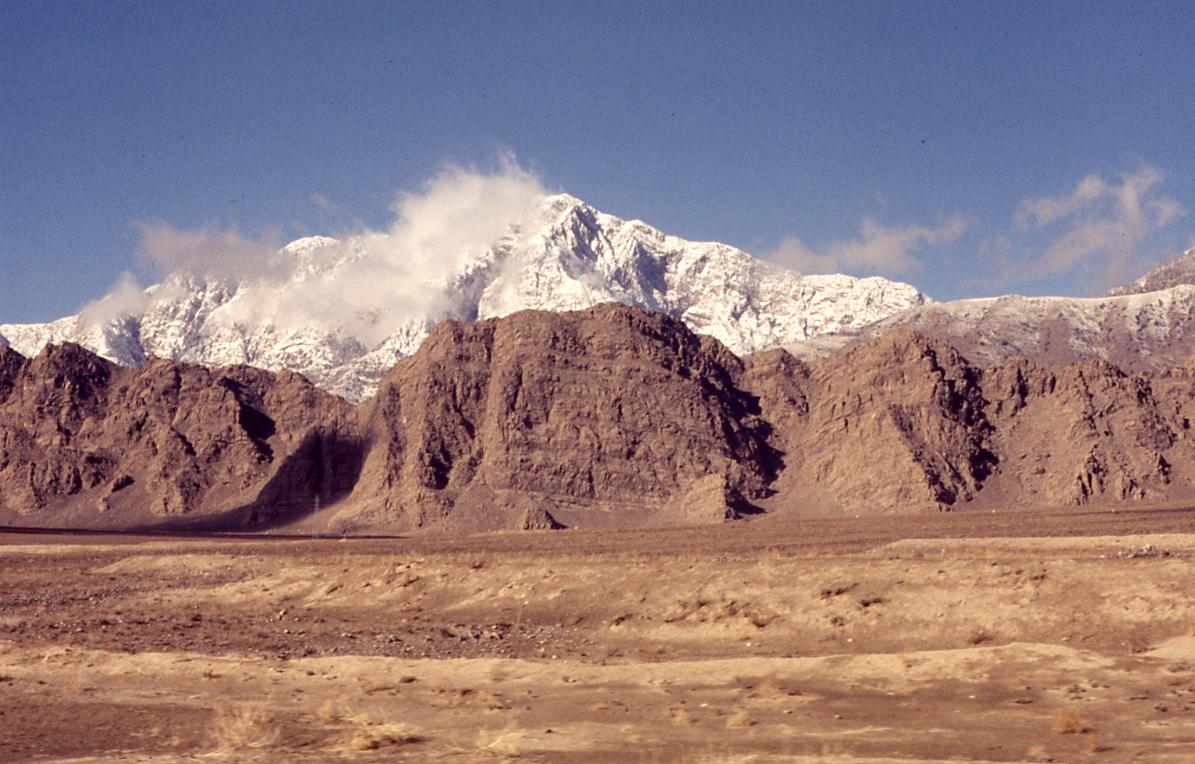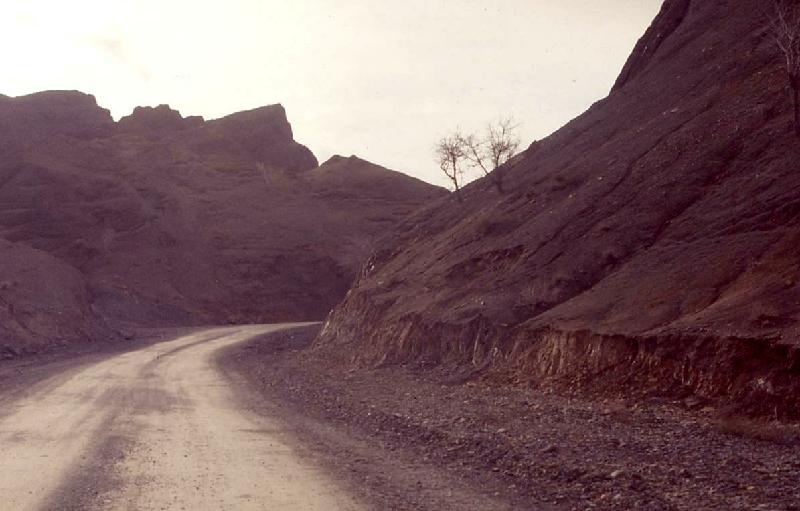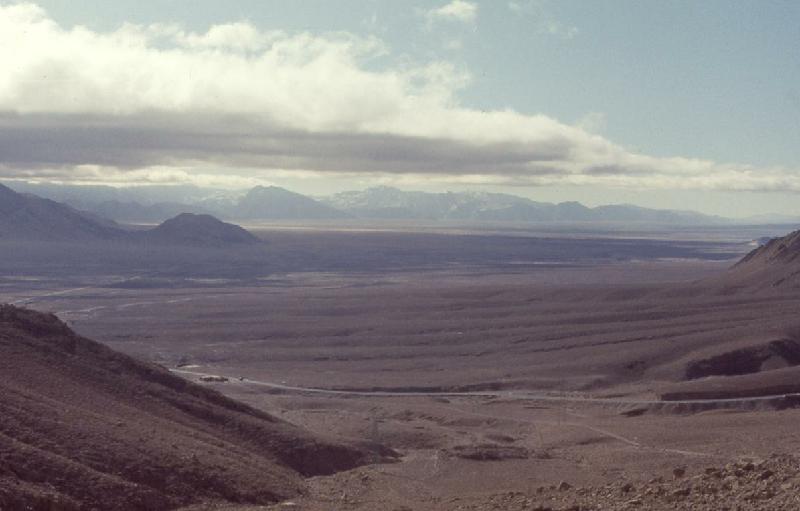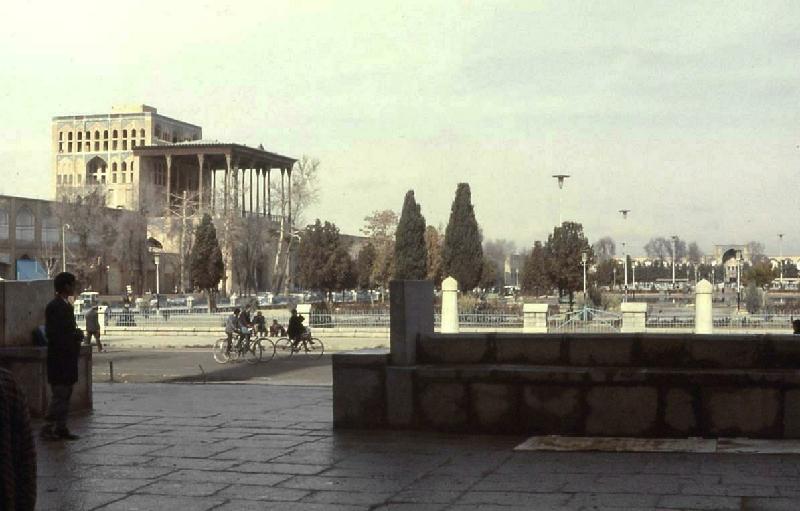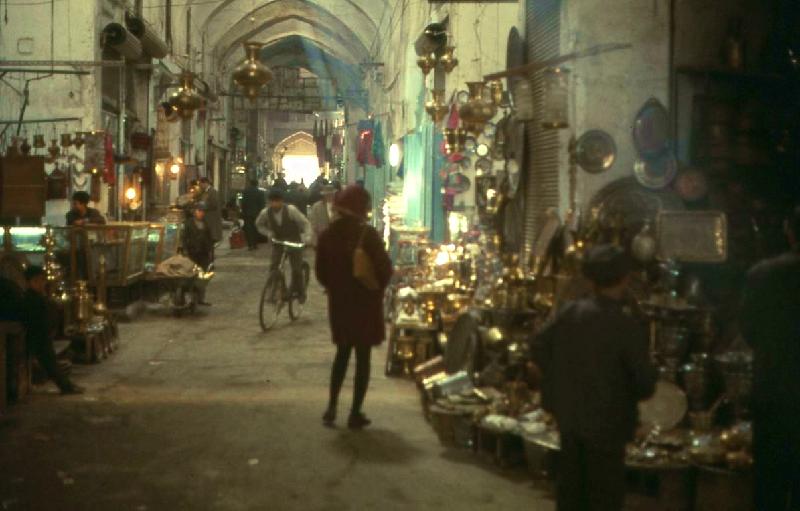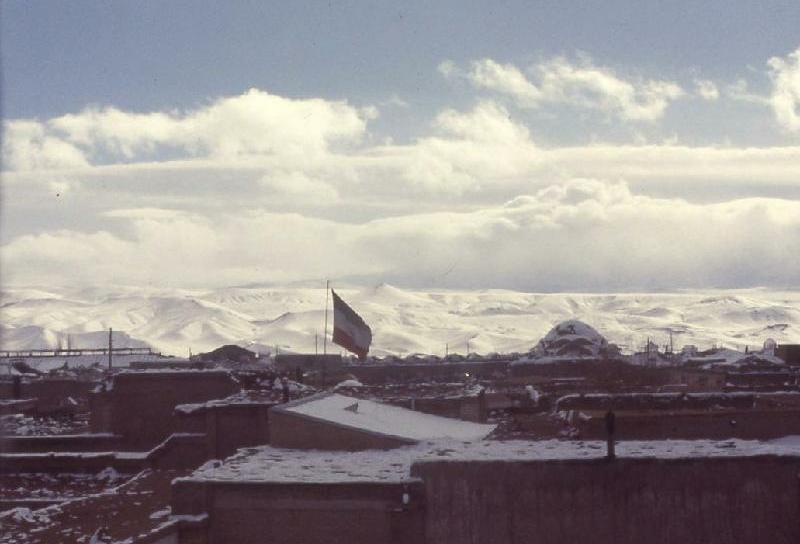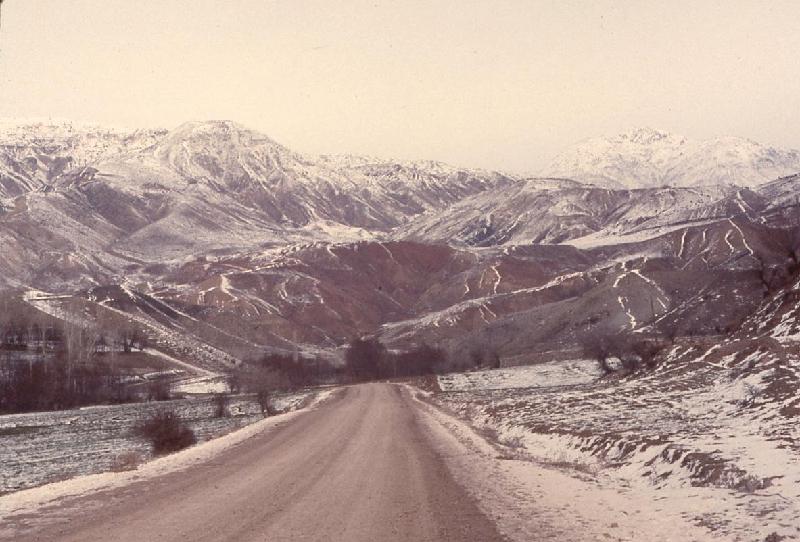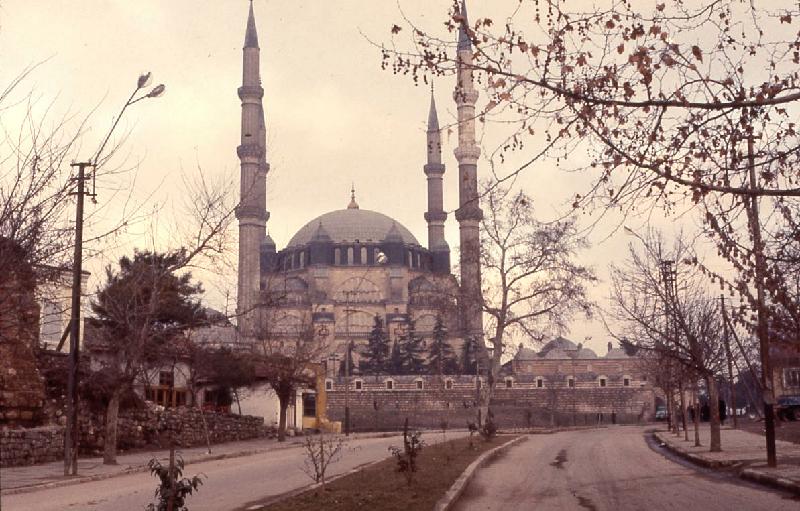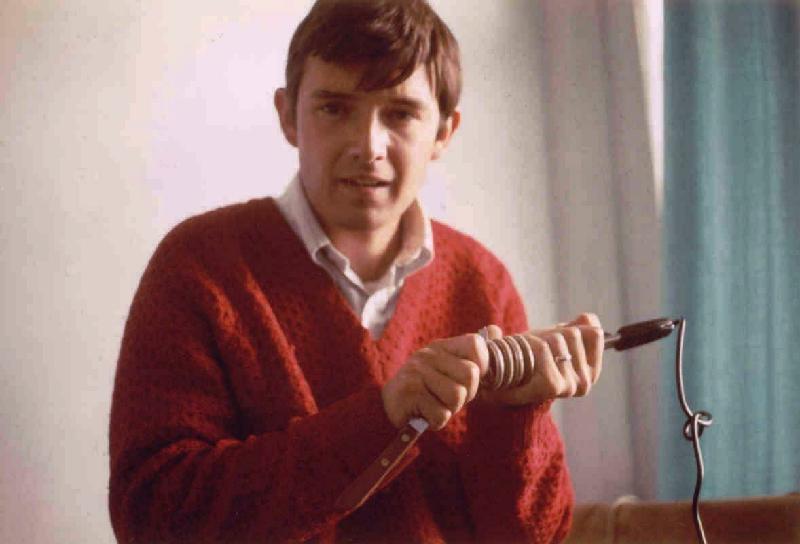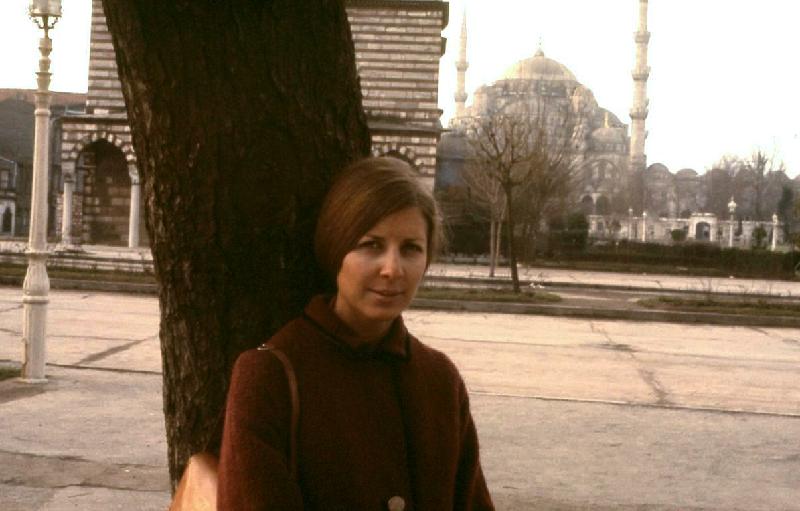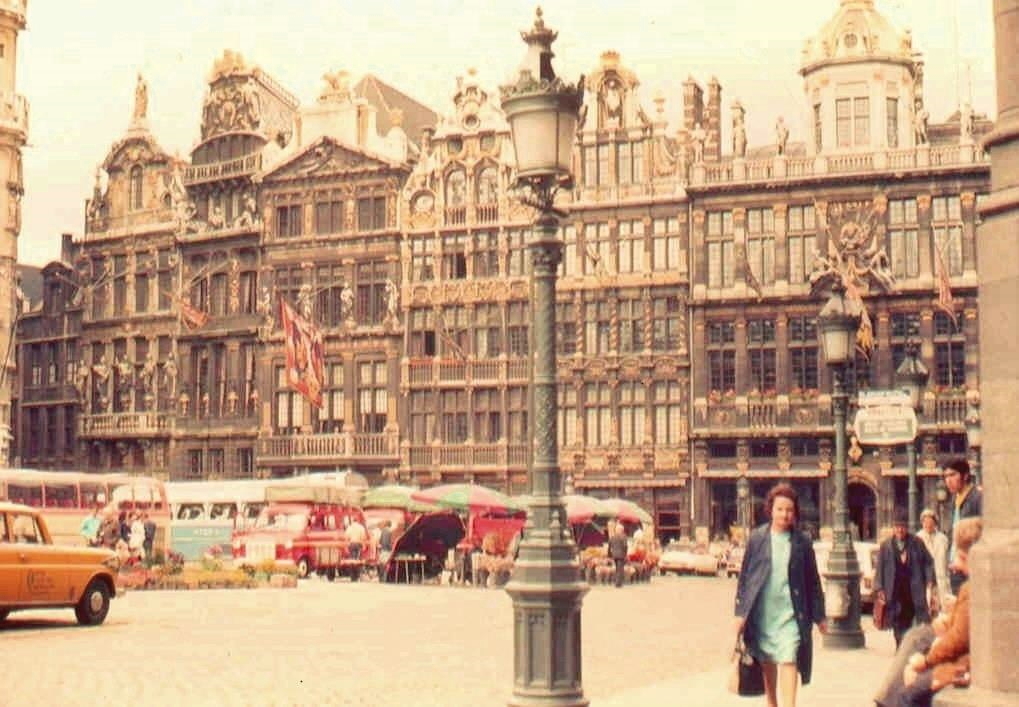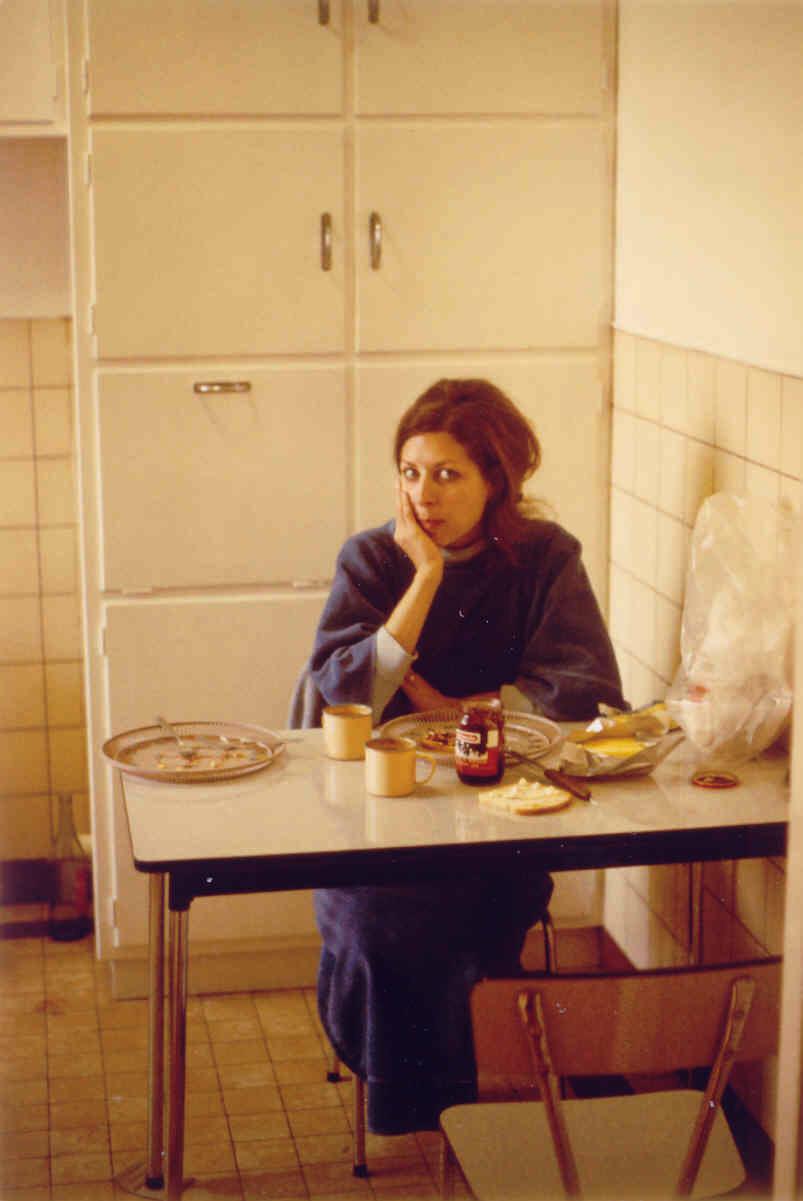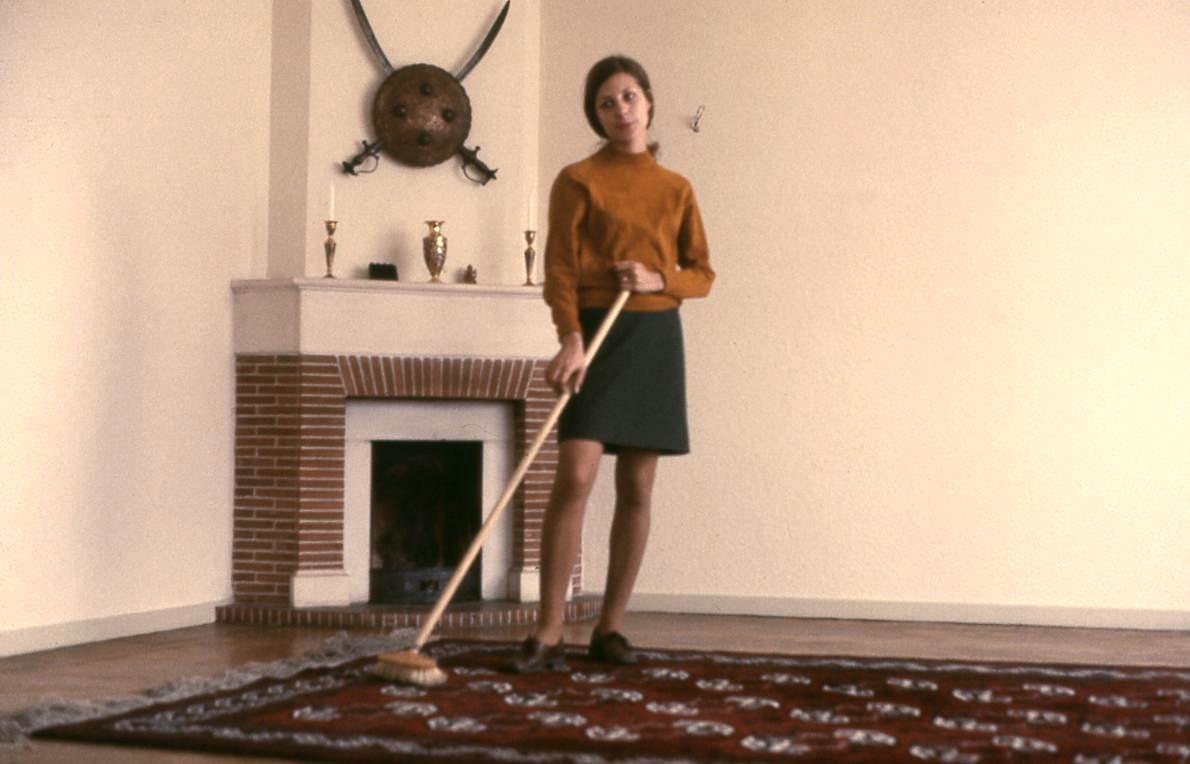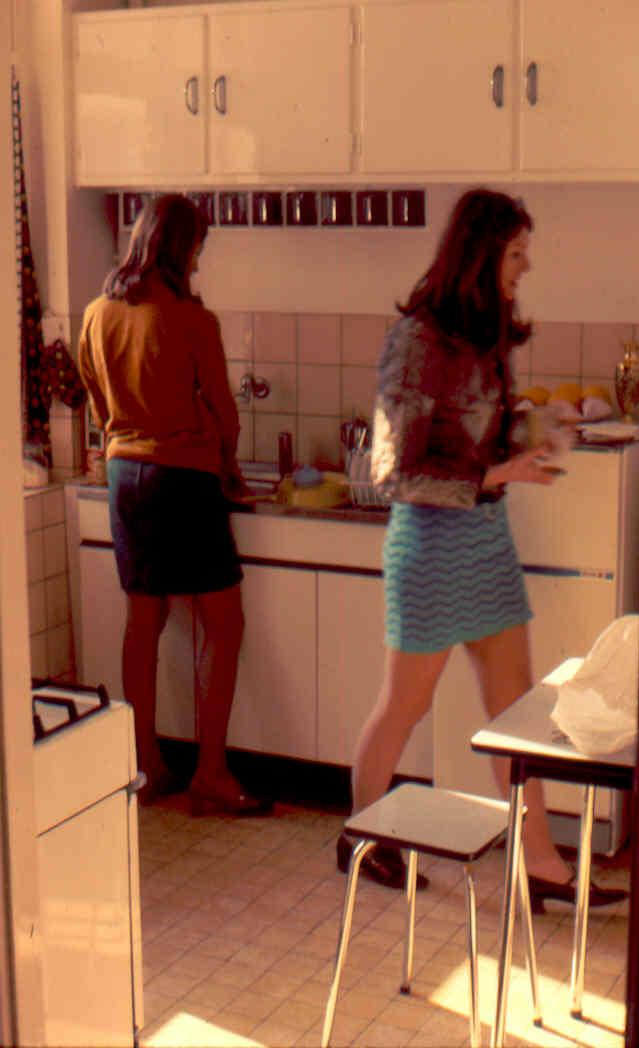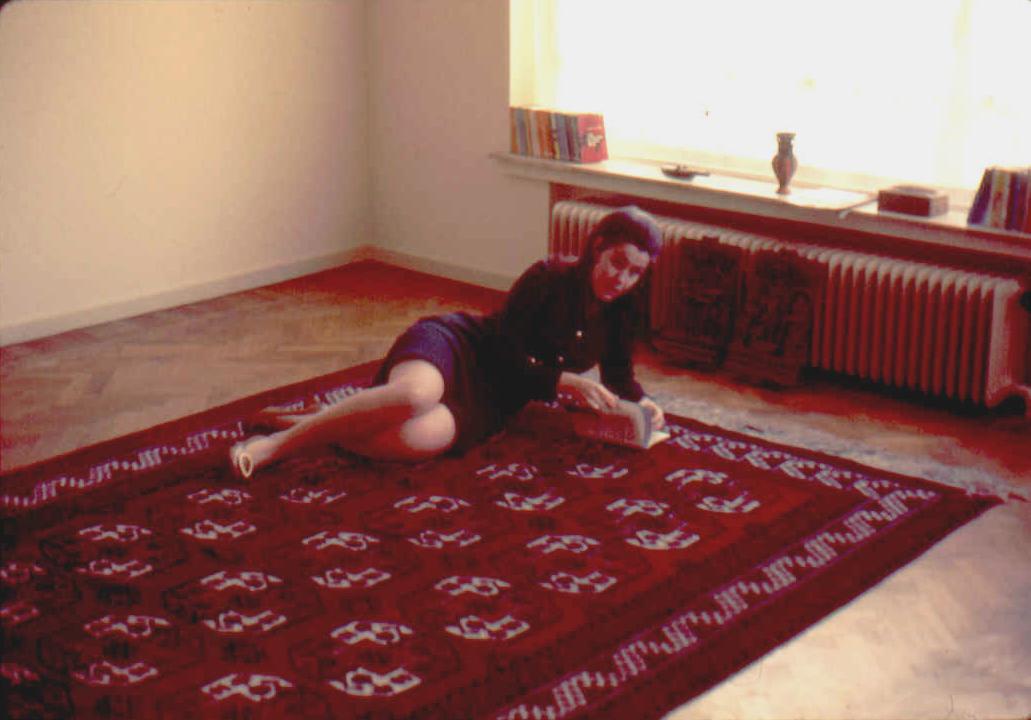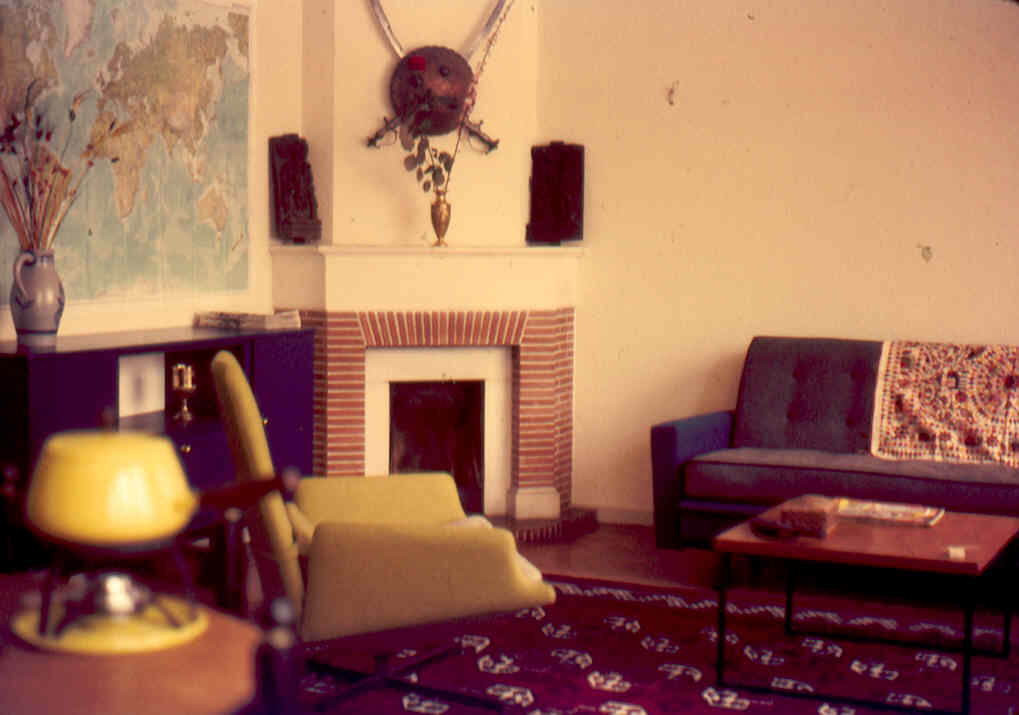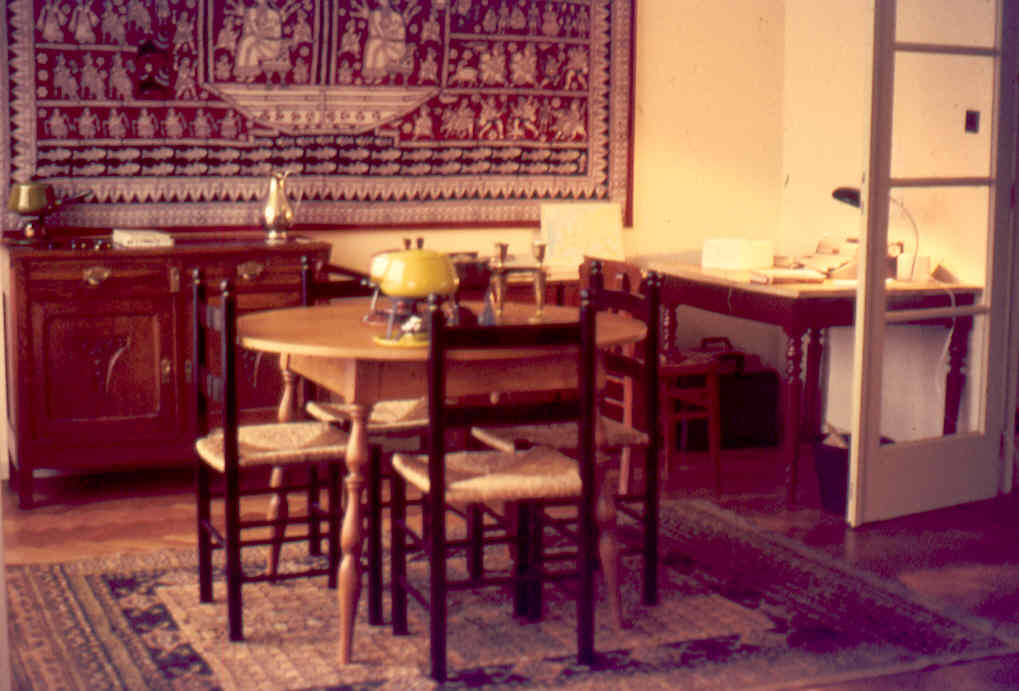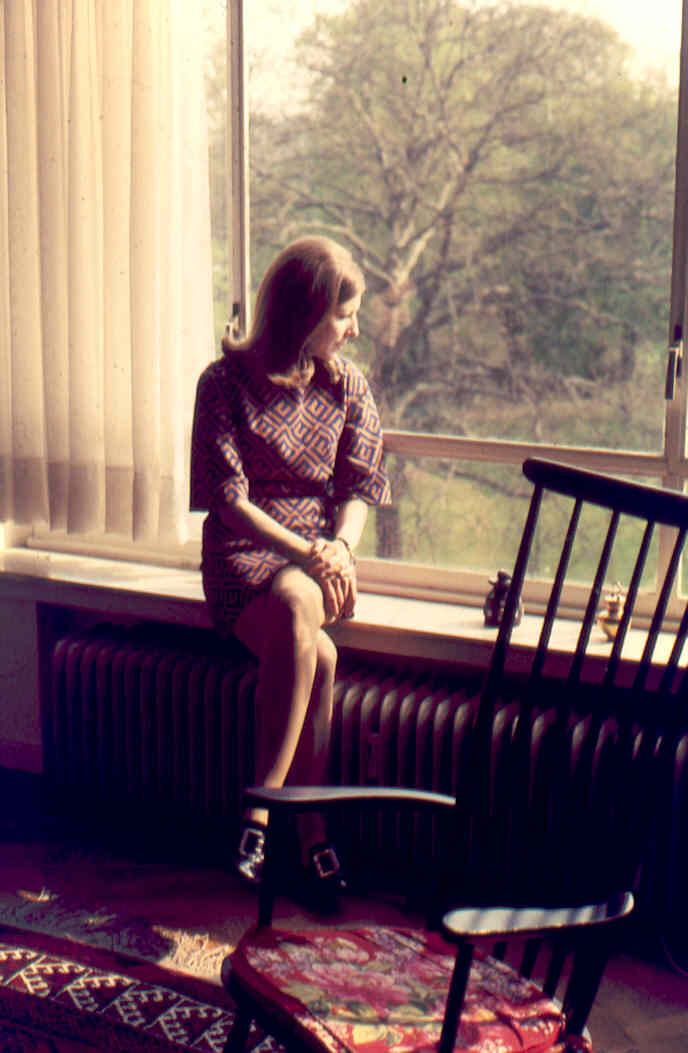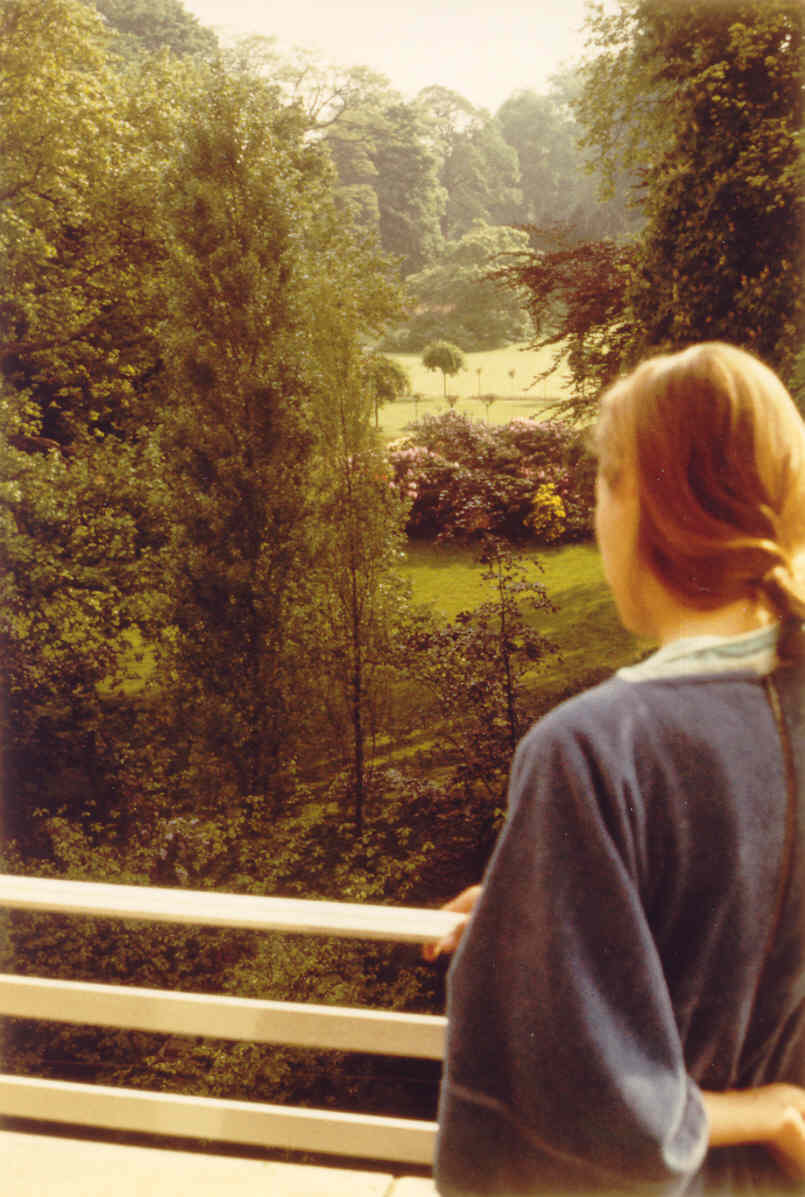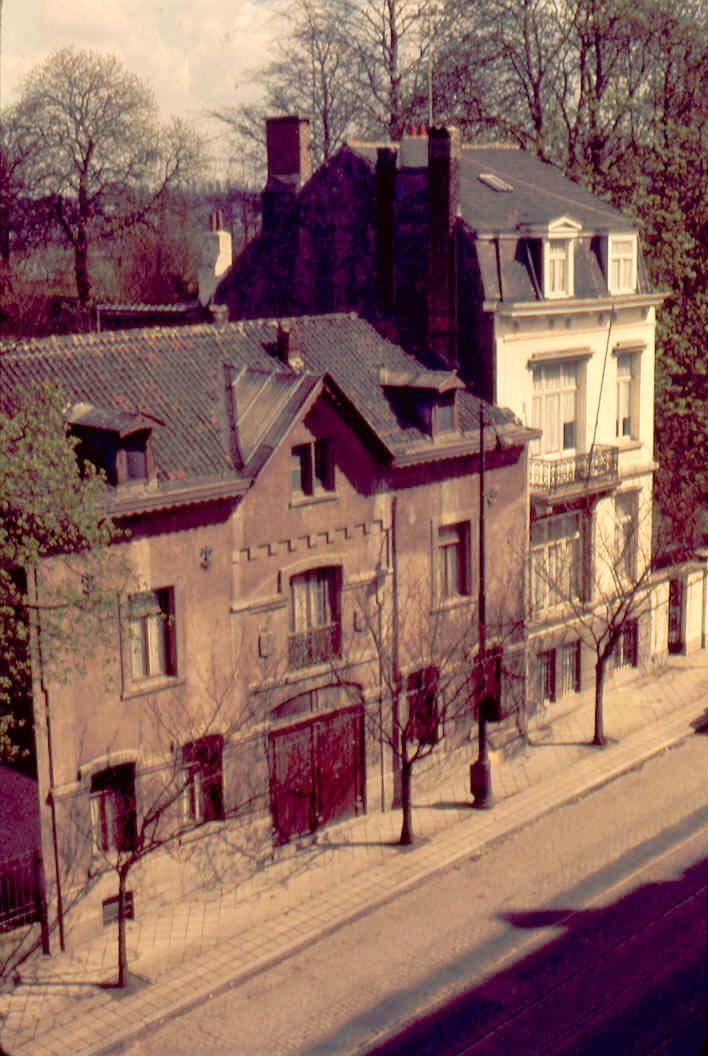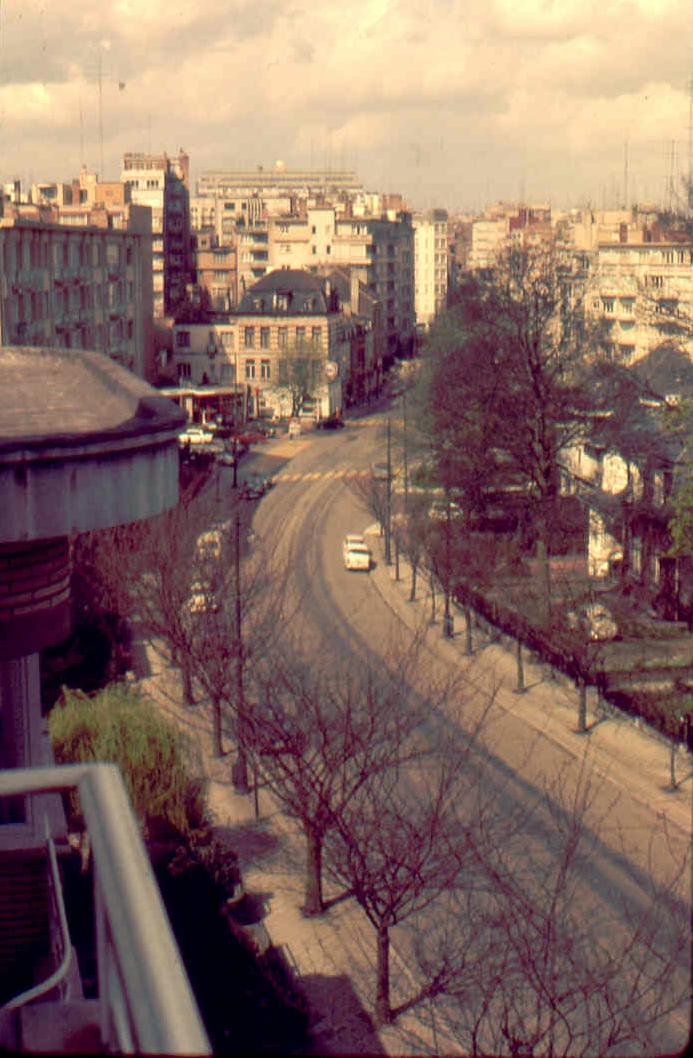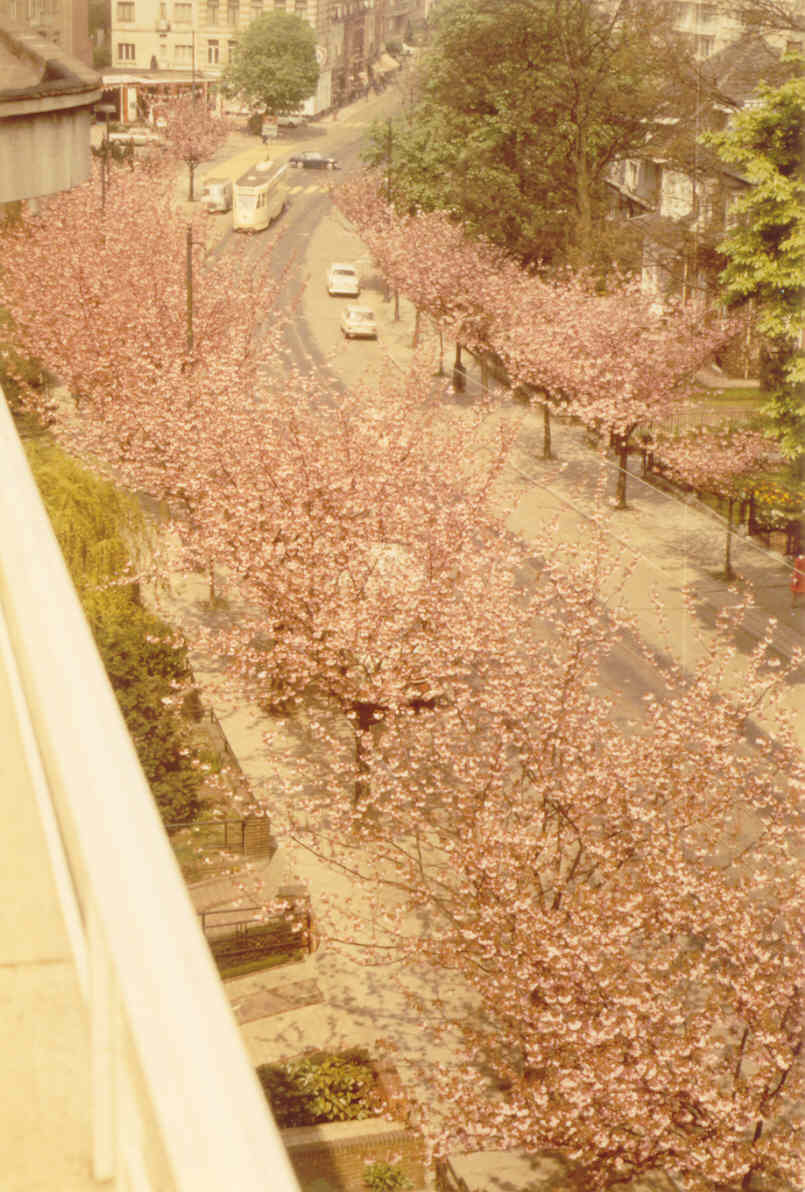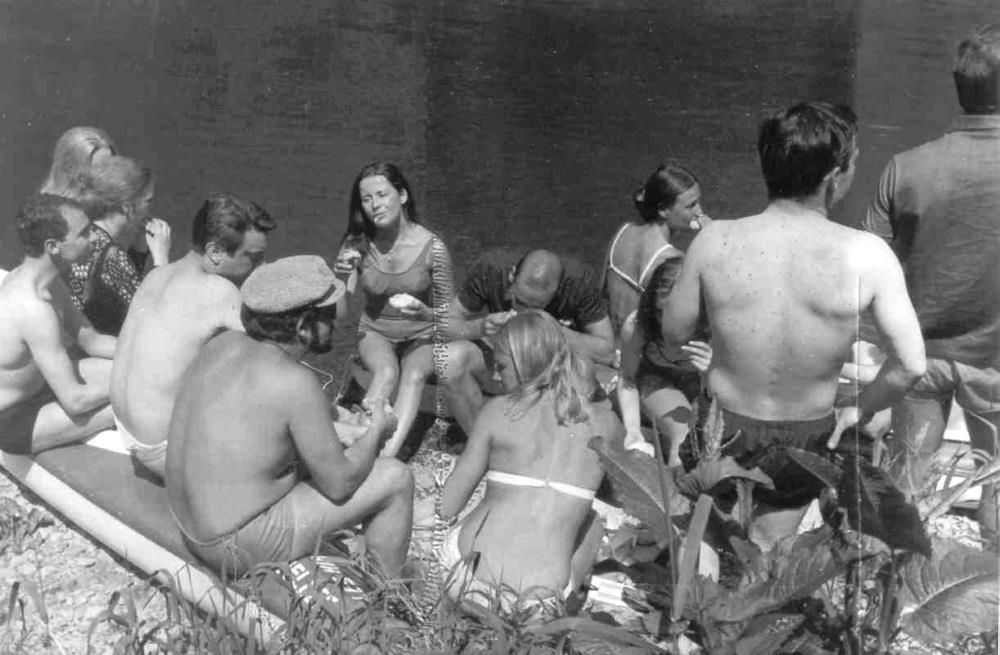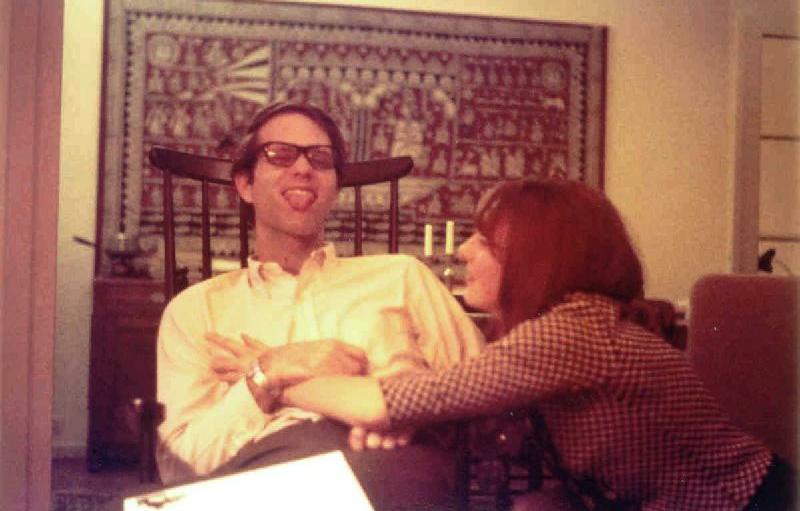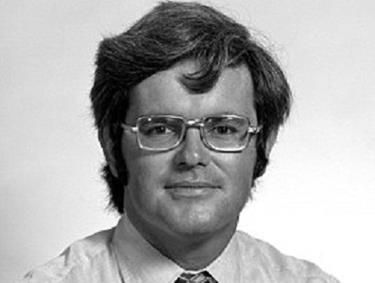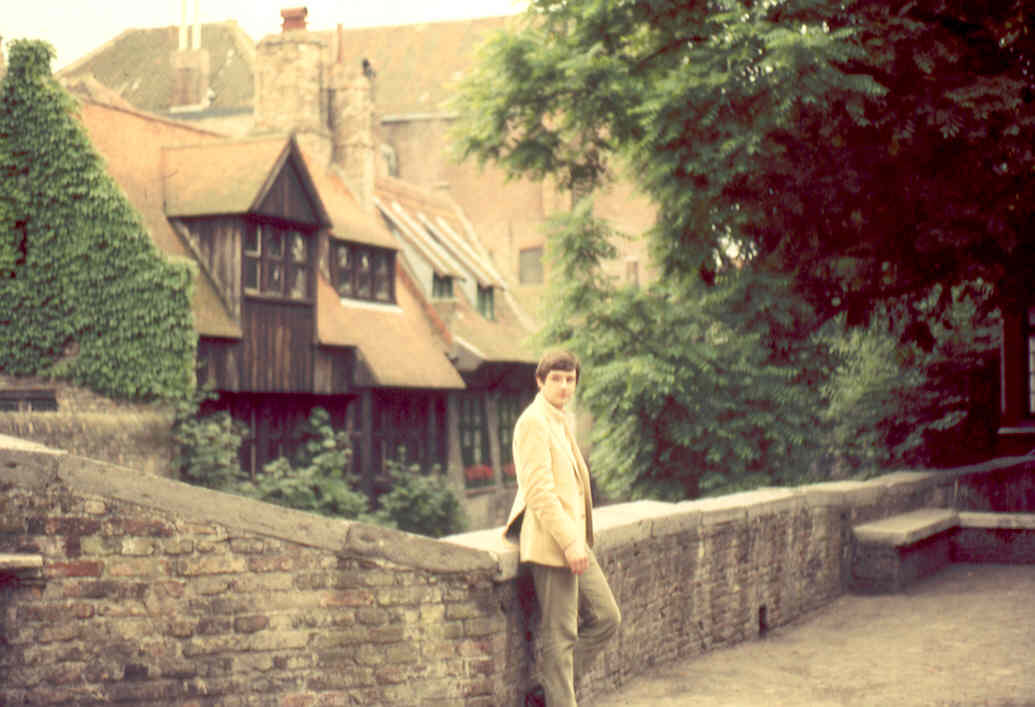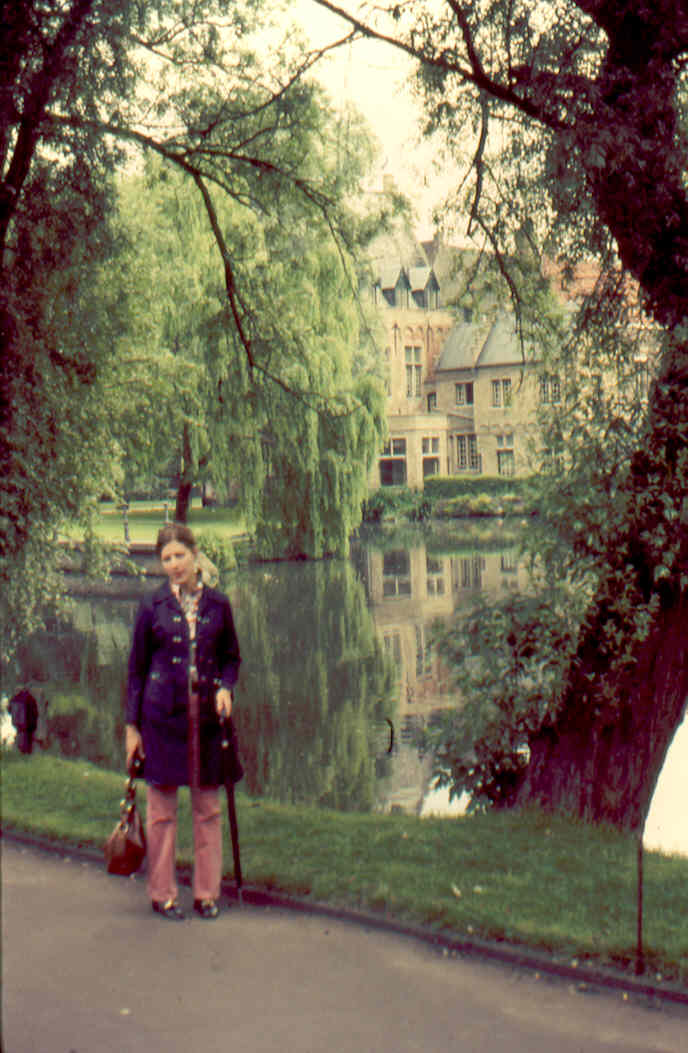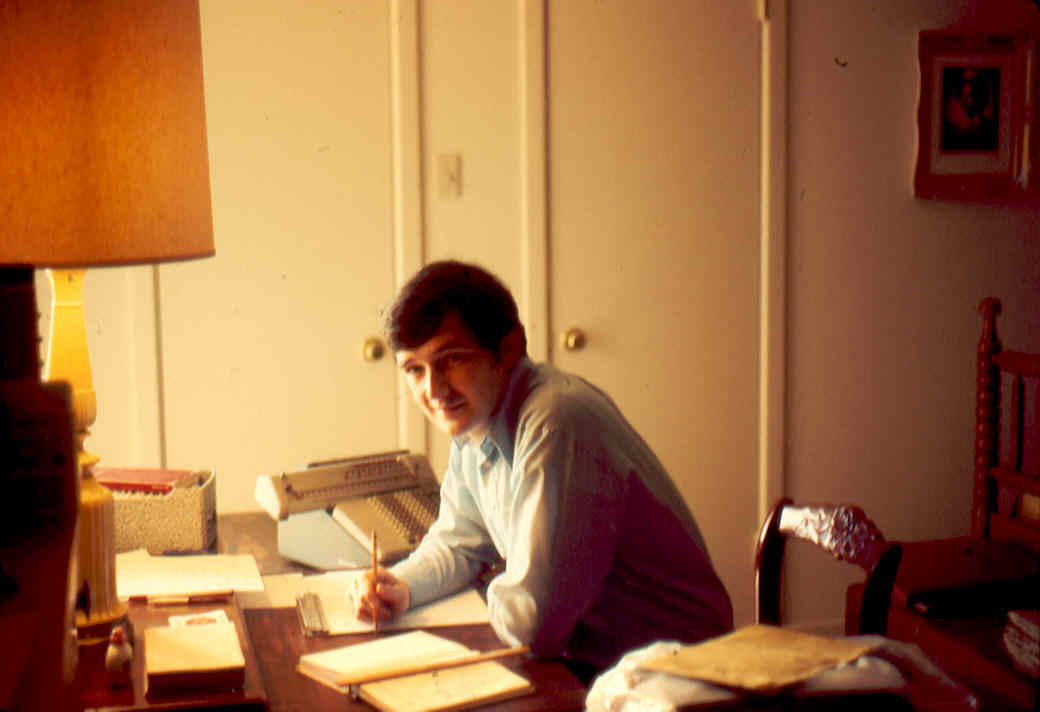GETTING STARTED

July 1941 to August 1971

July 1941 to August 1971
The textual material on this particular page is drawn largely from my work The Spiritual Pilgrim: A Journey from Cynical Realism to a "Born Again" Christian Faith © 2021, pages 7-57.
THE NARRATIVE OR "JOURNEY" ITSELF |
| Ultimately,
what you have here before you is very personal testimony about what I
have come to understand as to how societies succeed – and why they
sometimes fail. It is about what I have learned through not only my
many years of social research and course development but also through
those same years of my own quite personal frontline encounters,
struggles, occasional successes and occasional failures, in going at
life. I've majorly "been there – done that" over those 80 years of my life. And in this process, I came to this particular understanding, how it is personal involvement, even more than well-thought-out plans and schemes, that is what makes the whole thing called "life" work. That's because we humans were made that way. "Been there – done that" involved not only living in various points around the country – including a substantial portion in Washington, D.C. (an eye-opening experience in itself!) – but, as I previously mentioned, also residence and exploration abroad, in all kinds of different contexts. |
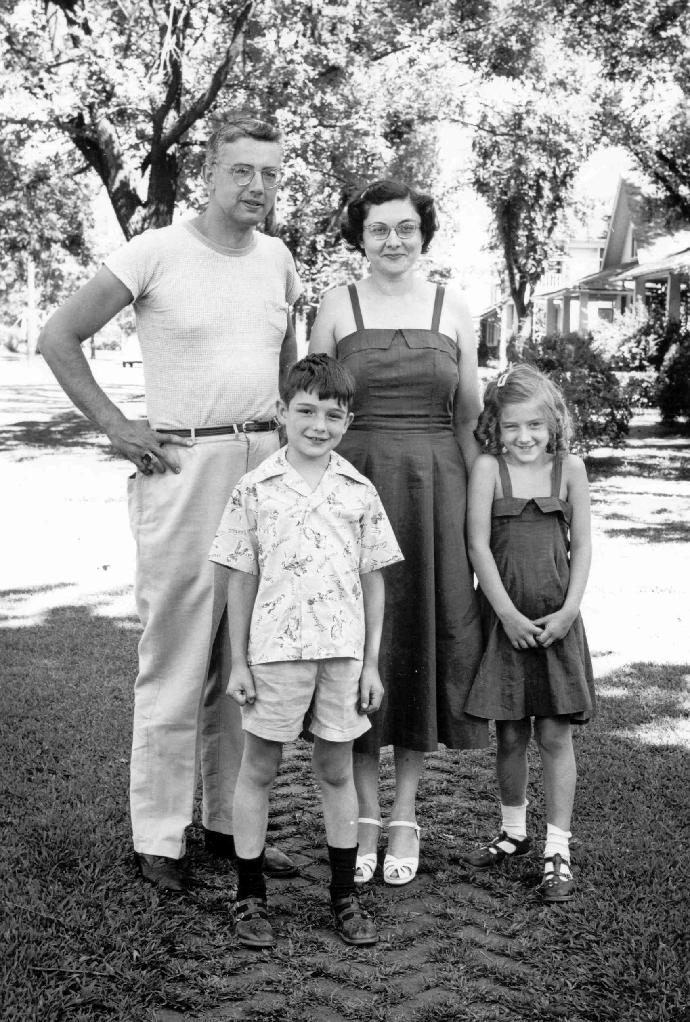
Me (at age 8) with my mom, dad and sister Gina (1949)
THE FAMILY
LEGACY |
|
Collinsville, the heartland of Middle America!
I was born in July of 1941, just before America's entry into World War Two, and raised in Collinsville, a small midwestern town in Illinois, a little to the east of St. Louis. I grew up there with a younger sister, a mom at home, and a father who worked as a chemical engineer in nearby E. St. Louis. Collinsville was only 10 miles to the east of downtown St. Louis, though actually it was never a suburban retreat for the city of St. Louis. It was a social universe unto itself, fully self-sufficient as a community of around 14,000 people – typical of thousands of such small communities spread across the country. Family background: Dad's side of the family
My dad, Paul, was the baby of a family of six children, and raised within a professional family, both of his parents being college grads. His father was the class president of his senior class and his mom was its secretary. Reaching back even a generation earlier, his grandfather (my great-grandfather) was actually a co-founder of that same Seventh-Day Adventist college in Lincoln, Nebraska, and well-known for his experimental work with fruit orchards and bee hives. And his mother's father (my other great-grandfather on that side of the family) was mayor of the medium-sized town of Sedalia, Missouri. But I knew of that side of the family only through the few stories I was able to piece together over time. My Dad's father became a banker, but one who ended up financially and emotionally devastated by the financial gyrations that descended upon rural America after World War One. Even sadder, my dad's mom was physically devastated by the 1918 Spanish Flu pandemic, became permanently infirm, and thus a remote personality during my dad's youth. And she died when he was still quite young. He actually was raised by his older brothers and sisters, particularly when the family moved to Kansas City, where one of his brothers became a fast-rising lawyer, the oldest sister a corporate secretary, another sister a nurse, and yet another sister a church secretary. And there was another brother, who headed off to New York City, eventually to rise as a technician in the new TV industry located there. Dad's father had also died before my dad and mom married. And though I came to know my aunts and uncles quite well, Dad seldom talked about his parents. Thus I grew up knowing little about my grandparents on his side. But I did come to know that my dad grew up in Kansas City as a quite tall youth (6'3"), was considered to be very good looking, and at the same time was quite unsure of what it was that he was supposed to become as a person. Apparently, the family worried about him quite a bit. |
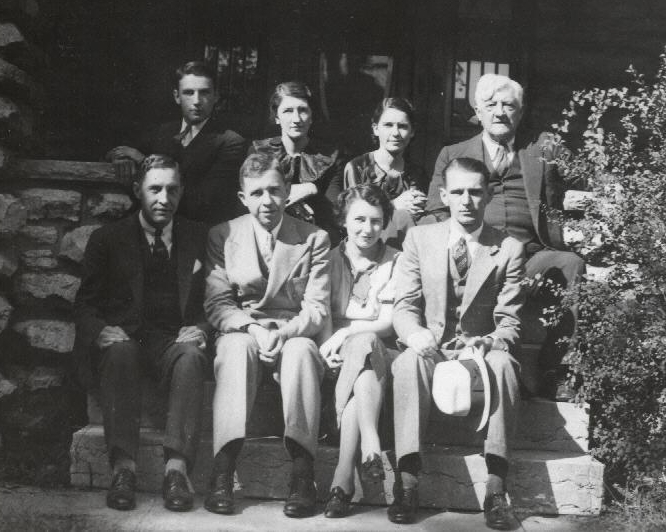
My dad and his family
My dad (upper left), Pearl, Helen, my grandfather (that I never knew)
James, Elmer, Bernice, and Helen's husband Stuart
|
Mom and her family
On the other side of the family, my mom, Margaret Blanche Miles, was a pampered only child, who knew little of the realities of the Depression, her parents being able to put her through Baker University during the darkest of those days. Her parents (my grandma and grandpa!) I knew quite well, and was very, very close to – like being a second set of parents! My grandfather grew up as a farm-boy in a rural community in central Illinois, was well-known locally for his adventurous streak, was the first person in the county to own a car, and as soon as he could, headed off to Chicago to avoid the destiny of farm life. But he had started up a relationship with my grandmother, a local school teacher (also born and raised in central Illinois). Ultimately that relationship led to marriage, with the two of them then heading off to Kansas City, where my grandfather started up a business as a restaurant owner. This business too (like my other grandfather) had its ups and downs during the 1920s, and my grandfather ultimately sold the restaurant and went on the road selling asbestos fire-curtains for movie theaters. He did sufficiently well at this so as to be able, as just mentioned, to put my mom through private college, where she majored in English. My mom was working as a writer for the Kansas City Star when she met my father at Christian Endeavor, a popular way for young adults to meet each other during the 1930s. My father fell head over heels in love with her, becoming totally devoted to her (as he would be for the rest of his life), and wanting to marry immediately. But she held out on that until he finished his engineering studies at the University of Kansas in Topeka. |
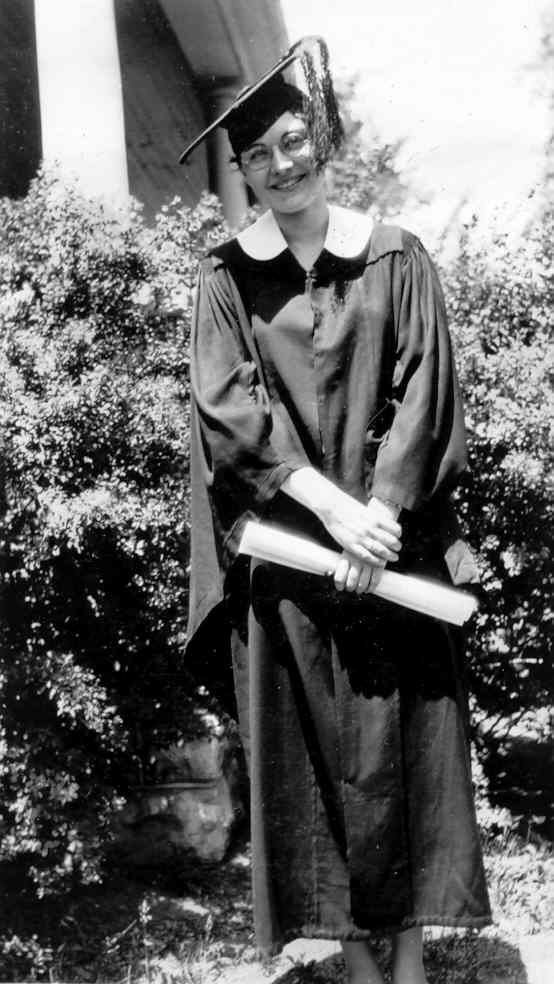
Mom's Baker University graduation pictures – 1934
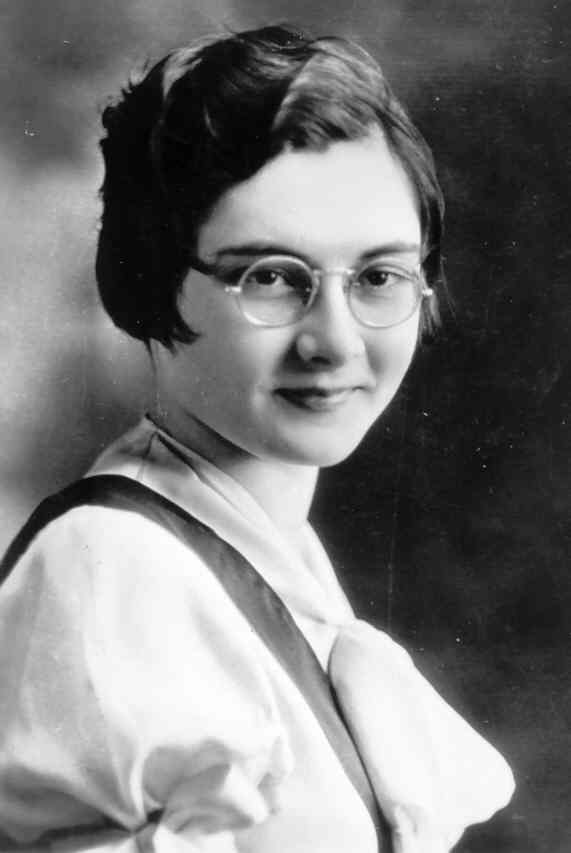
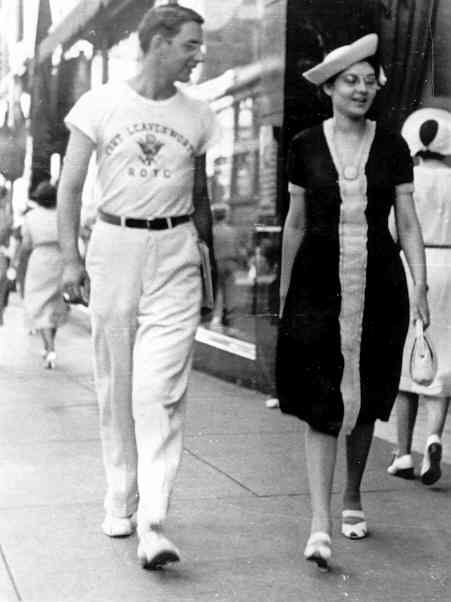
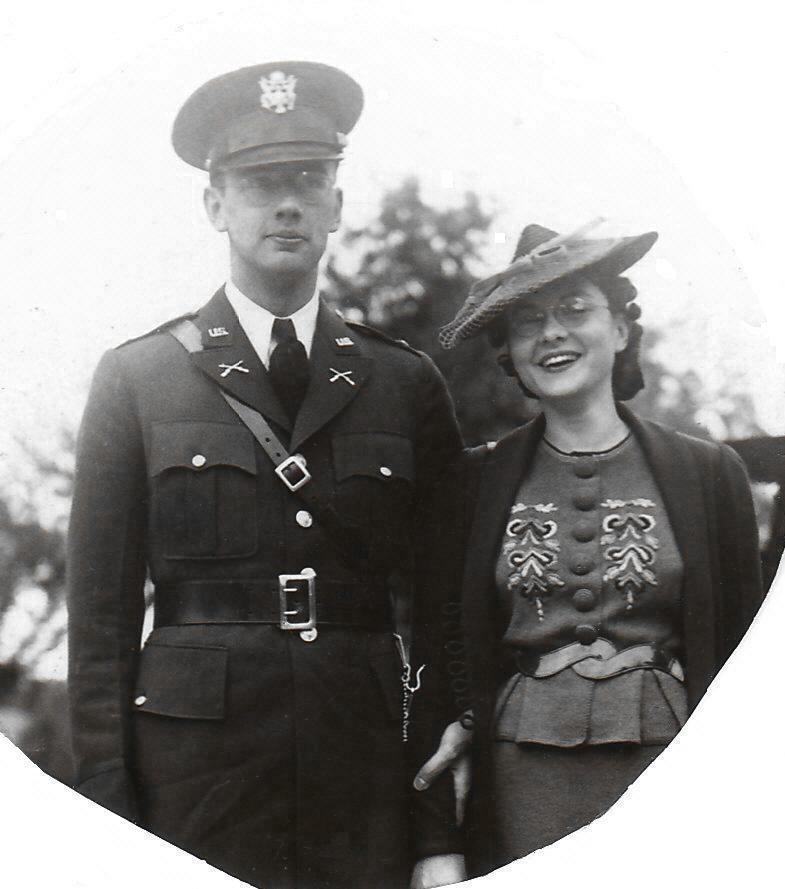
My Dad as a 2nd Lieutenant in the Reserves ... and Mom (1939)
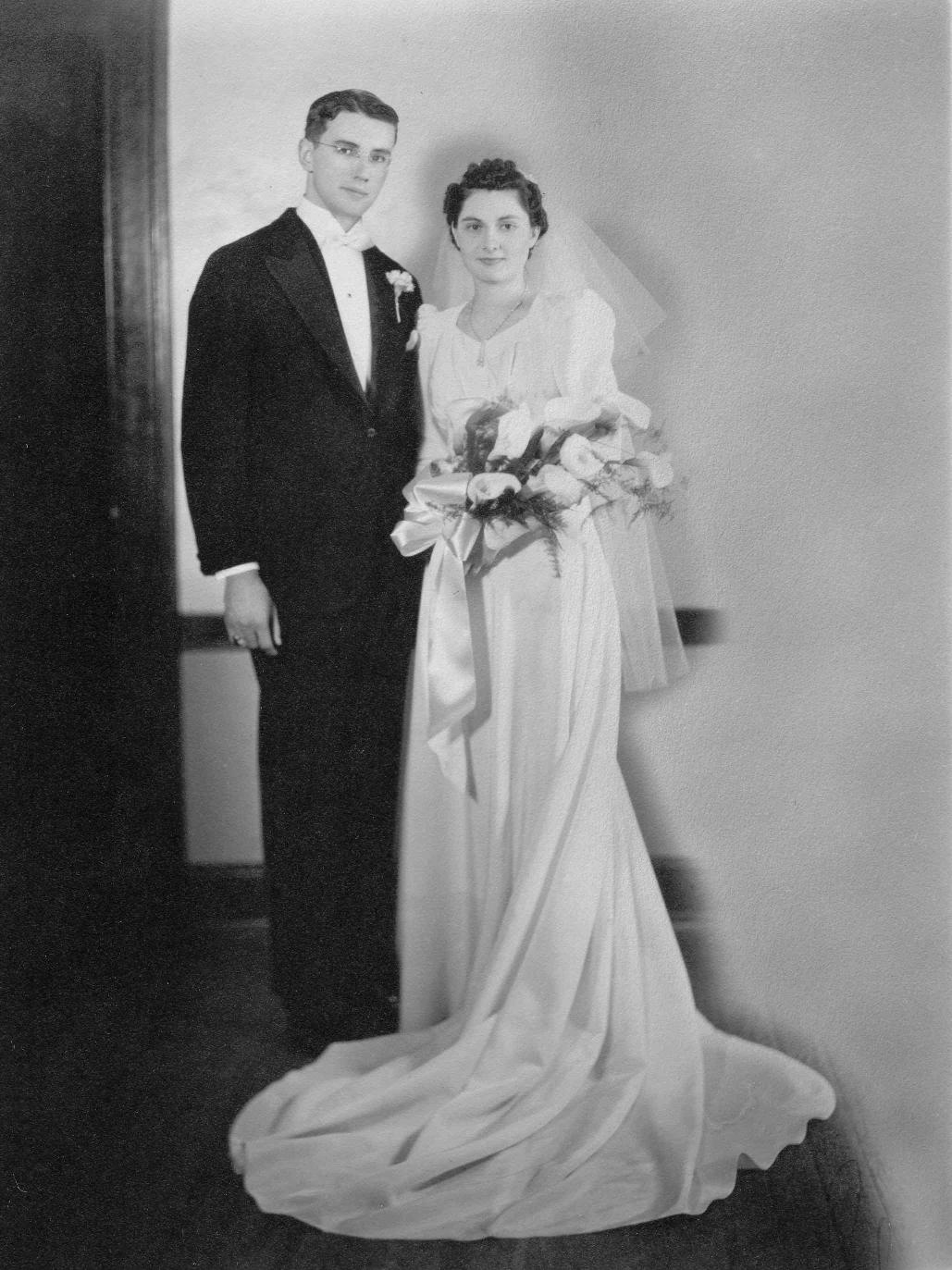
Their wedding – February 1940
| He met much of the financial burden of university studies through a
ROTC scholarship – which led him to be commissioned into the reserves
as a 2nd Lieutenant. Thus I came very close to being raised as an army
brat. In the end, however, they chose the world of private industry
rather than the army. Thus just before America's involvement in World
War Two, they came to the St. Louis area for Dad to begin work at
Monsanto Chemical Co. – and just before I was born in July of 1941. Dad's job with Monsanto was considered very strategic for the war that hit America that December ... and thus he was never activated to service. Consequently, I had very little sense of the war and its deprivations, even though I spent my first years going through it. My sister, Mary Virginia or "Gina" (or just "Sis" to me) was born a year after me, and we remained close growing up – though often closer in battle than in peace! |
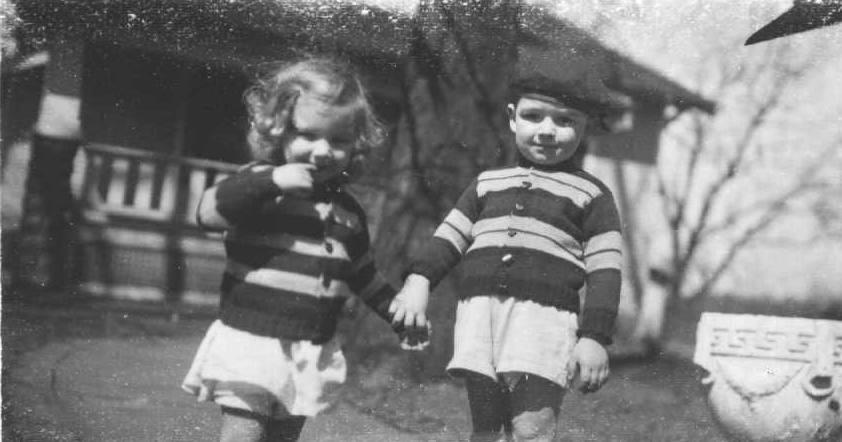
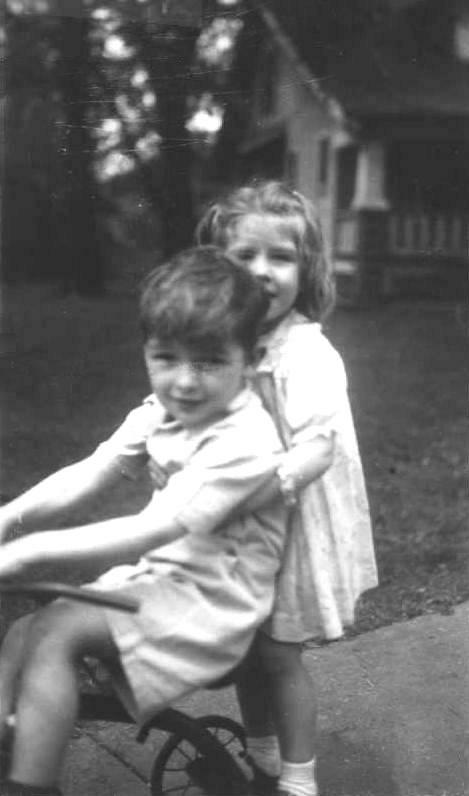
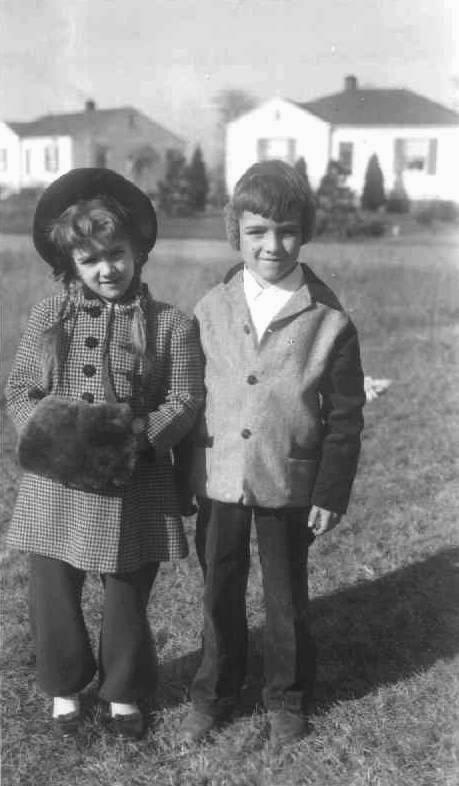
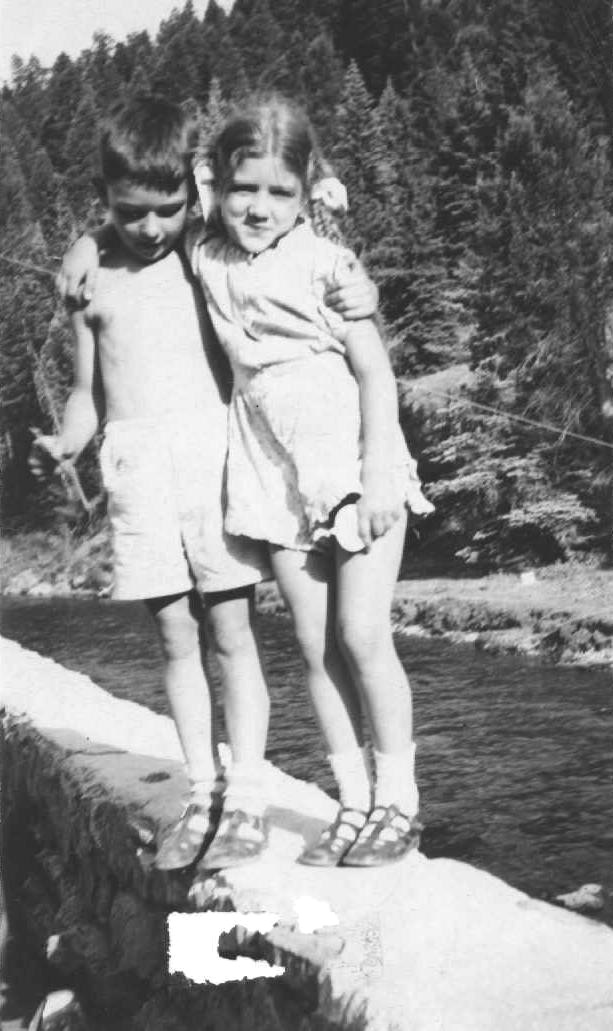
Gina and me ... 1944, 1945, 1947, and 1949
|
Denver, my other home
In growing up, my sister and I moved back and forth seemingly constantly between St. Louis (that is, Collinsville) and Denver, where my grandparents now lived. My grandfather at that point worked for the Union Pacific Railroad as a dining car steward or manager, at home three days and on the road three days in constant succession. Gina and I loved Denver. My grandparents owned a beautiful home on 8th Avenue just across from Cheesman Park, a park that became my summertime front yard to play in, also offering wading pools and all kinds of cultural activities – including an annual popular opera, such as Oklahoma, South Pacific, etc. My grandparents also owned a cabin home – complete with a little pond I could skate on in the winter – just outside of Evergreen, up in the Rocky Mountains just west of Denver. Evergreen at the time was reached by a winding road along mountain cliffs that used to excite me with fright as we made our way along it. And also, at that time, Evergreen was still something of a frontier town. I used to love to ride into town on a horse to pick up the family's mail! Indeed, Denver itself at the time also still had something of the Old West flavor to it, founded heavily on the world of cattle and railroads. Years later I was to discover, to my great horror, that after I grew up, not only had Denver become totally "yuppified," Evergreen too had become a fashionable Yuppie suburb of Denver – thanks to Interstate 70! |
Me (newly born in 1941) ... with my grandfather and grandmother (my mom's parents)
... the only set of grandparents I ever knew. We were very close!
| I grew up very close to my grandparents and spent most of my summers with them in Denver which, before it became a major Yuppie center, was still something of a frontier town ... cows, horses, and trains! |
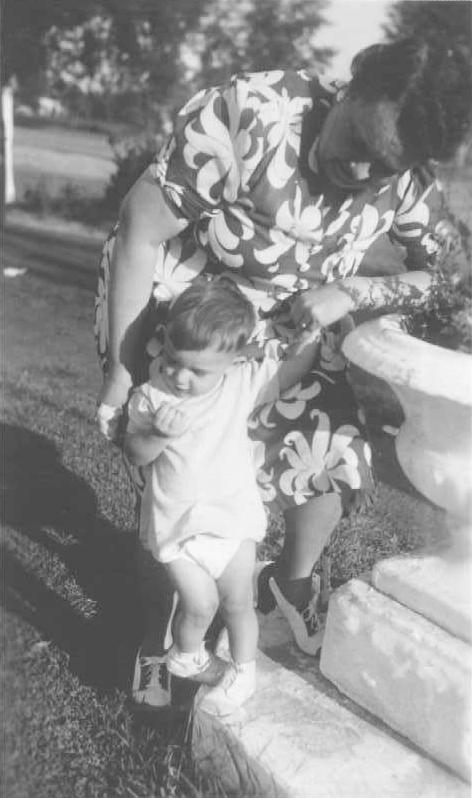
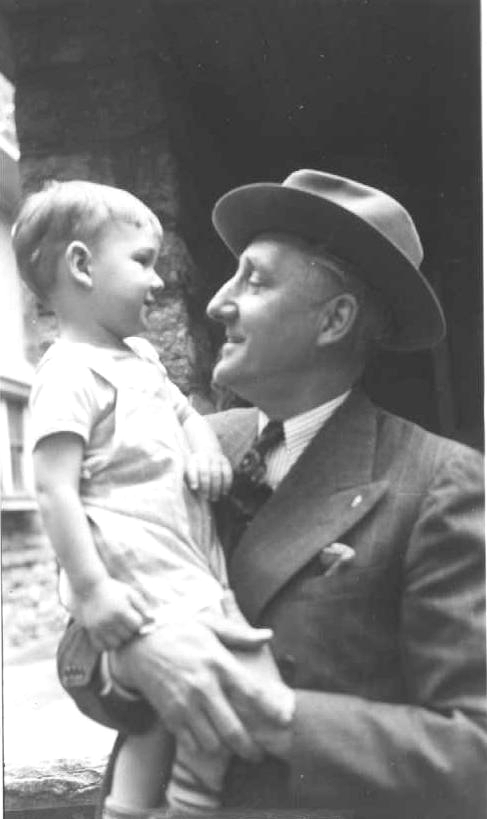
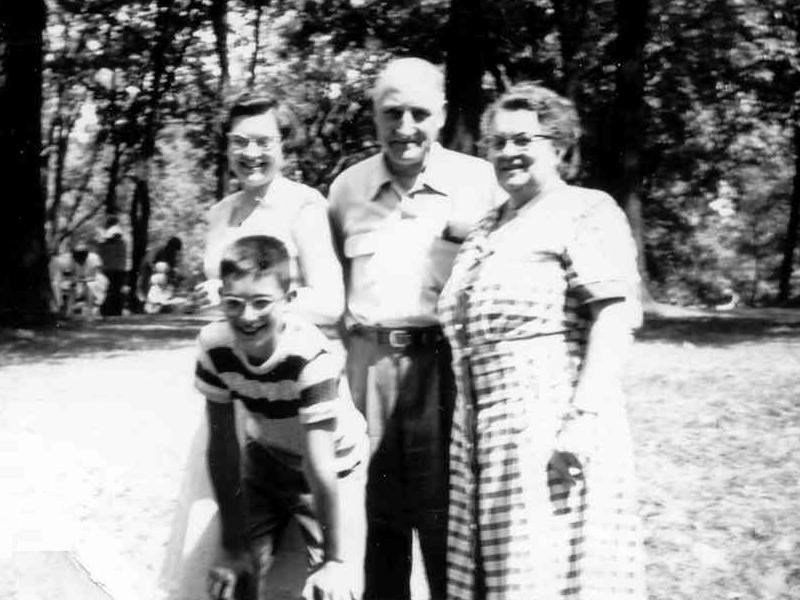
July 1953 – Me (12) with my mother and grandparents in Denver
I also loved greatly their mountain cabin, a couple of miles outside of Evergreen, Colorado
Summer of 1954 ... about to ride into town to get the mail Christmas of 1954 ... the cabin in Evergreen
and me clearing the snow on the pond so that I can do some skating there
|
Eisenhower and Nixon
Also, it was in Denver that I took my first steps into a world that would come to have great importance to me: that of national politics. Actually, I had just taken my first interest in that world back home in Collinsville the year (1952) that my parents bought a new 13-inch TV set, and I found myself that summer following intently the Republican National Convention, covered fully by one of the national stations. I was deeply intrigued by it all. But it was in Denver that same summer that the "personal" part of that world opened up. It seems that General Dwight Eisenhower, who had just been selected by the Republicans at that same convention to be its presidential candidate, happened to be in Denver later than summer, when we too were there. He and his wife Amy were visiting Amy's mother (who lived only a couple of blocks down 8th Avenue from my grandparents), and was holding a reception, open to the public at the Brown Palace Hotel in downtown Denver. So off to meet this man I went, where indeed, this 11-year old boy got to shake hands and be greeted – not only by Eisenhower but also by his running mate, Richard Nixon. That meant a lot to me, something I would never forget, something that brought home to me that the idea that national politics was not really that remote, if you were willing to step forward a little to engage it personally! |
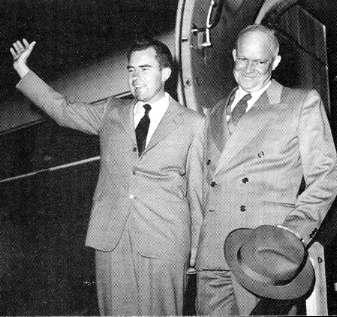
at a reception in Denver ... my introduction to the world of politics
|
Here they are at
a church picnic in central Illinois. My grandma (center), my grandpa's brother
next to her, and my grandpa to the left of both of them (I think there might have been
a bit of competition going on at the time). My grandma was a teacher and my grandpa,
a country boy who was the first in the county to own an
automobile
– and who escaped to the city as soon as he could
(Chicago).
|
| And a grandmother and a grandfather on my father's side, grandparents I never knew (both had died before I was born). They too had her own stories – which I learned from my father and aunts and uncles. |
My dad's
parents
– their college graduation pictures (1896)
He was class president, she was the class
secretary ... a great combination!
My
grandmother, her sister and her
parents
– in Sedalia, Missouri (he
was the town’s
mayor)
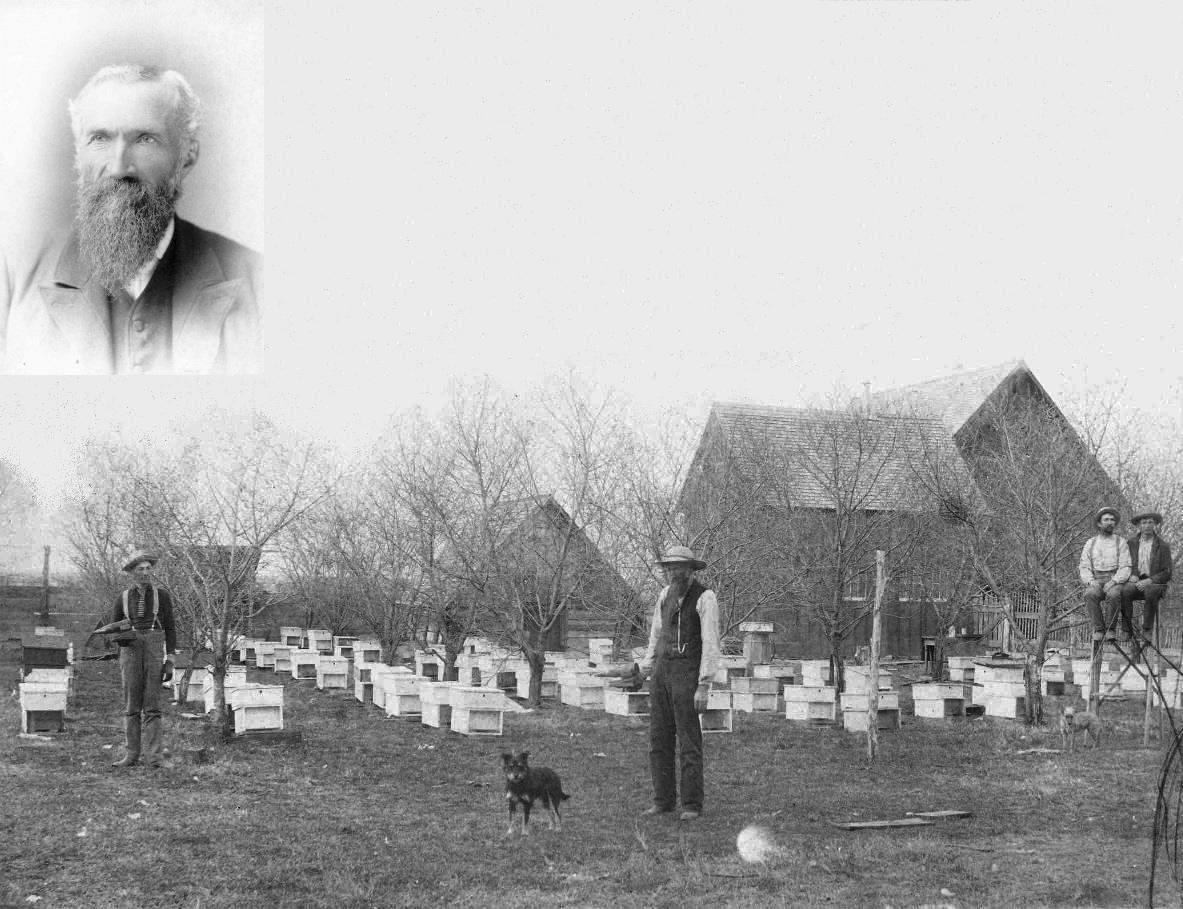
GROWING UP |
The attempt by my Bible professor to "modernize" the way he thought we should be reading the Bible led to my confusion and loss of Christian direction ... and his suicide that spring. The whole thing left me numb. Upon the advice of an art professor that I admired very much, I came to the decision to change both my college and my major ... to architectural engineering at the University of Illinois. 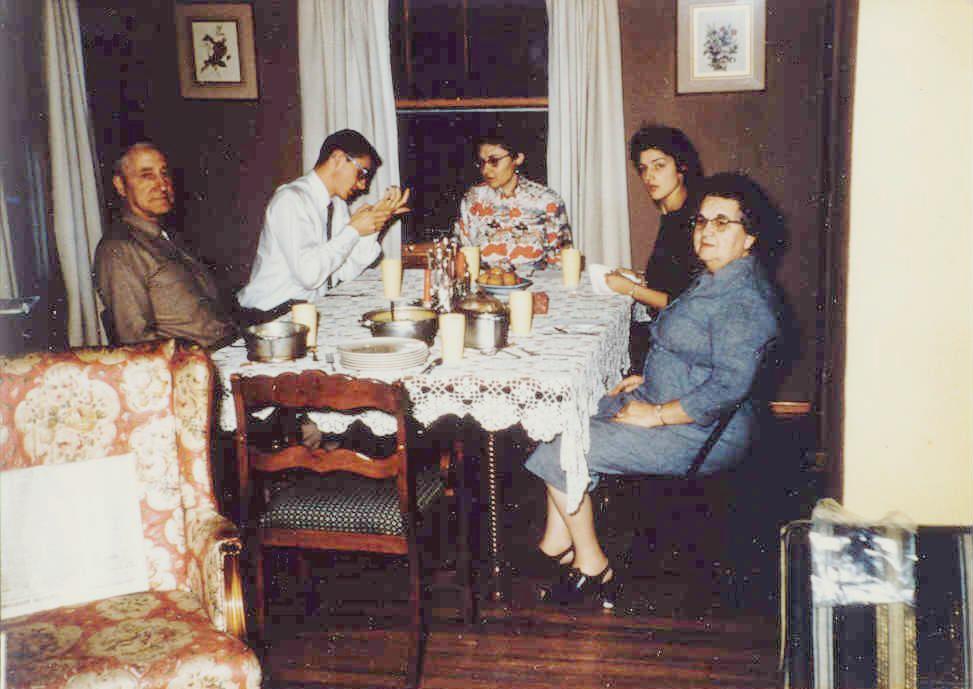 Dec. 1959 - Dinner at home during Christmas with my family (including my grandparents visiting from Denver) 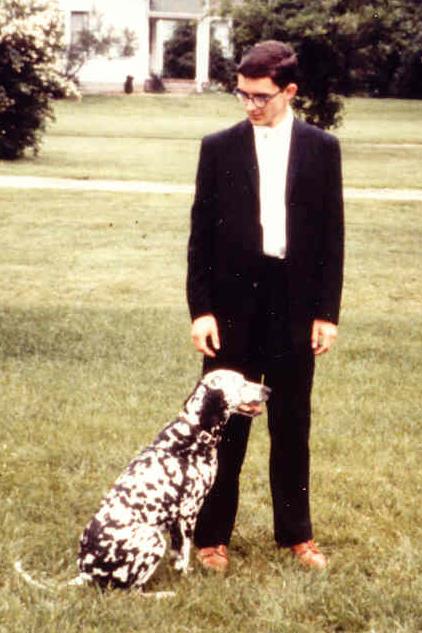 Apr. 1960 - spring break ... with our dog Sheba
The
second thing that would interrupt even those career plans The trip opened my eyes up to a vast new world
... much bigger than my middle-class American world. I found myself
engaging in conversations with the locals everywhere I could. I was
fascinated ... I was captivated. I wanted to learn more. 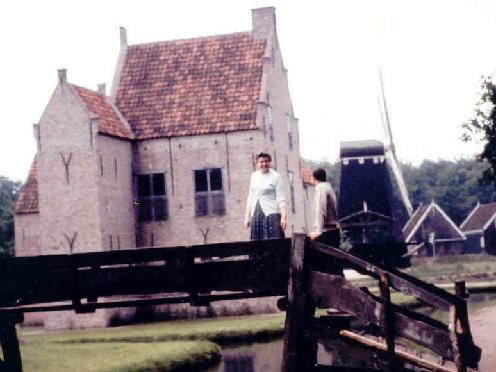 It was in Venice that it all hit me! I could have lived there ... right on the awesome Grand Canal ... with my parents during a good portion of my junior year in high school (1957-1958)! (the photo above was actually taken in the
spring of 2012 by either my son Paul or my And Europe in general was awesome! 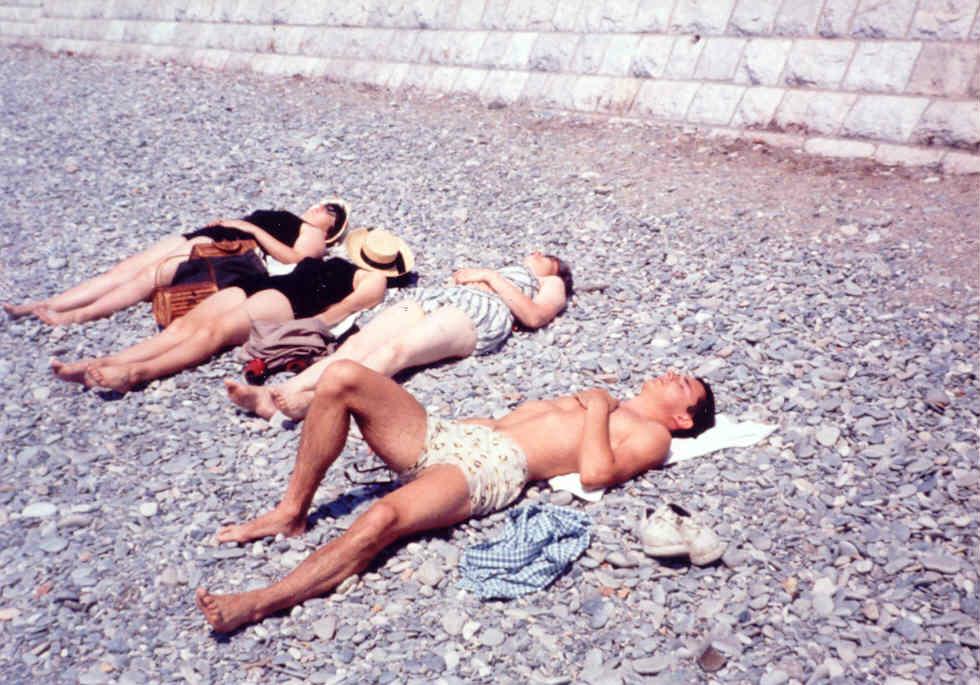 June 1960 – Trying to get comfortable on the stony beach at Nice (France) 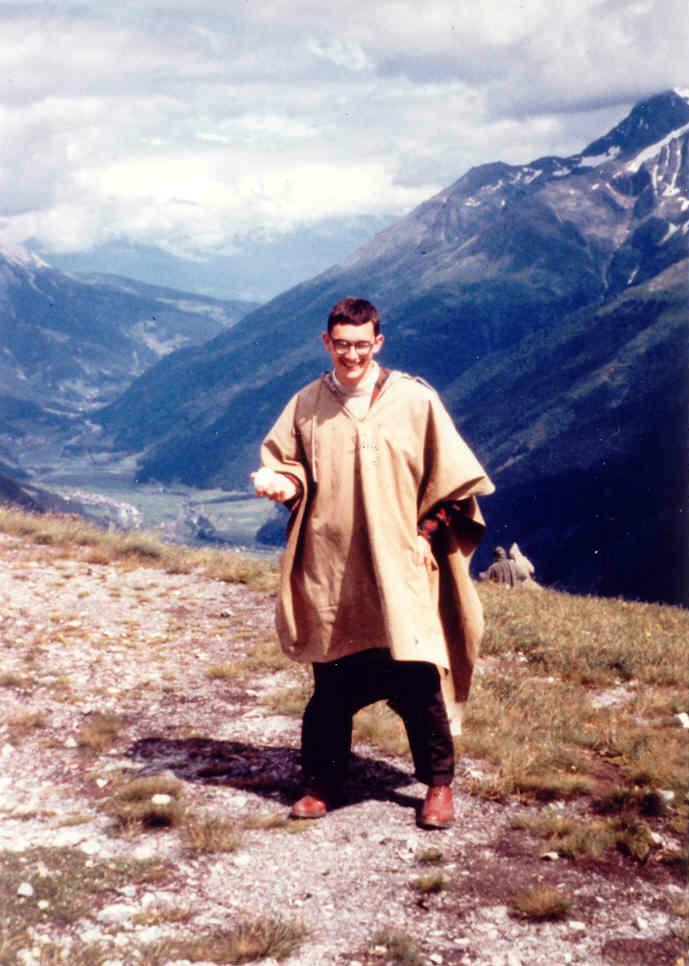 July 1960 – I found enough snow in the Austrian Alps for a snowball!
Upon my return to the States in September (1960) and arriving at the University of Illinois, I immediately changed from engineering to arts and sciences ... and began to prepare for my junior year, which I knew would be spent in Europe. Although things got off to a slow start at Illinois, over
Christmas I got contact lenses (thus looking less like a nerd) ... and my social life picked
up! 1961 – Beta
Theta Pi Fraternity Winter DanceJuly 1961 – at home in Collinsville with family (and visiting grandparents and other relatives) – and girlfriend Susie (we got "pinned" ... a fraternity-sorority ritual!). I was working that summer in a very hot, nasty zinc plant, waiting until I could get away to Europe in August!
At first I was disappointed that this was not France. But I got over my disappointment quickly when I found out how very international Geneva happened to be. I had studied French for two years (and had a chance to use the language in numerous conversations the previous summer in Europe) ... and was ready for study at the University. I was delighted to discover that the University of Geneva was filled with students from all around the world.
We hit it off big ... and at the end of the course (which we were both taking), she headed back to Oslo to tell her parents that plans had changed and she wanted to study full-time at the University. And I hitch-hiked up to Oslo ... only to arrive to find that her father had plans for her other than this relationship with me. I hitchhiked back to Geneva alone, heartbroken and exhausted. We stayed in touch for a while (she did become an SAS stewardess) ... but I would never see her again.
Thankfully, I had also begun the study of German the previous year ... and found that I ended up speaking as much German as French (maybe even more) ... because my closest friends in Geneva were mostly German (who, except Adam, spoke no English). Indeed, it was Adam
who became something like a brother to me. 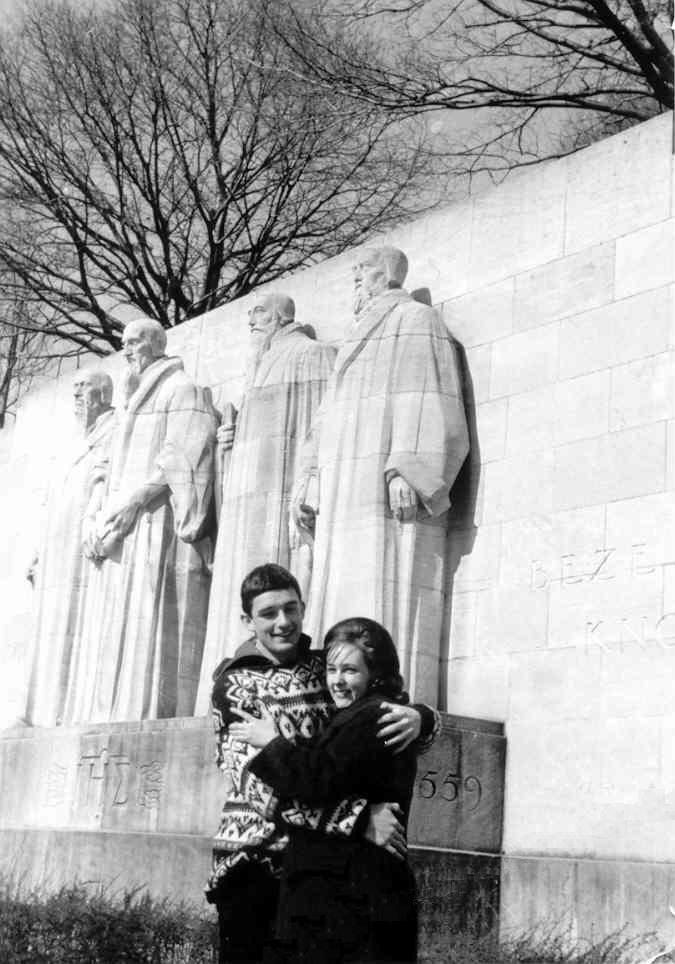 Adam's girlfriend Kati, with me in front of the Reformation Statues Enjoying the sun at a Swiss ski lodge
Kim Early
the next year I started dating an American girl, Kim, who was also
attending the university. We hit it off ... and I would finish
out the academic year in her company. Something that was a lot of fun was the International day (mid-June) at the university, in which the various countries represented there put on displays representing their countries. I took charge of the American exhibit. Being Americans, naturally we felt compelled to go really big ... so not only did we put together an "Oncle Sam's Campus Bar," but also a dance floor next to it ... to demonstrate some American dance steps popular back in America! (left) Adam
with Margie, my dance partner, and another American girl (from Georgia) Me in front of
the American pavilion We would continue that relationship when we both returned to the States I was
reminded
in a very personal way that the Cold War was still on ... when that summer I visited Berlin
(celebrating my 21st birthday
there in mid-July) and saw the wall that the Communists had placed around the
Western part of the city – to keep people from escaping to the West from
the hard world of the Communist East (they had just started
putting it up the previous August when I first arrived in Europe).
In September I returned to Illinois to finish a political science major (history minor) After Kim and I returned to the States (September
1961), I headed off to finish my course work at the University of
Illinois ... and she began her study at Connecticut College for women. She would spend Christmases with us rather than return to her parents' home in Paris ... and we would also get together as best we could. It got a bit easier when I got to Georgetown in the late summer of 1963. At least we were on the same side of the country. Kim was charming, but ambitious. I never quite figured out what it was about me that could have interested her. Then after graduation in 1963 from the University of Illinois, I headed off to Washington, D.C. ... to begin graduate work in international studies at Georgetown University
It was while at Georgetown University (1963-1968) that I was introduced not only to the political world of Washington, DC, but also to the the heart of international politics and diplomacy
I arrived in D.C. at the height of the Kennedy Era ... when America was dedicated to winning the Cold War, ultimately not by guns and tanks ... but (under Kennedy's new direction) by winning the hearts of a rising "Third World" (Asian, African and Latin American countries) through programs like the Peace Corps. I even took a
part-time job at
the Washington headquarters of the Peace Corps When
President Kennedy was shot during a visit to Dallas that November
(1963), We were doubly shocked by the
man who took his place, Vice President Lyndon Johnson But we were soon to learn that he was going to compensate for his public shortcomings ... by working behind the scenes to build Washington into the nation's new nerve center ... reshaped so as to direct every aspect of American society that Johnson could lay his hands on. Washington exploded in size (and expense) during Johnson's five years in the White House ... and he completely reshaped the Democratic Party around his Socialist ideals. President Johnson at the
University of Michigan commencement ceremony 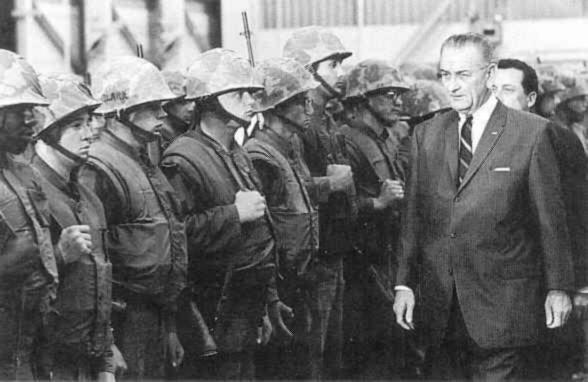 To
Johnson, "civil rights" meant full government support in life for the underprivileged ...
at the taxpayers' expense. Thus he led the
Black community to believe that the government was going to compensate them
for all the previous years of White mistreatment. Blacks could now expect
wonderful things to come their way ... because it was owed them by
the American people and their government.
To
Johnson, "civil rights" meant full government support in life for the underprivileged ...
at the taxpayers' expense. Thus he led the
Black community to believe that the government was going to compensate them
for all the previous years of White mistreatment. Blacks could now expect
wonderful things to come their way ... because it was owed them by
the American people and their government.But becoming dependent on such government "assistance" would soon prove disastrous to the Black's ability to work their way out of poverty ... as had previously done the Irish, the Poles, the Italians, etc. who came as poor and powerless, but worked hard to advance their families ... and bring them into full status as members of the American middle class. Above is Johnson in 1964 signing the Civil Rights Act (to be followed in 1965 and 1968 by even more comprehensive Civil Rights Acts). Meanwhile, with the first Boomers (or "Hippies") coming of age in the mid-1960s ... American Boomers headed down a very zany road. They were set on proving that they were ready to answer to no authority but their own instincts or impulses ... just as they had been trained by their middle-class Vet parents in the 1950s.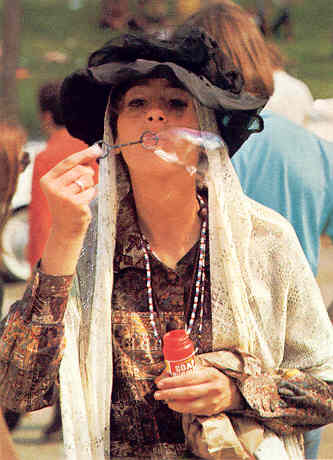 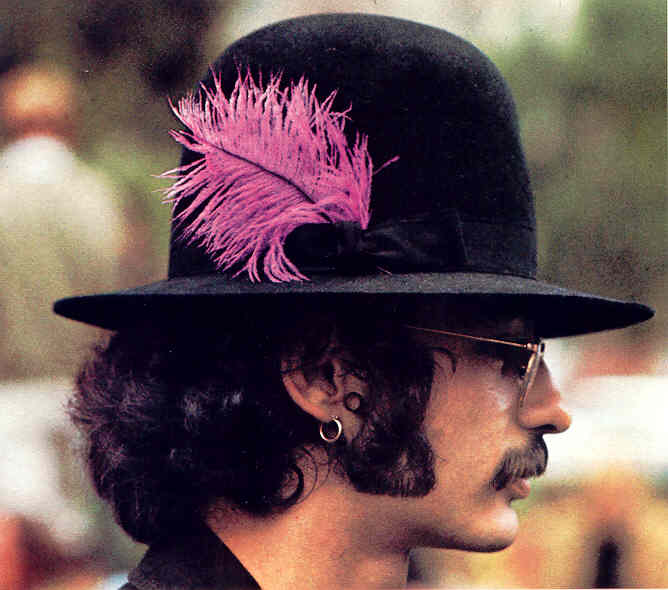 I was only about 5 or 6 years older
than the
first Boomers ... but was part of a very different generation: the so-called "Silent
Generation." We were still intensely patriotic and still willing to
work within the system ... something that distinguished us greatly from the
younger Hippie
Boomers. But cultural change was in the air everywhere. And
what
seemed most odd to me at the time, "change" included a new thing
of women rising up in rebellion against the "tyranny of men" ... even against the idea of
the middle-class life itself ... a process shaped and directed by Betty
Friedan, who wrote the new Bible of the Feminist Movement, The Feminine Mystique (1963), an
immediate best-seller ... especially among the students at women's
colleges across the country. Kim let me know that Friedan's book was a hot item at her Connecticut College for Women! 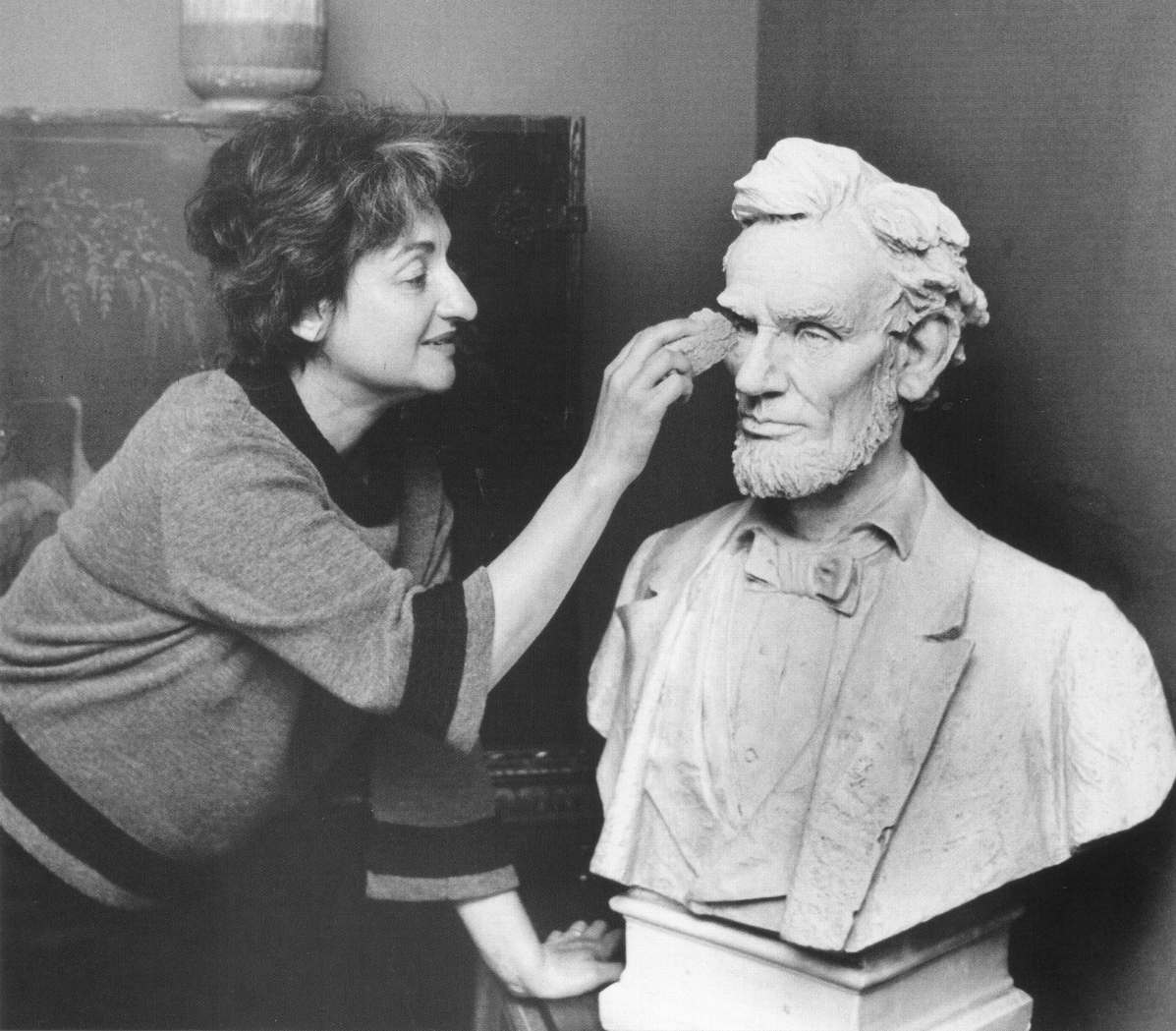
|
|
Kim and I go our separate ways
Most of my first two years at Georgetown proved to be incredibly tough for me emotionally. Besides a serious spiritual loss of the ability to believe in anything high or grand, even at times in myself, I found life tedious and uninteresting. At first I could afford an apartment only across the Potomac in a nondescript neighborhood of Arlington. I would, however, be able in my second year to move into DC itself in finding an apartment just off Dupont Circle, a big step up. But still, I had no social life apart from an occasional visit to or from Kim. Our visits tended to swing between delightful and painful – for I found her both warm and intimidating. She was very demanding of performance – from both me and herself, which made it impossible to be truly relaxed in her company. Also I always seemed to be having to play catchup with her obvious sophistication. I was therefore entirely caught off guard when on her third Christmas visit with me back in St. Louis I realized that she was pressing for a deeper commitment from me as to our future together. She would be graduating in June and we talked about going together to London to the London School of Economics, she to study for her MA and I for my PhD. That had seemed fine with me, until London wrote back stating that it would admit both of us to its Master's program – and I of course was just about to receive a Master's degree from Georgetown. Unfortunately, I didn't realize until much later that this was a standard admissions practice for doctoral studies in England, and that my Georgetown work would probably have all transferred toward the PhD after I took some qualifying exams in London. Anyway, I made the decision that I would not be going to London – which then put Kim in the position of having to decide what to do. She indicated a willingness to decline the London invitation – except that faced with this possibility, I could not, would not, ask her to do that. I really couldn't say why I was encouraging her to go on without me – except that at that moment I had a vague feeling that my life was much too thin emotionally to carry the responsibility of another person's permanent commitment, a person especially as high-powered as Kim. I felt myself panicking at the prospects – even as much as I deeply cared for her. This all proved to be a major crisis in our relationship. And after several follow-up phone conversations in January (1965) in which it became obvious that nothing was going to change for me, our 3-year relationship simply came to an end. I certainly didn't want our relationship to end. But under the circumstances I wasn't able to move forward with it either. Kim, in her decisive way, withdrew completely. |
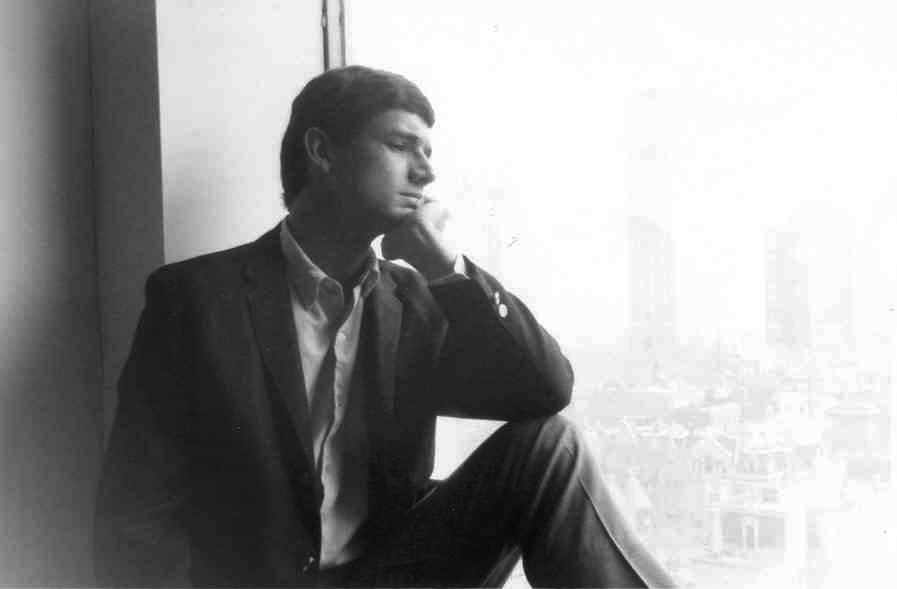
Me ... during a visit to my sister in Chicago around that time
|
Depression and detachment
The spring of 1965 was a low-water point for me. However, I did find my apartment in the Dupont Circle area offering me a reasonable 25-minute walk to and from the University, and found these walks to be the only thing that seemed to give me any peace. Unfortunately, I made the mistake of trying to remedy my loneliness by reading more existentialist literature, which merely made my sense of spiritual malaise all the deeper. I finally decided simply to stop pressing life for its answers – and called my parents, to ask them to fly me home for an emotional R & R (rest and relaxation). Then while back in Illinois I drove up to Chicago to visit Sis, somewhere along the way got interested in Greek dance and language, bought myself a new navy blazer, a set of repp-striped ties and khaki slacks – and decided to put all further questions about life on hold. I returned to Georgetown determined to party. Of course I continued my studies, moving on into Georgetown's PhD program in the summer of 1965, as well as into Georgetown itself residentially – finding a townhouse, only a couple of blocks from the university, to share with three other grad students. But I now moved forward as a detached observer of the human scene. I focused the remainder of my graduate work on social change and revolution, trying to find the main causes or forces that shaped human culture and civilization. But I never allowed any of this to draw me in emotionally. I simply observed, analyzed and described – coldly but accurately enough. |
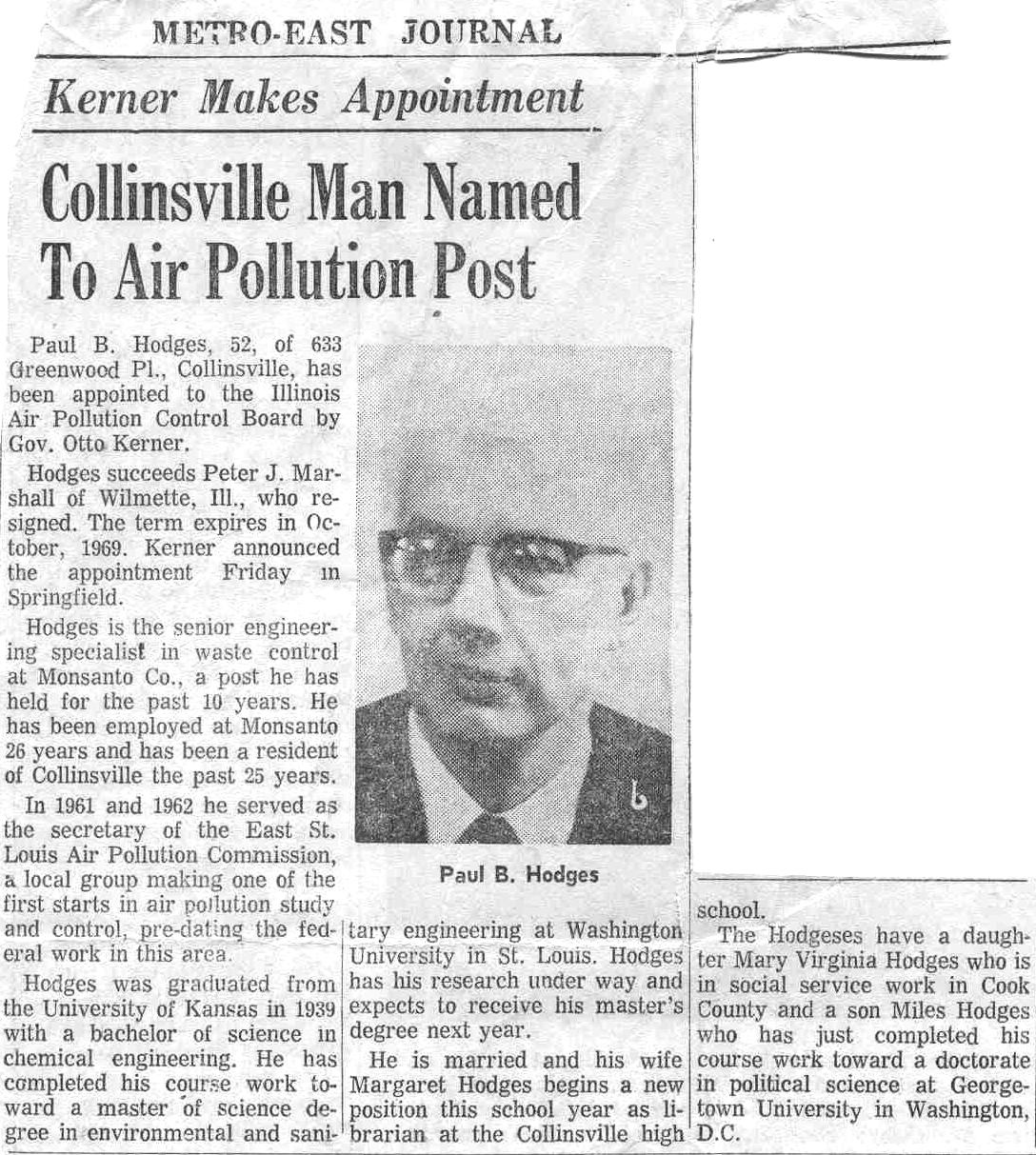
|
My father encounters the ugly world of political journalism
An event that occurred about this same time in my father's life brought my father into this same "Realist" world. A reporter for the St. Louis Post Dispatch, St. Louis's leading newspaper and also owner of one of its main TV stations, asked my father if he would be willing to be interviewed about the pollution-abatement work my dad was doing. My father had been appointed by the Illinois governor to serve on his pollution control board as its technical expert, whose input was considered to be very valuable in finding practical ways that Illinois industries could take up strong anti-pollution measures – without bankrupting themselves in the process. Indeed, my father's work was becoming so well-known that he had been back and forth between St. Louis and Washington, consulting with congressmen about his work, and what could be learned of a practical nature from that work. It was, after all, the mid-1960s, and the issue of pollution control was just becoming a big political item. So my father agreed to sit down with the reporter and discuss quite frankly the problems, the difficulties, the breakthroughs, etc. in trying to deal with the problem. He spent a full hour with the reporter in doing so. And overall, my father thought the interview went well, that the young man now understood the difficulties my father faced in taking on this challenge. How shocked he was, however, when the interview was soon presented on TV, briefly (a minute or two in length only) in which the reporter had skillfully gone through the interview, cutting and snipping here and there, actually redoing his own questions posed to my father. And then he presented the whole thing as a discovery of a major "coverup," one in which he, this young crusading reporter, caught the evil Monsanto Chemical Company attempting to hide from the public. My father, ever the engineer, lived in a very orderly world, one of logic and reason. He had no idea that people could be as devious as this young journalist in presenting a pure lie as the truth! Anyway, he was so upset that he tendered his resignation to the Illinois Pollution Control Board. But the governor begged him to stay, and Monsanto reminded him that his work was invaluable, if the country was going to be able to make the transition, and still stay alive economically. So my father backed down, and continued his work on the Board. But his heart was deeply broken. He told me this story on one of his visits to DC soon after this event. Ever the Realist, I told him that this was just how politics works. It's all about developing the right kinds of public perceptions that advance your career. That's all the journalist was interested in. He probably couldn't care less about the pollution issue, something however that absorbed my father, heart and soul.
The difficulties involved in trying to live above human deception
Unfortunately, there was nothing you could do about this kind of human behavior. It was/is/always will be part of our human world. All you could do personally was not to allow yourself to be thrown off course by such behavior. It's going to happen, especially if you are involved in something of deep public concern at the moment. You just have to keep going, and not get distracted by such evil. I knew enough from my own study of history that being able to address public opinion, without being caught up in it at the same time, was what great American leaders of the past (such as Washington and Lincoln) had to do in order to succeed in doing truly great things politically and socially. Sadly, however, my reading of history at that point did not seem to give me any understanding of why these "greats" were able to do this, of how a deep spiritual strength that these particular individuals commanded was based on a very intimate relationship with God, so that they could avoid being drawn into a dependence on public opinion itself. They reserved that sense of dependence on a very trustworthy God. Unfortunately, it was only later, much later, that I came to discover the importance of this kind of a relationship with God as the source of enormous strength supporting awesome social leadership. At the time, I was simply not finding this insight in the history books I was reading, or just found myself not able to understand or absorb the deep meaning of this dynamic when I might have run across it in my readings. Which of those it was that shaped my understanding, or lack thereof, of this component of truly great American leadership I'm not certain. Anyway, that key portion of my understanding of life's "realities" was just not there, not yet anyway. In any case, living in DC, I myself got to see this self-promoting dynamic, one that had hurt my father so deeply, all around me – every day. It's what feeds DC social life. Nothing other than such politics is ever "produced" in DC. And if you intend to work and function in DC, you had better understand the rules of the game! And so I got to actually counsel the one individual who had himself inspired me almost every step of my own journey! I learned (as I would someday even from my street guys as well as my students) that counsel is mutual in all significant human relationships! It goes both ways! Party Time
At the same time that I entered the Georgetown PhD program I also entered something of a Georgetown party program (!), centered on some of the foreign students at the University, in particular the sons and daughters of European diplomats posted to Washington. It started out for me when in the late spring of 1965 the daughter of the German 1st Secretary invited me into the "junior dip(lomat)-set." There I also met and started dating Stefania, daughter of an Italian NATO general. I had no car, but double-dated with Faisal, the Saudi ambassador's son, who was dating Stefania's sister, and who owned a Ford Mustang. It was quite a group – with parties both Friday and Saturday nights, every weekend – not infrequently formal in attire (I thus spent my scarce funds to buy a used tuxedo). And now living in Georgetown itself only expanded my social life even further, as our townhouse became one of the major gathering points – sometimes almost nightly – for the junior dip-set, especially the German contingent. Interestingly, rather than finding my studies undermined by this hectic social pace, I found myself more relaxed and concentrated when I did study. And my work showed it. |
| The next year, as I got started on my doctoral studies at Georgetown, I started dating Martha, a girl from Texas whose Daddy had got her a summer job (she was a teacher back in Houston) in their Congressman’s office in Washington. At the end of the summer she decided to stay in Washington and not go back to Texas. I knew what that meant! |
We dated (but I also dated other girls at that time)
|
Martha
Stefania returned to Rome with her family for the summer. While she was gone, a new relationship opened up for me when Martha, a summer intern in her Texas Congressman's office on Capitol Hill, came into my life. She and a number of other females moved into a townhouse next door to us in Georgetown (along with the Indiana beauty-queen previously mentioned!). And my friend Courtney, who was over visiting me at that time, made it a point to send an invitation across our back fence for all the girls next door to have dinner with us. And thus I met Martha. Anyway, Martha and I hit it off immediately, in a whirl of activity that had us together virtually all our free moments. Needless to say, when Stefania returned from Rome at the end of the summer, she found that the DC world she had left behind for a few months had changed dramatically. I felt sad, for I truly liked Stefania a lot. But as I still understood things, you can't have these feelings about more than one woman at a time. I chose – not entirely gladly. But choose I did. At the end of the summer, Martha decided not to return to her teaching job in Texas but to stay on permanently in her Congressman's office, and moved to another Georgetown townhouse with some of her friends, only a couple of blocks away. Our relationship continued on its hectic course. As I was laying low with the junior dip-set because of my switch in relationships, Martha opened a new set of social affiliations with some of the Capitol Hill crowd. But we tired quickly of the incessant jockeying for status that all social events on the Hill entailed. Eventually I returned to the junior dip-set, with Martha in tow. I found this world forgiving and still welcoming, and both of us found it to be much more to our liking. |
We lived next door to each other on
Prospect Street (I lived in the
house on the right,
she on the left), just a couple of blocks from the University.
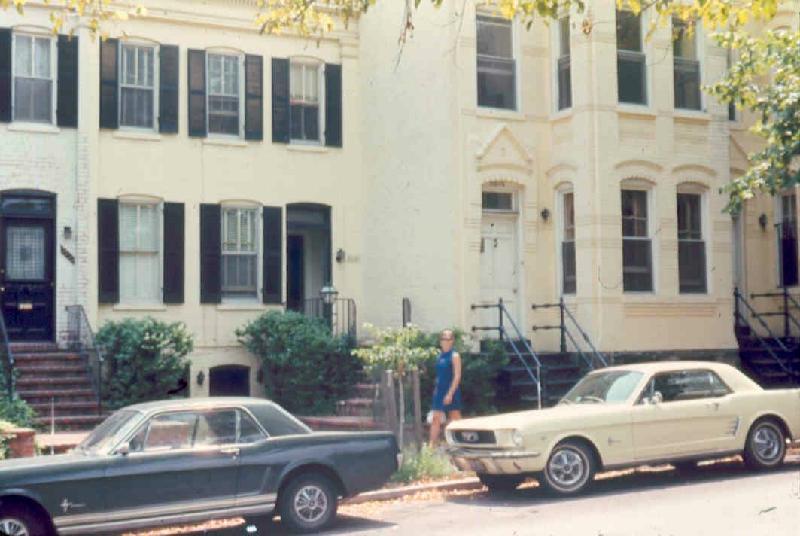
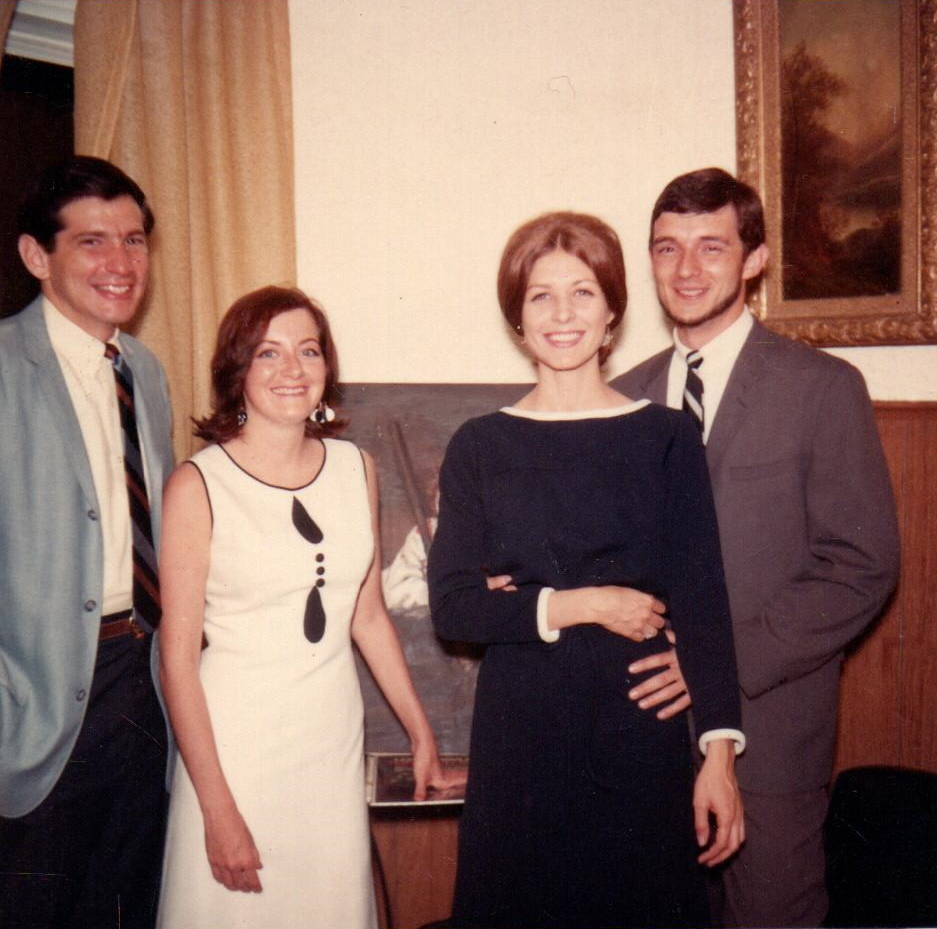
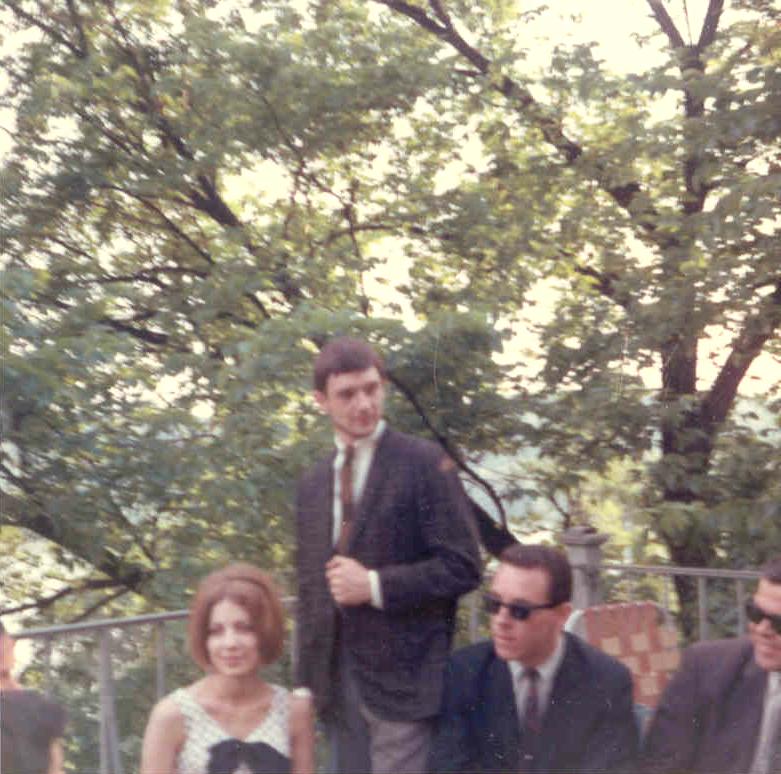
With Martha and some Georgetown friends
| I had a very busy social life in Washington (mostly with the sons and daughters of the foreign diplomats posted to Washington). But my best friend was Courtney – a law student at nearby George Washington University. We would remain close friends over the many years (until his fairly recent death). He would end up not only practicing law in DC but become part of Nixon’s White House staff ... as legal counsel in the White House / Pentagon relationship. |
Me (with my Abe Lincoln beard) and Courtney
Martha and Courtney ... in a visit we made to his English girlfriend Valeriewho was studying at Penn State
|
Engagement
Martha continued to work for her Congressman for one more year. Then the second year, at my urging, she enrolled full-time for some special post-grad work in history at George Washington University – at least for a semester. But she wanted to get married. And she let it be known that she was not going to wait around forever. In the early spring of 1967, she returned to Texas. I had not always dated Martha exclusively – though certainly predominantly. I had found other interests along the way, though none of them were ever serious. I just somehow could not get focused on Martha, being about as panicky at the thought of a permanent commitment with her as I had been with Kim. But for some reason not entirely clear to me, I soon found myself in my phone calls to Texas talking with Martha about the eventual possibility of marriage. Before I knew it, the date was set: the coming October 14th, her parents' anniversary. She returned to DC for a few months and then went off with one of her former Georgetown roommates to Europe, supposedly for the whole summer – somewhere along the way meeting my parents in Vienna to pick out her crystal glassware. |
|
Breaking off the relationship
But with Martha away I found myself in more relationships. Thus I realized that there was going to be no wedding in October. I was taken by surprise in mid-July when I received a phone call from Martha, announcing that she had returned early from Europe because she was missing me so much. My reaction was one of panic, for I knew that the moment that I had been dreading had arrived: I was going to have to confront her with my feelings. I did – and she again took off for Texas. I felt sad, glad, dismayed, guilty, and I'm not sure what else during the blur of the following weeks. My family was also dismayed – for they liked Martha very much and were looking forward to the wedding. Grandmother passes on
If that were not enough emotional confusion, I then learned that my beloved Grandmother was in a hospital in Denver, dying of cancer. I flew out to Denver and found her in a semi-coma – wrestling with death in the most dispiriting way. It made me all the more convinced that the Christian faith was largely worthless, for it seemed to bring my grandmother, a longstanding pillar of the church, no visible comfort at this critical moment in her life. I was sad, even bitter about this.3 3It was only much later that I learned that, fairly soon after my return to DC, she found the strength that her faith was supposed to offer, and faced her end quite peacefully. Moving ahead
I was also still feeling enormously guilty about what I had done to Martha. Indeed, I felt as if my feelings or emotions were no longer my friends but my enemies, as I wrestled with them. Towards the end of that week in Denver something inside of me resolved to forget my emotions and "stand up and be a man." I was going to go through with that wedding – and put all this useless torment behind me. It was much the same way I resolved my existential depression several years earlier: just deciding that I wasn't going to spend any more time worrying about things that have no logical resolution. At the end of September, I drove out to Indiana to be a groomsman for Courtney, as Martha arrived there to be a bridesmaid for his English bride-to-be, Valerie (who had also been a roommate of Martha's in DC). I knew that Courtney was as paralyzed as I was over the thought of marriage – even more so. And thus watching him go through the process gave me no small amount of encouragement. Two weeks later, in mid-October, Martha and I got married in Galveston, Texas, as originally planned. It was a small wedding, mostly family, and only a few friends, such as Courtney and Val. |
I was a groomsman at Courtney and Valerie's wedding in Indiana.
He
and Val (in the photo below) attended Martha and my wedding in Texas
two weeks later
(October
1967).
At the luncheon that followed our wedding ceremony
My mom and dad about this time
| Martha and I
then returned as husband and wife to DC for me to finish out my last
semester of doctoral studies before I took the last batch of my
doctoral exams the following spring. For a while life seemed pretty uneventful – until April of 1968. |
Martha and I
returned to Washington to our apartment just off Dupont Circle
| Martha with one of our two cats. Notice ... she is sitting in front of a huge project of mine: an immense historical time chart (from China across the top ... down to America running along the bottom) ... reaching back to 3000 BC and coming up to the present, each century represented by a 3" vertical column (a section of the lower left however shows a break-down of Western history by the decades since 1700)! What a perspective on the move of history this gave me. |
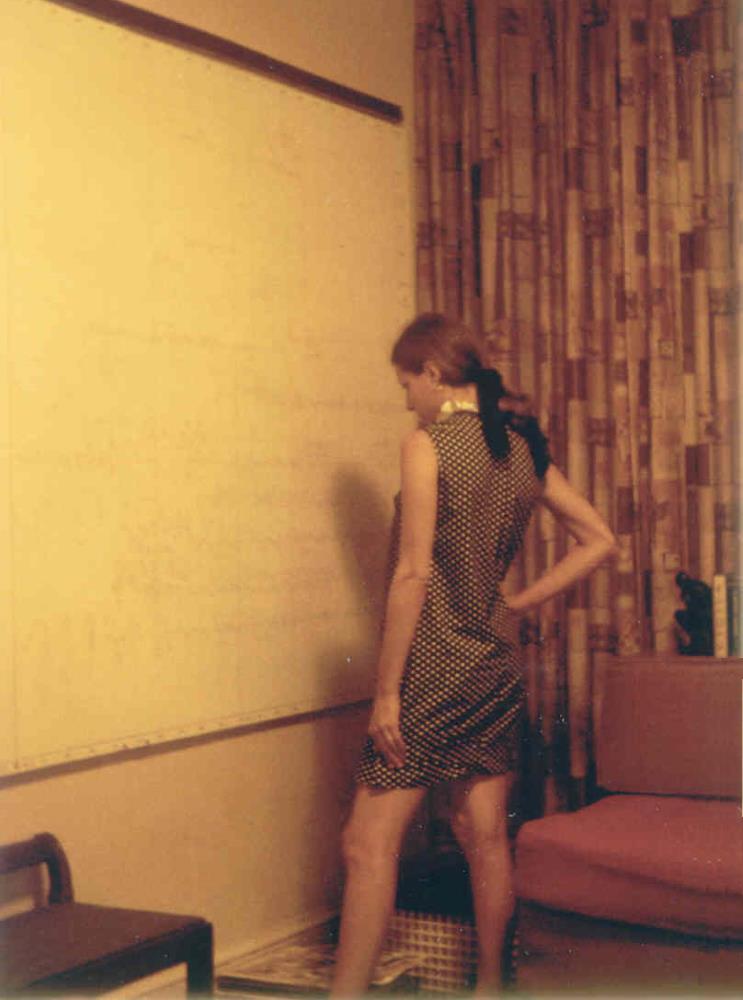
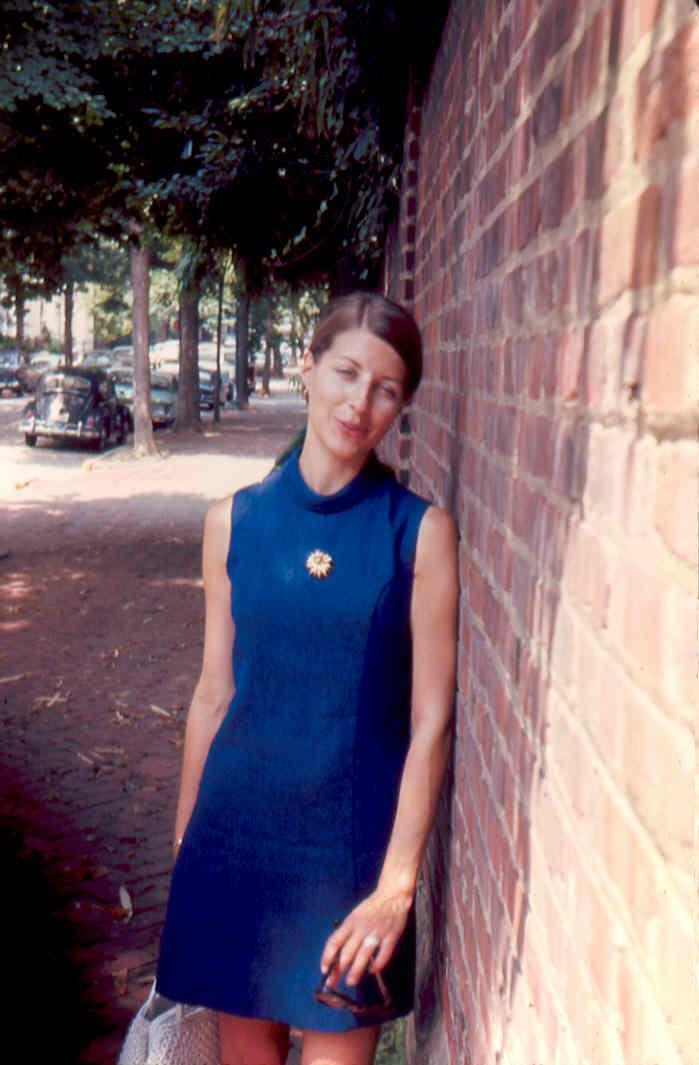
| However... we did get to witness up close an event that took place In October of 1967, when thousands of young people descended on Washington to participate in an anti-war demonstration in front of the Pentagon |
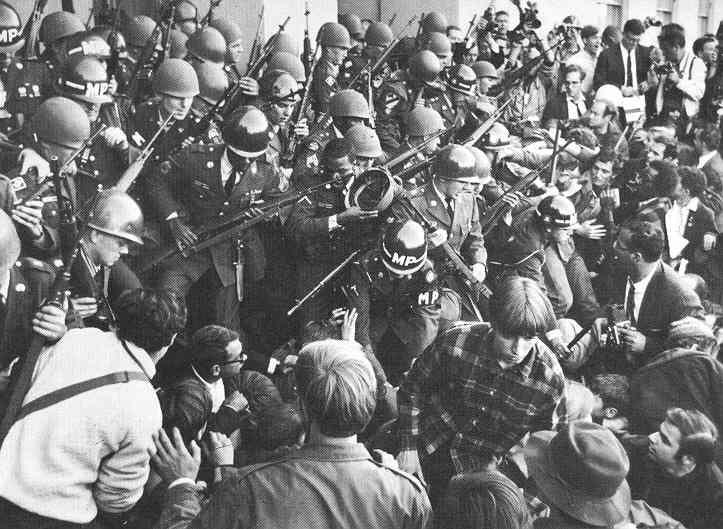
Some came to demonstrate the gentleness – but anti-war resolve – of "flower power."
But elsewhere – and at the same
time – anti-war protests often took on an angry character
as Boomers protested the
"Fascism" of those defending the evil "System."
THE ANNUS HORRIBILIS (HORRIBLE YEAR) |
|
Washington Burning
I had been fairly preoccupied with finishing up my doctoral exams and hadn't paid too much attention to the news. But at 5:00 p.m., as I was finishing my last comprehensive written exam, the proctor spoke up and announced that we had to finish and quickly return to our homes: a curfew had just been imposed on Washington, D.C. What??!! Then it all came back to me. Martin Luther King had been assassinated the day before in Memphis. Trouble had been expected – even in DC. Apparently, things had gotten bad. I could tell how bad by the large cloud of smoke that hovered over the city ahead of me as I made my way on foot through the deserted streets of Georgetown toward Dupont Circle where Martha and I lived. Martha met me at the door with bags packed: we would be fleeing across the Potomac to Virginia to stay with Courtney and Val until this all blew over. Dr. King's Last Sunday Sermon
This was all very eerie to me also because just the previous Sunday, we had been at the Episcopal National Cathedral, where we went most Sunday mornings. This attendance at the Cathedral however had not been so much to worship God as to touch the deeper roots of our waning WASPish heritage. Neither of us was at that point really a believer in God. Martha had been raised Baptist, but like me had abandoned the faith some years before. But we were both hungry to build on something loftier than our little lives. Anyway, we were quite surprised to find the area around the Cathedral a buzz of activity that particular Sunday. "Dr. King is preaching" we were told when we inquired about all this activity. So there we were as Dr. King preached ... his last Sunday sermon ever. Now as I reflected back on this sermon, I remembered how he spoke, as it now appeared quite prophetically, about how his work focusing on the advancement of Black civil rights was coming to a close. He did not approve of how the Black Panthers had taken over the movement, and anyway he made it clear that he was presently refocusing his efforts in promoting the lives of the poor, White as well as Black. He had also commented on how, with the Black movement initiative passing on to others, things might take a nastier turn. Indeed, how quickly and ironically his prophecy had all come to pass. |
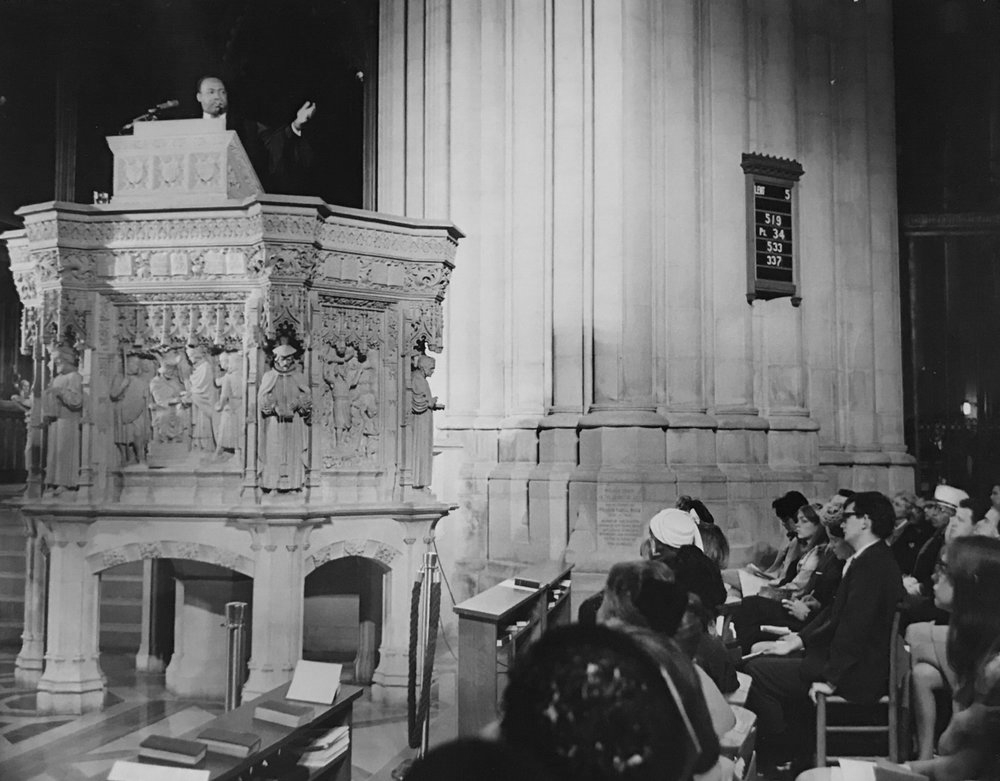
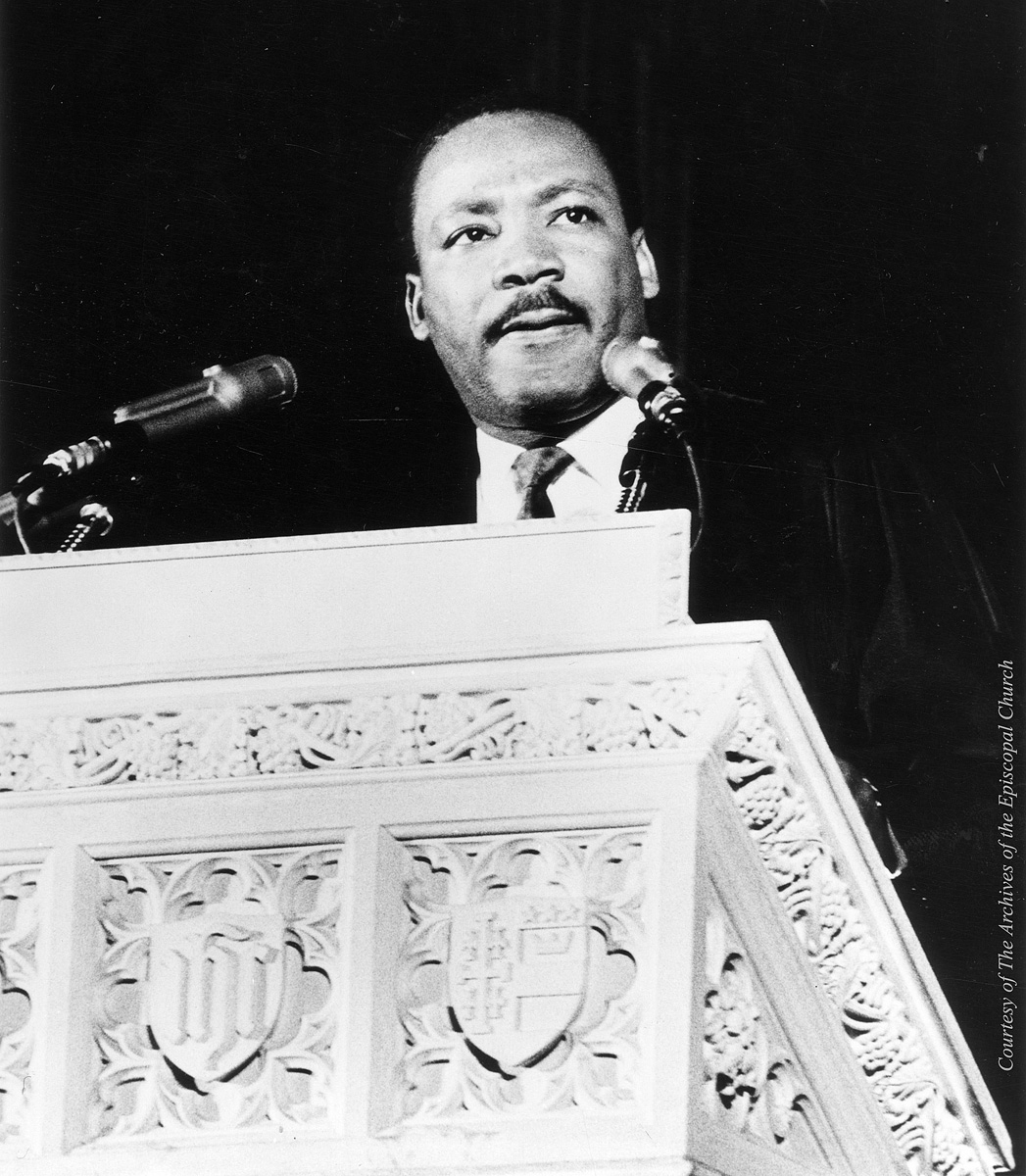
|
America in moral-spiritual crisis
While we were in Virginia with Courtney and Val, Courtney decided to answer the call that went out for lawyers to come to the DC courthouse to take up the defense of those arrested for pillaging or burning businesses in the District. I accompanied him back into DC, but actually only to observe up close how all this chaos was being handled. So I found myself at the Courthouse, sitting out among a massive number of individuals awaiting their cases, listening to the conversations around me to get a sense of the actual dynamic of "burn baby burn," something that by this time had become something of a Black Power mantra. But what surprised me most was that there was something almost of a party atmosphere filling the massive waiting room. Indeed, sitting right next to me were two young men who decided that they had enough time before their case was due to come up, to head out to a place where they were certain they could get themselves some new shoes! And I am quite certain they were not talking about purchasing those shoes. What struck me most about the whole thing was that this had nothing to do with Dr. King, or civil rights, or anything else political. The activity that got these people in trouble had nothing to do with standing up for Dr. King and the horror of what had happened to him. It seems I was more impacted emotionally by his death than they were. For them, the whole mess seemed simply to amount to economic opportunity afforded by the breakdown of law and order! I also felt as if I was observing the results of something similar to what happened with the wild mob charging across faculty lawns anxious to conduct a panty raid on the girls' dorms at the University of Illinois. It was just mob mentality in action. We stayed only a few days with Courtney and Val, moving back to our apartment when things quieted down. But we still lived under a 3:00 p.m. curfew enforced by members of the National Guard, whose military convoy would pass in front of our apartment a couple of times an hour. Could this be our Washington, D.C., capital of the Free World? It really played to my growing sense of cynicism.
What was happening to America at this point?
I knew I was watching the passing of the age of American innocence (and childish presumptuousness). Hippie kids had recently been camping out in large numbers just a block away from our apartment, in a rather contrived effort to demonstrate "flower power." "Peaceniks" were beginning to beat a steady path into town to protest the Vietnam war – evidencing spirits themselves that bespoke war rather than peace. And now DC was a city of several burned-out sections (one within a few blocks of where we lived)! Sadly also there was a new mood in the air, in the largely bi-racial Dupont Circle area where we lived (in fact, only a block away from where I had lived several years earlier). On a couple of previous occasions, we residents of the area had come out to work together to clean up the trash (broken wine bottles mostly) that littered the streets and sidewalks. There was a very positive neighborhood spirit at the time, one that I liked immensely. But with Dr. King's assassination, that spirit had become very icy, as Blacks now looked on Martha and me with clear contempt as we passed by. But we had had no role in Dr. King's assassination. It didn't matter. This was how "identity politics" always works. Tragic, but not an uncommon tragedy in America. Even more tragically, it was one that would appear on the scene again and again in the years ahead. Our plans to move on
Martha and I for months had been making plans to leave the States at the end of that summer – to follow the trail-of-conquest of Alexander the Great across Asia, all the way to India, eventually to settle in Belgium for me to do my research work for my doctoral dissertation. As the summer approached, I was ready – very ready – to get on with my life, and to get away from this madness that seemed to be infecting my people. Thus in August – an apparent American failure in Vietnam (given the seeming success of the Viet Cong's "Tet Offensive"), Johnson's announcement of his future departure from office, the King assassination and consequent burning and plundering of America, another Kennedy assassination, a disappointing Poor People's March on Washington, and a madcap Democratic national convention later, all in that same annus horribilis (horrible year) of 1968 – we gladly bid America goodbye. |
|
In Washington, the looting and burning of the city
came to within
two blocks of our townhouse apartment in a mixed Black-White
neighborhood … and Martha and I would be forced to flee to the home of Courtney and Val across the Potomac in Virginia.
Tragically, even when things finally settled down and we returned to our place on Dupont Circle, once friendly relations with our Black neighbors were icy ... as Blacks now looked on our "Whiteness" in anger. |
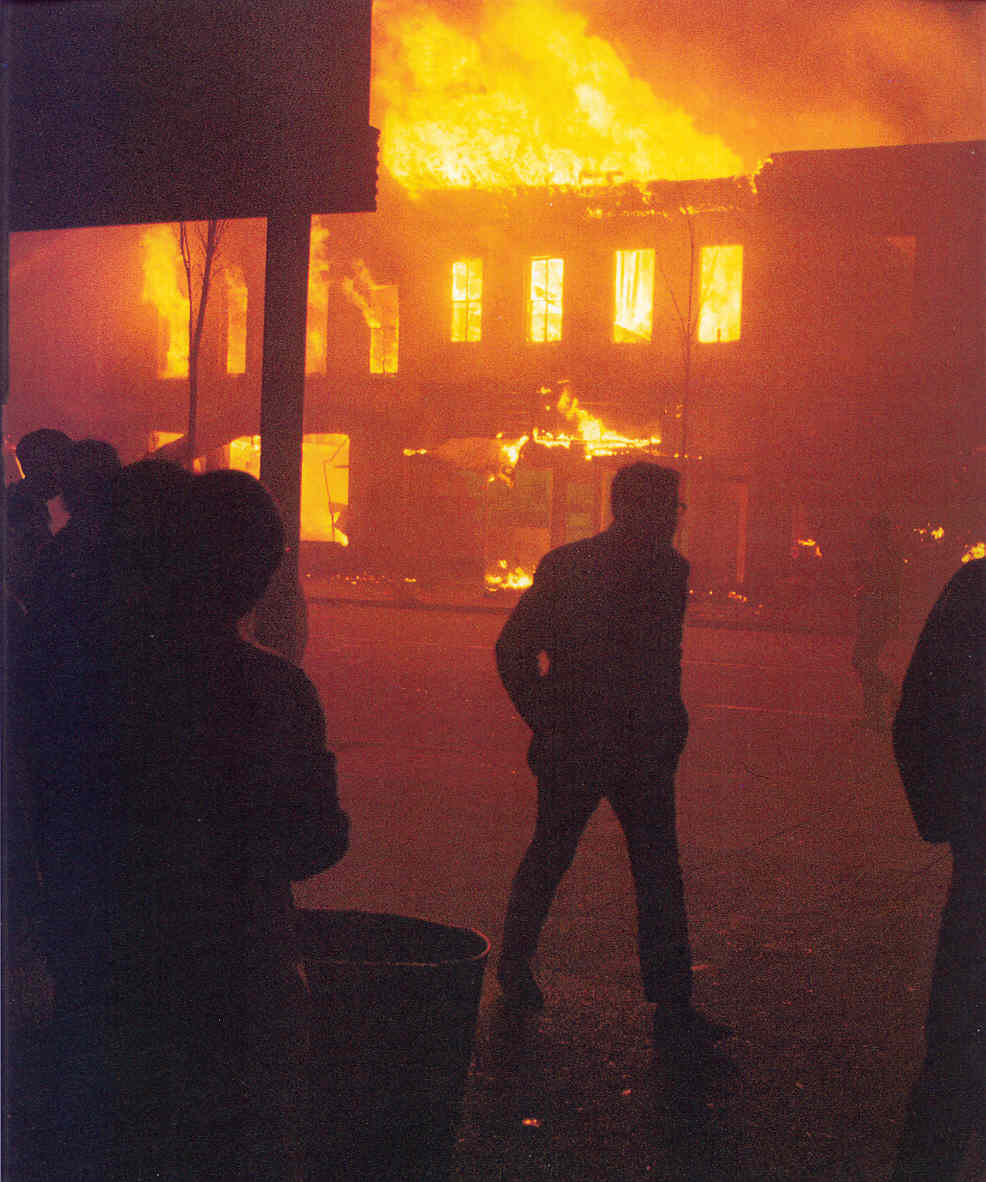
I couldn't believe how "Great Society" America had deteriorated into
something I no longer recognized as the nation I had grown up in.
In August of 1968, Martha and I left the country ... never so happy to leave
this American "mad-house" behind us. We would be away for two years.
THE EXPATRIATE
LIFE |
|
Asia – following the trail of Alexander the Great
Martha and I bought a used VW "squareback" (station wagon) in Brussels, Belgium, and then headed east, down through Germany, Switzerland, and Italy to Greece, then picked up parts of the trail of conquest of Alexander (300s BC). We crossed Turkey, Iran, Afghanistan, Pakistan – encountering some of the most incredible driving conditions along the way, not to mention people and places. By the most amazing timing, we hit historical sites well beyond the tourist season, traveling as we were in September, October, November, etc. For instance, at the Roman Colosseum, we saw no one else there at that time; at the ancient Roman city of Pompeii, there seemed to be only a handful of people touring the place; there were not a lot of people on Athens' acropolis; we were the only ones at Mycenae, Olympia, and Sparta (although Sparta was mostly still not excavated at the time); we were the only ones at the ancient Cretan capital of Knossos (on both of our two days visiting there); there was only another two or three people at the ancient city of Corinth; no one else was at Alexander's home of Pella or at the ancient Hittite capital at Boğazkale, and on and on. It was weird and wonderful. But it allowed us not just to tour the sites, but to sit and reflect on the historical perspectives that just being there allowed. |
| We bought a VW "Squareback" in Belgium, and proceeded to head Southeast, to Geneva, then Italy, then East across to Greece, then on to Turkey, then Iran, Afghanistan, Pakistan (leaving the car there and continuing on by train), to India and finally flying from India to Nepal … arriving in Kathmandu by Christmas. |
What was so wonderful was that it was past the tourist season … and we had famous historical sites nearly to ourselves. In fact, in most instances, we were the only ones on site.
In Greece: the ruins of ancient Sparta and the ancient Stadium of Olympia
Mycenae: The Lion's Gate and King Agamemnon's Palace
The ancient city of Corinth
Athens – Early October (1968) The Parthenon and the Erechtheion
The king's room and the throne room at Knossos
It's November ... and we arrive in Istanbul: The Bosporus and the Hagia Sophia
Inside the Hagia Sophia
We stop along the way at Gordian, to visit "Midas's Tomb" (probably not!)
We finally arrive (through massive mud) at Boğazkale … location
of
the
ancient capital of the Hittite Empire (anciently, the city was called Hattusha)
Once again, we spent the day alone there (noting where a swinging door left its scratches!)
... and a very nice road, though a bit crowded here and there!
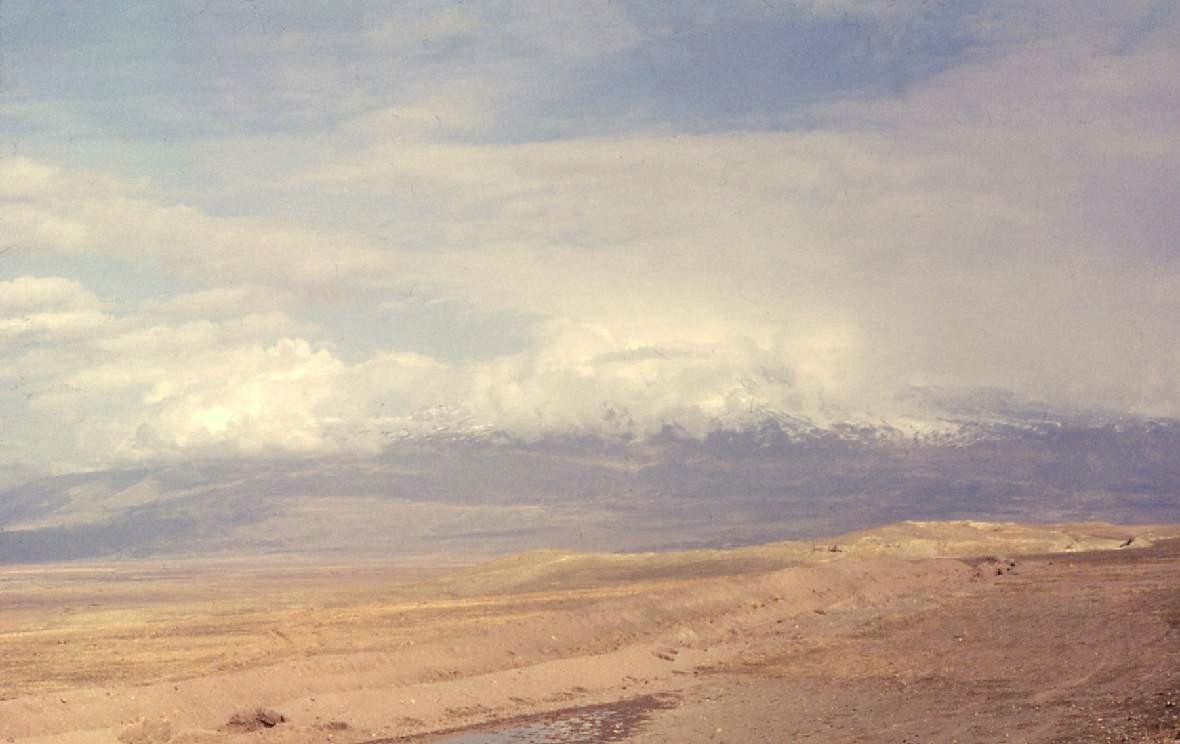
We then arrived at the beautiful Black Sea
coastal city of Trabzon ... before heading east
... and passing Mount Ararat
along the way (the famed resting place of Noah's Ark)
While at Trabzon, an American soldier posted at an observation post there told us a tragic story of how this region known as Turkish Armenia was cleared of its Armenian population by the "Terrible Turks" during the early part of the 20th century ... by Turks loading the Armenian men into boats and dumping them out in the Black Sea ... and then turning on the women and children ... who suffered all sorts of unmentionable treatment by the Turks.
At this point we headed into the Armenian Mountains
... and, as the road
took us higher, we saw some very worrisome snowy conditions ahead.
This made me quite nervous,
because I knew that we had to come back
this same way some months later, during
the height of winter.
Eventually we came down the other side ... where I had some serious car cleanup to do!
|
Iran
In Iran's capital of Tehran, we stayed with the family of one of my former Georgetown housemates, a very pro-Western family. They were able to explain to us the complexities of the Westernization of a proudly Muslim (although Shi'ite Muslim rather than Sunni Muslim) society, that also had not forgotten its origins as the ancient empire of Persia (the European West's constant enemy). And although where we were located in Tehran was fully modern, we were warned not to venture into the very traditional southern part of the city, where the hatred of Westerners ran deep. It was at this point that we realized the delicacy of the cultural situation that America's close ally, the Shah, was dealing with. But (at the moment) he was generally very popular among his people, even out in the very conservative countryside. He had brought visible upgrading to the roads, city centers, schools, etc. As a consequence, except for certain pockets of the country, we were well received as Westerners, in particular as Americans, especially since there seemed to be no others of that category around! Even here, we seemed to have this venture into the East all to ourselves! |
Then we headed east across northwestern Iran. I would begin to see a lot of fortified villages ... a reminder of how violent life could be in that part of the world.
I realized also the risks Martha and I had embraced in taking on this trip. I was, of course, always apprehensive ... but never afraid. Indeed, what actually kept us going was a strange sense that there was some "unseen hand" on our lives ... something I would come to call "fortuna." I had long ago given up my Sunday School idea of God … but had not (not yet anyway) given up on the notion that somehow I enjoyed very peculiar protection. It allowed me to do things that held most people back.
Years later I would come to understand that this had always been the hand of God.
Eventually we arrived at the city of Tabriz in Iranian Azerbaijan ... where a Mr. Hararichi took us under his wing to show us around ... including a rug factory where a man was hand-weaving a very fancy (and thus probably very expensive) Iranian rug.
Then we headed on to Tehran, Iran’s capital, where we stayed with the family of a former Iranian Georgetown housemate of mine. We were surprised to see how modern it was … at least the northern half of the city (thanks in part to the modernizing policies of the Shah). We were told to stay out of the Southern half of the city (militantly traditionalist Muslim), because the people there hated Westerners … and what Western culture had done to their Muslim world.
Then we headed north out Tehran, soon reaching the snowy Elburz mountains,
crossed them and then came down a very steep road on the other side ...
... to the Caspian Sea ... whose coast resembled greatly the coast of the Black Sea
Then we headed into Eastern Iran ... the bastion of Iranian-Muslim conservatism. Aware of this sensitivity of traditional Islam … we continued to move East cautiously … finally arriving at Mashhad, sort of the headquarters for this traditionalism.
The very
conservative city, Mashhad ... in Eastern Iran.
Notice the scarcity of women in
public!
Martha was of course "uncovered" ... and we really stood out as strangers! A group of people took an interest in us when one of them was able to converse with us at a restaurant. I don't remember in what language, because French or German were just as likely as English to be known in this part of the world. Actually the likelihood of any of those languages being spoken in Mashhad was slight!
The remoteness of Eastern Iran ... as most everywhere in central Asia
|
Afghanistan
When we got to the Iran-Afghan border, our car got bogged down in the mud in the five-mile stretch of no-man's land between the two countries. We were finally able to get a group of Afghan soldiers sent to get our car out of its mess. Then we had to spend the night at the Afghan border sleeping in the car. Early the next morning we were asked to take on an Afghan traveler, who had run out of travel funds, had managed to get to the Afghan border – and needed to get into Herat, where he could then continue on his own. We were told that he was head of the country's Chamber of Commerce. Yeah, right – as if we were stupid enough to believe such a fishy story! But we took him on anyway. When we got to Herat, we took him to the airport, where he took a flight onward to Kabul. And indeed, we knew by that time (he spoke excellent German) that he was indeed what he claimed to be. Before he departed, he invited us to look him up when we got to Kabul. The drive the rest of the way across Afghanistan was peaceful and largely uneventful, almost anyway. It was at one part of the road that we passed a group of men along the road, waving their hands wildly at us. We thought that was very friendly, until (at 100 kilometers an hour) we went sailing into a crude iron pipe poised across the road, to stop travelers (few of whom were actually on the road) so that they could collect "passage" money from them. Thankfully the bar merely creased the upper left portion of the car. Had it been a few inches lower, it would have taken off my head. As these guys came running up, I was furious. I pointed out the glass lying about. Obviously, we were not the first ones to have experienced this misadventure. They shrugged their shoulders, and we continued on. We would have to have the car repaired in Kabul. We were rather shaken by the experience, even though it was not the first time that strange (and dangerous) things had come our way. Nor would it be the last of such episodes either. But after all, we had willingly, gladly actually, undertaken an adventure that everyone back home thought qualified us as being totally insane. Where we were going was uncharted territory. And indeed, we took on each day with no way of knowing how things would turn out for us that day. But that's just who we were, adventurers. I mention this particular episode because of how it led to other amazing things. When we reached Kabul on the other side of the country, we took a few days to enjoy its interesting primitiveness. And then, with the car repaired, we found ourselves ready to move on into Pakistan. But in the meantime, we were advised not to do so just yet, but to wait until a violent uprising going on just across the border in Pakistan had a chance to settle down (this area was "Pakistan" only on the map, but actually a very, very independent-minded Pashtun region). We took the advice. A British couple we met in Kabul did not, and soon returned with their car badly damaged and one of them badly bruised and cut up. We knew we were therefore going to be in Kabul for a while. At this point we decided to take up the invitation to visit our Afghan Chamber of Commerce friend, Muhammad, and sent word to him where we were staying. Finally, a hotel clerk came to our room to tell us that someone waited for us in the lobby. But when I went down, all I saw there was someone who was obviously an Englishman ... by his very dress and demeanor. But wouldn't you know, it was his nephew, Nasir, who indeed was an architect, schooled at the University of London and well-experienced in the field in England itself. We would spend the next days (a week really) with him, and friends. Indeed, it was nearing the end of November, and Nasir's brother and family invited us to their home to help us celebrate our American Thanksgiving holiday. What a wonderfully gracious family they were. And it turned out also that he was the country's leading surgeon, who had trained in the field in Houston under the direction of the famous heart surgeon, Denton Cooley! Wow! But the "wow" did not stop there. We even got an invitation to a fashion show put on by the Afghan Queen, and found ourselves in the most amazing company in the process. Even after we moved on, we would keep close contact with our Afghan friends, for a number of years anyway, when several moves and changes later in our lives broke the lines of communications. Then when I heard that Soviet-backed "reformers" had taken over the country in 1978, producing a civil war that killed thousands, among them numerous Westernized Afghans, a deep chill hit me. I feared that this statistic most likely included our once-close Afghan friends. |
Afghanistan
Then
arriving at the Iranian-Afghan border ... we got hopelessly bogged
down along the 3-to-4-mile-long "no-man's-land" between the two
borders.
The next morning we met the president of the Afghan Chamber of Commerce, Mohammed Saleh (actually giving him a ride into Herat) ... and then later enjoying a Thanksgiving meal with his relatives in Kabul (a surgeon who had trained in Houston and his family), attending a reception and dinner put on by Afghan’s king and queen, and just hanging out with Mohammed's nephew, Nasir (a London-trained architect).
With Mohammed in Herat
In Kabul with Nasir and an Indian musician / Martha decked out in an Afghan burka!
Here I am relaxing in our hotel room in Kabul.
As we drove toward the Khyber Pass, we found ourselves in major Pashtun territory ... a rather violent land where people lived behind high walls and men ventured forth only if well-armed.
|
Pakistan and India
Finally we headed south through the famous Khyber Pass and descended down into Pakistan, a land full of people and animals crowded into the country's living spaces. The situation was so tight, the roads so crowded that they were almost impassable, that finally we left our car in Pakistan and headed on into India by train, making the mistake of buying cheap 3rd-class tickets for an overnight journey. We could barely breathe, the train was so crammed with people. The next morning we switched to the 2nd-class, but soon discovered that Indians had the habit of invading the 2nd-class cars when the 3rd-class car could take on not another individual. We finally decided to go 1st-class, which turned out to be not very expensive, and an excellent way to meet very interesting individuals. We finally arrived in New Delhi, and settled in there for over a week, right off of the very Victorian Connaught Circus. There was so much to see and do there. At first we loved the food dearly, until we finally tired of one curried meal after another (even a fruit dish was curried), and found that the American Embassy opened its restaurant on Friday noons for Westerners (not many actually) to come there to buy hamburgers and shakes! Otherwise we had something of a wonderful love affair with India. India was such a contrast, of elegance in its historical sites and poverty in the streets. And India, like Pakistan, was a very crowded country. I had no idea of how India could possibly continue to expand its population (actually at the time, it had only half the population that it does today!) But I admired the way the Indians went at life. Poverty did not mean misery. It only meant going at life in a simpler way. I remember sitting at a window at a railroad station's restaurant gazing out at the yard below me, where a woman was seated on the ground, assembling a small fire of cow "chips" to prepare a meal for her small children frolicking around the yard. There was an amazing "completeness" about the scene. She was doing what she knew to do to push on in life, and the kids seemed perfectly happy with the life they were delivered. It was at that point that it dawned on me that life simply calls on us to find ways to accommodate ourselves to it, as so many of our own American ancestors had done in the wilds of America. It was not our job to push life into a well-ordered box, although that seemed to be our goal in life these days, at least in my well-ordered American world. And in finding ourselves in such a well-padded box, we seemed to spend a great deal of time looking over our shoulders at life, afraid of what might happen to us if we were forced to live outside that box. So we did everything in our power to make our box even more secure. Yet, there in India was grand elegance, splendid reminders of that at Delhi's Red Fort, where the palaces were breath-taking with their marble work detailed with semi-precious gems and their hand-cut marble screens. It led me to inquire more deeply into the story of the Mogul dynasty that had built this splendid work (including the Taj Mahal which we would later visit), of the family's rise, its dominance – then its decay and ultimately its fall. I would never forget this. It would later become the inspiration for my "four generations theory" – of the typical rise and fall of most all societies (at some point in their existence) – eventually presented in my university course work, and in my recent publications on American history. And, of course, we just had to make our way to Varanasi (old Benares), a "holy city" (both Hindu and Buddhist) located along the banks of the great Ganges River. There we found Hindu temples, even Muslim mosques, and Mogul palaces alongside common homes and shops, as well as the great Buddhist shrine at nearby Sarnath. We watched Indians coming to the water to bathe in the holy waters and to offer floral wreaths in thanksgiving for some event in their lives. We saw Indian dobymen washing the people's clothing, just upstream from where the dead were being burned at the river's edge and their ashes scattered into the holy waters of the Ganges. We saw semi-naked holy men at prayer. We saw sacred cows wandering the streets, not to be touched, even to be pushed away from food stands where they munched away on the produce offered there. We passed religious processions in the streets, etc., etc., etc. It was so unlike anything you were likely to run into in America (even a monkey visiting us through an open window as we took breakfast at our hotel!) On to Nepal
There was no practical way to get to Kathmandu, Nepal's capital, except by flight. So we had the privilege – and the glory – of flying over the foothills of the Himalayan Mountains. And we arrived in a world that still belonged to an age several centuries ago. It was primitive in a medieval sort of way, and also glorious in that primitiveness. However, It was not until we got to Nepal that we also encountered the craziness that we had left behind in America. In Kathmandu you would periodically run into some sunken-eyed Westerner who would finally remember that his or her body needed something besides the inexpensive and readily available opium to sustain it. They would occasionally drag themselves to the local Chinese restaurant to get some cheap food before disappearing again into some hellhole to continue their drugged existences. Periodically they would be flown out of Nepal in body bags. Such a dismal end for people who had come so far to "find themselves." Back to India
We flew back to India and arrived at a still-quite-Victorian Bombay (the future "Mumbai") just in time for Christmas. It was strange to note that Hindus found ample reason to celebrate Christmas, in a very typical Indian way – with bright colors everywhere, music blaring out onto the streets, and the people parading everywhere, happy to be caught up in the event. All of this obviously had no connection whatsoever with the Christmas I was familiar with. But for me at the time, Christmas anyway was just a beautiful family holiday on the calendar, to be celebrated for whatever purpose and by whatever manner you chose to do so. Beyond that it had no particular meaning. (I was not anti-Christian at the time. Just not part of that religious world). |
Pakistan, India and Nepal
Then we went through the Khyber Pass (major Taliban territory today) … down into the crowded streets of Pakistan … where we left the car and continued on into India by train!
Then we spent
the next month in
India …
seeing the ancient and the modern (mostly the ancient!) side by
side
Delhi's Temple dedicated to the goddess Lakshmi
Along the Ganges River at Benares
The crowded streets of Benares / the Buddhist holy site at Sarnath (nearby)
We then flew across the foothills of the Himalayan Mountains to Nepal’s capital, Katmandu, and nearby religious center of Patan … where we felt as if we had stepped back several centuries in time.We then returned to India for another month of travel.
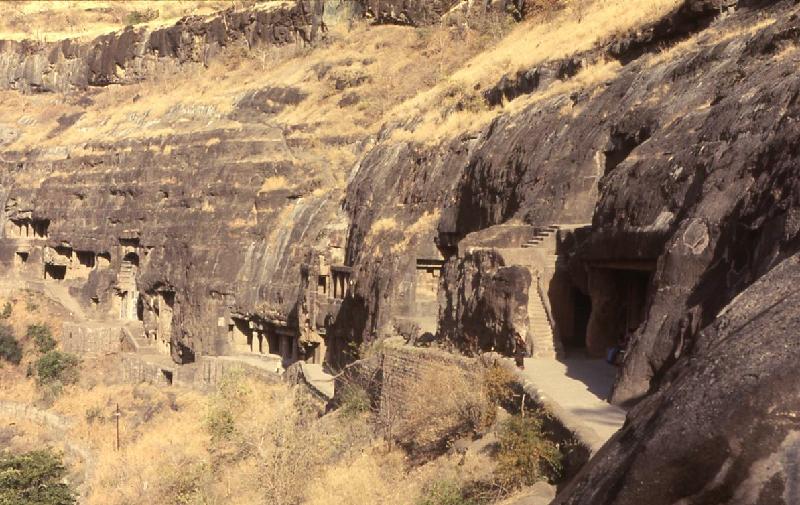
The Buddhist Ajunta caves
A still quite Victorian Bombay (at that time)
| We spent a good deal of time with an old friend, Deepak, who was at
that point a professor at the University of Poona. He was now happily married, with children. We spent time
together just relaxing, taking meals along the Indian Ocean, visiting
the ancient Buddhist Elephanta Caves, and visiting a Bombay movie set
where they were filming one of India's many productions. Deepak was the picture of happiness, especially in his marriage with Purnima, a marriage arranged by his family of course. I remember when he got "the letter" commanding him to return from St. Louis (he was attending Washington University the same time as my father) to Bombay. As a majorly free spirit at the time, he knew exactly what his father's intentions were, to end that freedom with a proper marriage. He explained to me that his father at least had offered him not one but three candidates. He looked over their resumés (!) and announced that he would start with Purnima. And after a single date with her, he told his father that he would not need to check out the other two candidates. Purnima was an excellent choice – beautiful, well-educated, a skilled dancing teacher, and of very good family. Indeed, Deepak could not say enough positive things about the wisdom of the way marriages were "arranged" in India. I suppose he had a point! |
Fun with my old friend Deepak
We visited a place where they were filming an Indian movie ...
and of course we visited more of the requisite historical sites (there being many in India!)
The famous Taj Mahal at Agra ... once the center of Mughal imperial power
|
Time to head back West
I think that part of the reason for both my expatriate existence – and my decision to include Asia as part of that experience was a sense that I would find some of that "transcendence" that my soul craved so much: a sense of sharing in some of the "wisdom" of countless generations that went before us. I wanted to plant my personal soul in some of that antiquity. But in any case, it was time to get back to "reality." I had a dissertation to write, and the need to find employment back in Belgium, where we planned to establish ourselves for the immediate future. The hand of Fortuna
In the course of the trip I began slowly to develop that rising sense of some unseen hand surrounding and protecting Martha and me during all this venture into the unknown. Things that had been happening along the way seemed to me to be much more than mere coincidence. And it certainly was more – much more – than just good luck. This "hand" not only had an invaluable presence, it seemed to have some larger purpose behind that presence. Slowly this "hand" began to take for me identity simply as Fortuna. I certainly would never have called this Fortuna "God," for this in no way conformed to my Sunday School teaching about the nature of God. But nonetheless, I did have a keen sense of the outside support of some kind of mysterious force. The very decision to head East across Asia with only the crudest of maps available to guide me and no sense of what I would do if breakdowns or banditry or sickness or something should afflict me – this was possible for me only because I had this strong sense of Fortuna. Most importantly, in very life-and-death moments, this hand of Fortuna came through for us, when we were in desperate need of assistance. A couple of the most dramatic instances occurred on the trip back from India to Europe. The Baluchi Desert
One such instance occurred when I lost my way from the road (path) through the Baluchi Desert, for the road was drifted over constantly by shifting sand. At one point, I found myself hopelessly mired down in sand in the middle of the Baluchi Desert. I could not dig myself out. I feared being stranded out there, for in such a defenseless plight Martha and I were perfect targets for murderous thieves. But as I got out of the car to consider my situation, I looked up, and – wonder of wonders – saw two men working off in the distance. They saw our plight, and came up to help us get ourselves dug out and redirected back on the road (which they had been working on). How odd it all was, since they had been the only people I had seen all morning along the road (it was just desert after all!). And I had passed very few cars or trucks since heading out that morning. Yet there they were a few hundred yards off to help us! (angels in disguise?) |
This was a very grueling trip because we had to cross the Baluchi Desert (where Alexander lost much of his army on his return West from India). We get bogged down in a sand drift ... only to find two road workers a hundred yards off, able to get us back on the "road." Interesting, because these were about the only people we saw that day. Angels?
We get a short break from the bad roads and snow when we come to Isfahan (Iran), the old Persian royal capital ... with the Ali Qapu Palace and Bazaar.
The Iranian-Turkish border town / The road as we start out
|
The wintry heights of Turkish Armenia
Another such instance occurred a short time later as the car climbed the snow-covered road to the top of Turkey's Armenian Mountains. Constant snow storms had killed 14 people in those mountains the previous week. And arriving at the Iran-Turkey border, we learned that the border authorities were about to close the main road across those mountains, the road that would bring us to Erzurum in Turkey on the other side of the mountain chain. The next morning, I pleaded with the authorities to let us pass on ahead, as we were running out of money. And everyone was aware that once closed, the border would not be reopened for months. They finally relented and let us proceed. And so there we were, heading up along a heavily snow-covered road with conditions worsening with each mile. Then it happened: we got hopelessly stranded in a huge snow drift which effectively blocked the road ahead, and prevented us from even being able to turn around and head back to where we had started from. We unloaded everything we were packing, in order to lighten the car. But it proved to be to no avail. We were stuck – completely stuck – with snow coming down heavily around us. And there was no prospect of help, as we had seen no one on the road since we left the border. At that point we realized that we were thus destined to become statistics added to the number who had died from this horrible snow storm. Then miraculously a truck full of Turks appeared out of the snowy haze. Thankfully they were determined to help, rather than take advantage of our hopeless situation. They dug us out of the drift and then swung in front of us so that the truck blasted its way through the drifts before us, plowing a path for us through the mountainous heights. And then when we came down on the other side, to more drivable conditions, they drove off. (More angels in disguise?) |
By the time we reach an equally somber Istanbul, we are completely exhausted.
Finally in mid-February we arrived at our European destination … Brussels where I planned to research and write my doctoral dissertation on Belgian language issues ... and Belgian political leadership trying to move the country ahead in the face of those linguistic divisions.
|
Looking for work in Belgium
Upon our return to Brussels in February (now the year 1969), we faced the immediate problem of finding work – for we had indeed spent all of our money in those six months of wandering. I had been warned in Washington by the Belgian consul that getting a job in Belgium would be an impossibility, as work visas were virtually unattainable. But I was not one to let such details slow me up. I had received considerable training in Washington in computer programming, and once in Brussels I went from American corporation to American corporation located there in search of employment as a computer programmer. In the meantime, Martha found a job teaching English at a language school – paid under the table of course! But I was turned down in interview after interview – not because they did not want to hire me, but because they knew there was no way they were going to be able to get me a work visa. The Belgian government wanted to place Belgians in this newly opening field of computer programming. I grew discouraged after about the 10th similar interview outcome.
Fortuna comes to our aid again, and again!
Being discouraged by this was something new to me. I would never have thought simply to arrive on the scene in Belgium to begin looking for a job if I had not had this sense of this mysterious Fortuna being "with me." But now it seemed to be failing me. IBM
And then IBM-Belgium contacted me! They had heard I was interviewing, and wanted to know if I would be willing to be interviewed by them! As it turned out, they desperately needed a programmer/analyst who could work directly with their new American customers in Brussels in developing customized computer operations. Their Belgian staff were having difficulties with the subtleties of American business language. They badly needed an American to bridge that gap. Therefore I was exactly what they needed. And not to worry about the visa. They could get one granted on the basis that I possessed skills (native English-speaker) that they could not get from a Belgian national. I was hired on the spot! Fortuna had come through for me again! At about this time Martha was hired by an English-speaking Catholic school in Brussels – and we were on easy street! Indeed, Fortuna was busy for us both! I enjoyed the work immensely. And I had the great satisfaction of being able to solve some programming problems that had some of the other IBM technicians stumped. And I was able to work closely with both Toyota and Ampex offices in Belgium. But any thought of being able to work for IBM and at the same time press forward on my doctoral research was soon dispelled. IBM left me little time and energy for such an enterprise. I simply had nothing left of me by the evening energy-wise, nothing able to undertake the rigors of doctoral research. But by the fall, Fortuna performed yet another miracle for us when Martha got an even better job teaching at the American military school in Brussels. We could live easily (even splendidly) on her salary alone. So I resigned from my job with IBM and turned my attention to my doctoral work. Life was good. No, it was perfect! |
We soon found
an apartment just in time to receive a visit from
Val
– and Courtney’s cousin Jane. At that point, furnishings were
scarce!
However, we eventually got settled in quite comfortably!
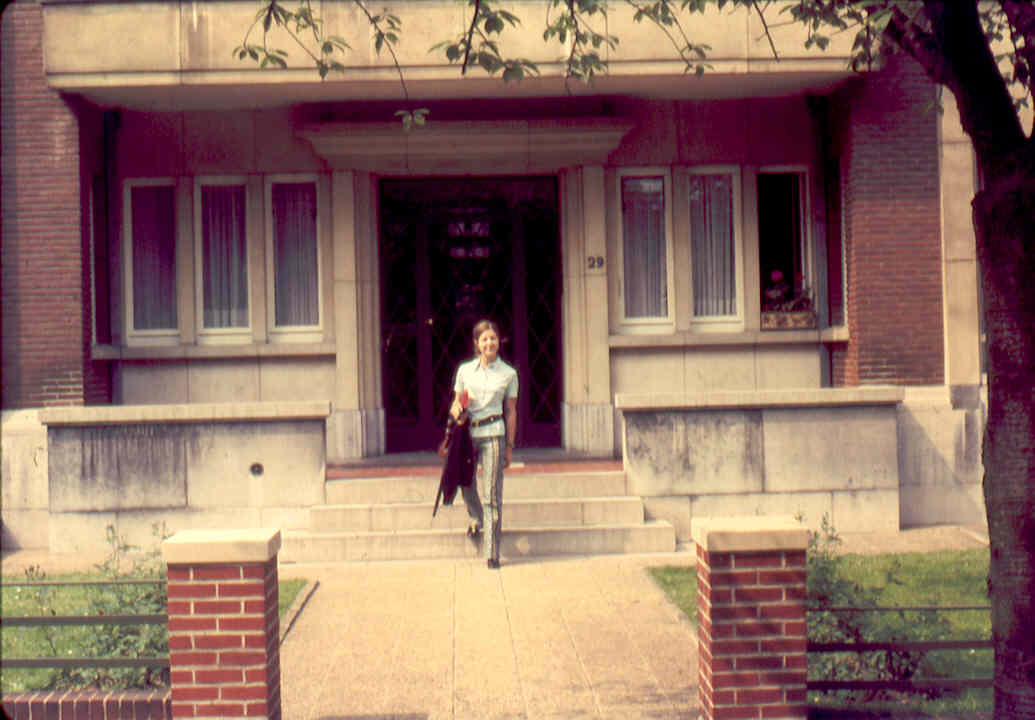
We loved to sit on our balcony ...
and look out on our neighborhood (Ixelles or southern Brussels)
Avenue du Derby ... from our balcony
very spectacular when the cherry
blossoms bloomed
On this basis we quickly made ourselves at home in Belgium
|
Friends
It was an active time socially. We received visits frequently from our families, and both Val and Courtney's cousin (also a former roommate of Martha's) came to visit. And of course, I met a number of young Belgian professionals through my IBM days, and for the year and a half we were Belgian residents, we remained close to them – especially our Walloon (French-speaking) friends, Pierre and Anne, and our Flemish (Dutch-speaking) friend, Victor. Indeed, Victor became like another brother to me. At Martha's school we became close friends of a number of American teachers, expatriates and adventurers like ourselves and most like my German friends in Geneva – in their tendency to travel forth at every opportunity. We did a lot of traveling with them. And I met two Americans (from Tulane University in New Orleans) who were, like me, researching their doctoral dissertations at the Royal Library in Brussels: Bob and Newt. We established the almost daily habit of having three-hour lunches over beers at a nearby cafe, designing solutions to the problems of America, and the world!4 All in all, Martha and I found that our Belgian life was every bit as stimulating as the life I once knew in Geneva. 4Newt would have the opportunity to put those thoughts to action. After teaching college in Georgia, he ran for the U.S. House of Representatives, was elected, and quickly rose in the ranks of the Republican Party, eventually becoming House Speaker, and the force behind the "Republican Party Revolution" of 1994! |
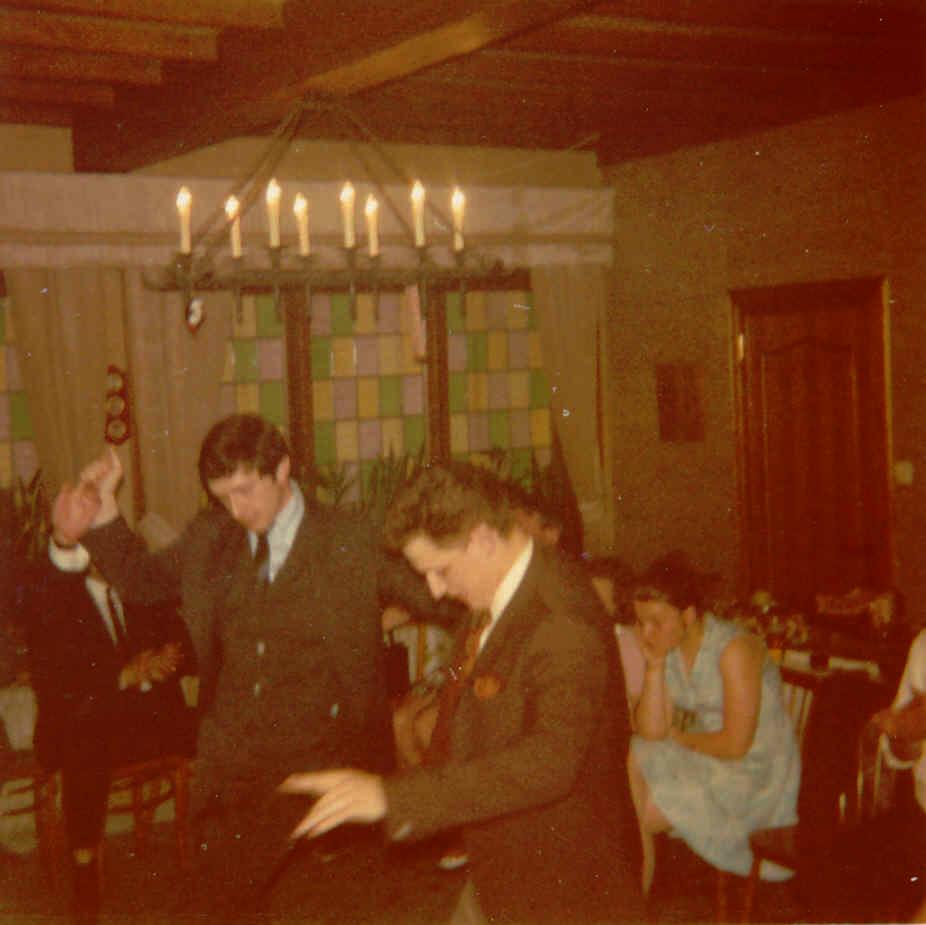
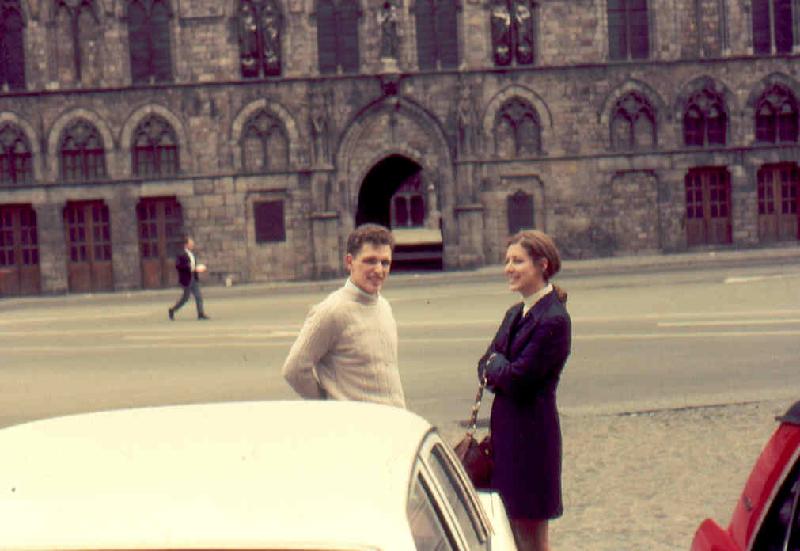
Doing the Greek hasapiko
dance with Victor and family ... at his home in Halle
... and visiting
Ypres with him
He was a Flemish Belgian ... also something like a brother to
me
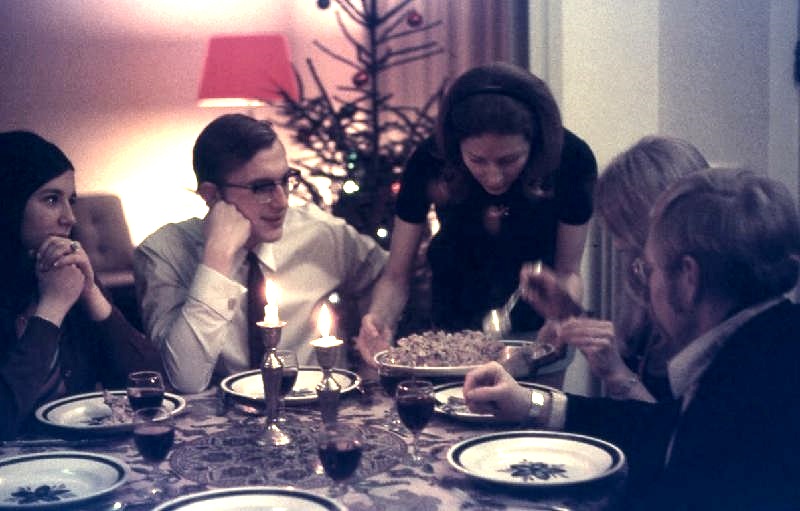
Dinner with Belgian (French-speaking Walloons) and American friends
Pierre and Anne / Ben and Ann (lots of Anns!)
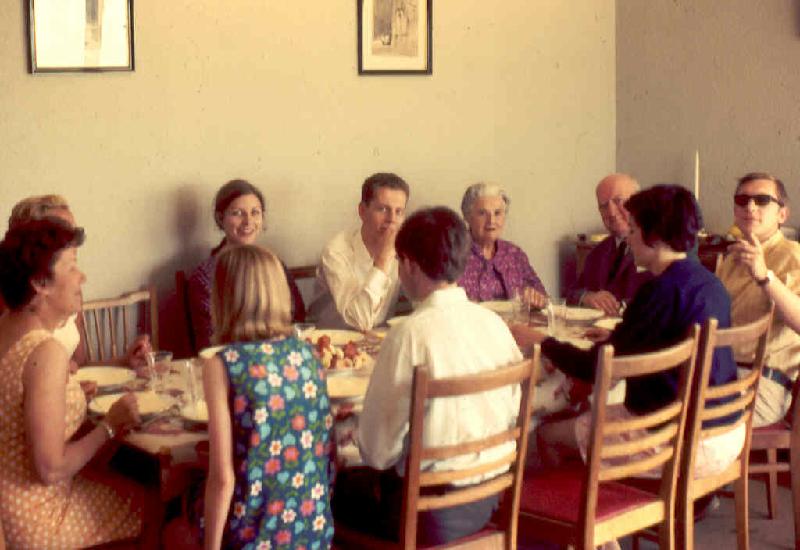
In Liège with Pierre and Anne and family
Being invited into the homes of our Belgian friends ... was like being accepted into family ... a great honor!
On a canoe trip in the Ardennes Forest with Belgian friends
But IBM drained all my energy daily … and I was making no progress on my dissertation. Then finally with Martha’s job at the American military school, we could then easily live off her salary alone.
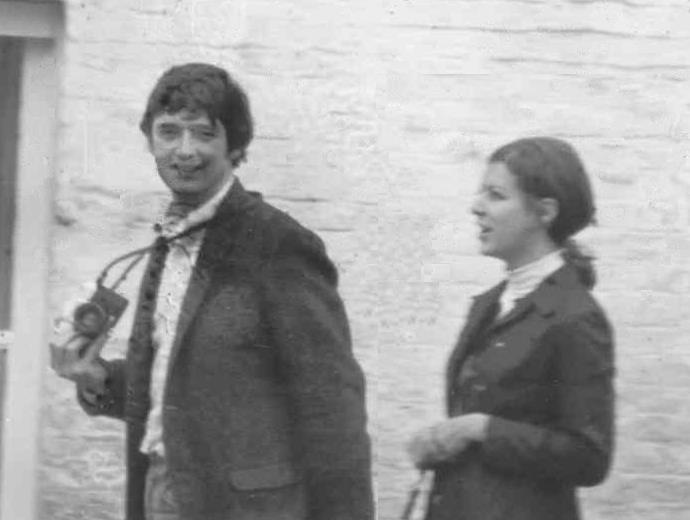
Bob
Sanders
and his Danish wife Ann
Newt Gingrich
Belgium itself was beautiful ... and we did a lot of touring the area. We spent a lot of time in London as well ... and traveled to Paris a couple of times.
Here we are in Bruges / Brugge (depending on French or Flemish
pronunciation!)
|
Researching "identity politics"
Multiculturalism had become for me a matter of supreme interest. Of course that summer of 1960 traveling through Europe and discovering the wonder of many different cultures – and the discovery, by way of contrast, of how very American I was – constituted the huge startup of this interest. And my 1961-1962 school year in Geneva had only taken that interest deeper. And my research on multicultural South Africa (1964-1965) had pushed me to ask questions now of what politically this could mean to a society. And my trip across Asia had stretched my familiarity with multiculturalism beyond even the realm of Western culture itself. And so now I was in Brussels, Belgium, taking up the matter as serious doctoral research, trying to understand the political-social implications of Belgium being a society separated deeply by the language line of Dutch-speaking Flemish in the north and French-speaking Walloons in the south. 
At one time (the 1800s, when the country was formed) Belgium had been more or less unified by the fact that the country's political elite, even in the Flemish North, were fluent in French, as French was the language that the upper classes of Europe expected everyone to operate in. But the nationalist impulse unleashed by World War One, and the German occupation of Belgium during that war, had encouraged a reaction by the Flemish (Dutch is after all merely another German dialect) against the country's francophones (those who speak French). And World War Two and another German occupation had not softened Belgium's cultural animosities either.
The challenges – and dangers – of multiculturalism
In any case, I was very aware of how much language shaped, defined, and directed culture, especially in this age of nationalism. Language is the means by which a society's dreams, its understandings, its plans are conveyed to the people. It is very, very hard to sign onto a society's cultural doings if you do not speak the language of that culture. Yes, I am well aware that Liberals somehow believe that multiculturalism is a blessing to a society because it promotes "diversity" and diversity supports "freedom." At least it is supposed to do so in theory. Actually I never saw that to be the case out there in the real world. In all my research into the dynamics of multiculturalism I came to understand quite clearly that multiculturalism was not a natural blessing. Instead, it was a very dangerous challenge – one that had to find some kind of larger solution to it, before it tore a society to pieces. The American Civil War presented a clear example of just those dangers. So did the Russian and Chinese Revolutions. So also did Gandhi's revolution in India, which set Indian Hindus against Indian Muslims and against Indian Sikhs – even destroying Gandhi in the process. The world around me gave constant witness to that truth. And it would continue to do so in the future. Switzerland
But what about Switzerland? Wasn't it multicultural, with parts of the country speaking French, parts speaking German, parts speaking Italian, and other parts speaking variants of an ancient Latin form called "Romansh"? Wasn't it a multicultural society, seemingly always found in a constant state of peace? The answer to that, as I well knew personally, was "yes." But I also knew why, and it had nothing to do with the Swiss fashioning themselves into some kind of higher species, able to operate in the upper atmosphere of Liberal enlightenment. The Swiss were in fact a very down-to-earth or socially practical people, who had created a multi-cultural confederation of 26 very self-sufficient cantons. It was at the local level of the canton where the real business of government (and everything else) took place. The point at which Switzerland approached the character of a nation was almost solely in its own self-understanding as a people united against the larger world. In fact, it was in the requirement of Swiss military service that there was a larger or "national" political call placed on the Swiss. And this was strictly a defensive call, one to protect the country from the intrigues of the larger powers surrounding their small but mountainous world. In short, Switzerland was basically a defensive alliance of 26 rather autonomous cantons. The language issue was for the Swiss of significance only at the canton level, where there indeed, one or another of the languages supported the cultural identity defining that particular canton. True, the Swiss tended to be multilingual, in their ability to speak across cantonal lines. But still, they were first and foremost French, German, Italian or Romansch-speaking Swiss (there is no "Swiss" national language). And the Swiss had no aggressive foreign policy. Indeed, their policy was to stay out of everyone else's business, and keep everyone else out of theirs. Beyond that, they needed no nationalist cause (such as what drove World Wars One and Two) to define them. In fact, they laid very low during both wars, using their considerable mountain defenses to keep the warring parties out of their country. Indeed, in virtually everything, they have performed as diplomatic "neutrals," joining none of the European alliances – except for the multinational organizations, the League of Nations and its successor the United Nations – whose European regional headquarters in fact have been located in Swiss Geneva. They have even refused to join the multinational European Union. So yes, the Swiss found a very effective answer to the challenge of multiculturalism. But for the rest of the world to be able, or even be willing, to go down that same "confederational" rather than national road was, and still is, most unlikely. The crusading spirit of linguistic or sectarian nationalism in our world has always been much stronger than the kind of self-restricted and purely defensive instincts that have long directed Swiss behavior. Bi-Cultural Belgium
Yet, something (sort of) along those lines I realized was beginning to redirect Belgian cultural politics, even as I first took up the subject in late 1969. And Charles De Gaulle was a big help in this matter! De Gaulle hated the English-speaking world, and blocked British entry into the European Common Market. And step by step he also removed French participation from the North Atlantic Treaty Organization (NATO), because it was clearly led by the United States. When he failed to get other European nations to join him in this NATO boycott, he kicked not only all American troops out of France, but also NATO headquarters (which had been placed in France) out of the country as well. At this point NATO shifted its operational center north, to Belgium, where the administrative center of the new European Union (the Common Market and its evolved successor organizations) was already located. In doing so this gave Belgium something of a very key international status as the "center" of the New Europe, politically, economically and now militarily as well. And American corporations followed that shift in also moving their European headquarters to Belgium, which I well knew, having worked (via IBM) in these new offices. And this shift proved to lift Belgium above the linguistic squabbles that had previously bedeviled Belgian politics, when political actors had previously played on cultural sensitivities to advance their particular careers. Now Belgian politicians had a higher purpose, competing to be the better party to lead Belgium even further forward in its new role as administrative center of the New Europe.
Lessons learned
Of course, as I was doing my research (and ultimately writing) on the subject in the period 1969-1970, this new dynamic was only in its infant stages. But I saw where things were going to be taking Belgian society… and how its new higher national purpose would help it move past its linguistic or cultural quarrels. And I would never forget what I learned in digging deeply into just this kind of social dynamic. It would serve me well in later years in understanding the most likely paths that this or that sectarian social or political movement was likely to take a society, and where a higher and more unifying purpose might better take that society. And I learned especially the key role that leadership played in the process, for vision and resolve to move toward higher things did not just come by nature to a people. It had to be designed and presented before the people by those who could explain, and – most importantly – give clear personal example to the people of what these higher things were all about. A true leader needed only to "inspire" the people. If he had to become a "dictator" in this matter, it was clear that the groundwork for a higher social purpose was still lacking. The people were still unable (most likely because of continuing sectarian or cultural differences) to let go of their social prejudices, and move with their leader to new things. Stalin faced that problem, Hitler did not. Gandhi, despite a willingness of both Muslims and Hindus to work together to get the British to "quit India," could not find a way to get Muslims and Hindus to work together after that. Indeed, the two Indian groups became bitter enemies. Mao never figured out how to get rural and urban China to work together – and nearly ruined China, twice. And so on. So yes, I would watch closely how I saw a society's leaders approach the political-economic-cultural and even spiritual challenges facing a country. Would they merely advance their political careers by cultivating support among one social grouping, against another group in their society (and its leaders)? That was classical political sleaziness, not uncommon in societies that call themselves "democracies," where the people are easily mobilized to action because it is their group duty (quasi-patriotism or just crude sectarianism) to go at some other group, as some kind of great crusade! I saw plenty of that unfolding in America in the late 1960s. Or were they really able to take that society to higher things, without starting a foreign war as a very destructive cheap-shot version of "pursuing higher things?" President Kennedy and Dr. King clearly understood things along higher moral lines and tried to inspire Americans to support those higher things. But Johnson did not have the same confidence in the American people, and tried to put his "higher vision" in place (his "Great Society") through social programs devised by social specialists and backed up by government economic policy and ultimately enforced by the law itself. But turning the challenge over to Washington bureaucrats was not the same thing as turning the challenge over to the American people, who were left very passive in this higher reach – with ironically, the Black community also becoming even more deeply reactive to "Middle America." Johnson, also tried to bring the nation to higher national purpose by taking on the challenge of fighting the spread of Communism in Southeast Asia. But he really knew very little about the dynamics that drove Vietnamese society, and turned that country into an even bigger mess. Thus tragically, disaster resulted from his efforts, both domestically and overseas. And I had been in Washington (1963-1968) to see that all unfold! |
BACK IN THE
USA |
| As
I approached completion of my research in mid-1970, Martha and I
debated whether to settle permanently in Europe or head home. We both
loved Europe very much. But we knew that our futures really belonged in
America. So in the late summer of 1970 we returned to the States. We returned to a more subdued – though still distressed – America. The Kent State massacre had taken some of the edge off the antiwar movement and young people were backing down from the great causes, and getting more "into themselves." Anyway, I had a busy year writing up the results of my research (most of this effort spent in Texas living with Martha's parents in Galveston) and looking for a teaching job. I knew that I was in for a tough challenge in this job hunt. Even when we were in Belgium, TIME magazine came out with a cover showing a student in doctoral robes, filling a gas tank (back then the work of a filling station attendant). The meaning was clear. The job market for PhDs was all dried up. Indeed, colleges and universities were suffering declining enrollments as America began withdrawing from Vietnam (thus cutbacks in the draft, the great incentive to male college enrollment!). And this was occurring at a time when there was also a huge glut of new PhDs (who had found graduate study preferable to service in Vietnam!) coming onto the market looking for fewer and fewer college teaching jobs. I quickly discovered that with dwindling job openings, PhDs were a dime a dozen. But again, Fortuna smiled. In the summer of 1971, as I was sitting in Courtney's office in D.C., seeking a job from my friend – who was now political appointments chief for the newly formed Environmental Protection Agency (EPA) – a call was forwarded to me from Mobile, Alabama. A fairly new and still growing University of South Alabama was interested in possibly hiring me to teach in the international relations field. I gladly agreed to be interviewed, flew to Mobile, found the interview to be a very positive experience, and was hired. Martha and I quickly located in Mobile a small cracker-box rental home to live in (a short drive away from the university), moved all our belongings there, and then a few weeks later I happily took up my new teaching duties at the university. This was also what I believed to be the last that I would ever need Fortuna to get me through. I felt that I was now in a position to shape my own destiny. All my youthful preparations for becoming the consummate "self" now kicked into gear. |
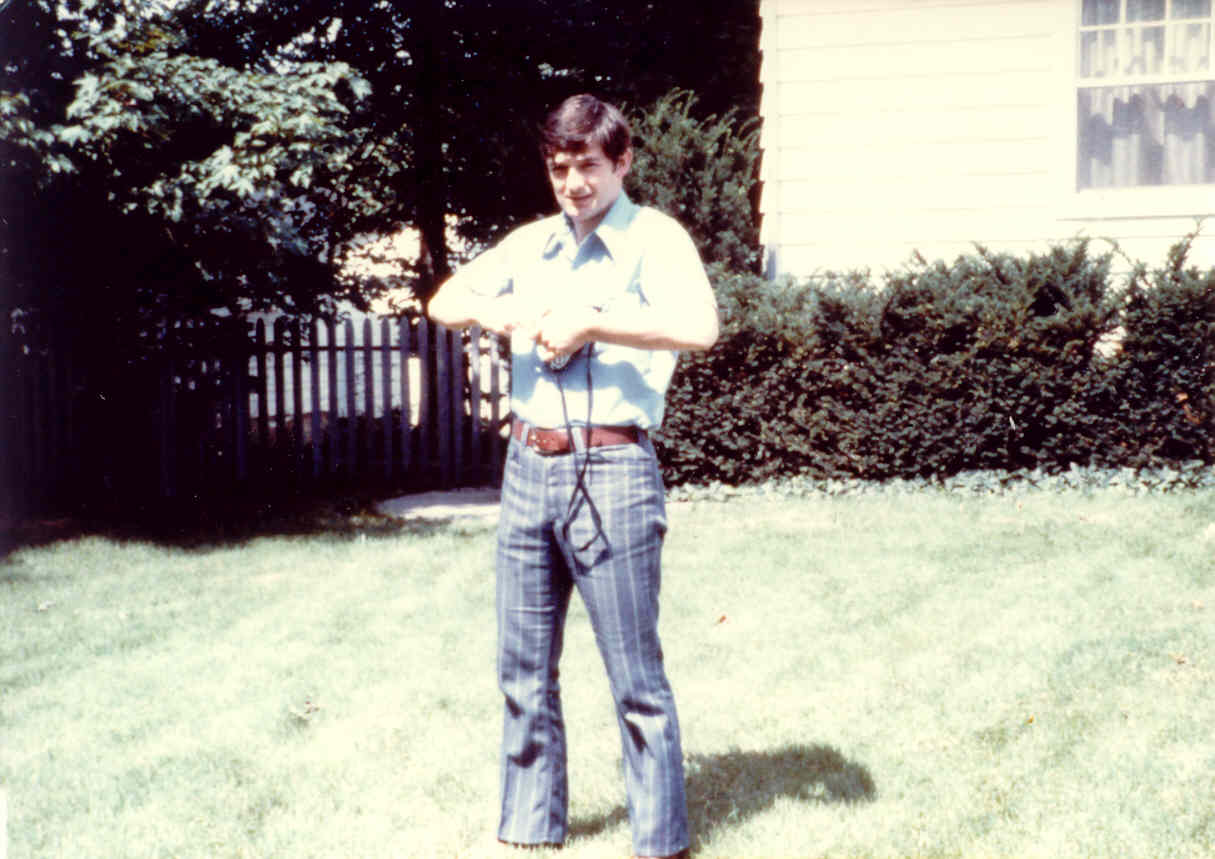
Me on our return to the states (back in Collinsville).
Notice the slacks ... high style at the time!
|
We eventually located ourselves more permanently in Texas ... where I had my hands full finishing the writing of my doctoral dissertation … and searching for a university teaching job. In the summer of 1971 I was hired by the political science department at the University of South Alabama (Mobile) … to begin teaching there that fall. From this point on I would no longer be calling on the "unseen hand" to help me along. I had my own life plan well under my own control (or so I now believed) |
